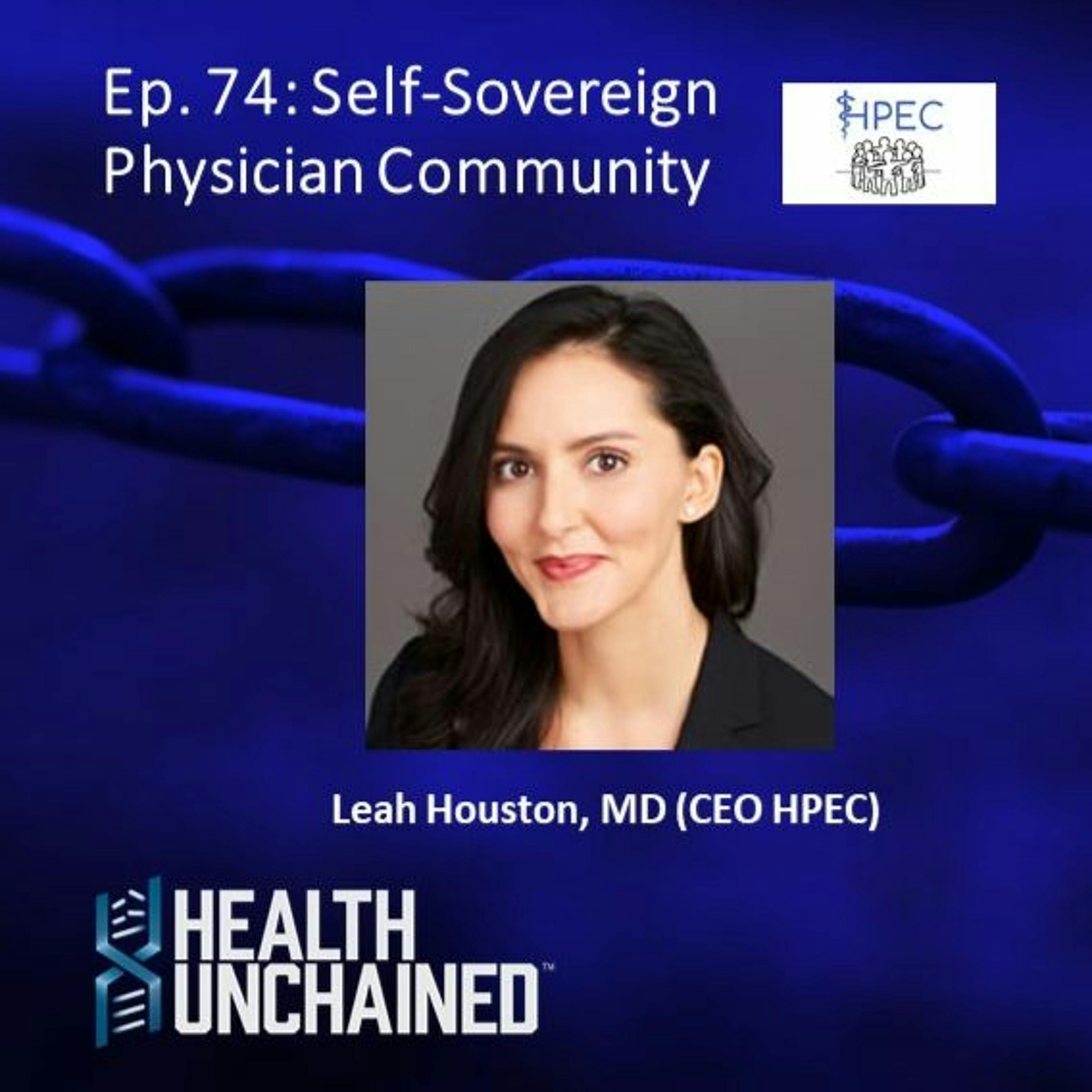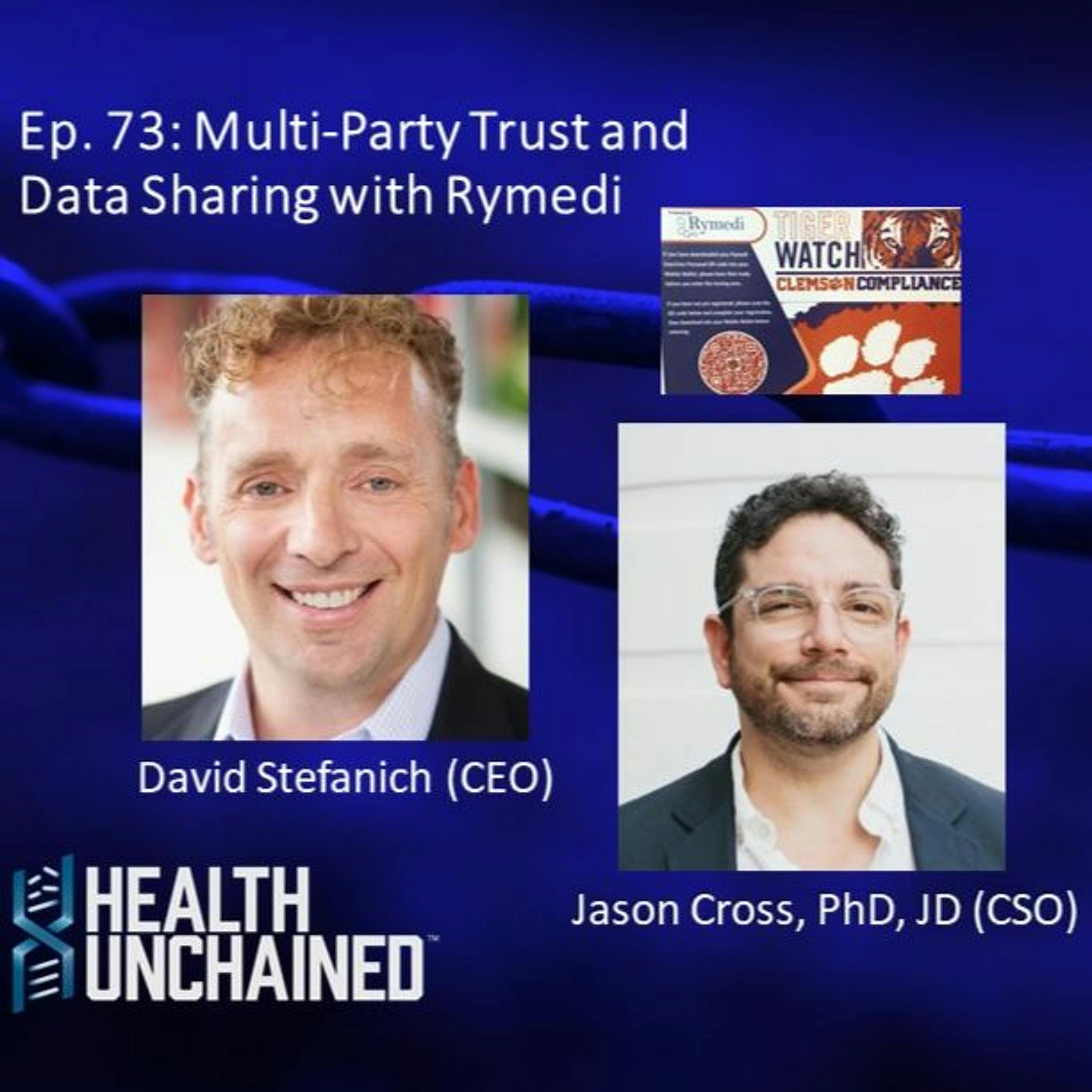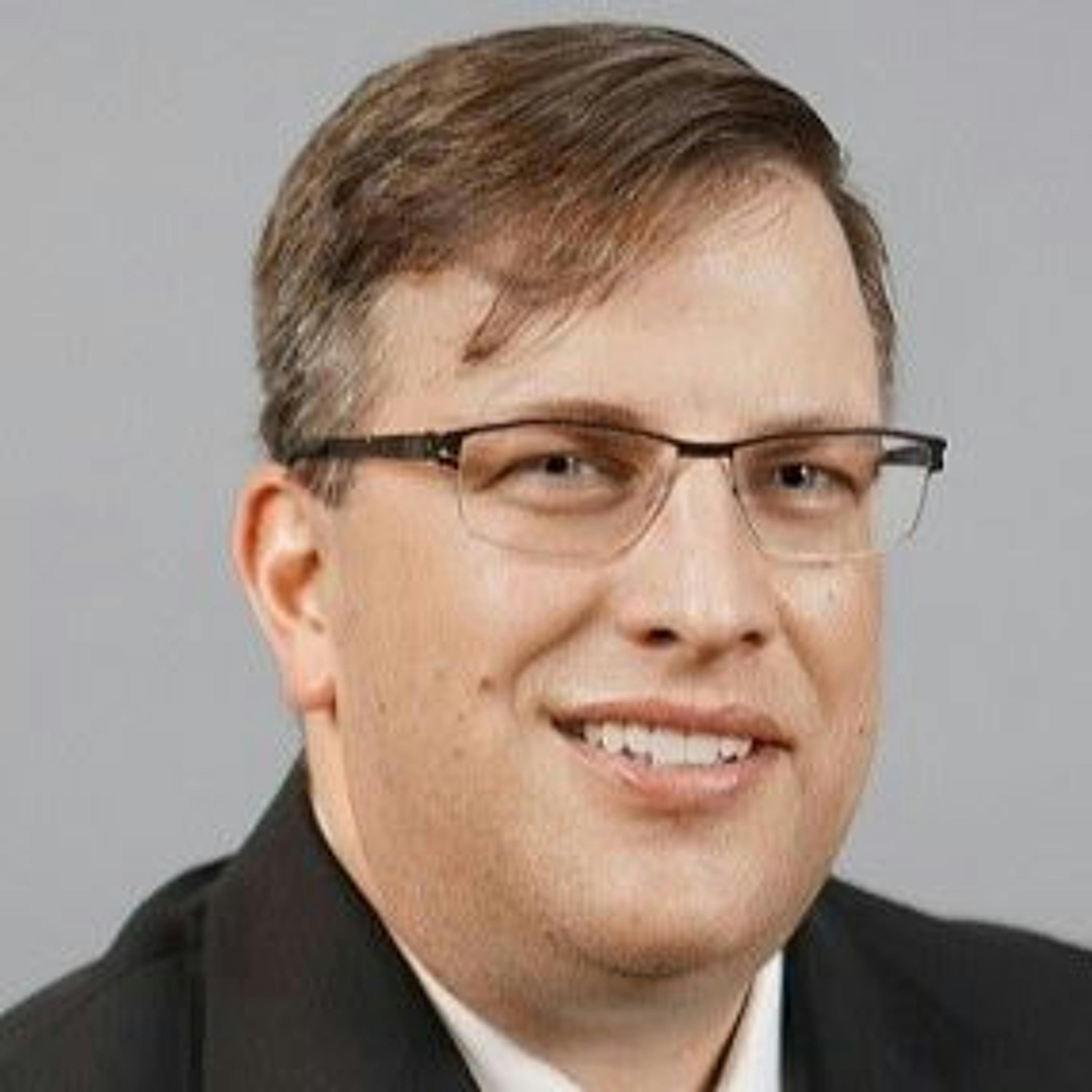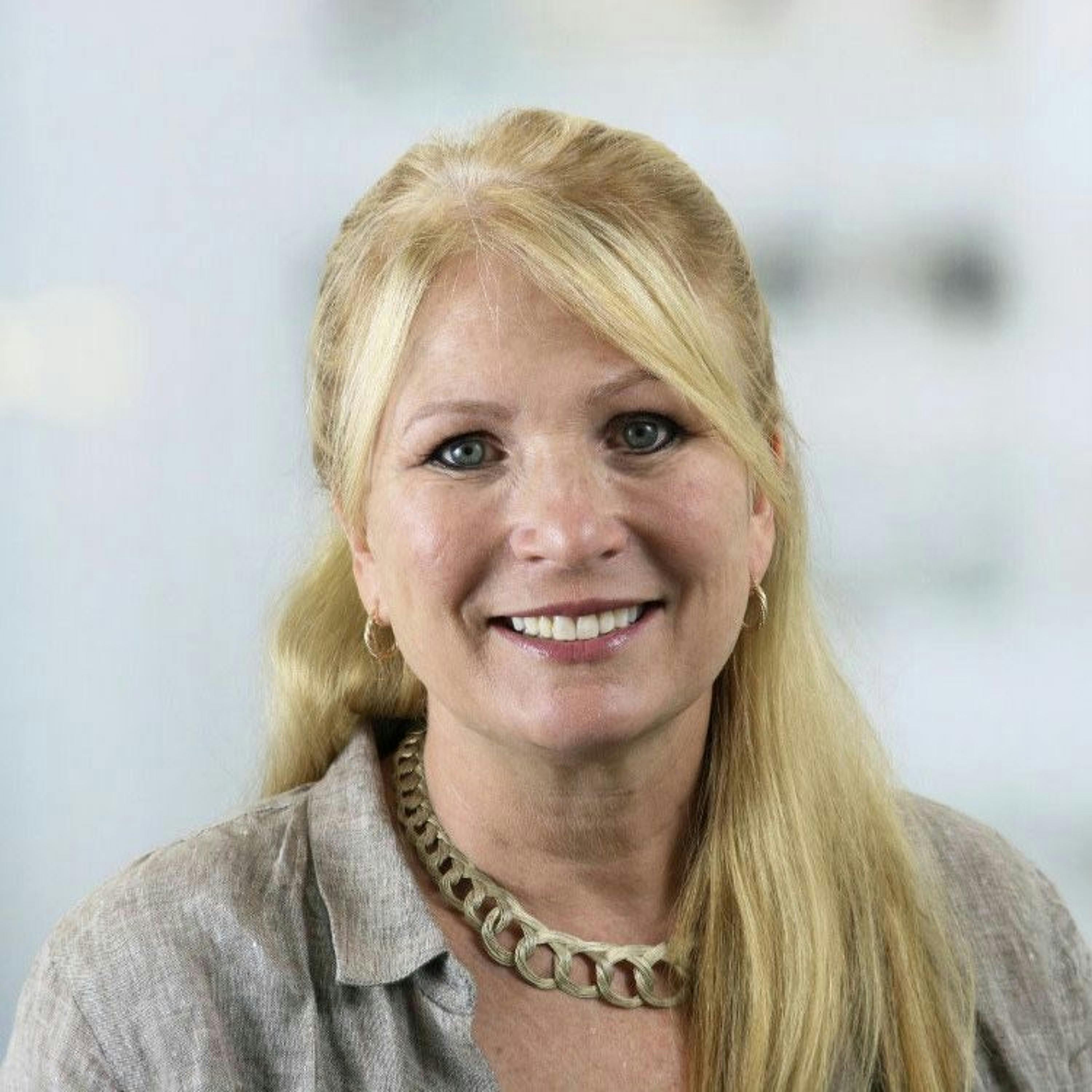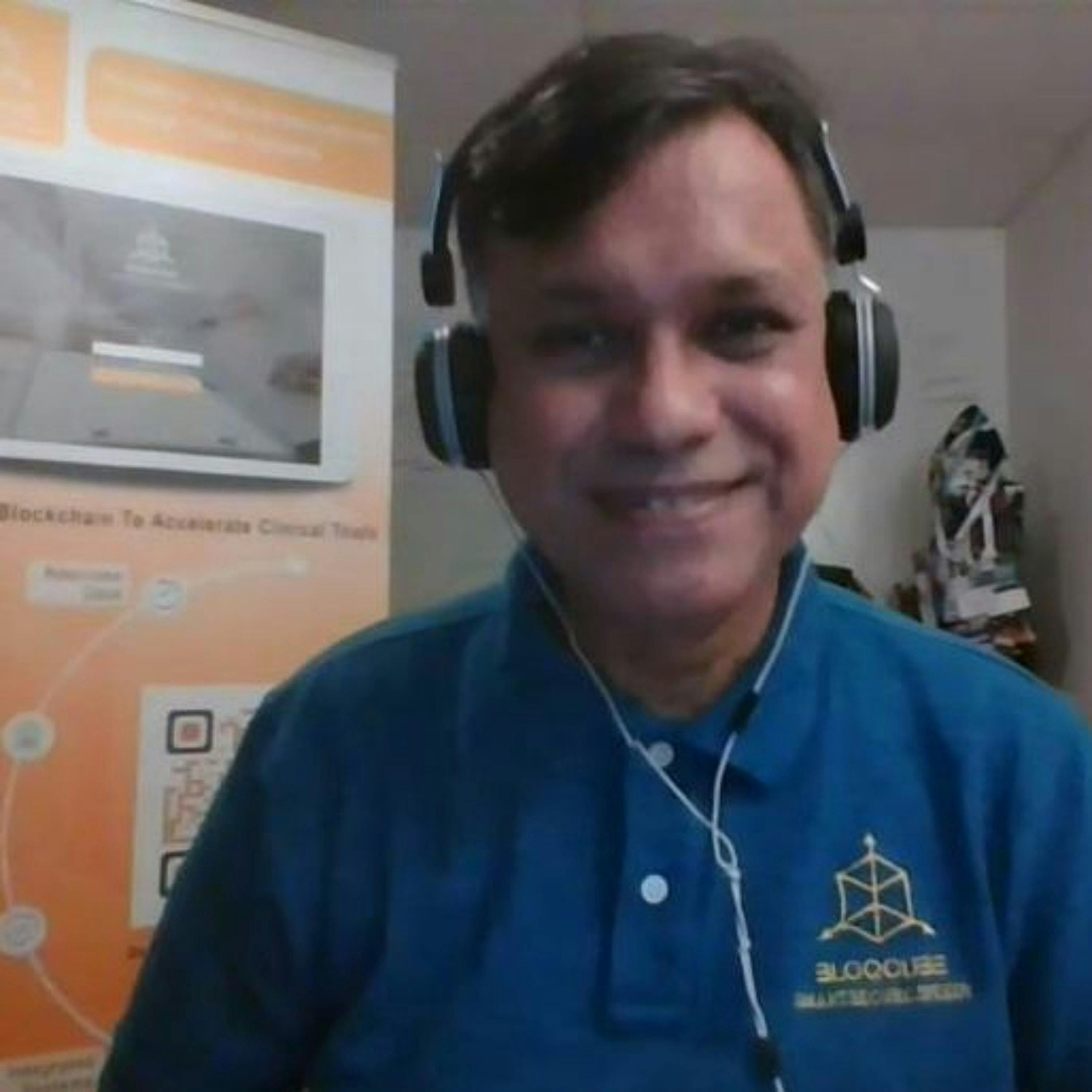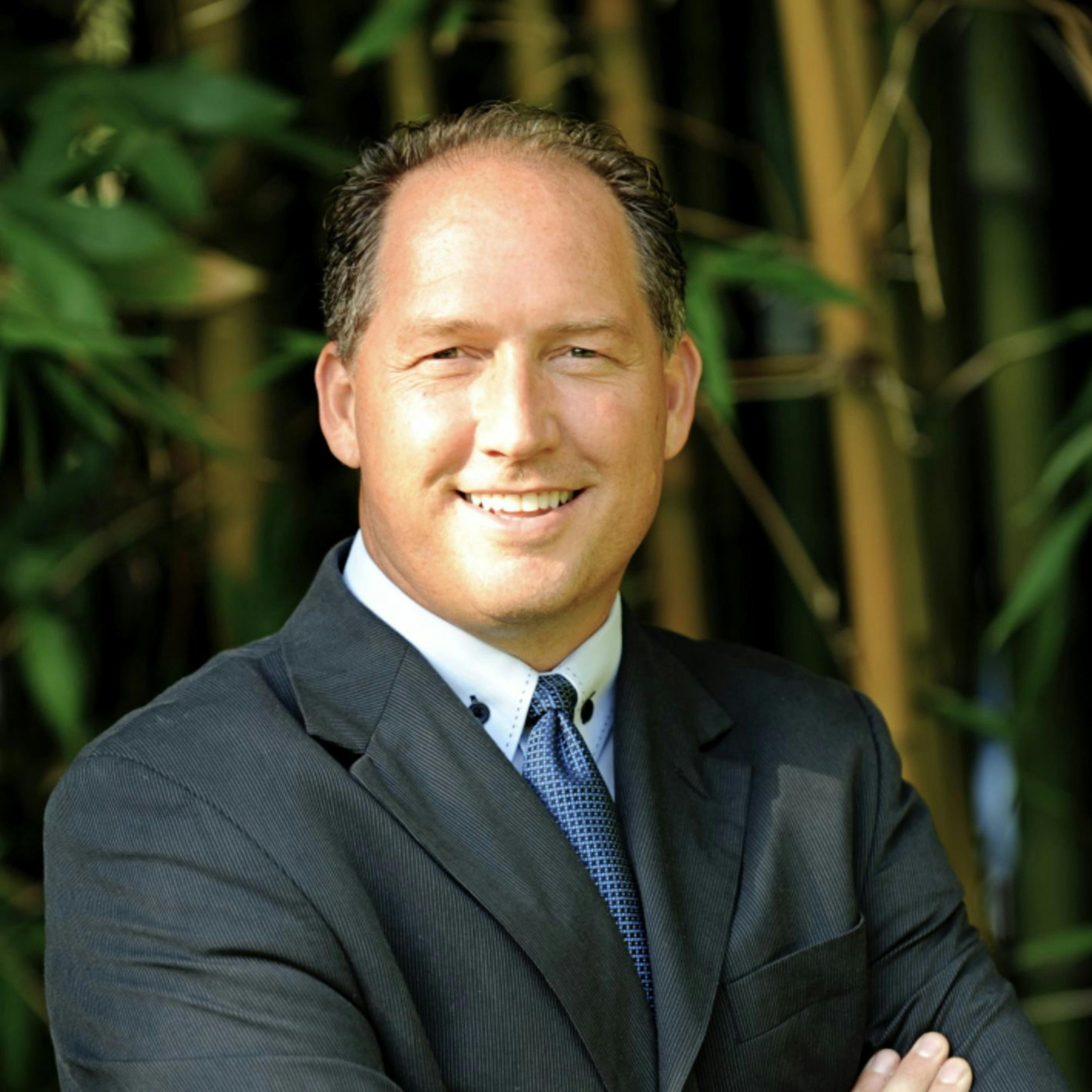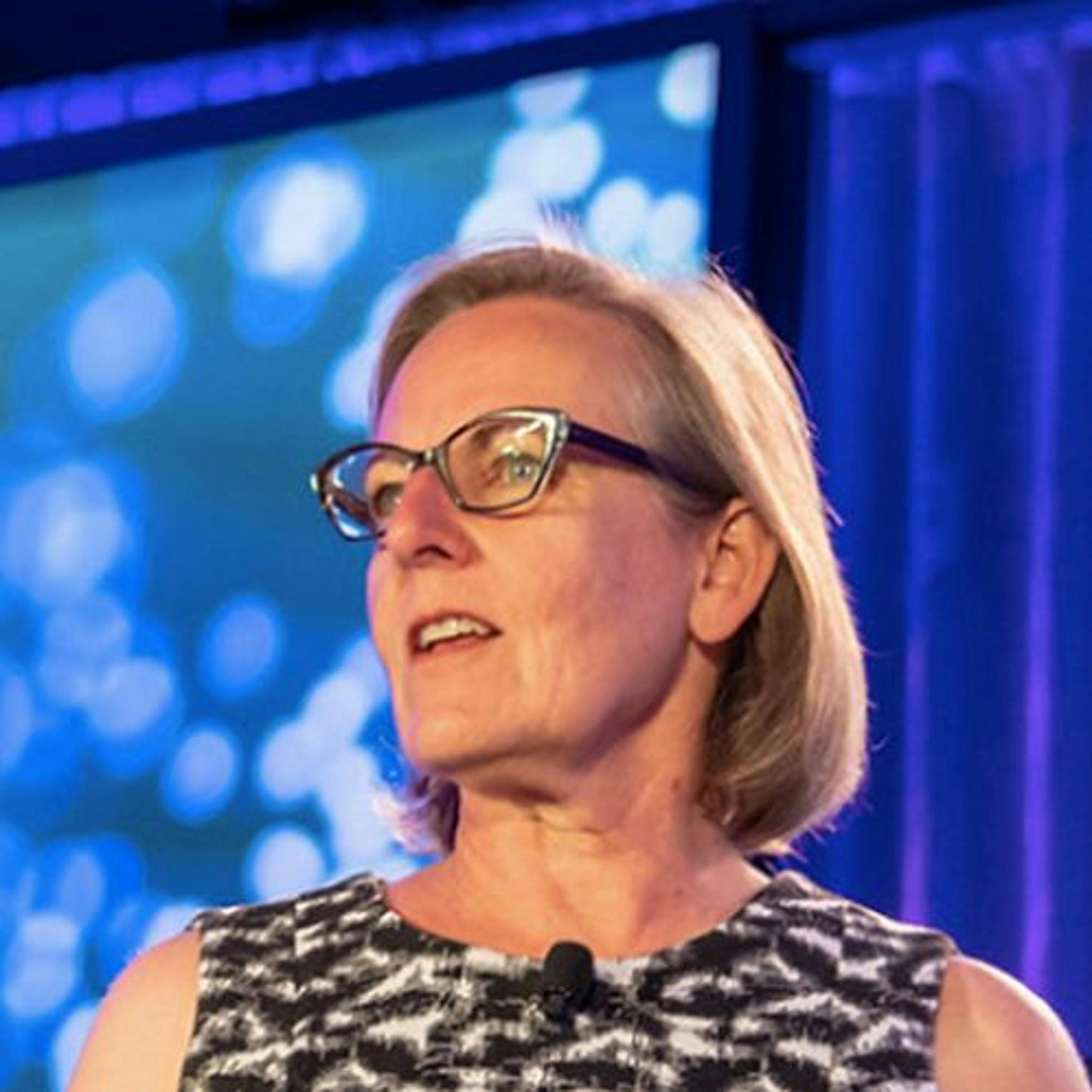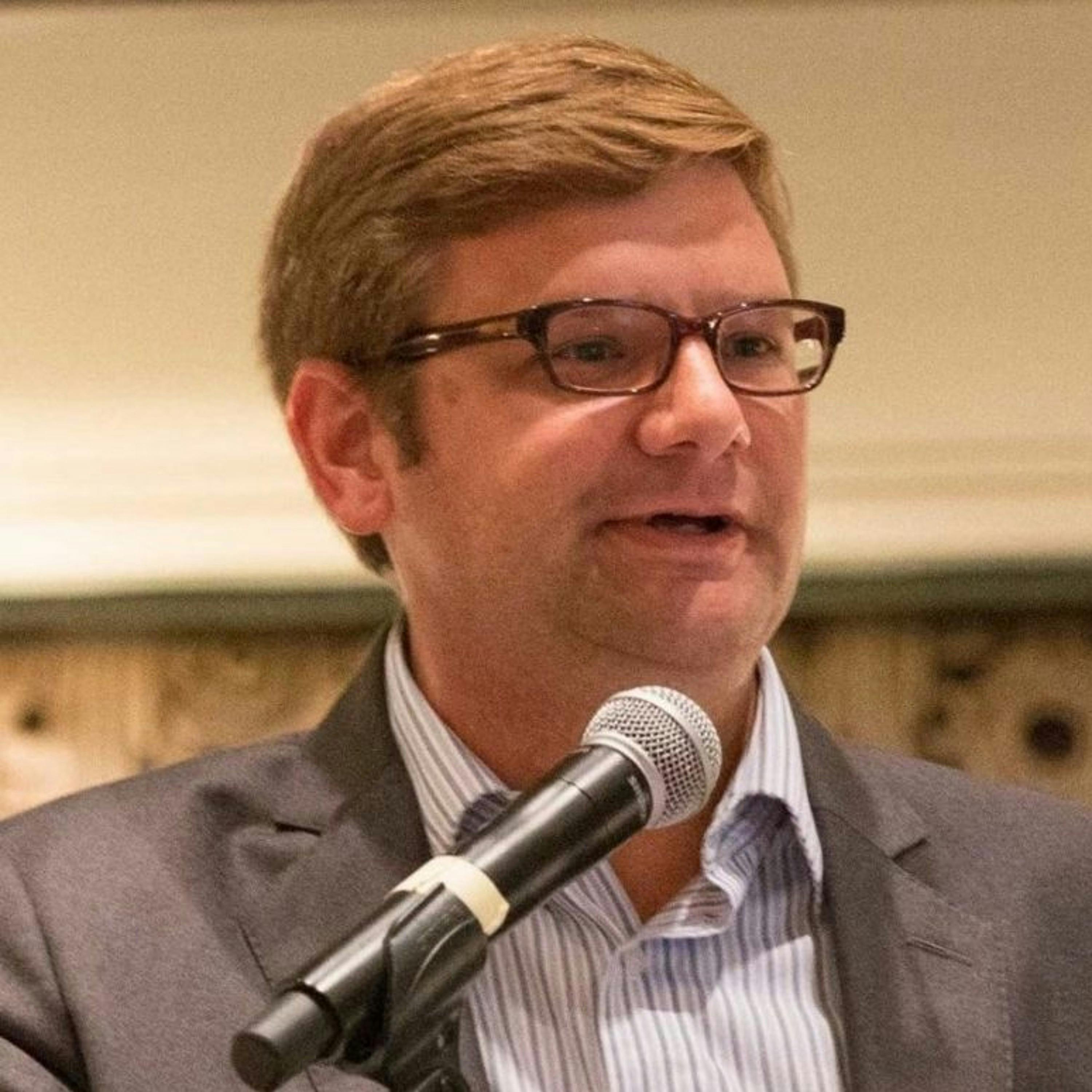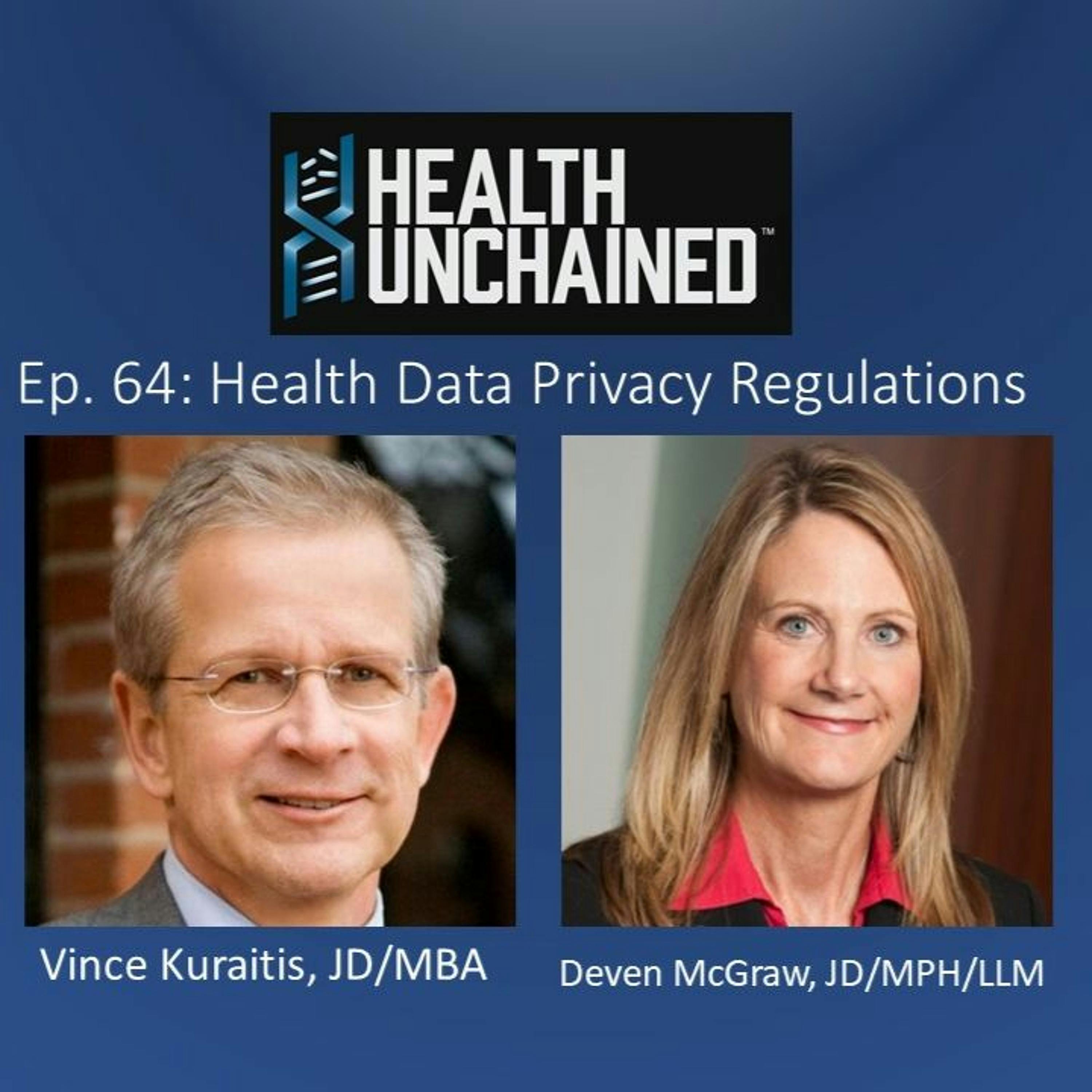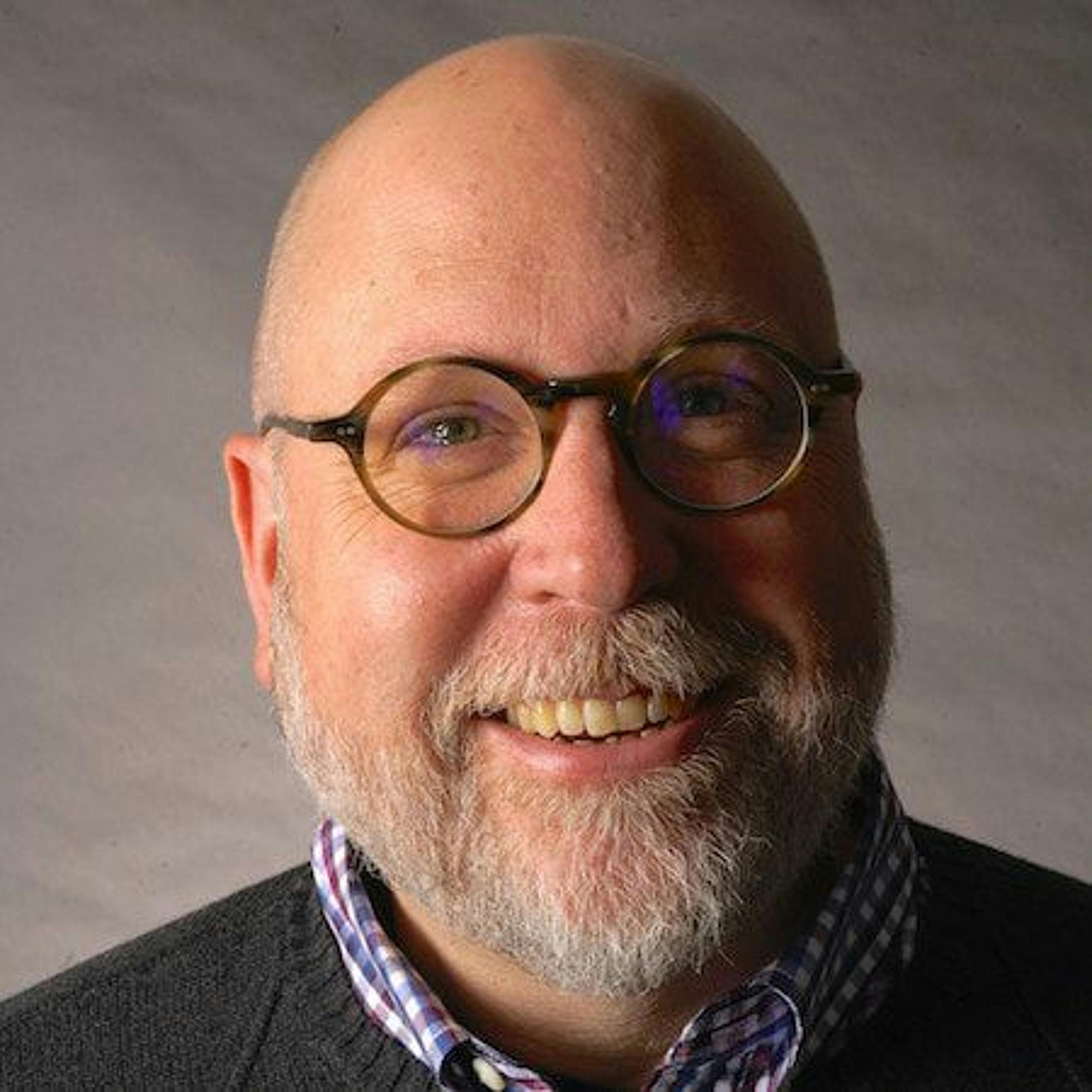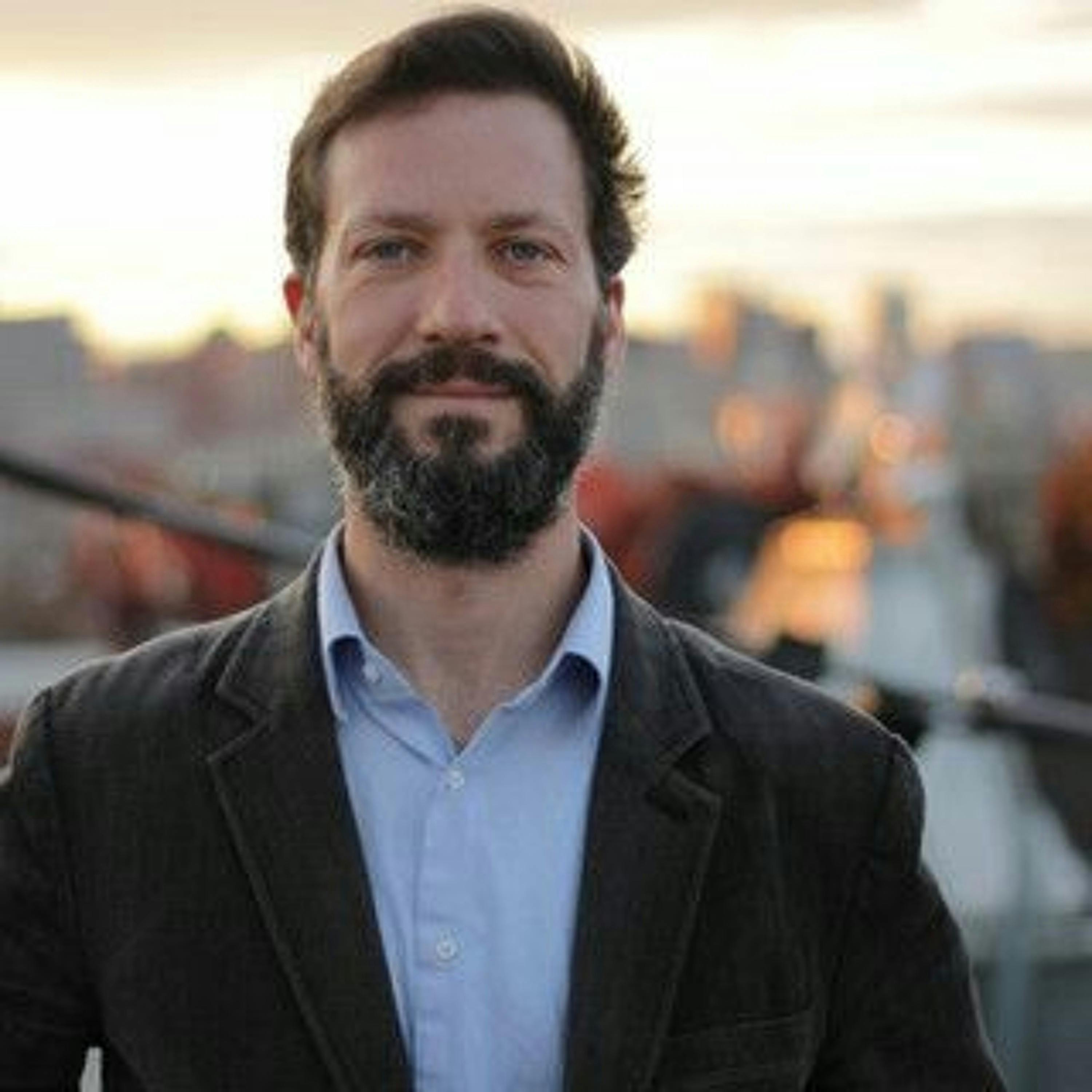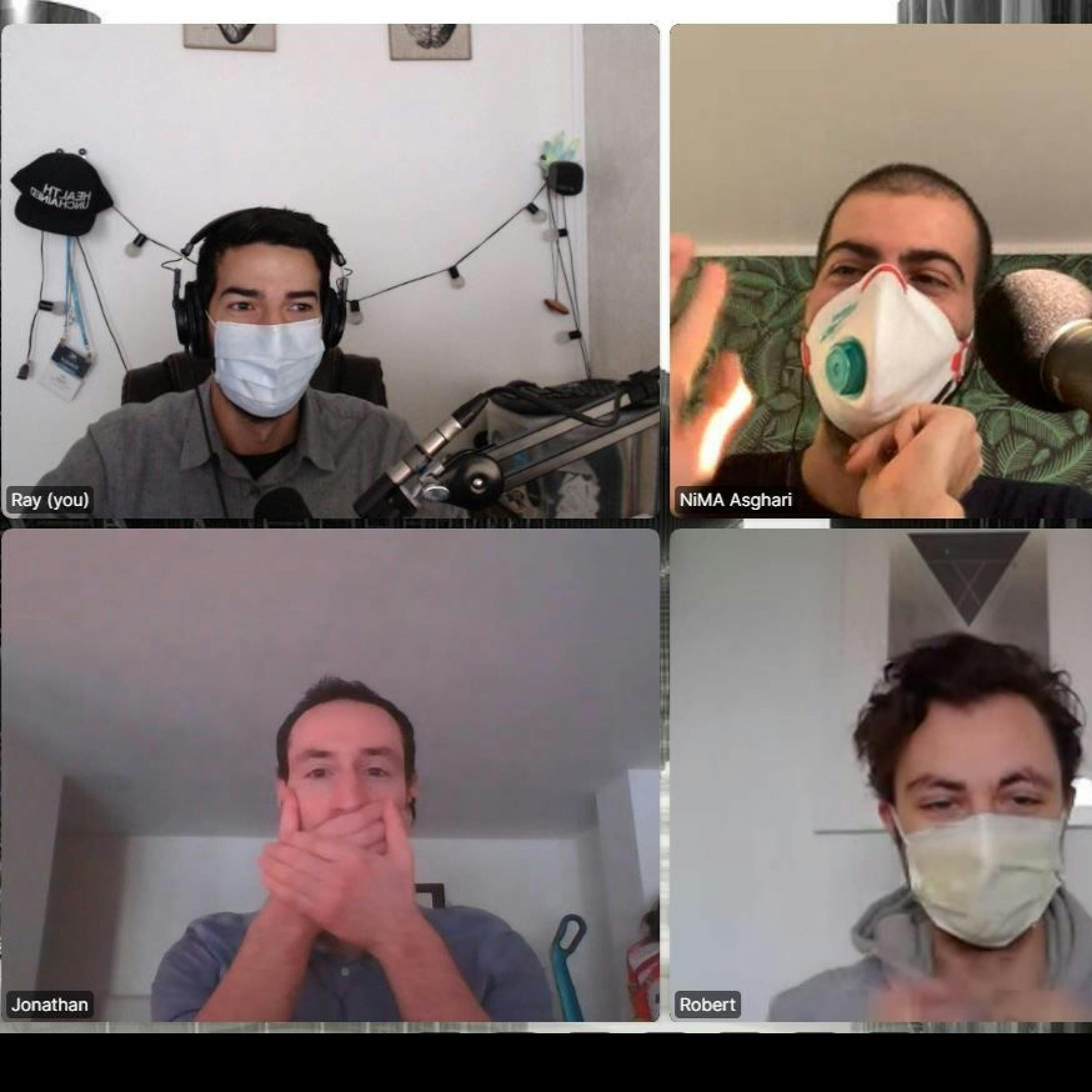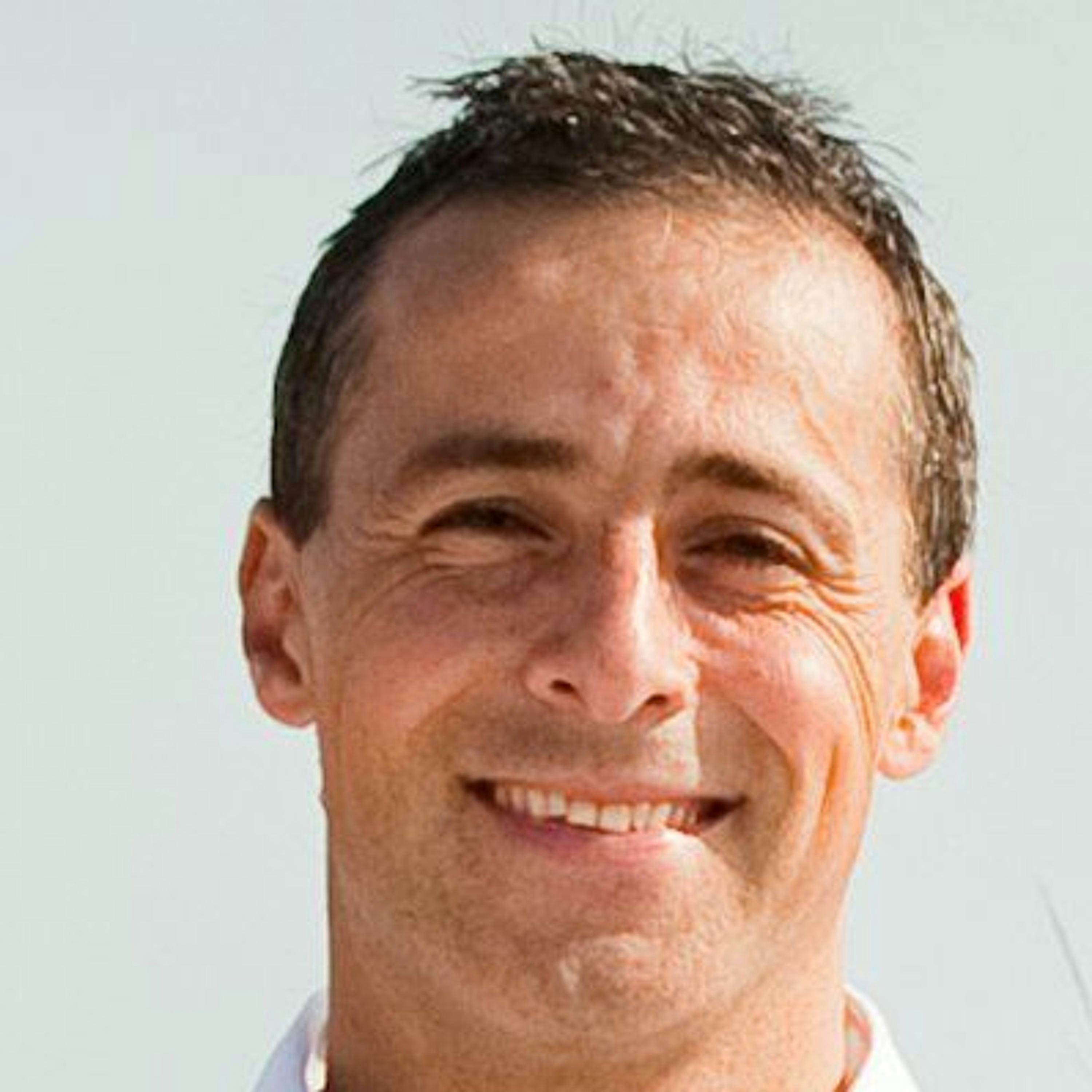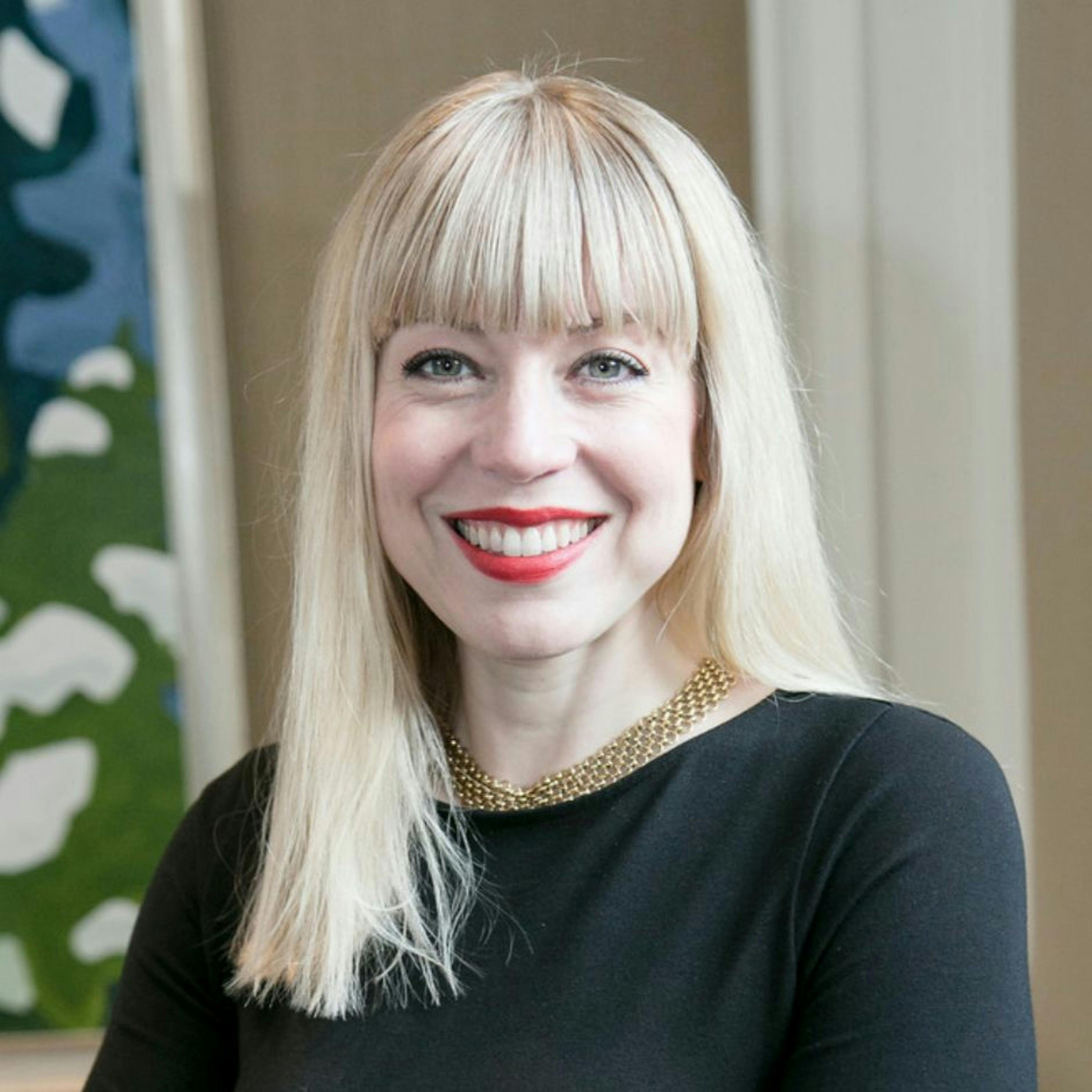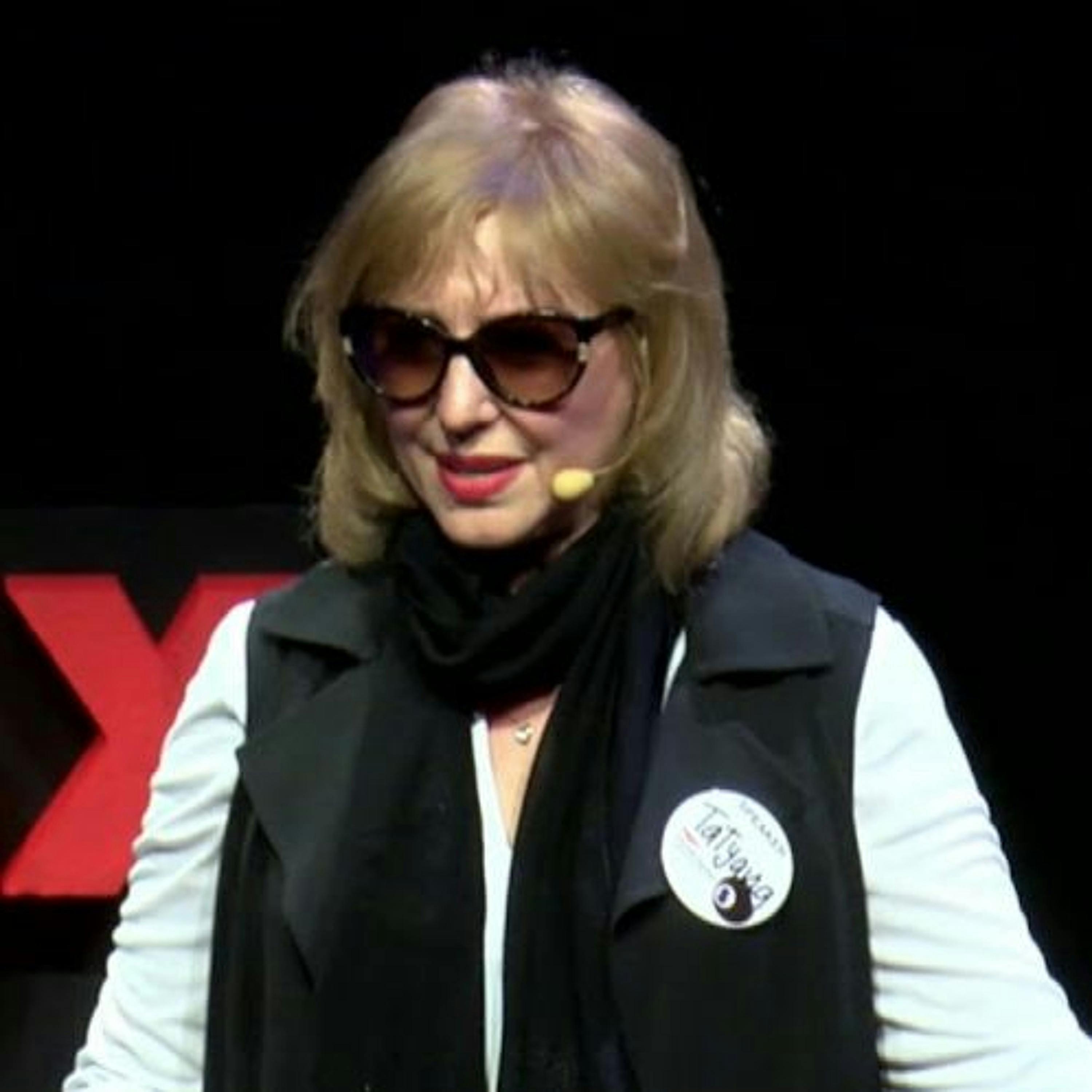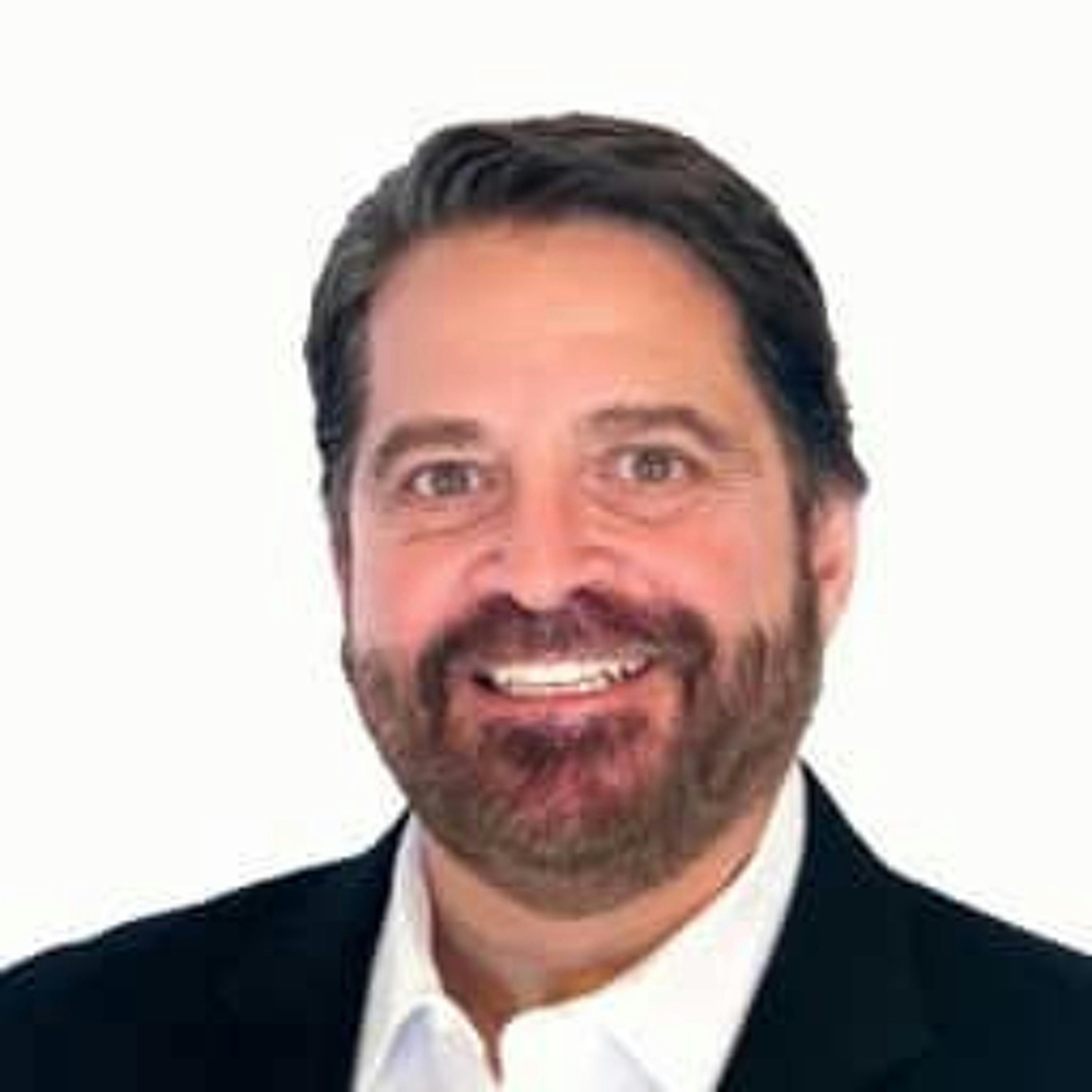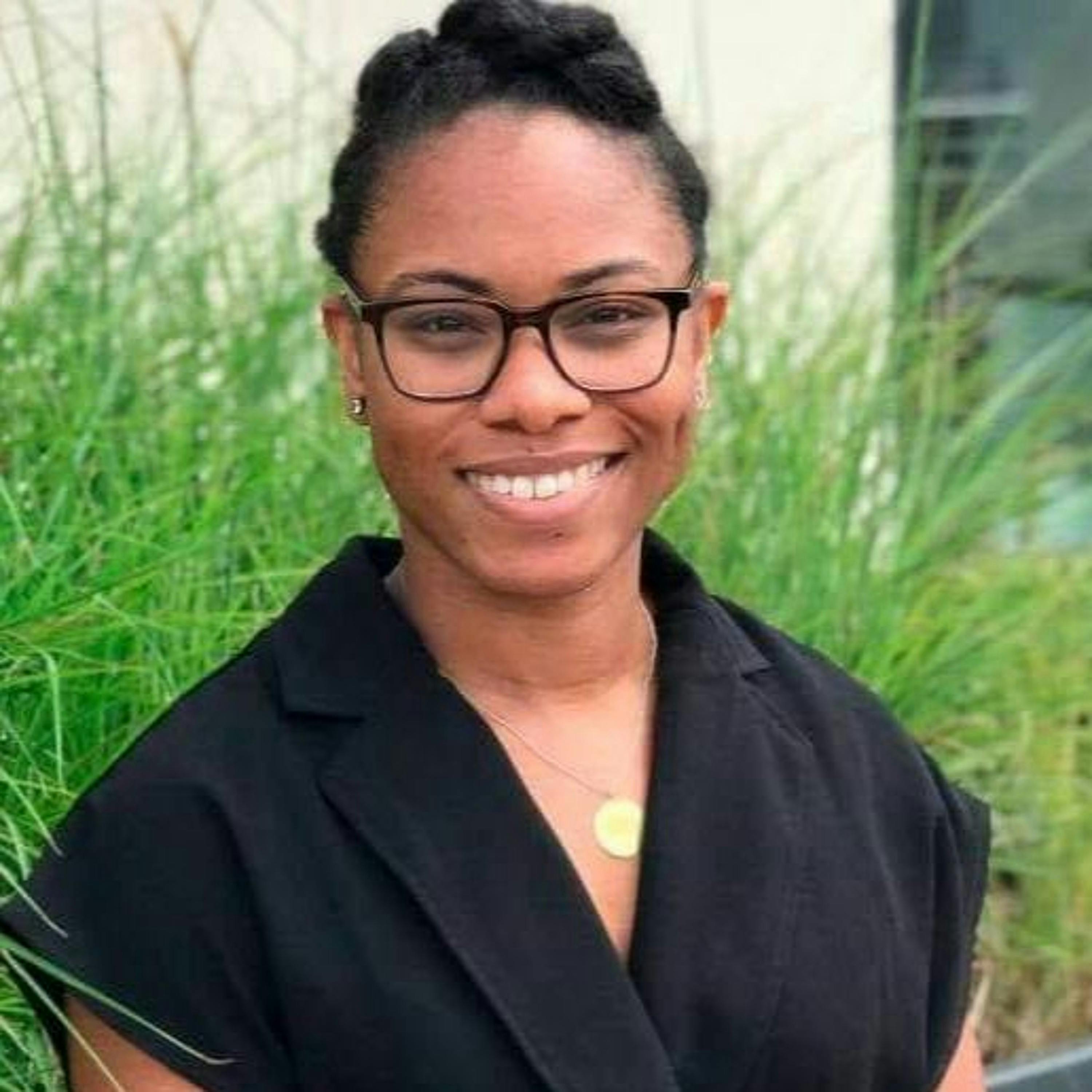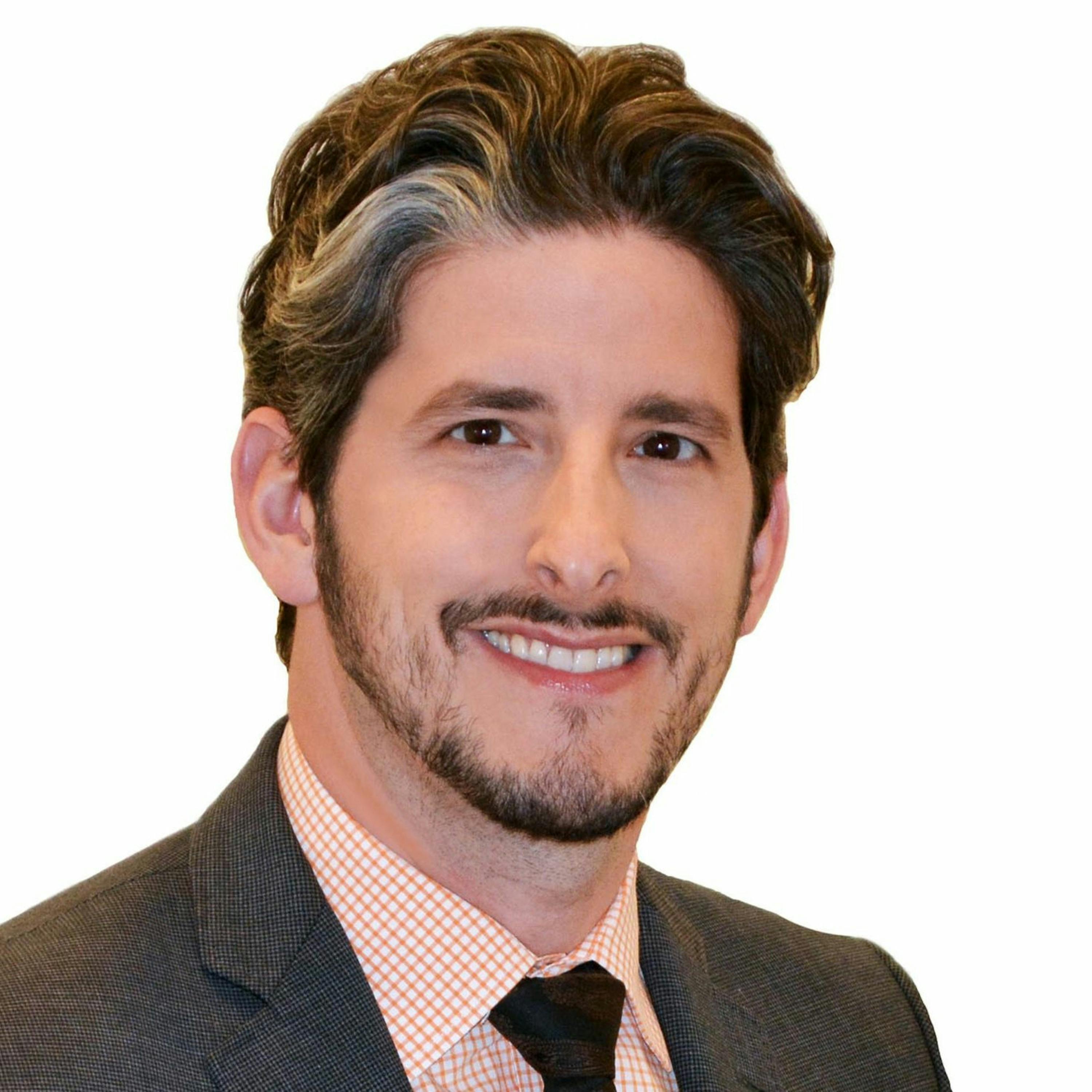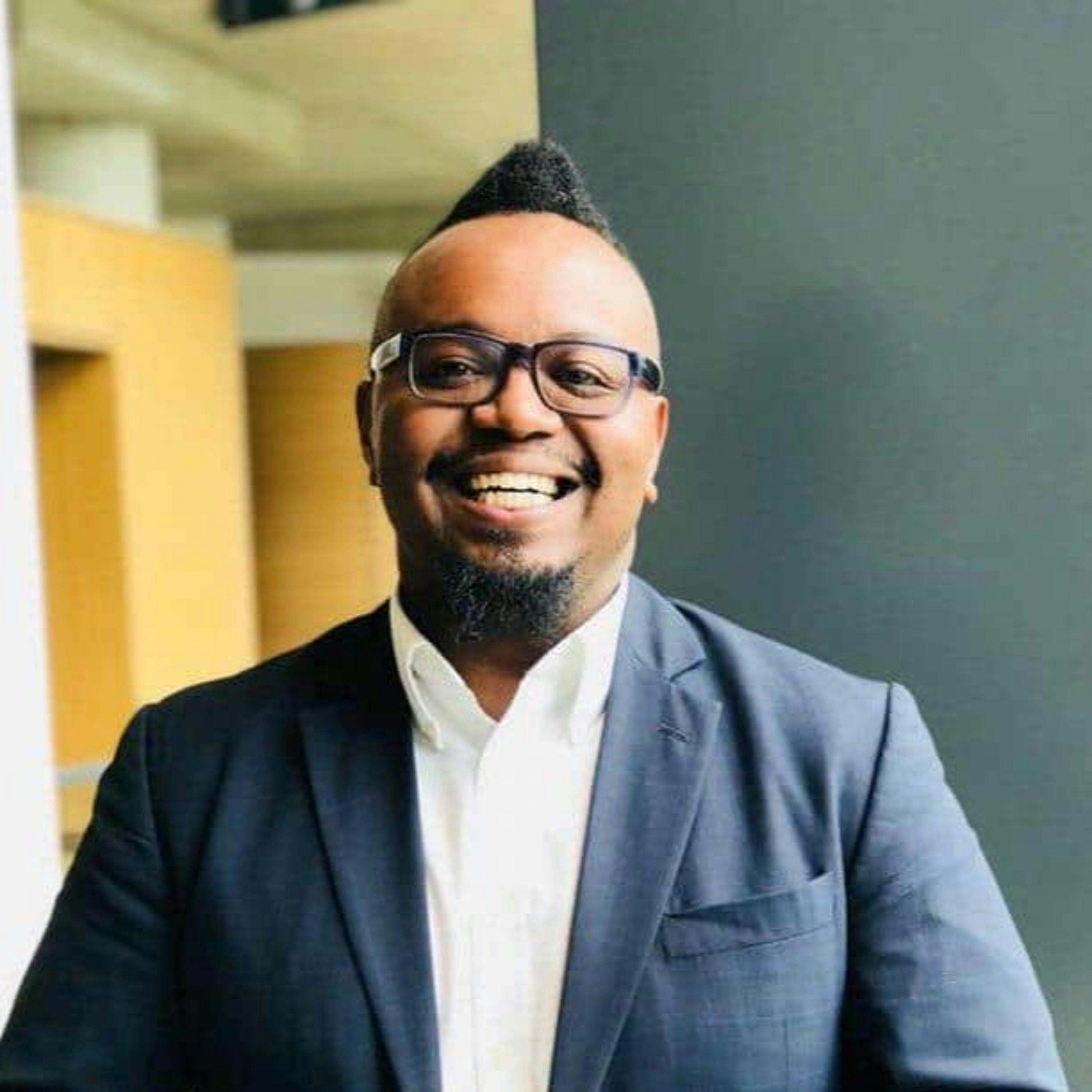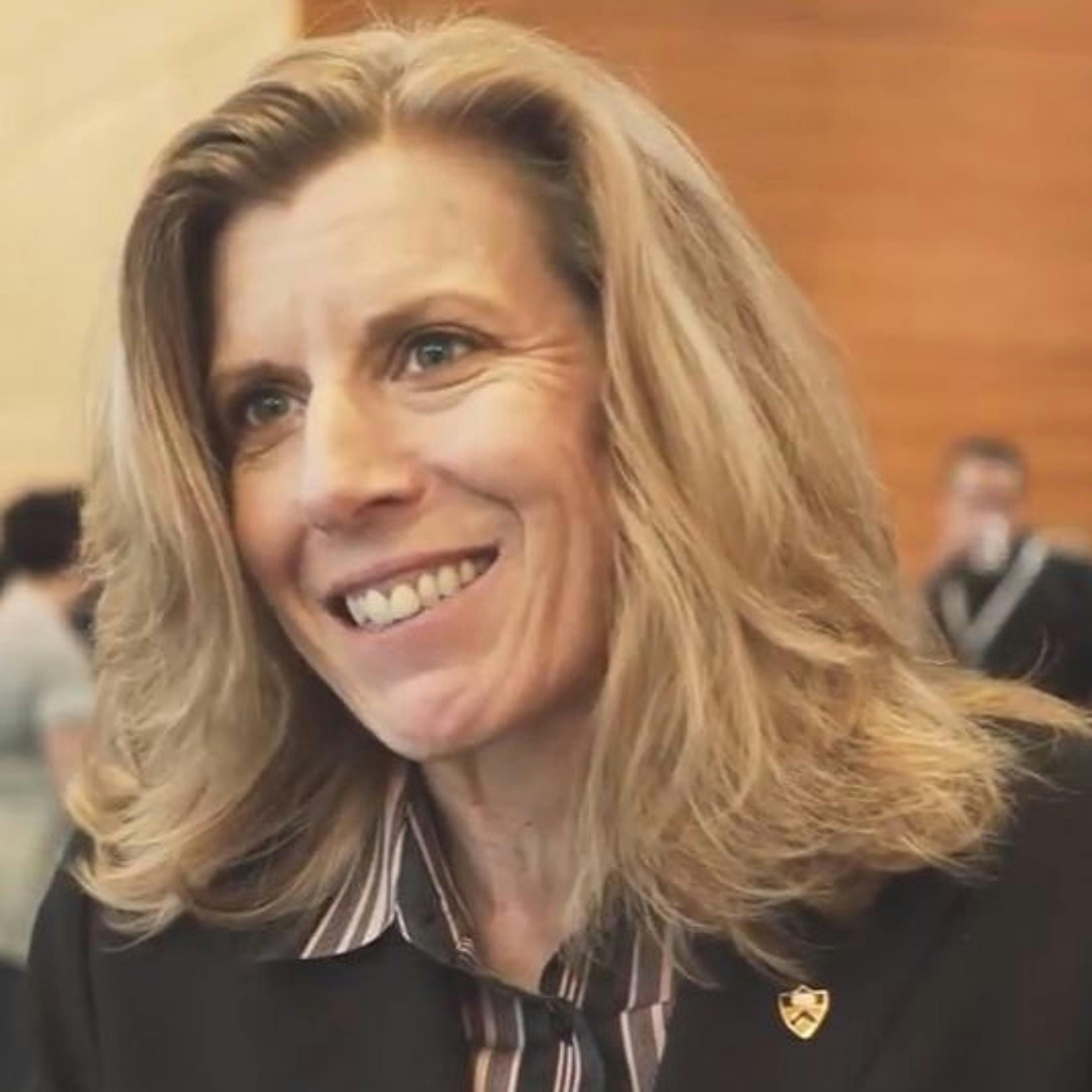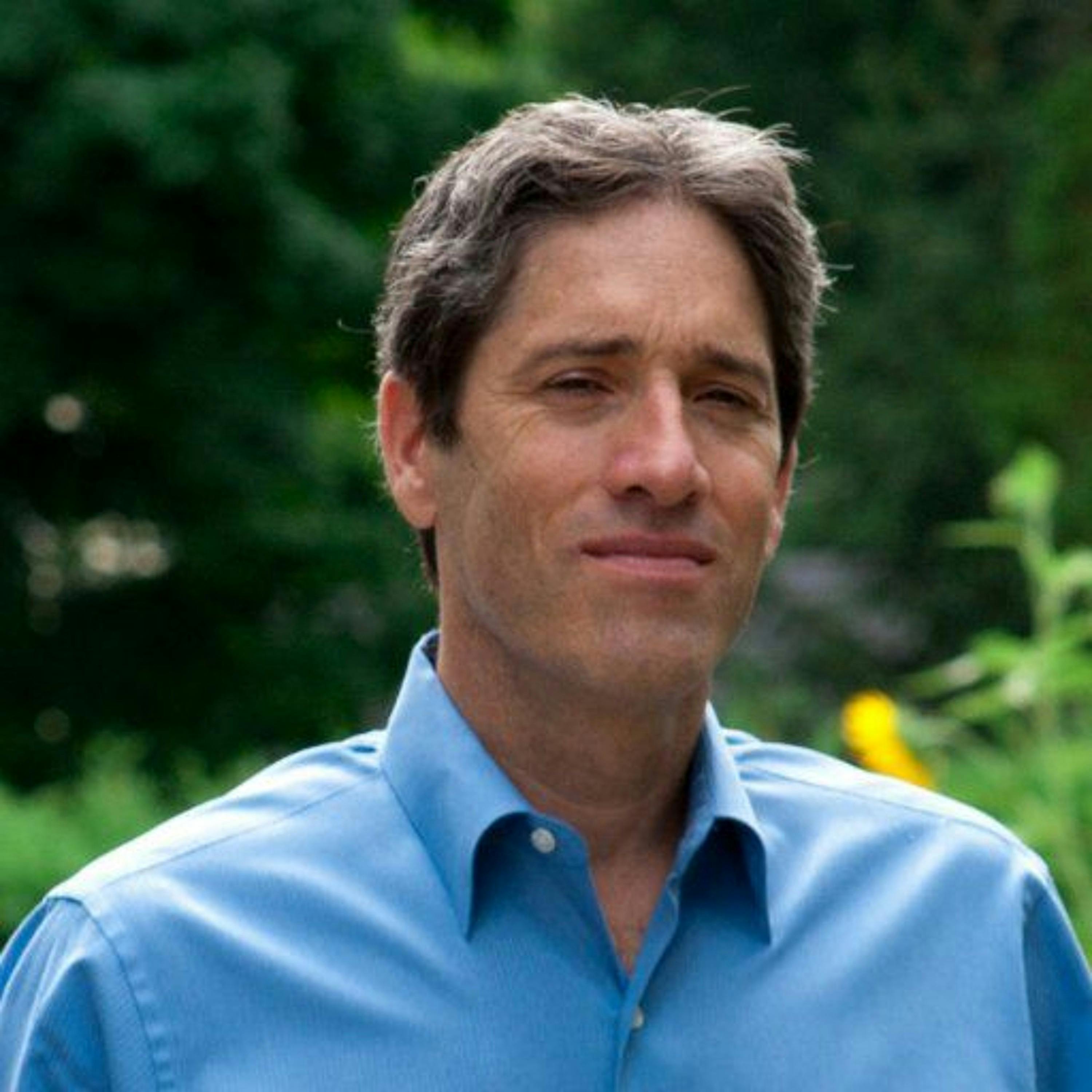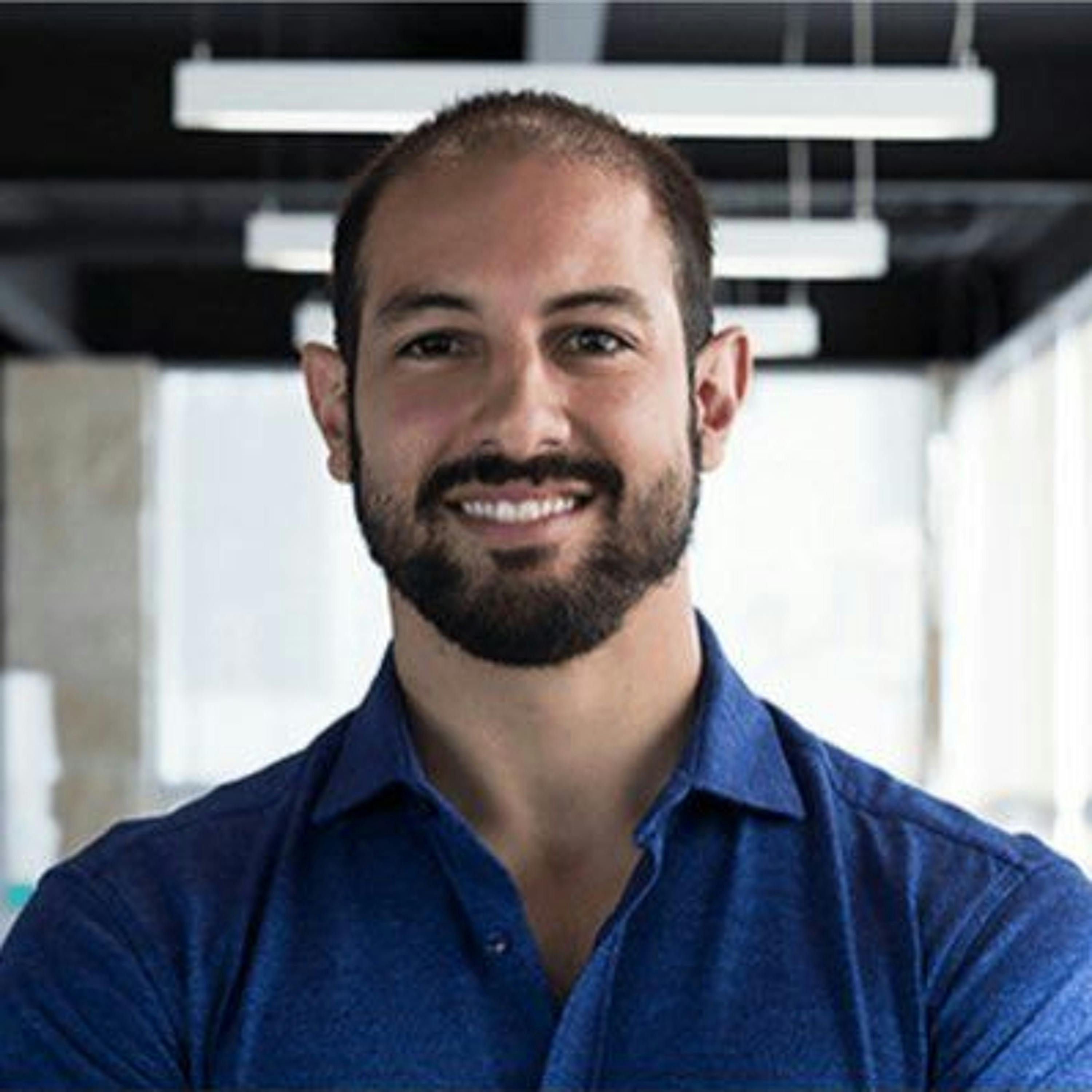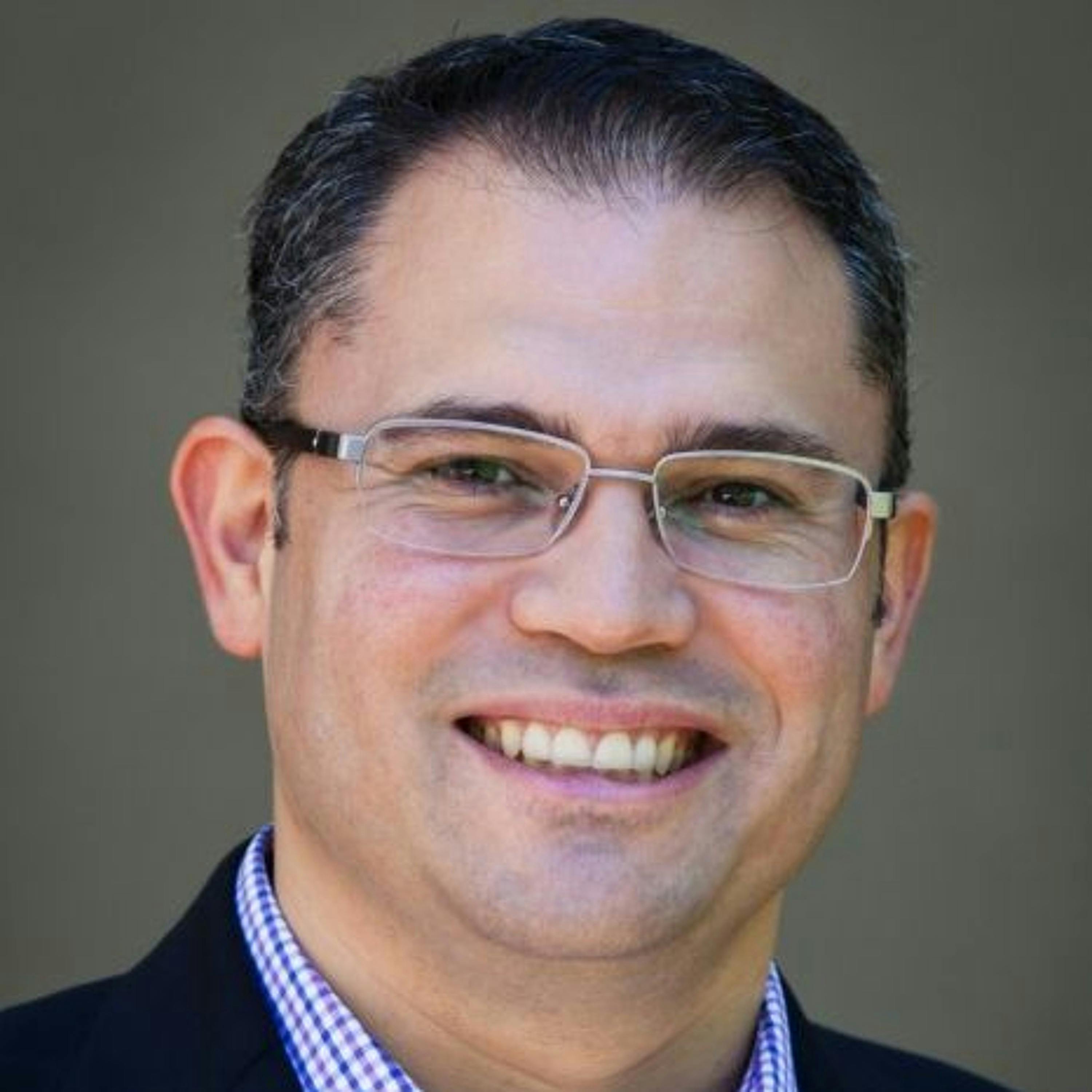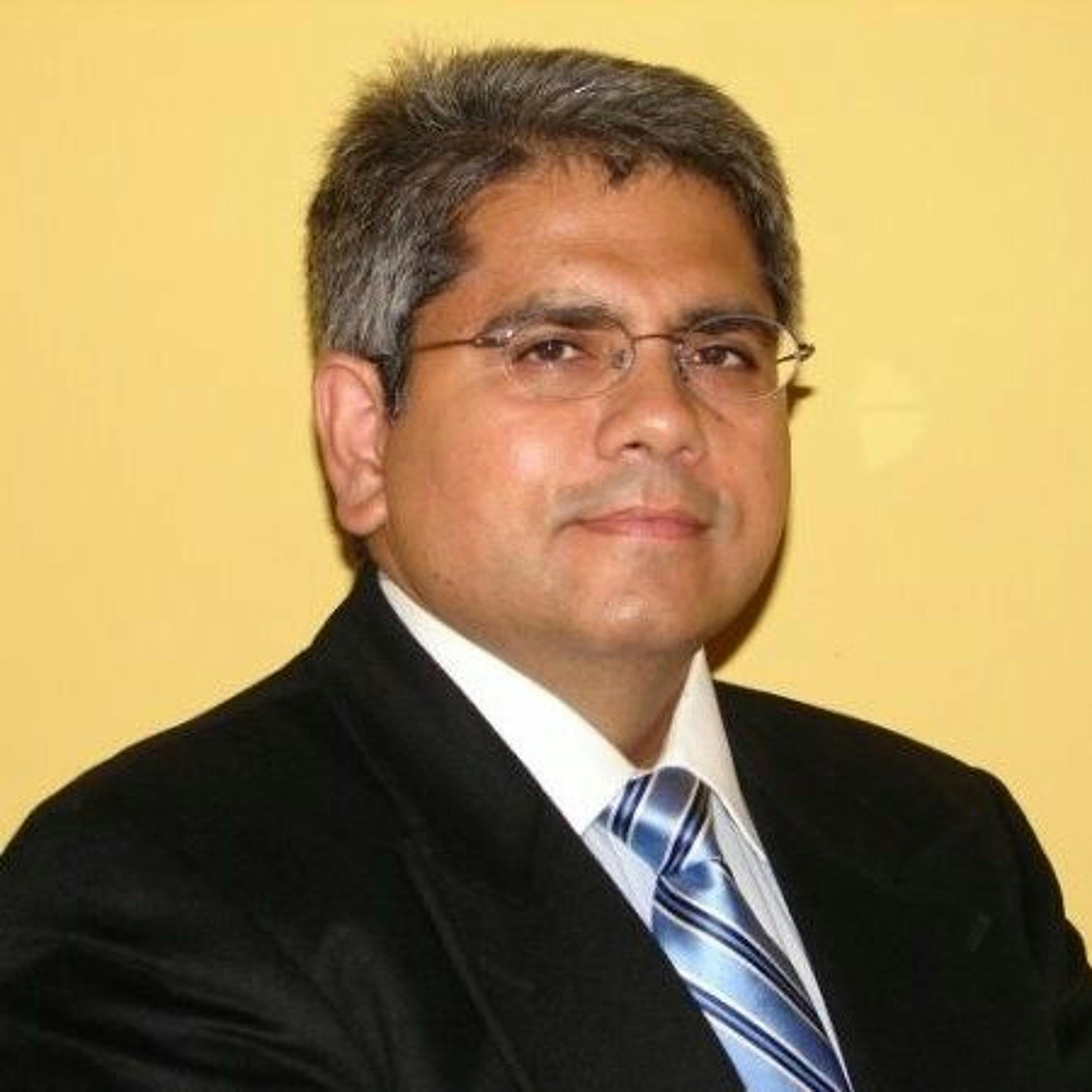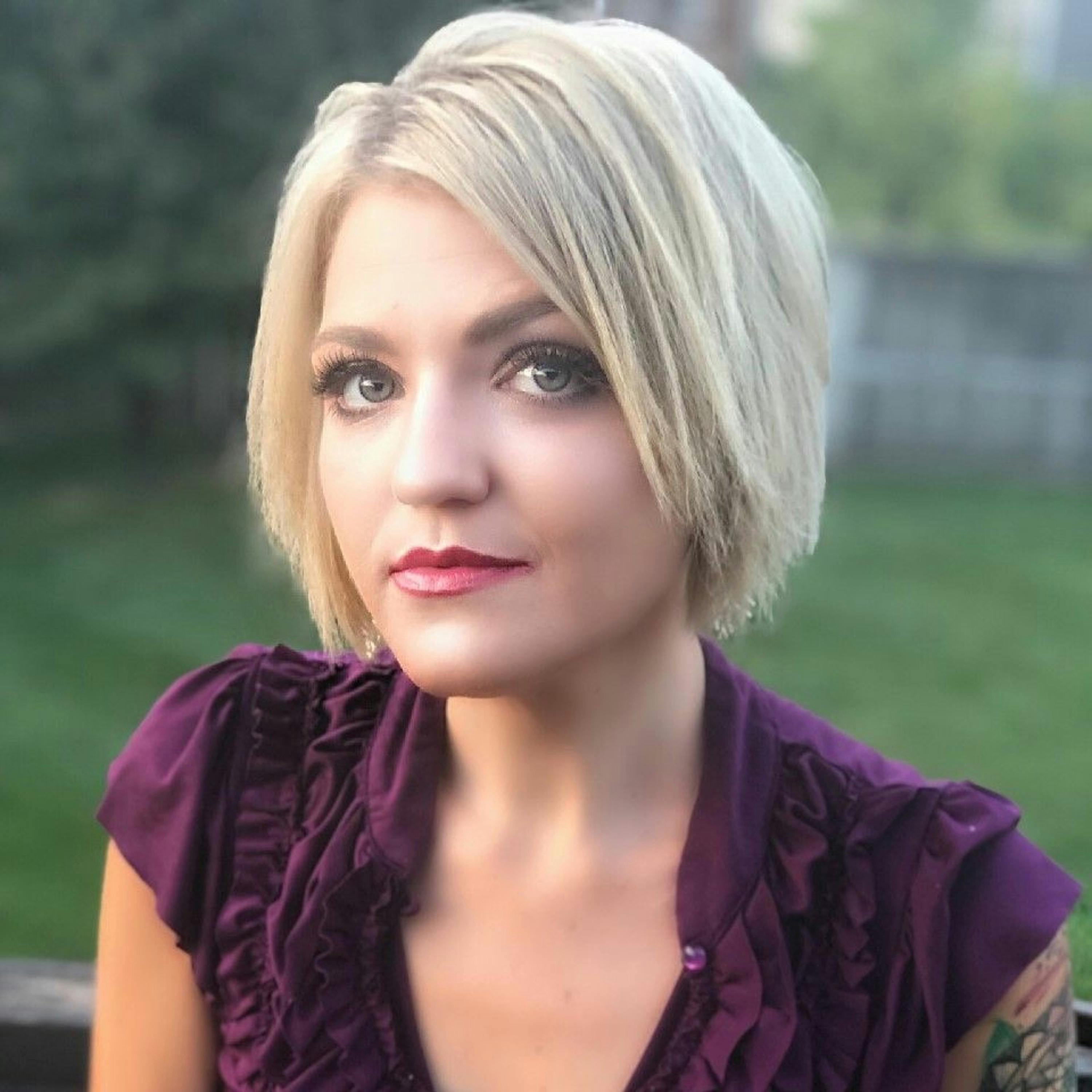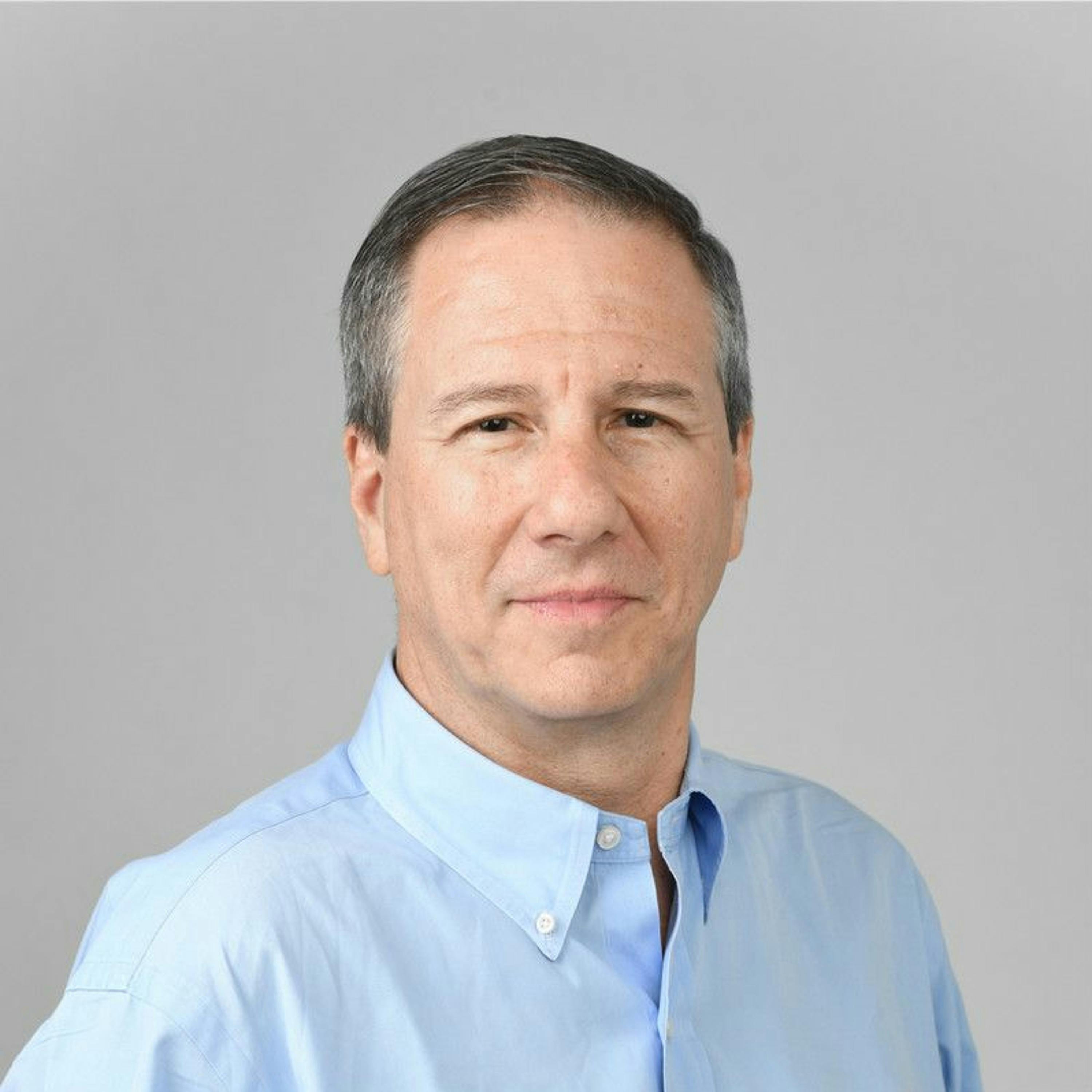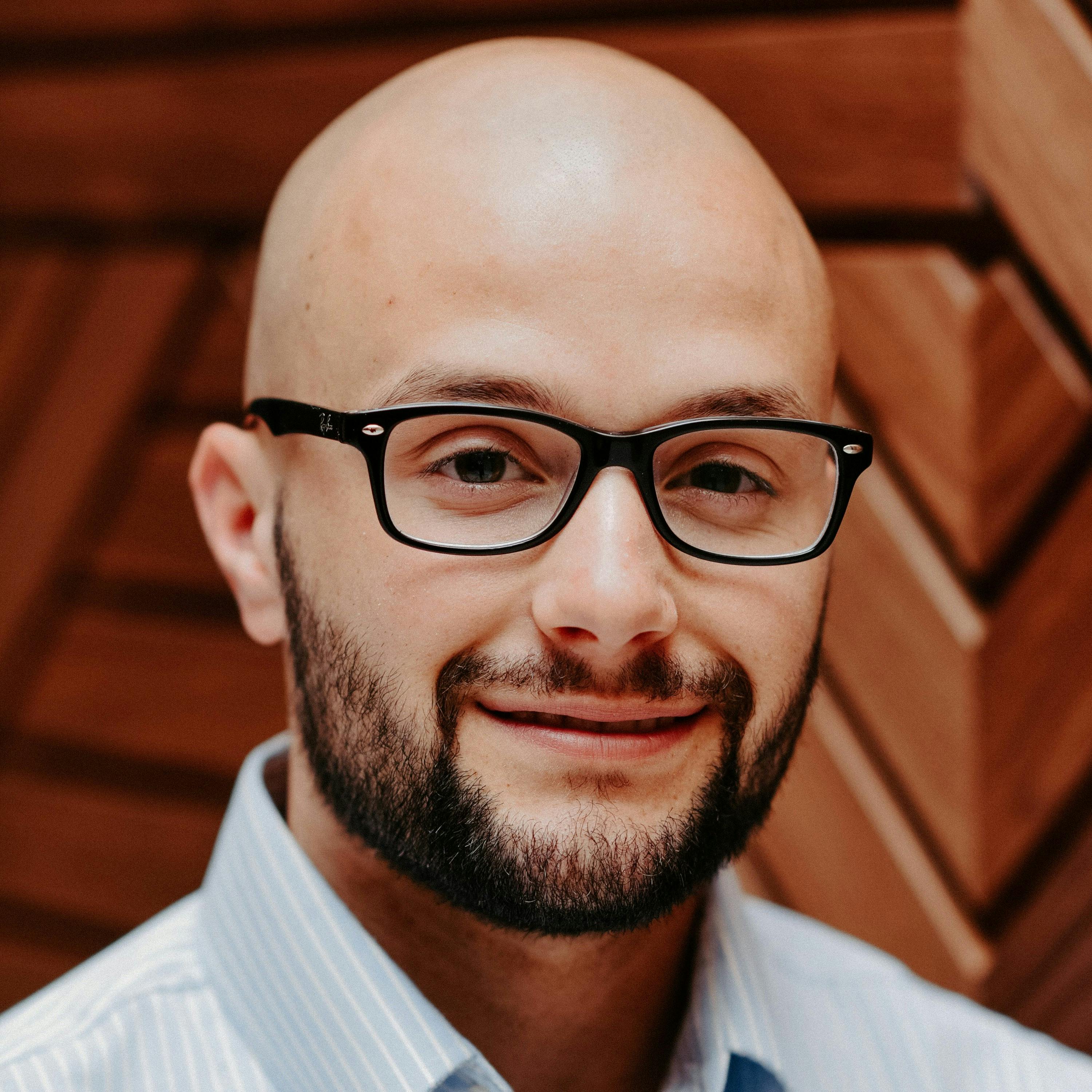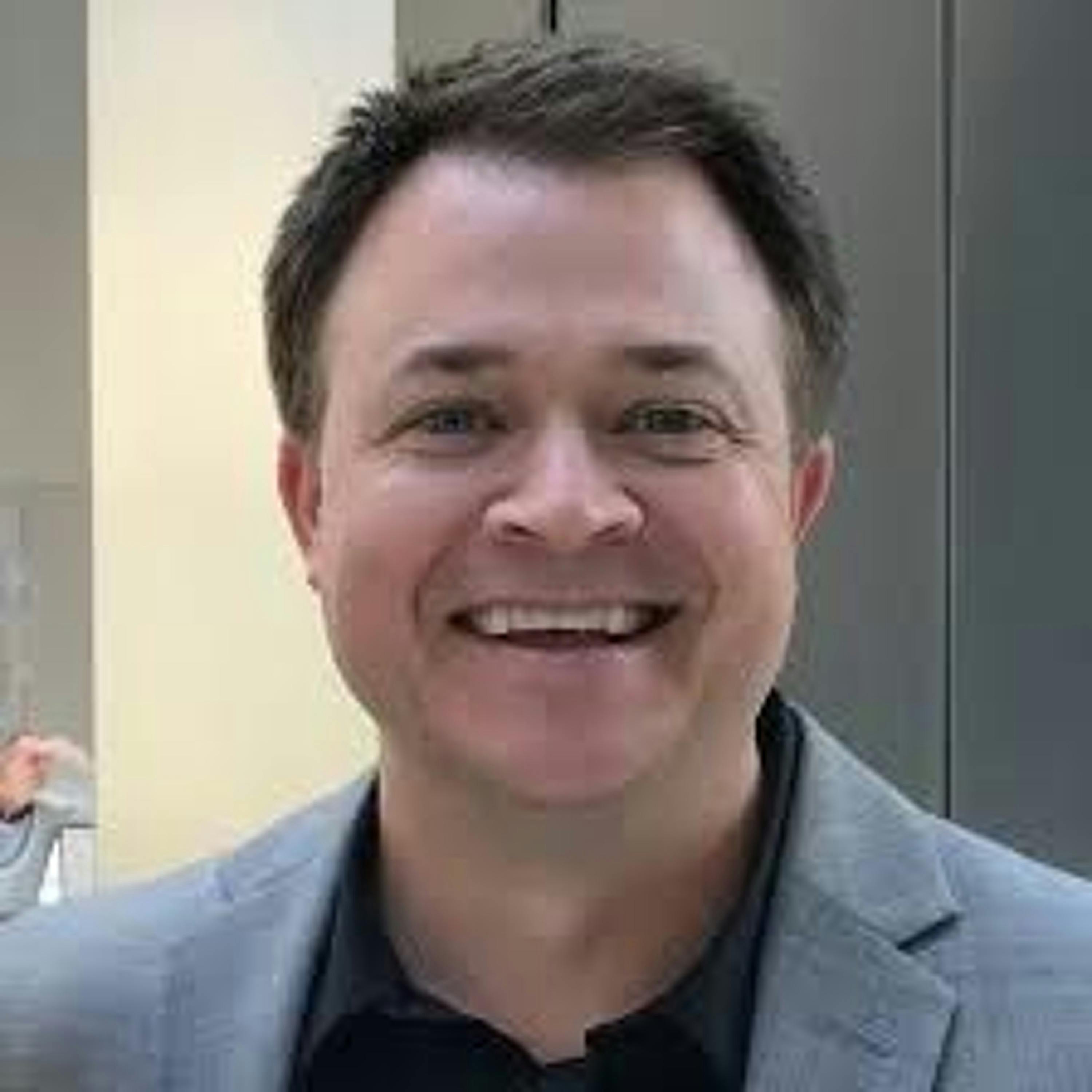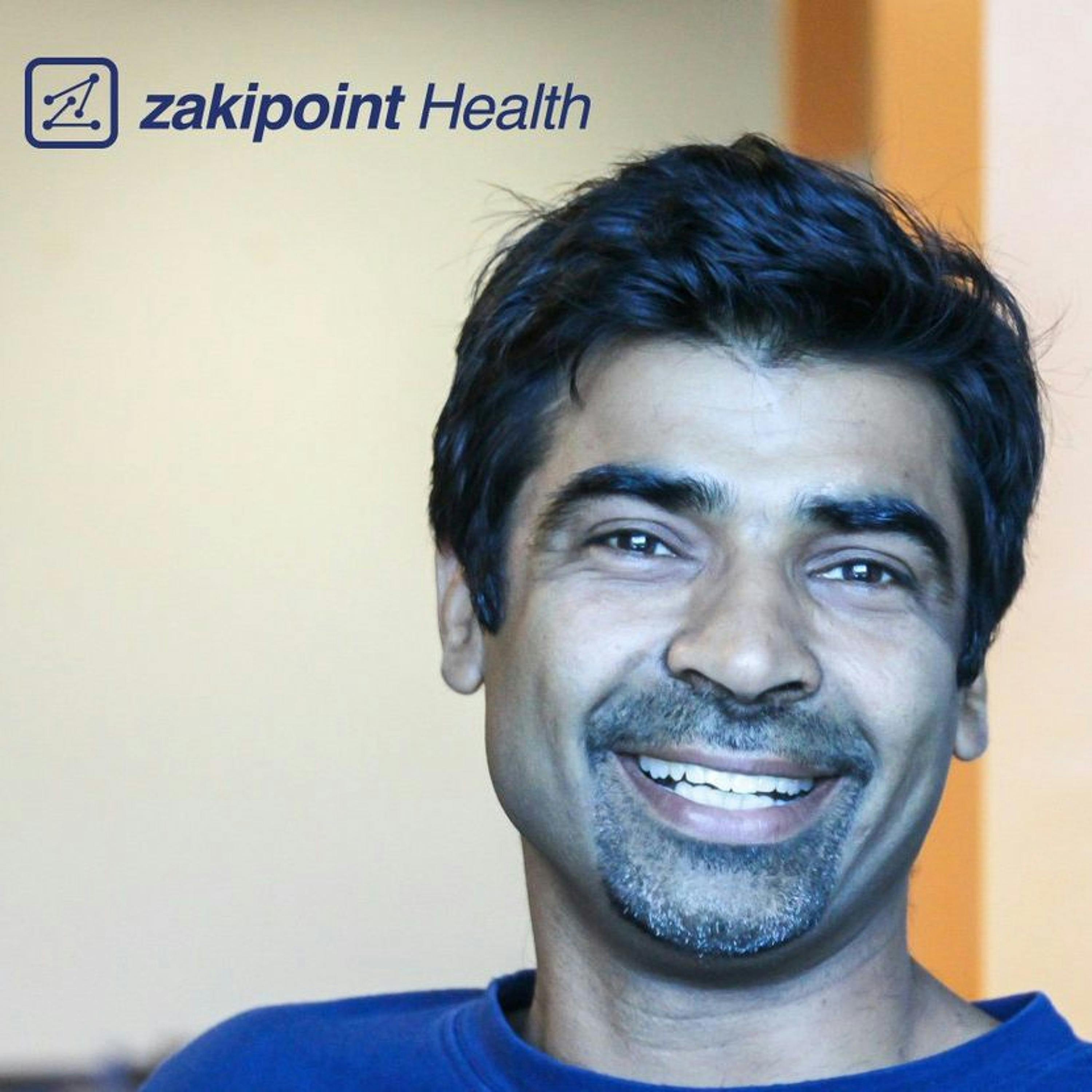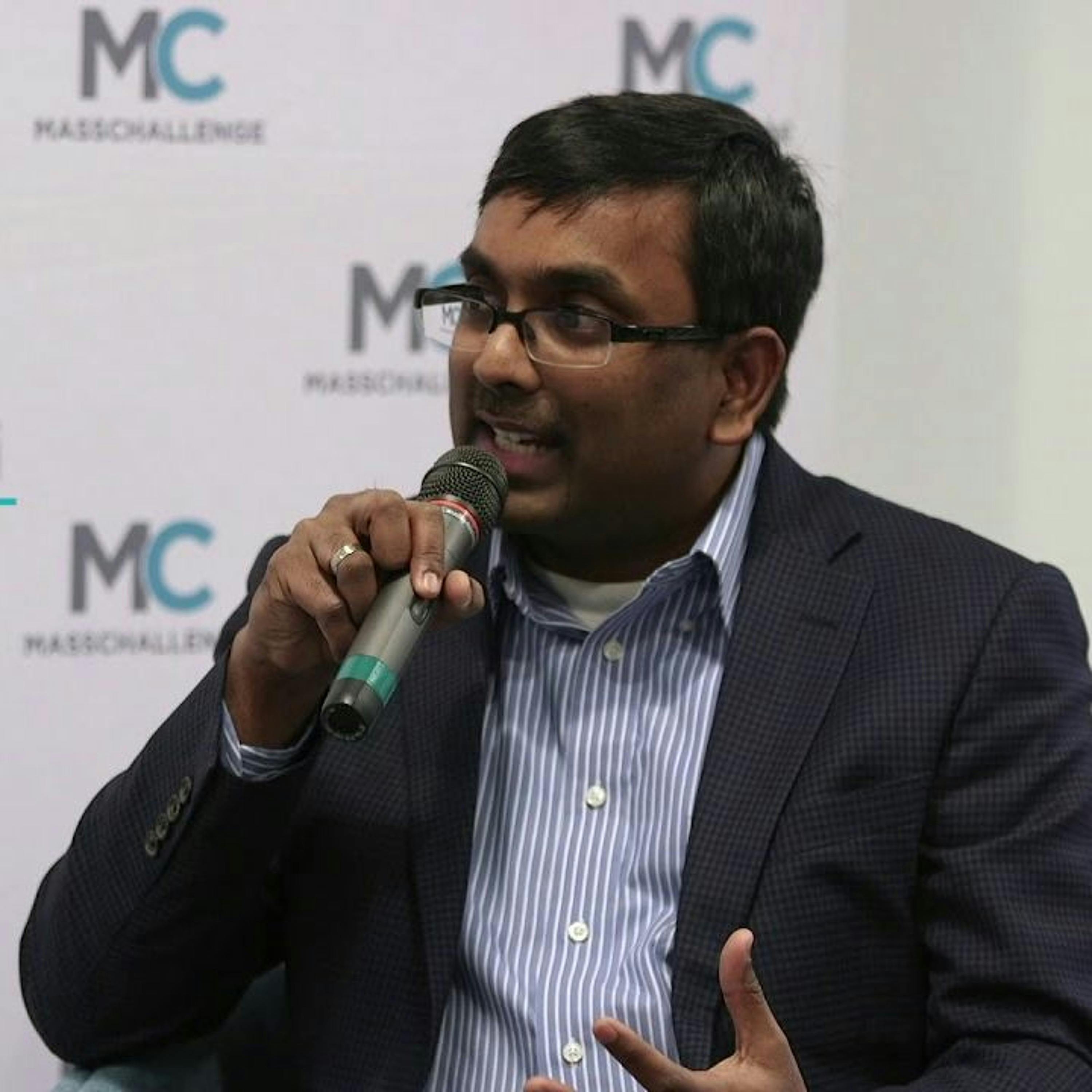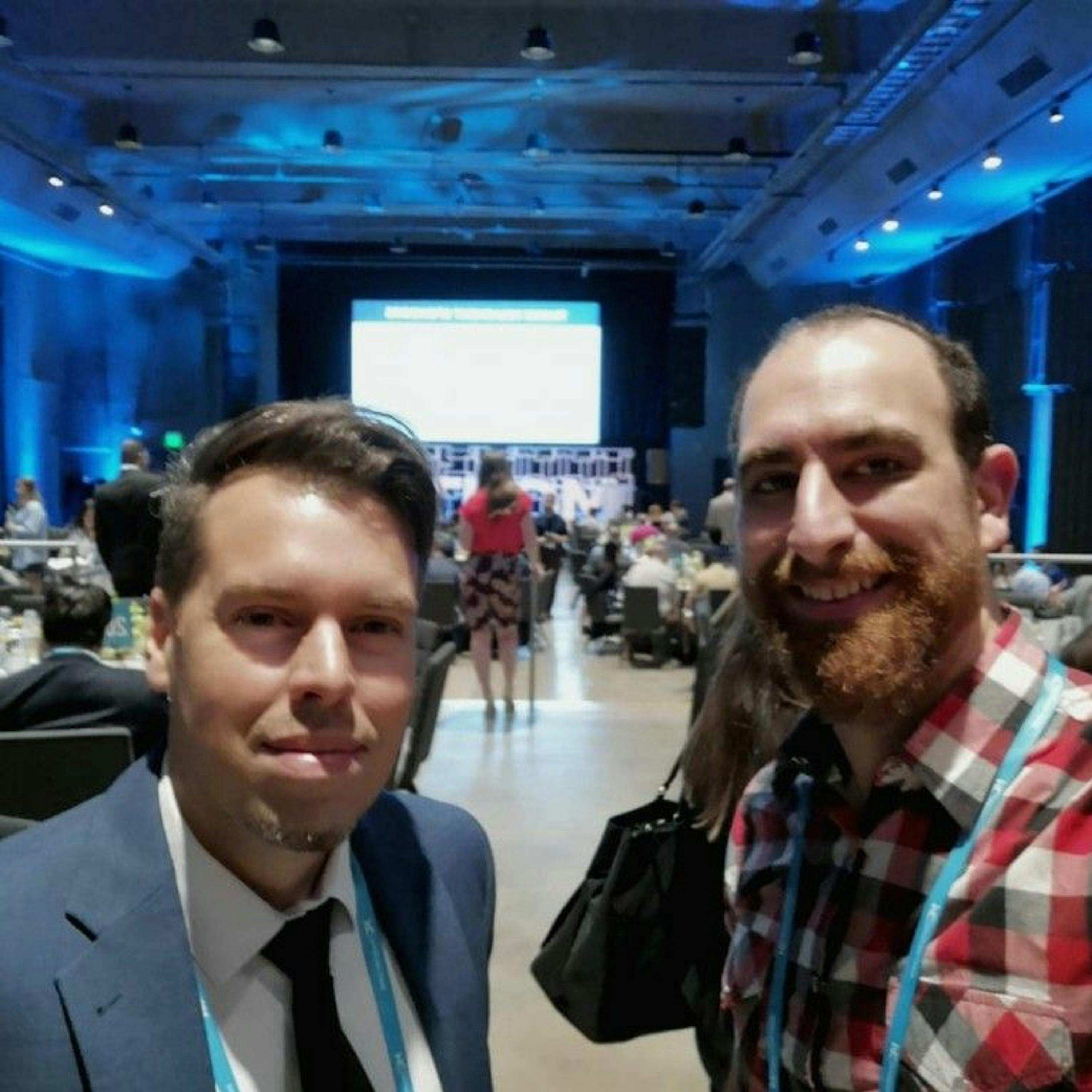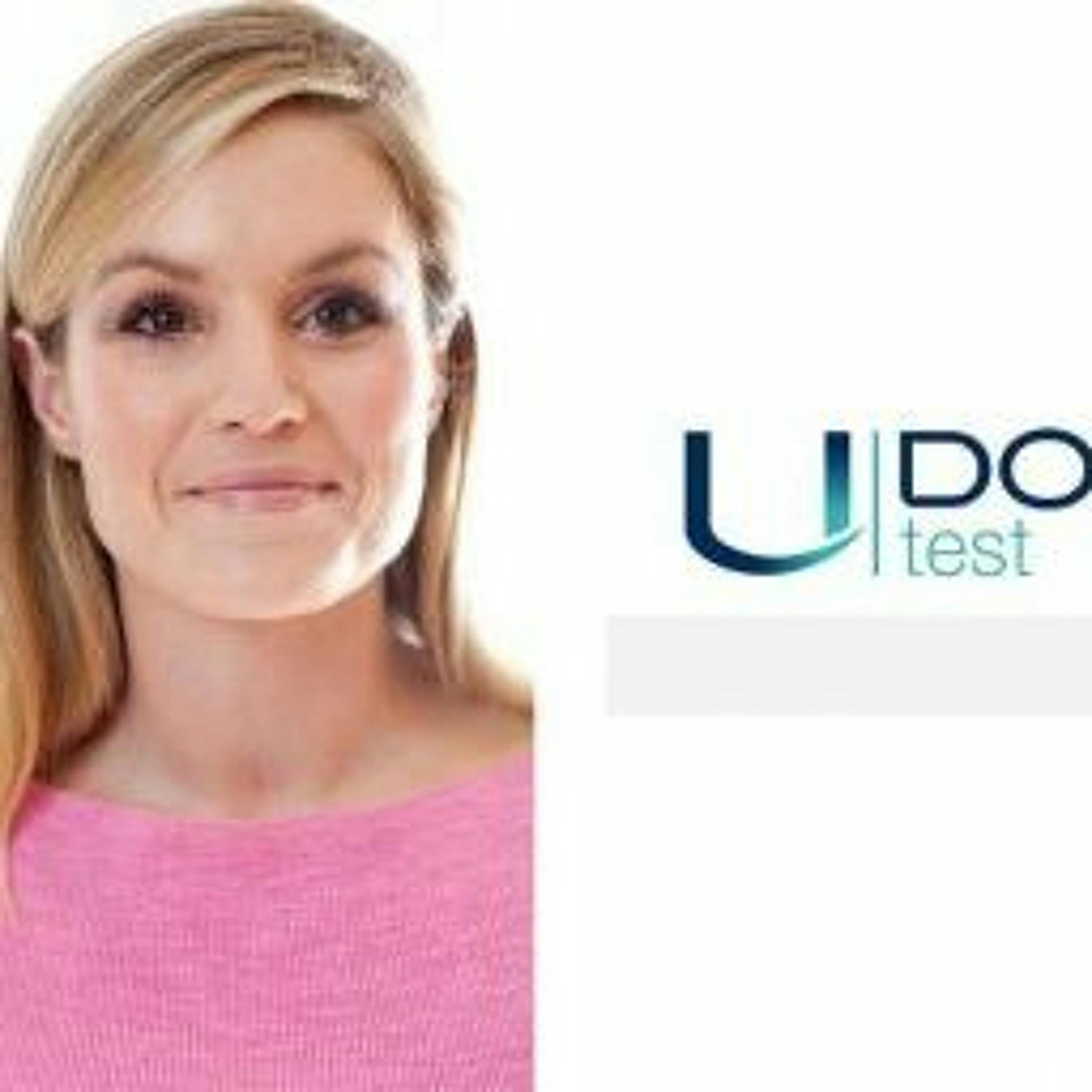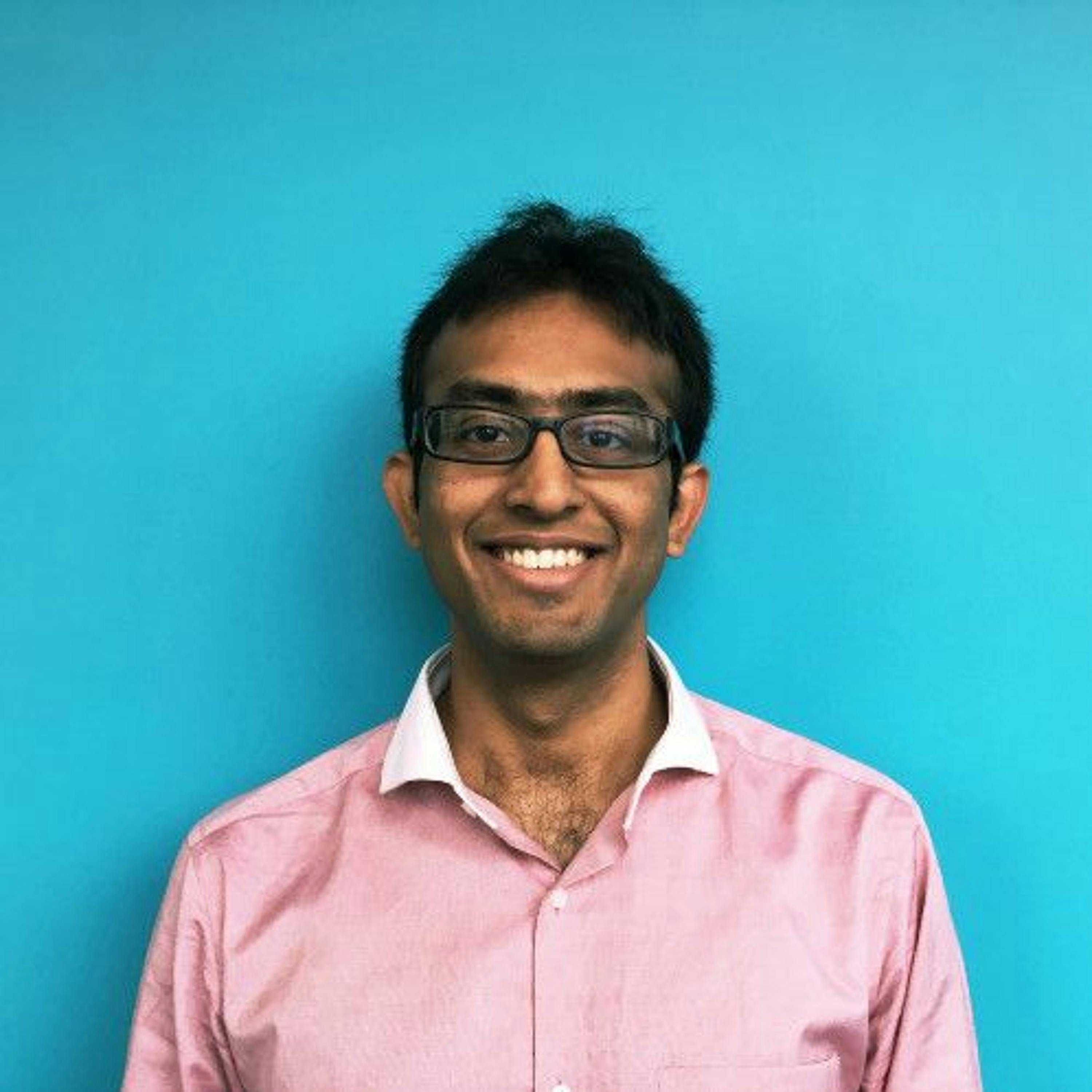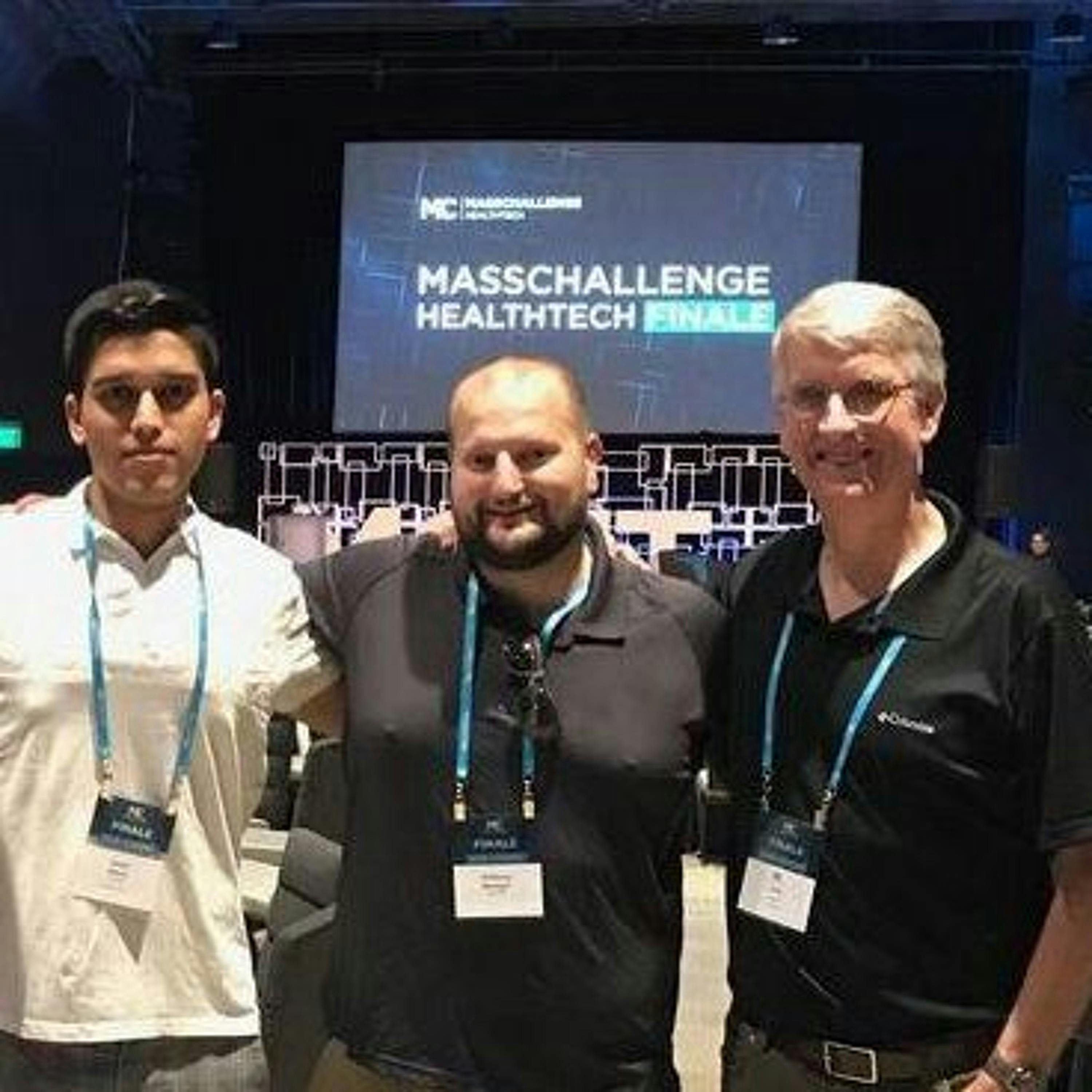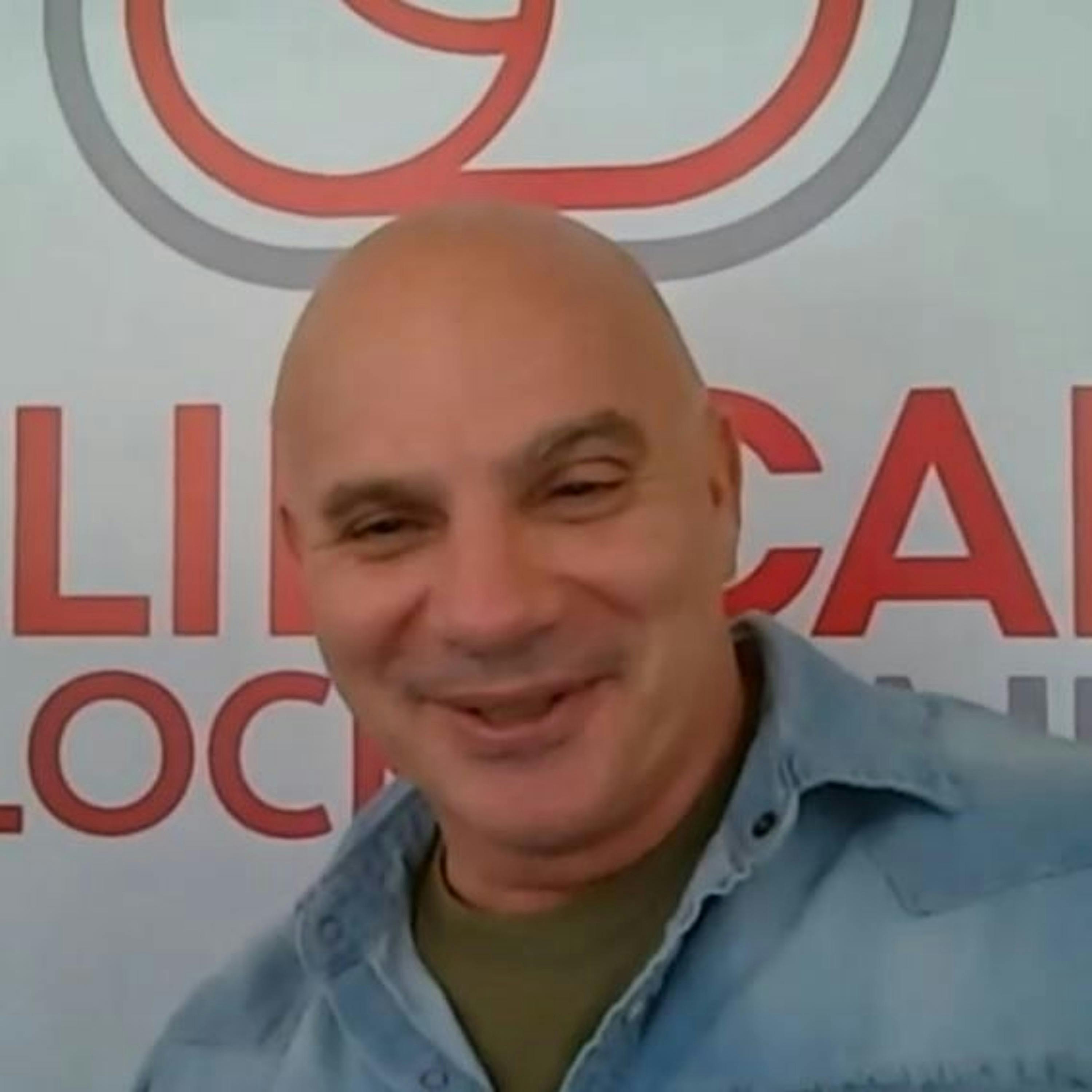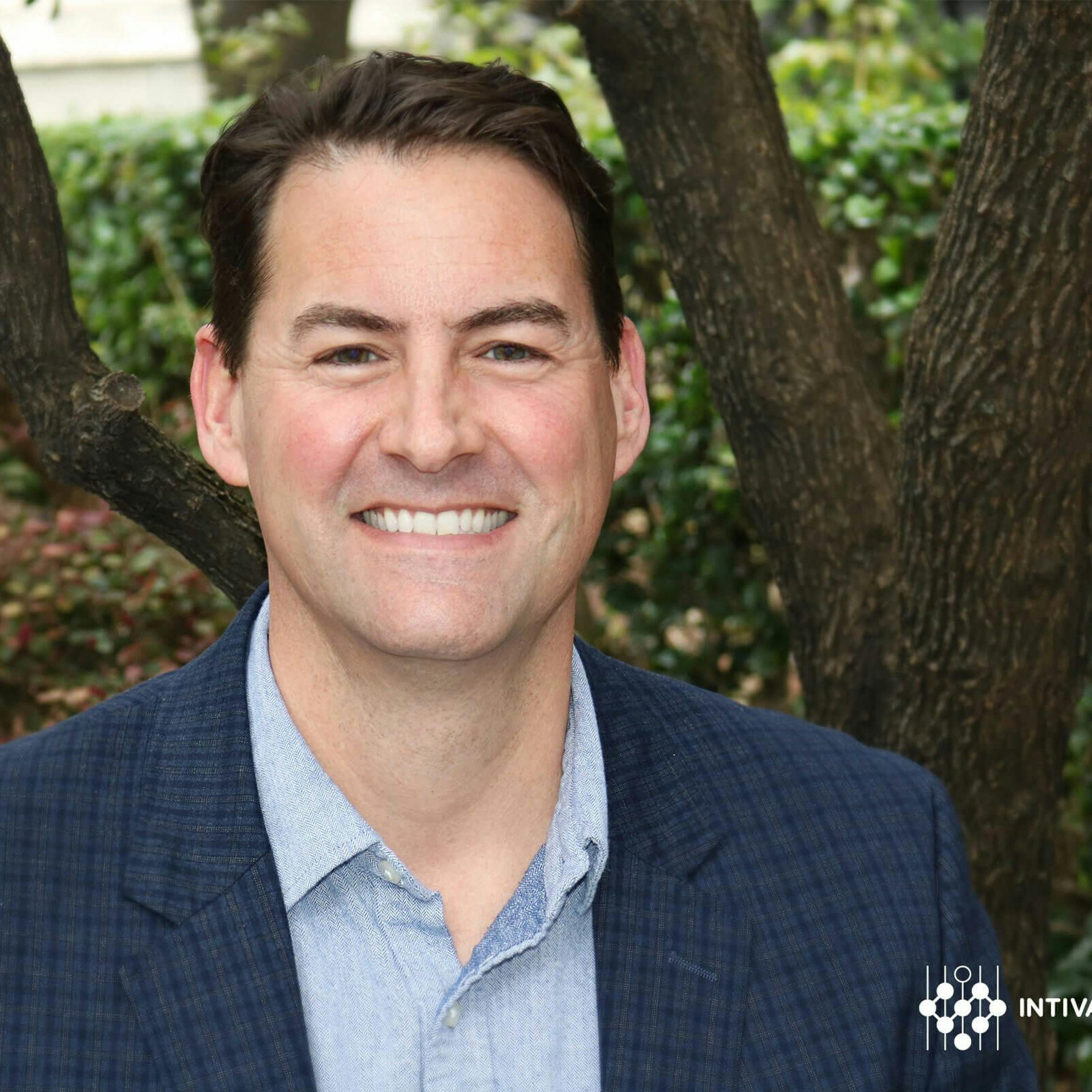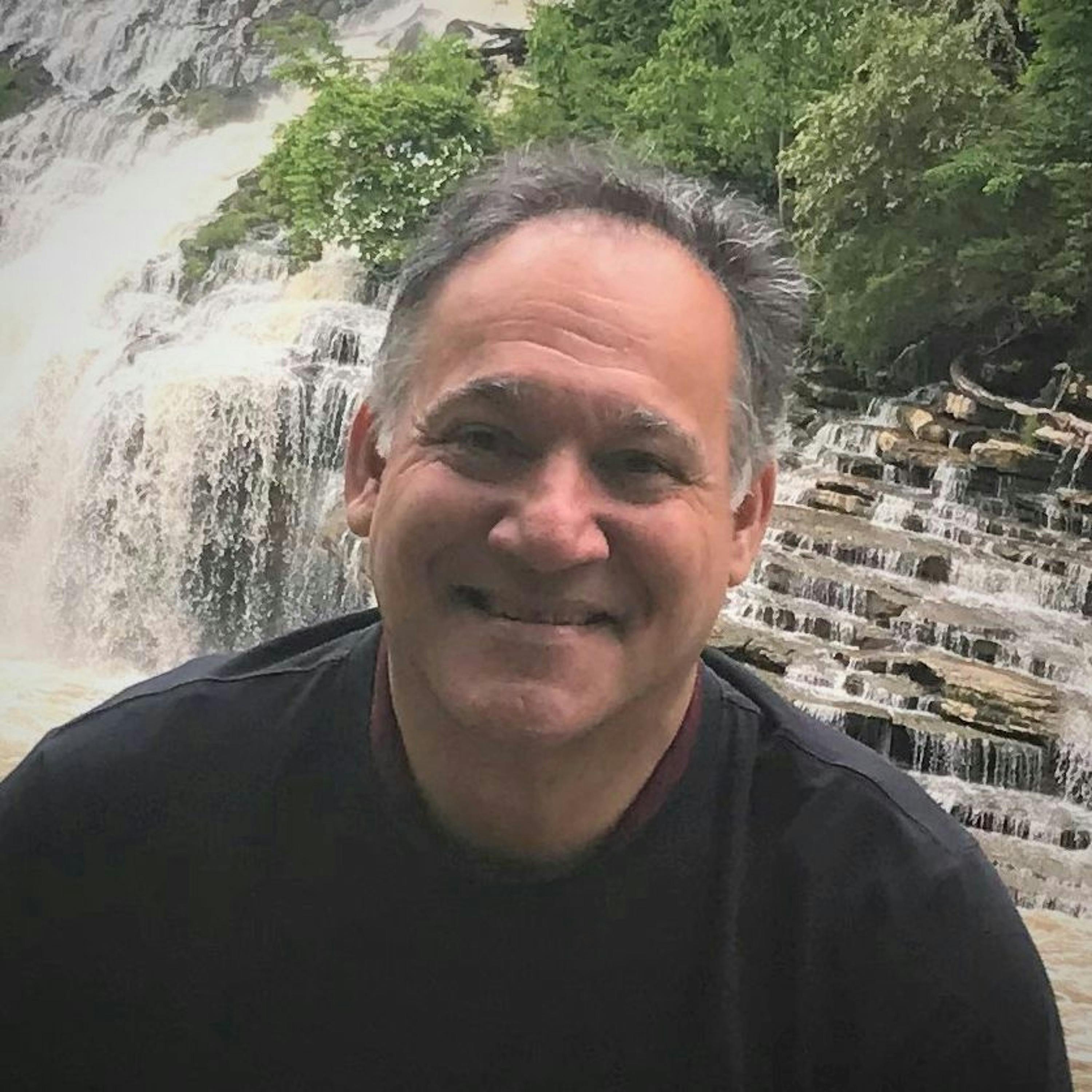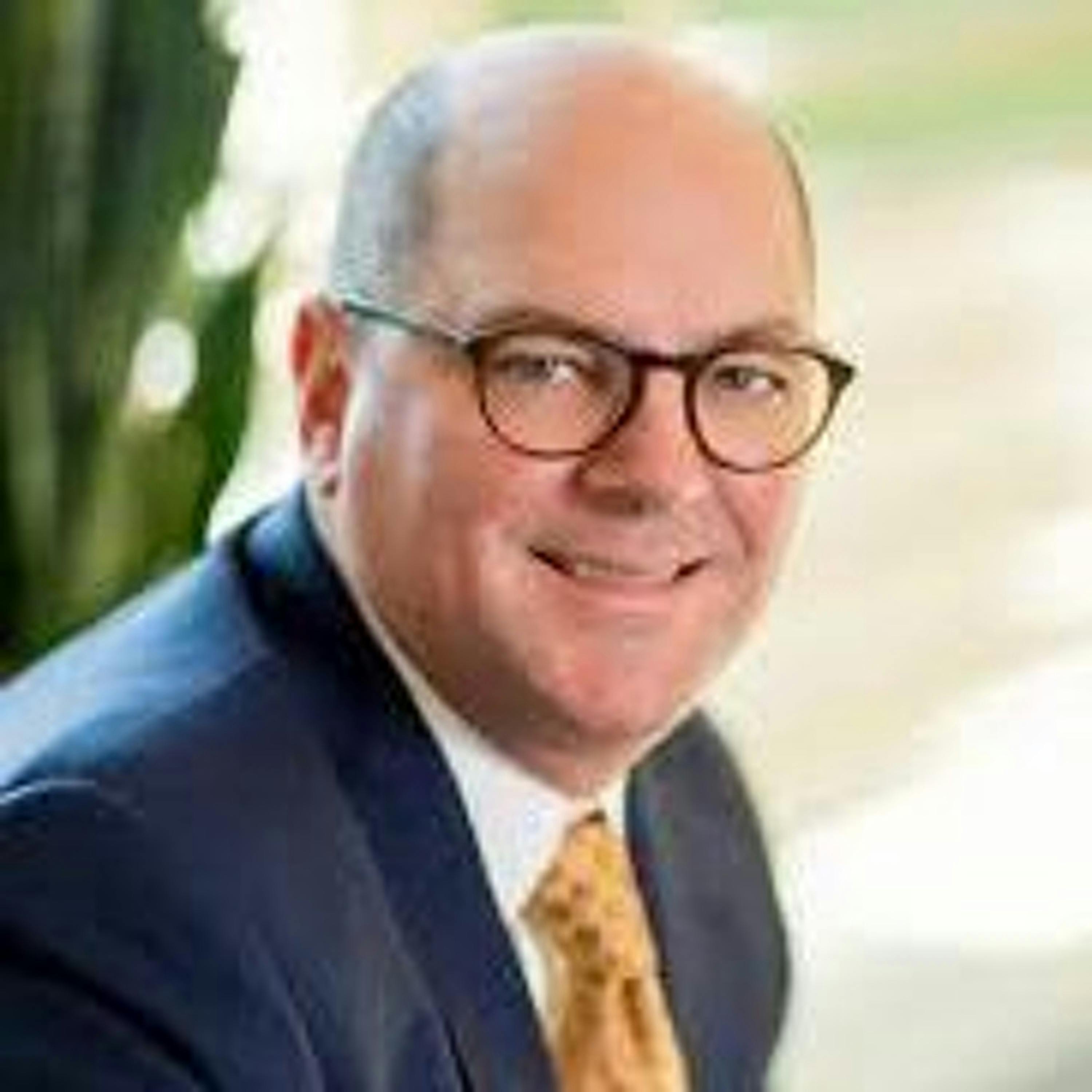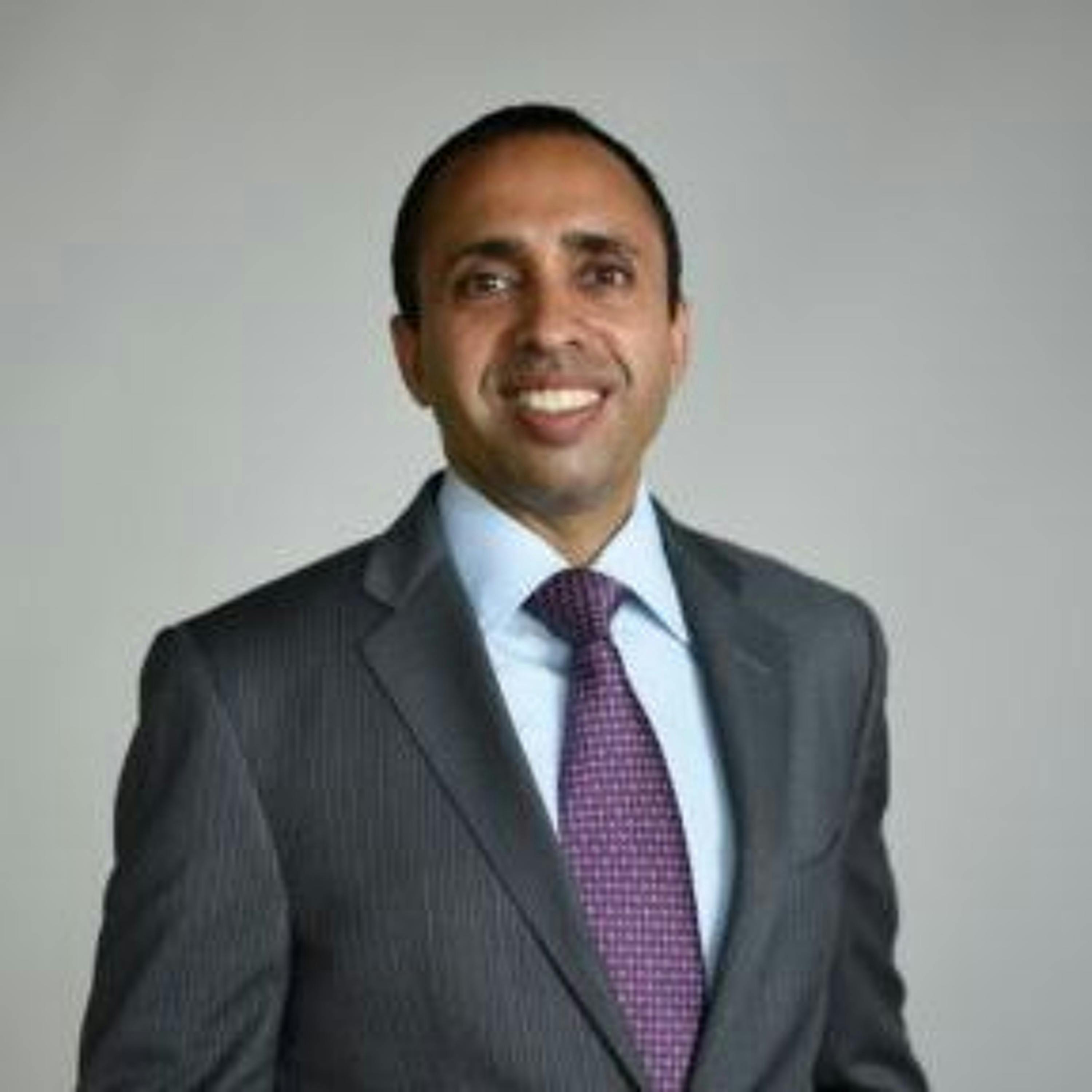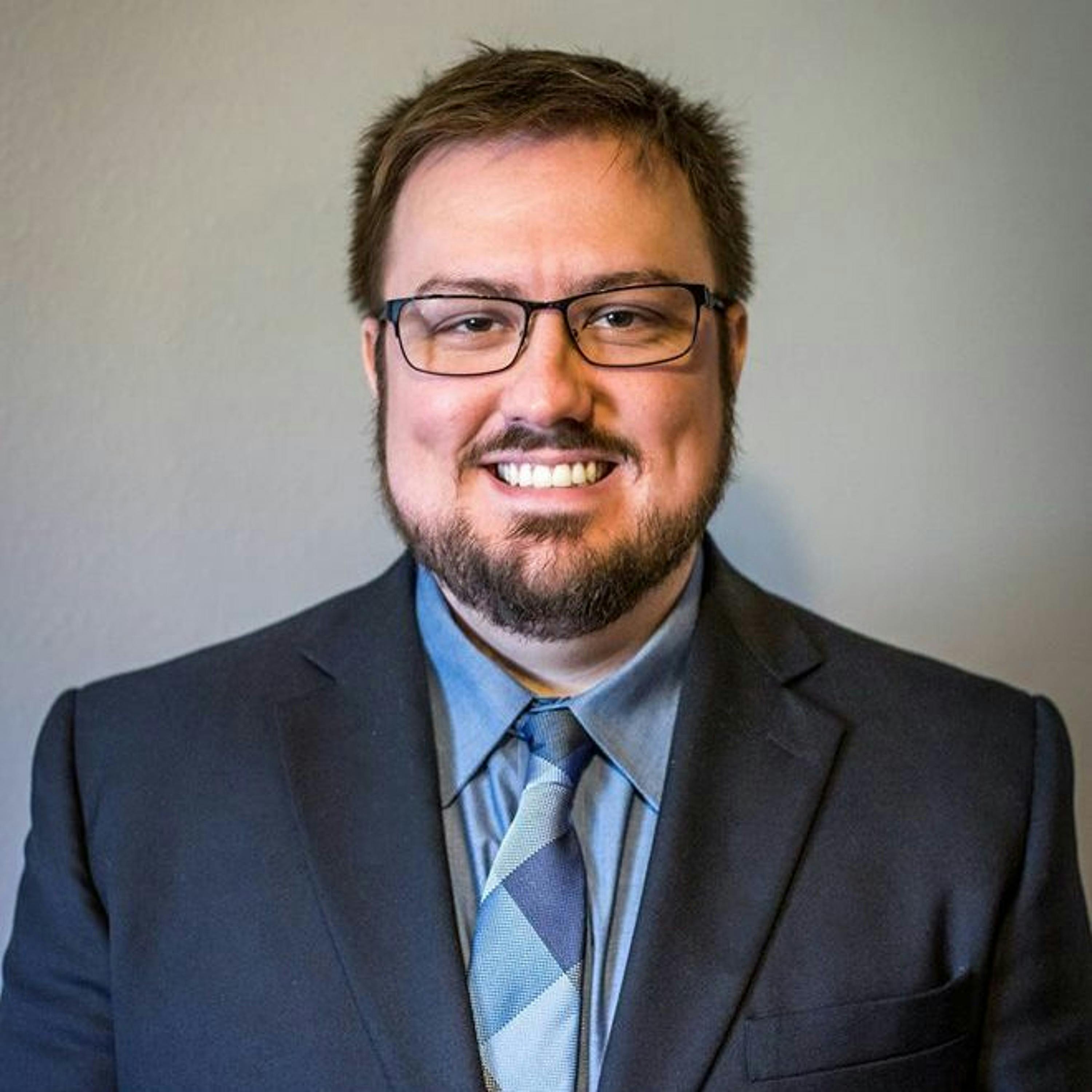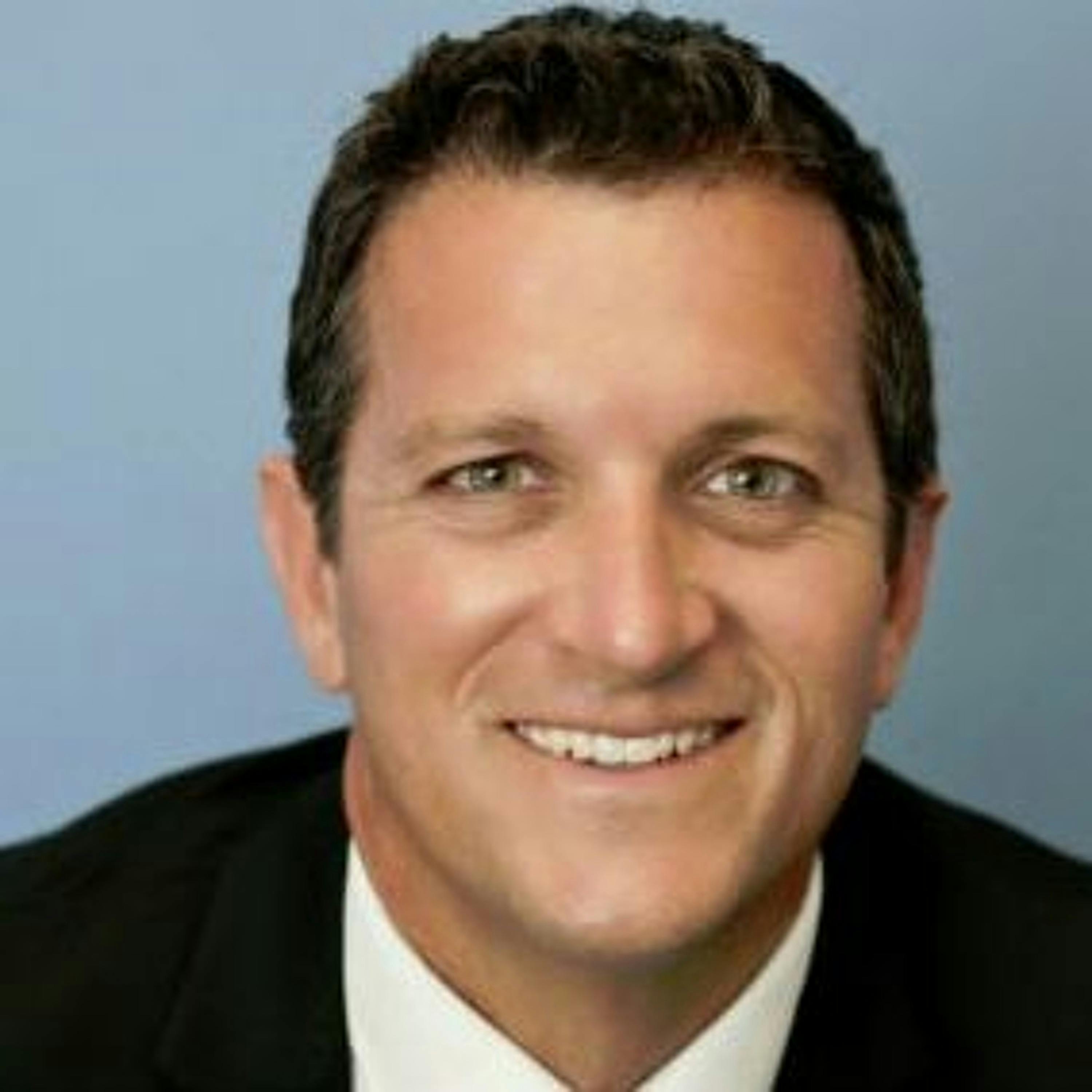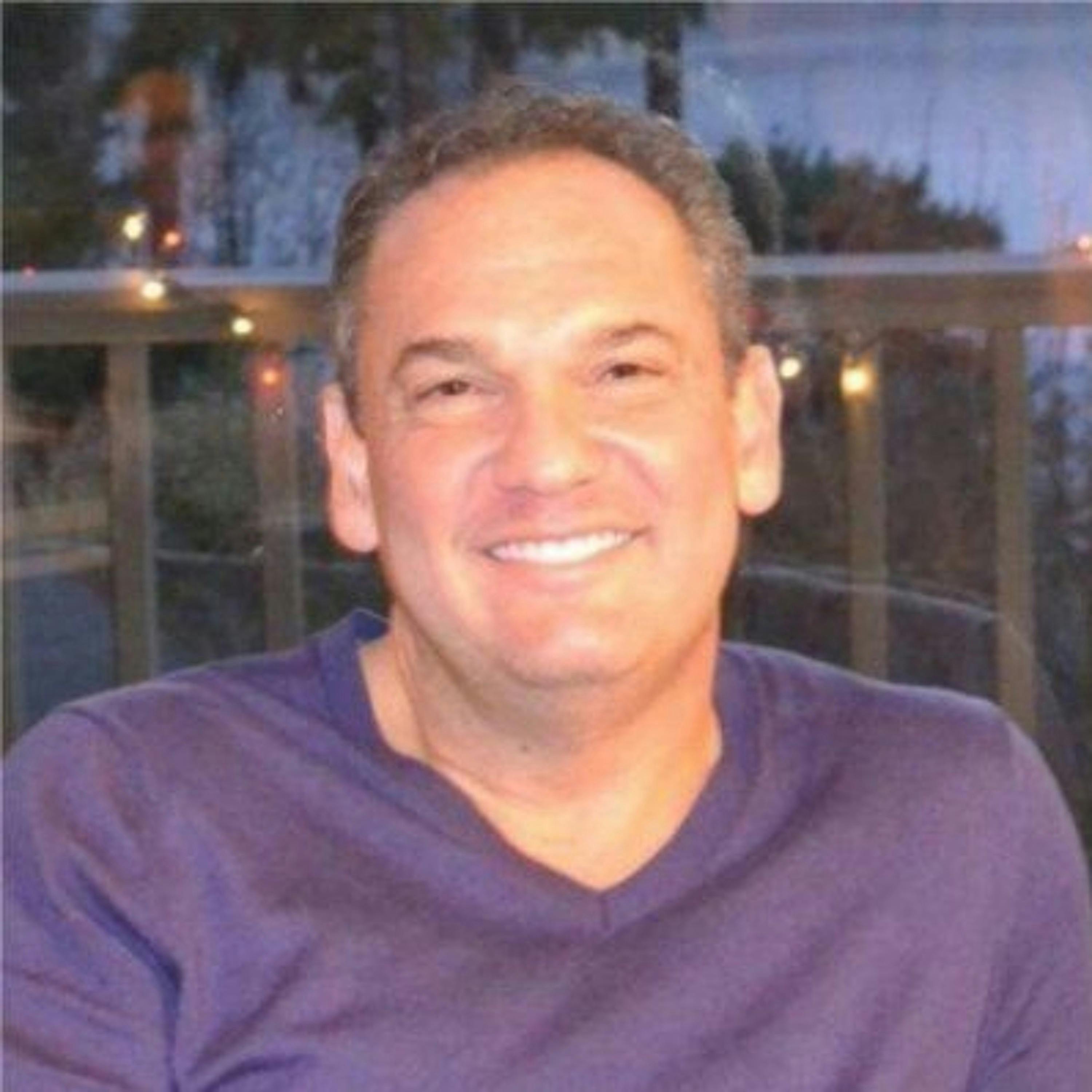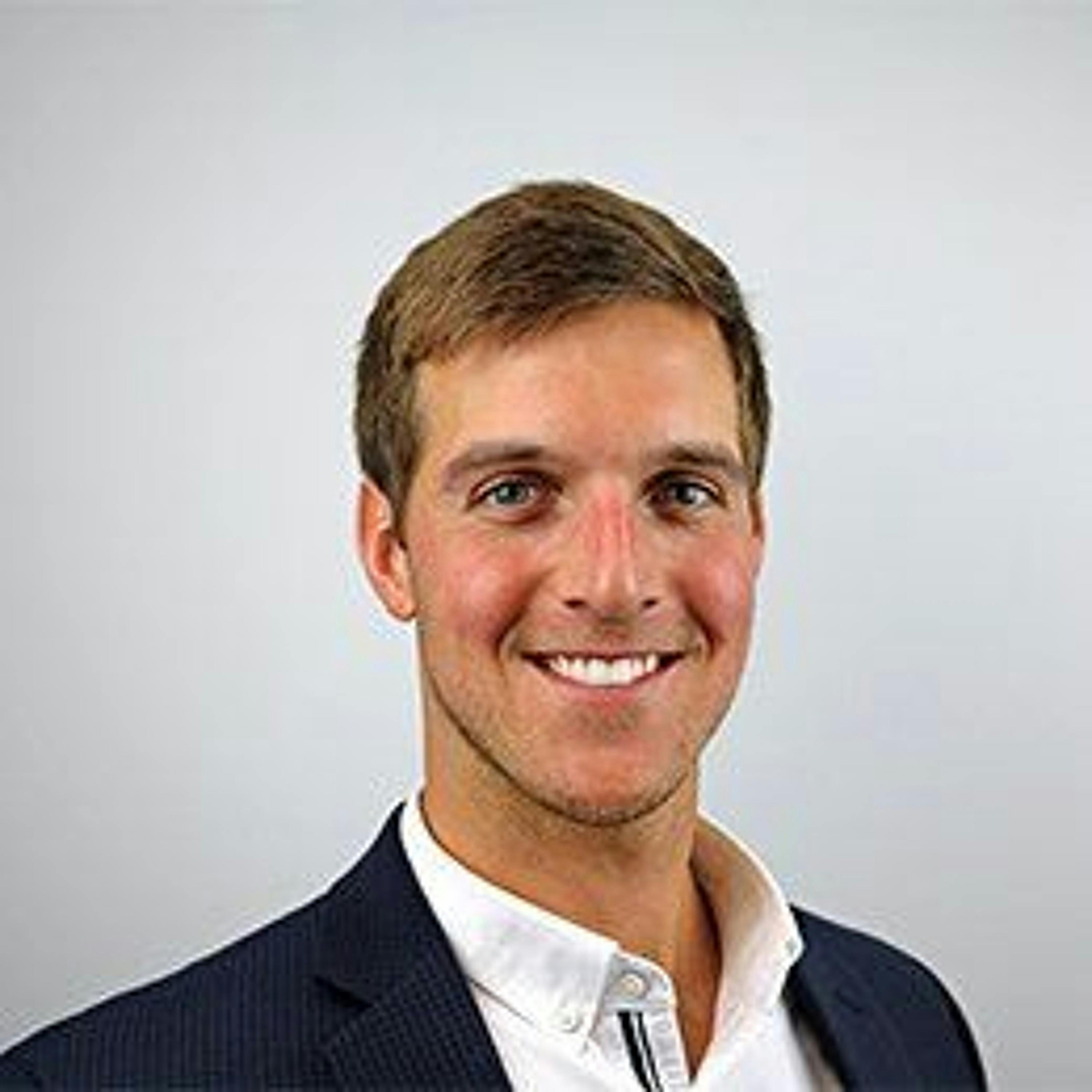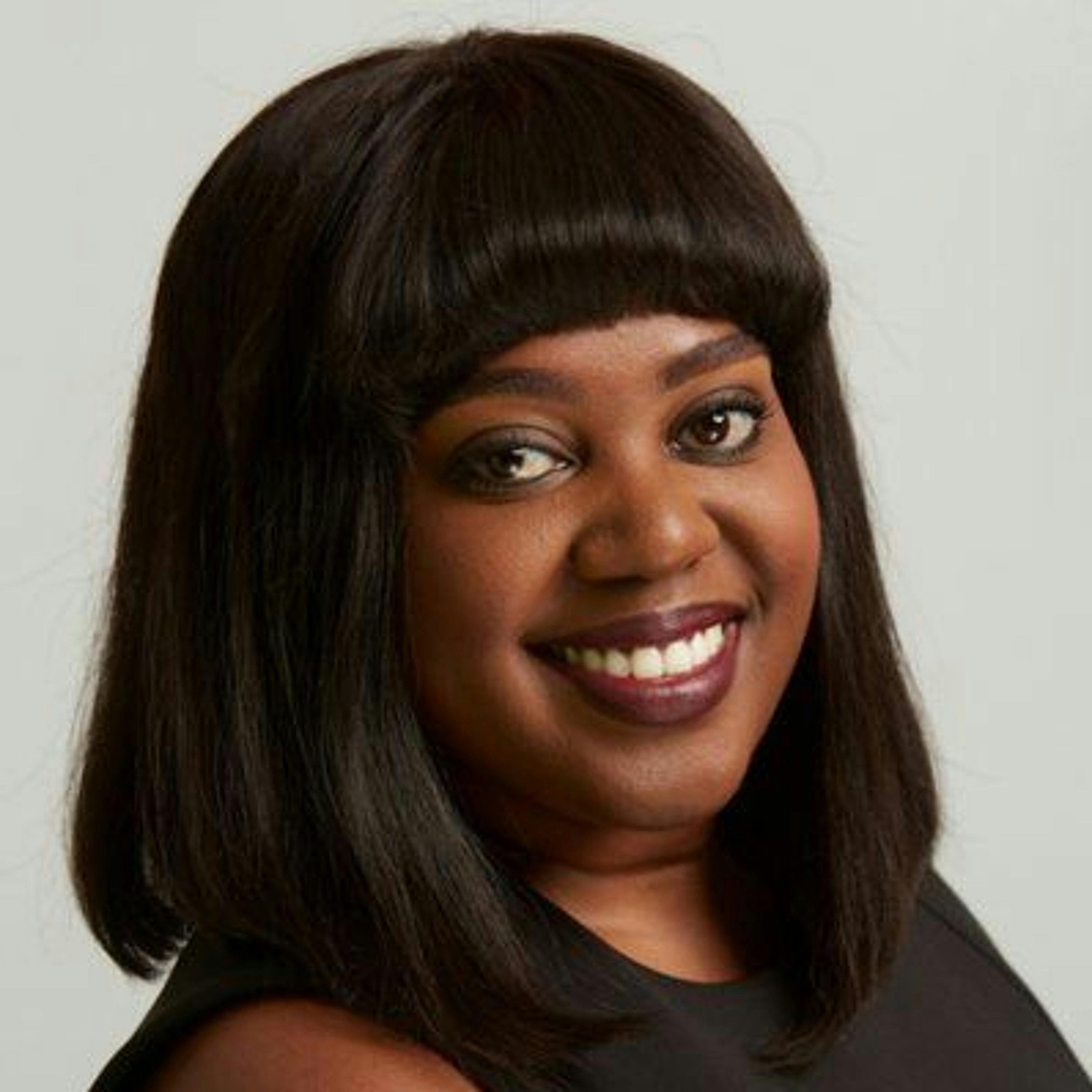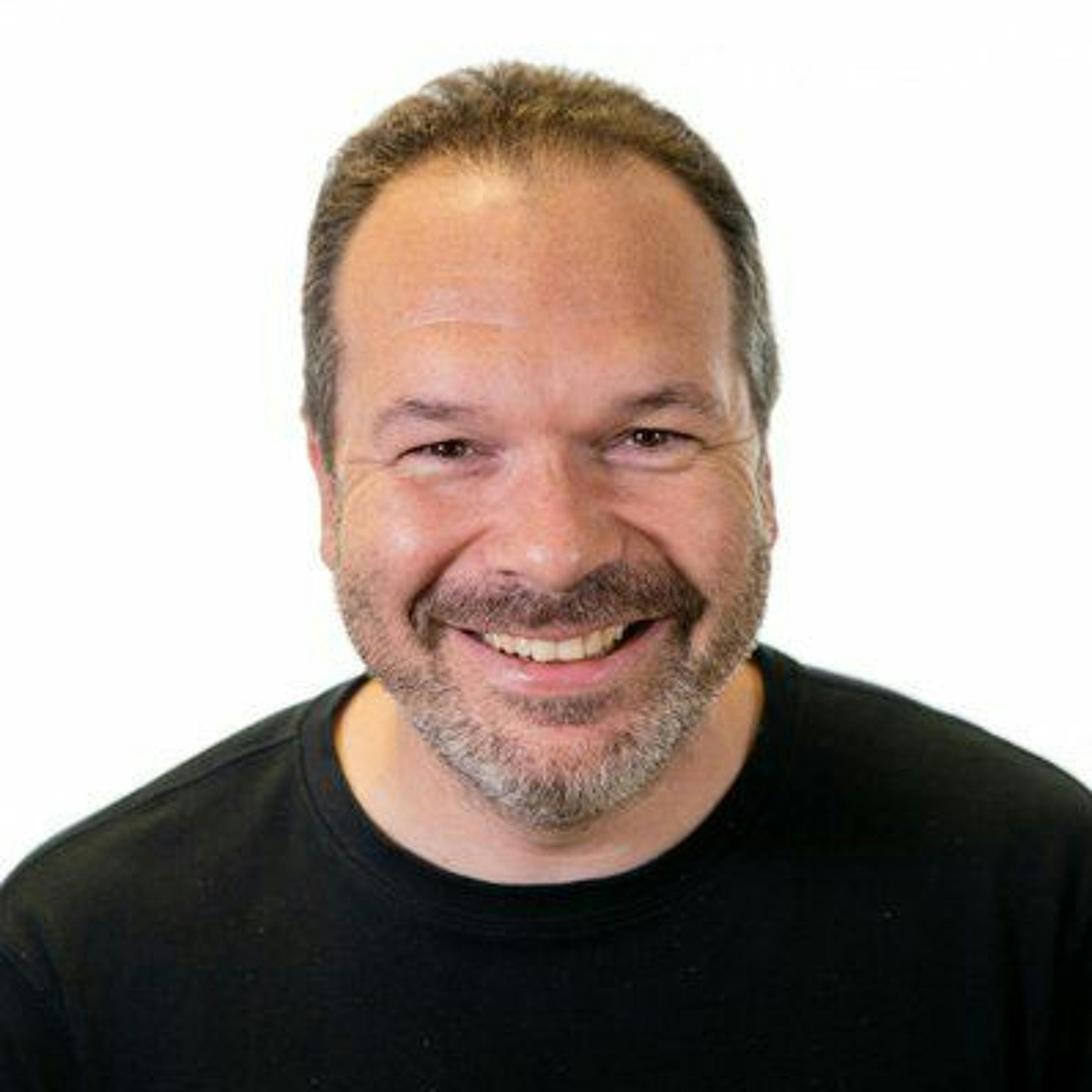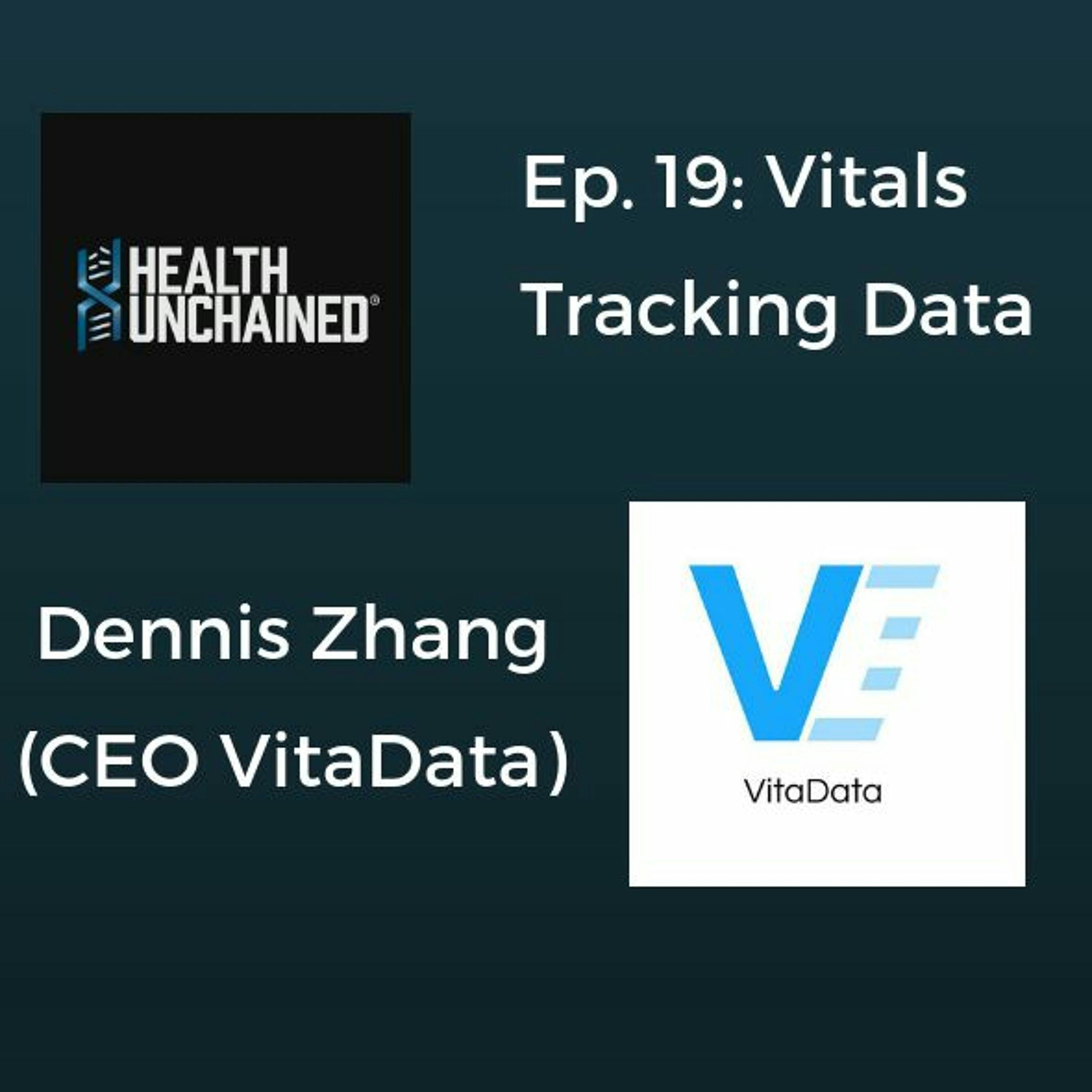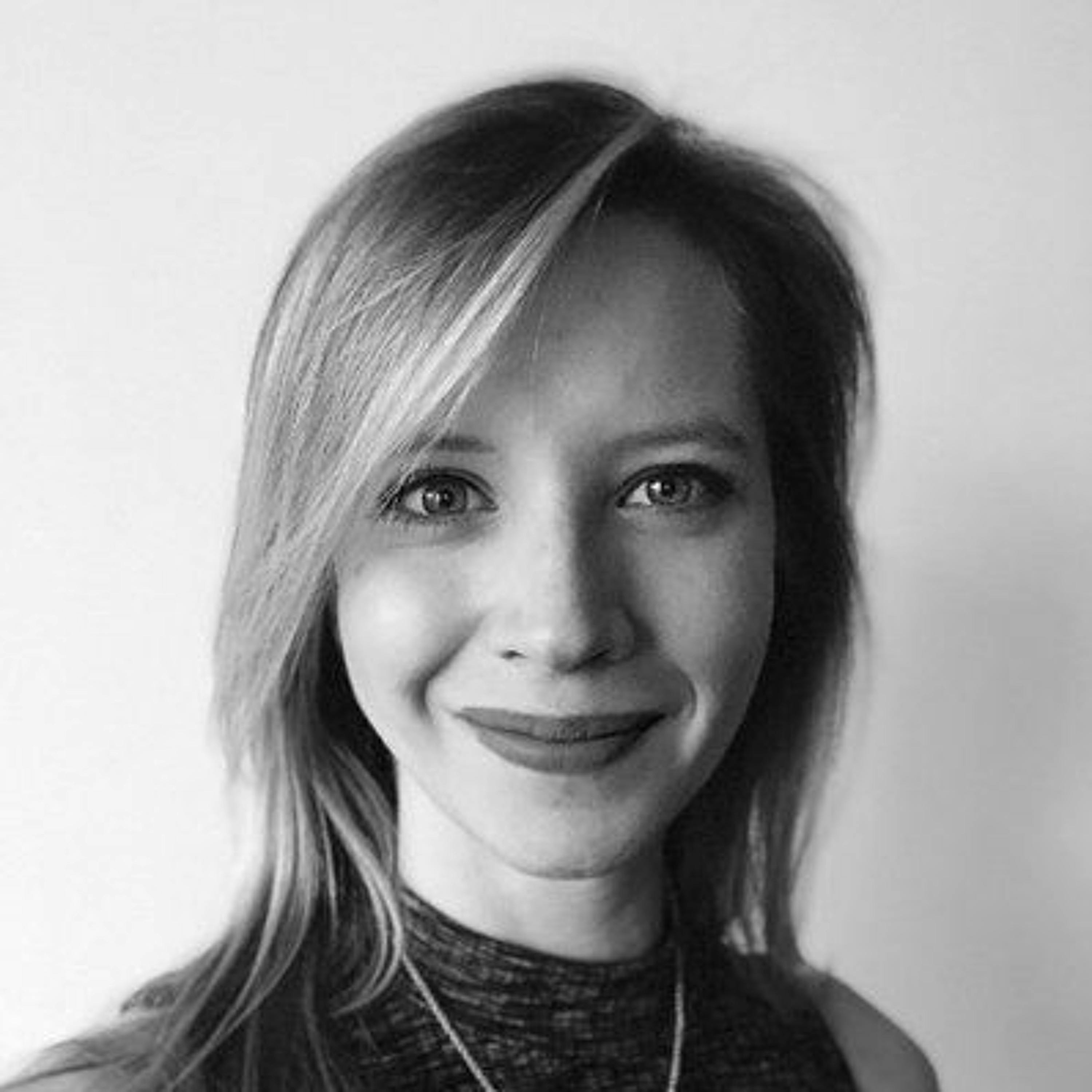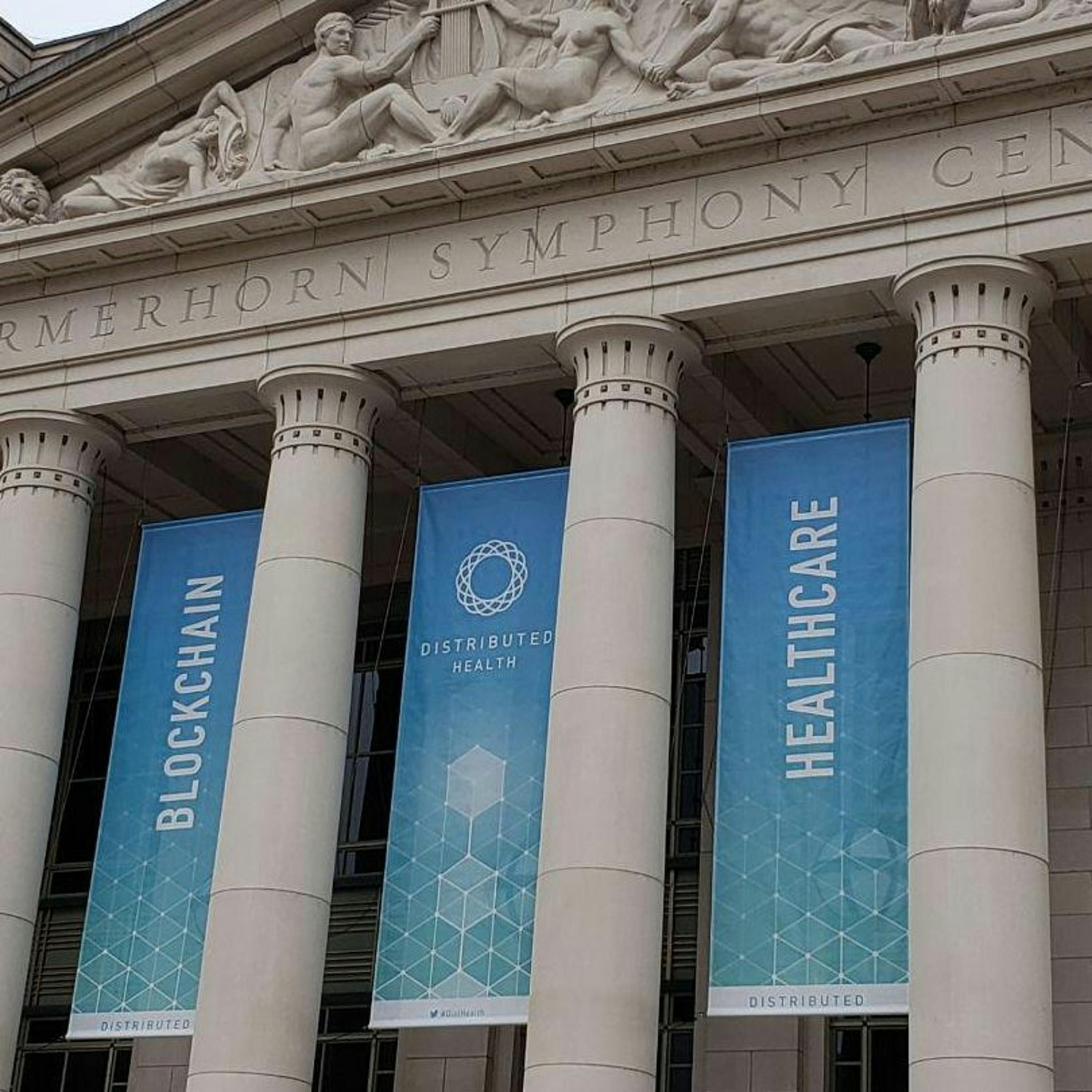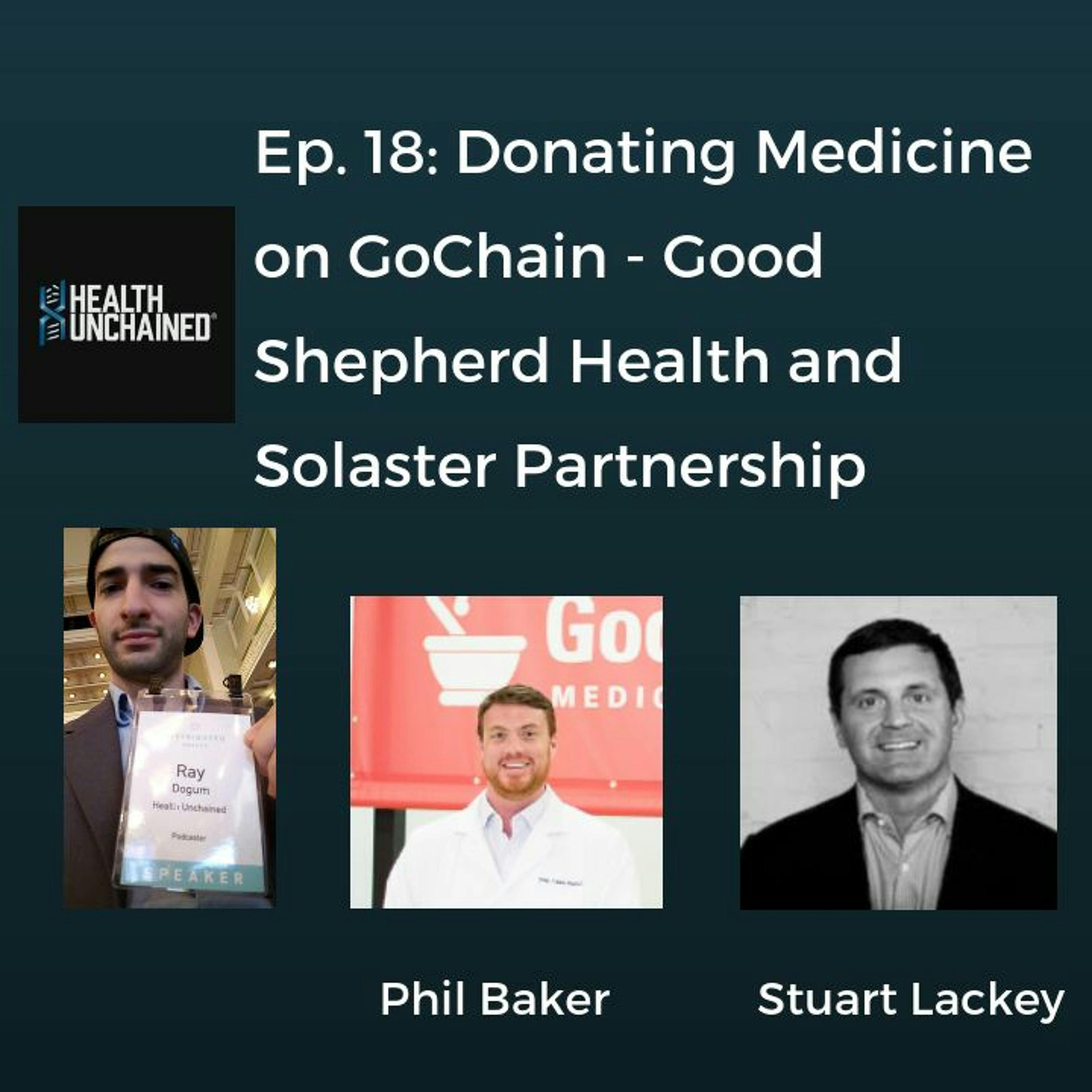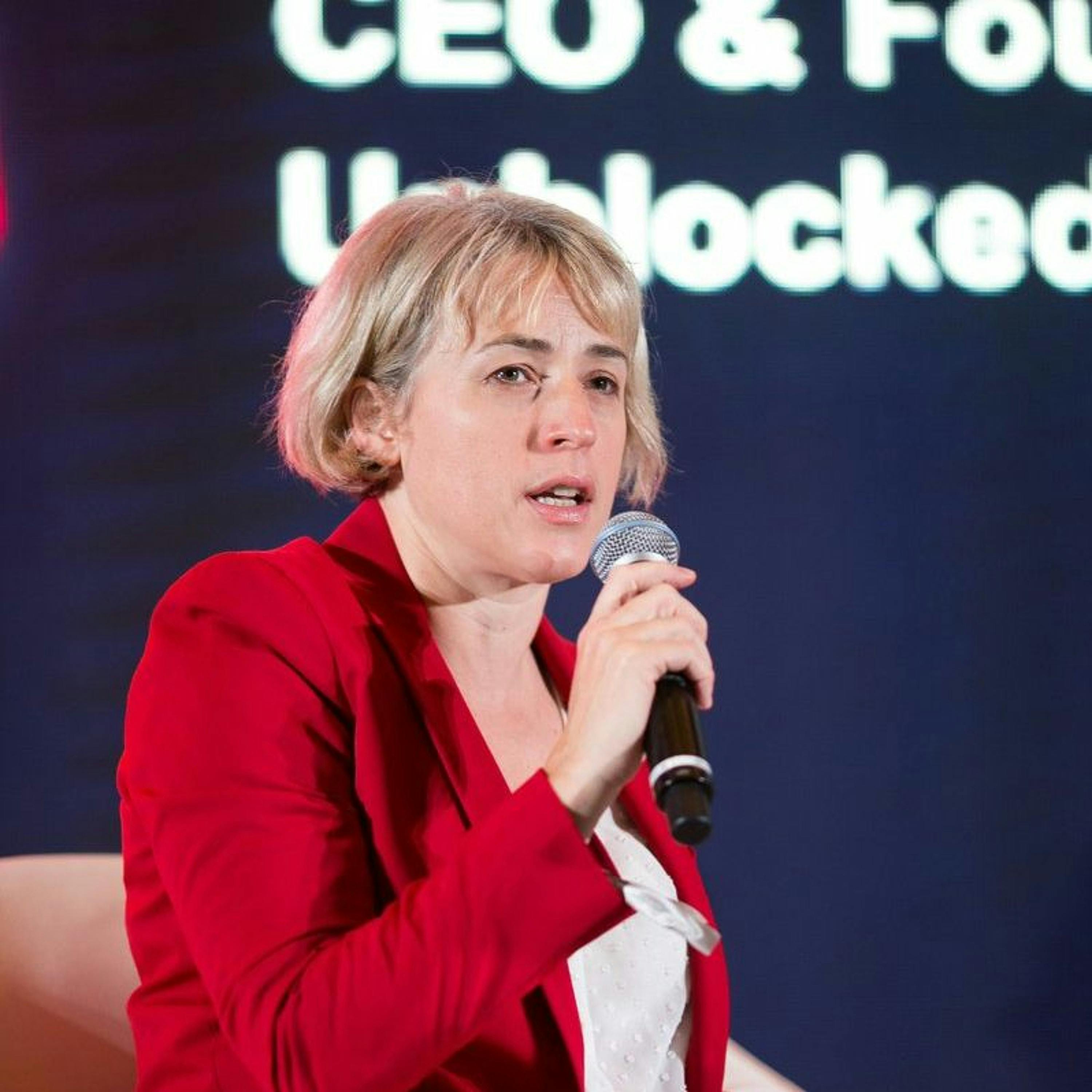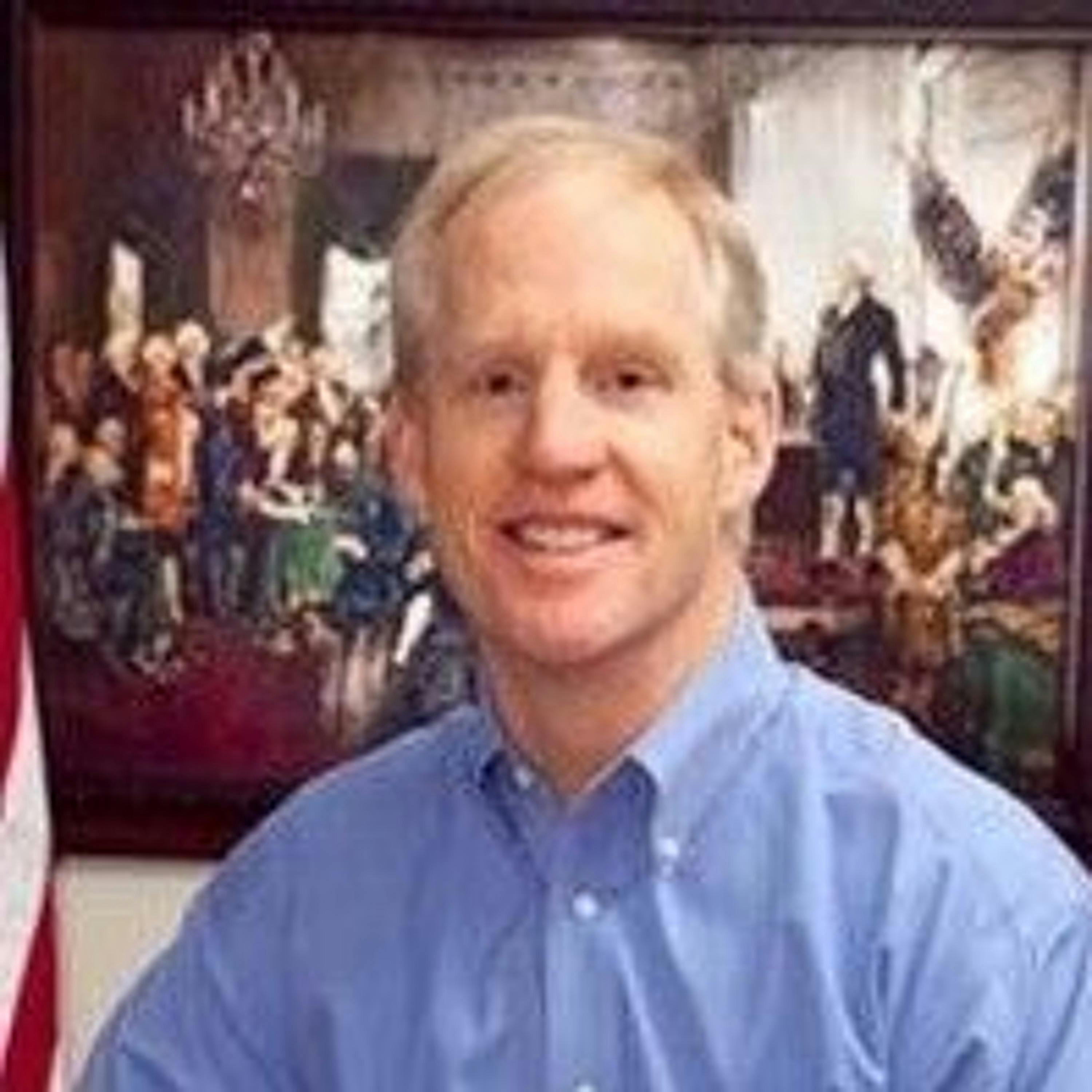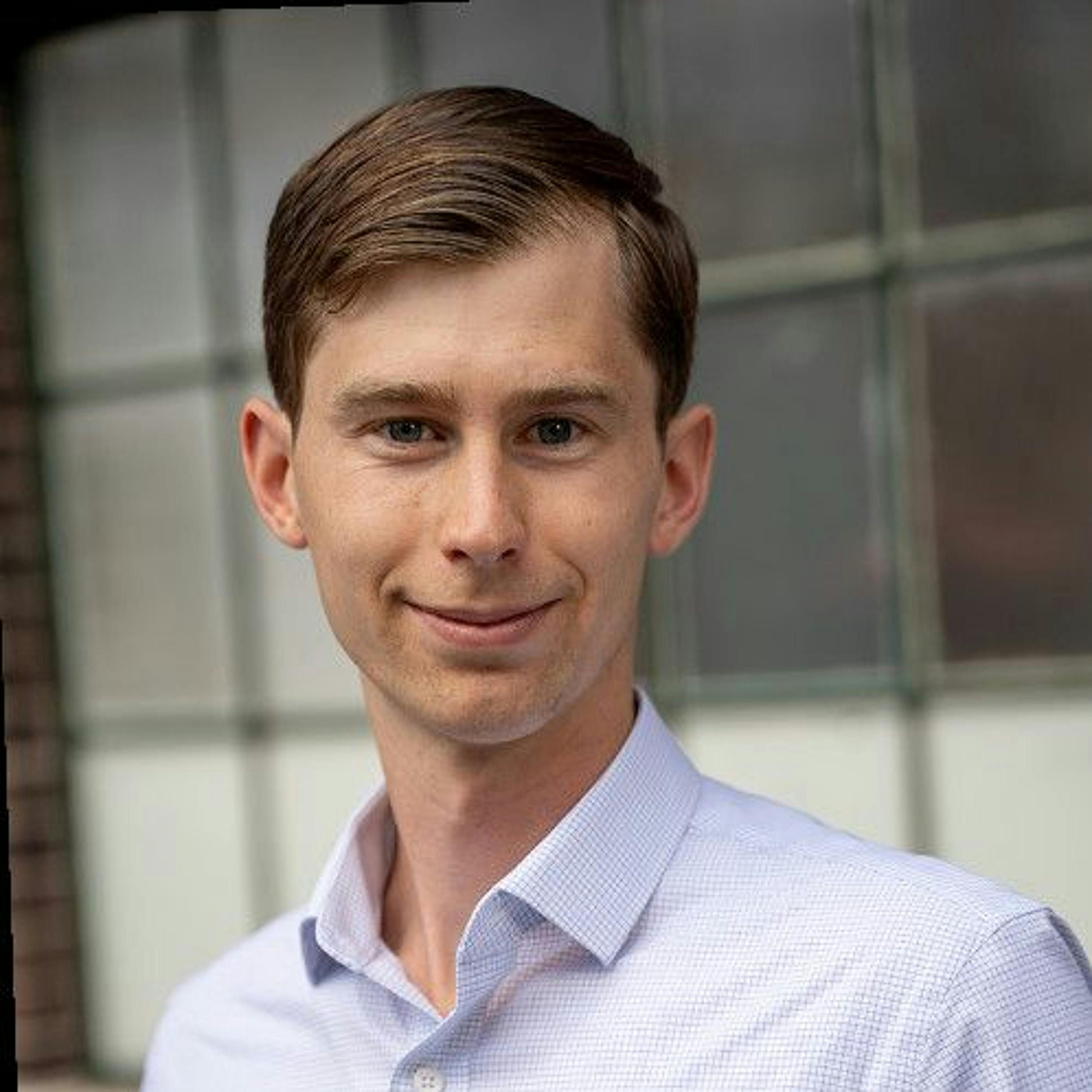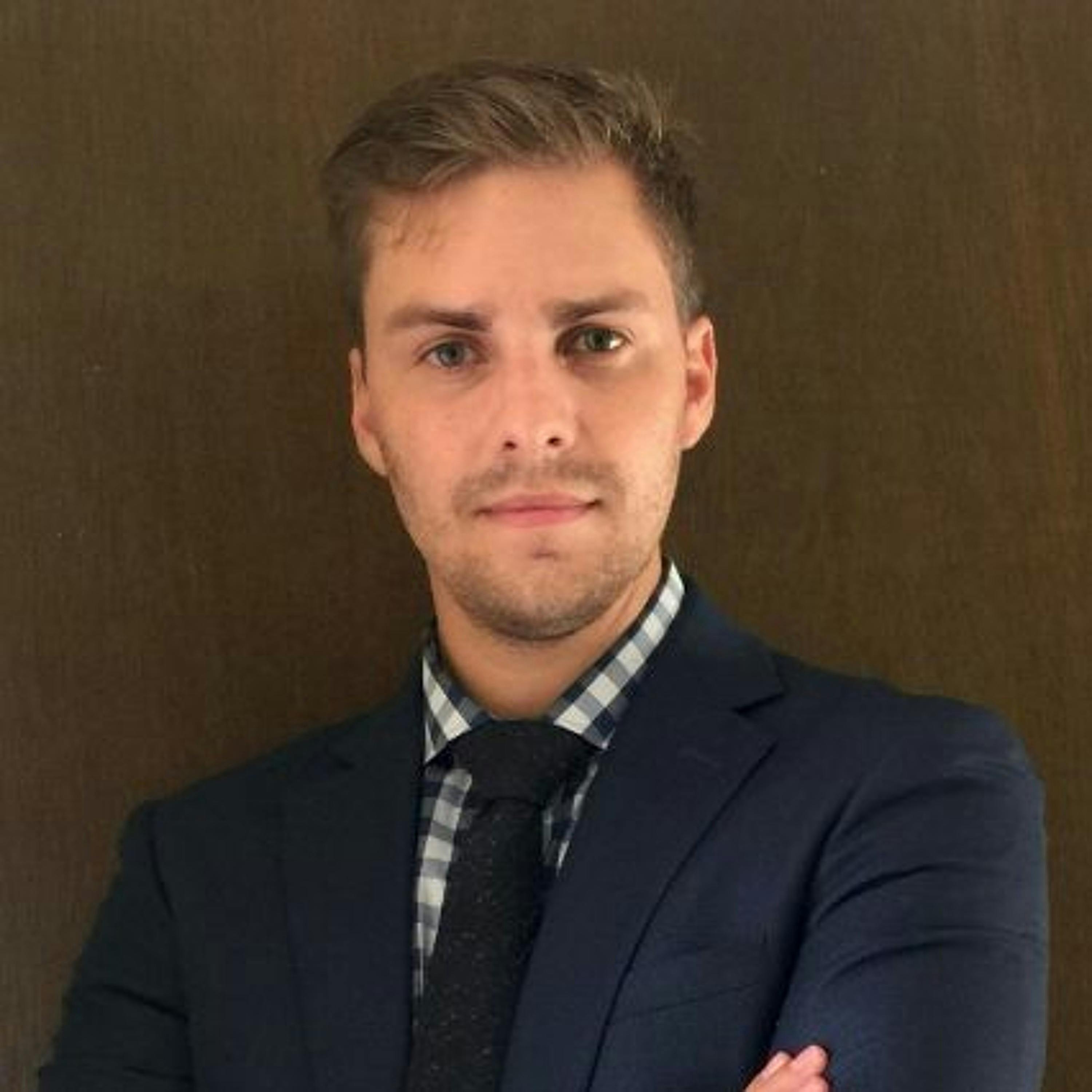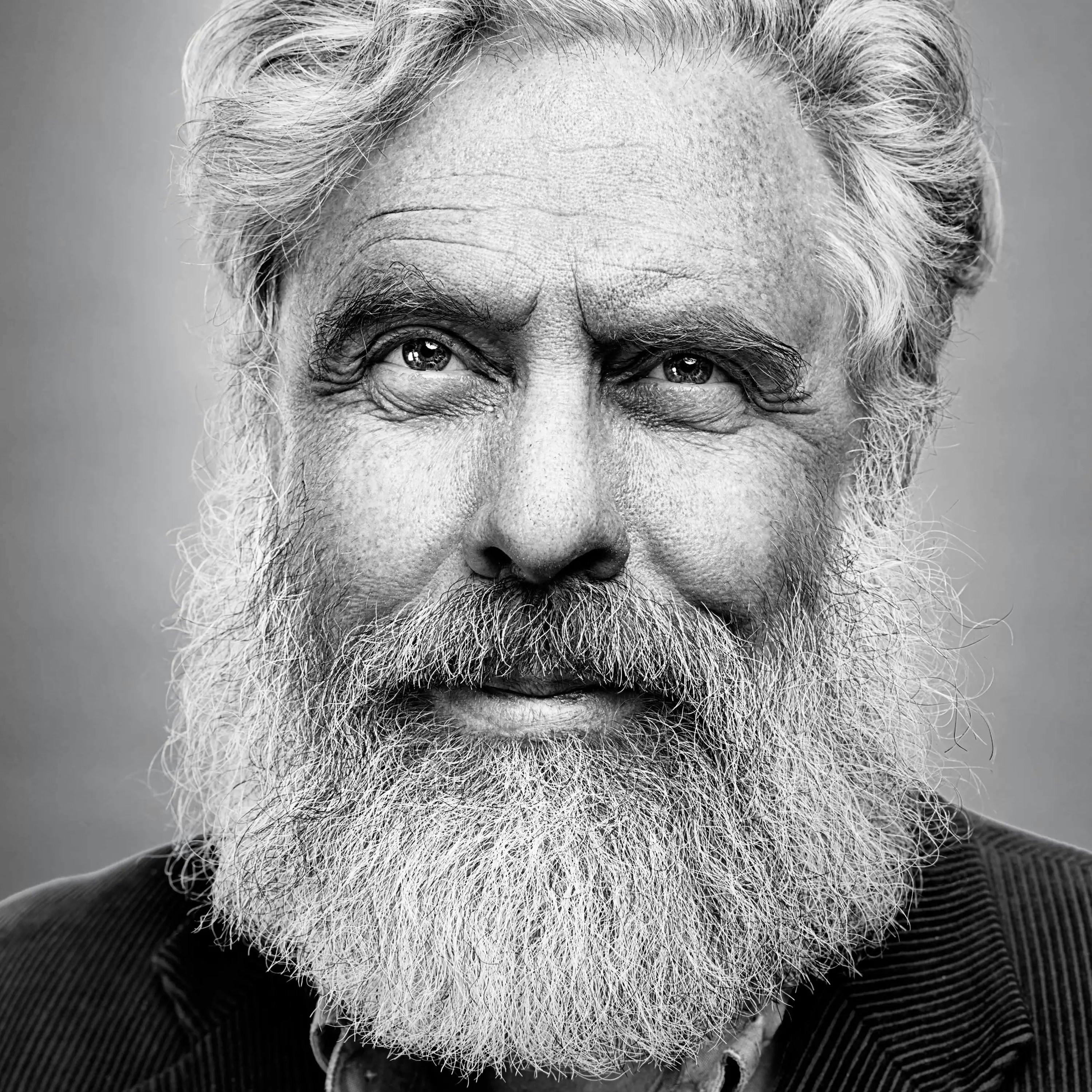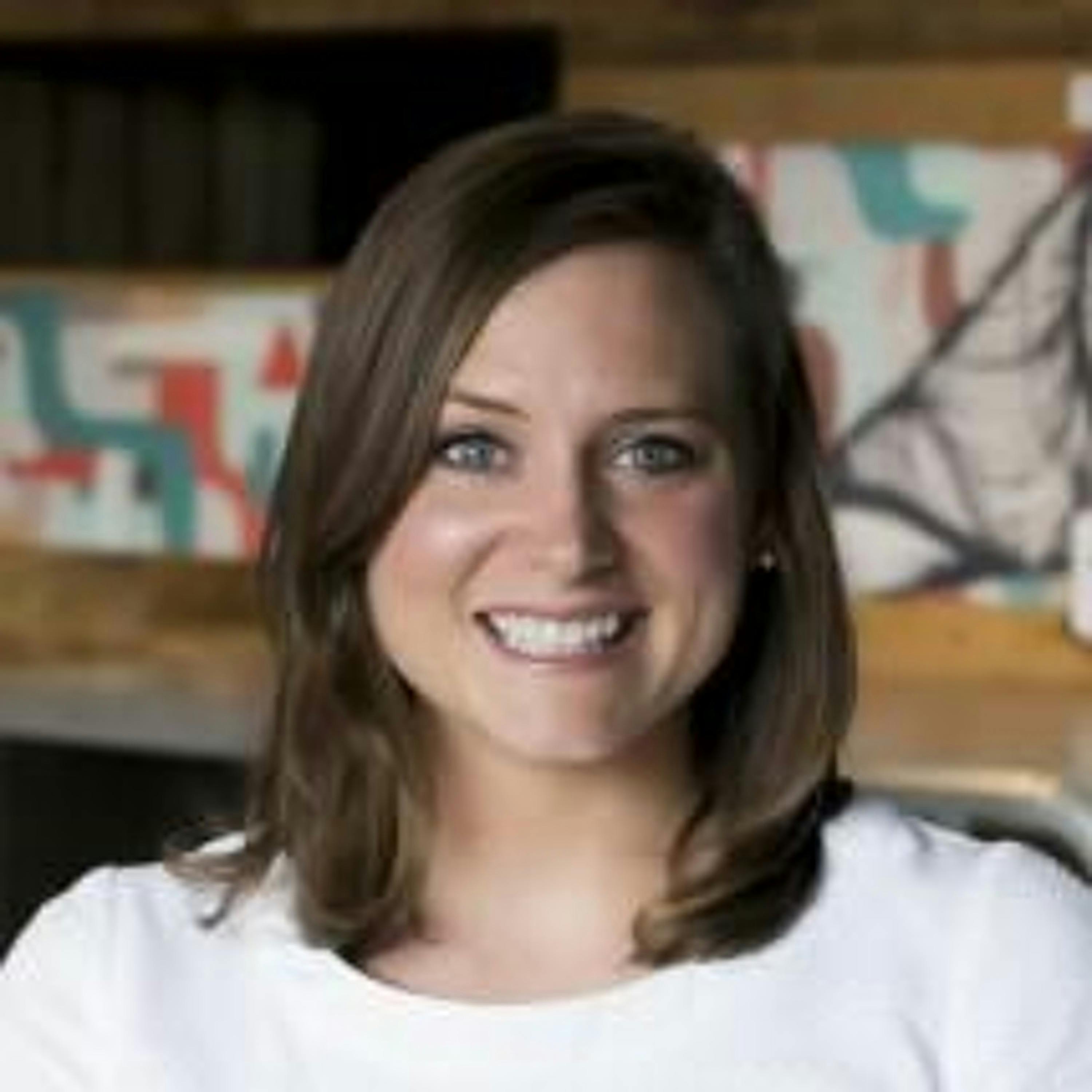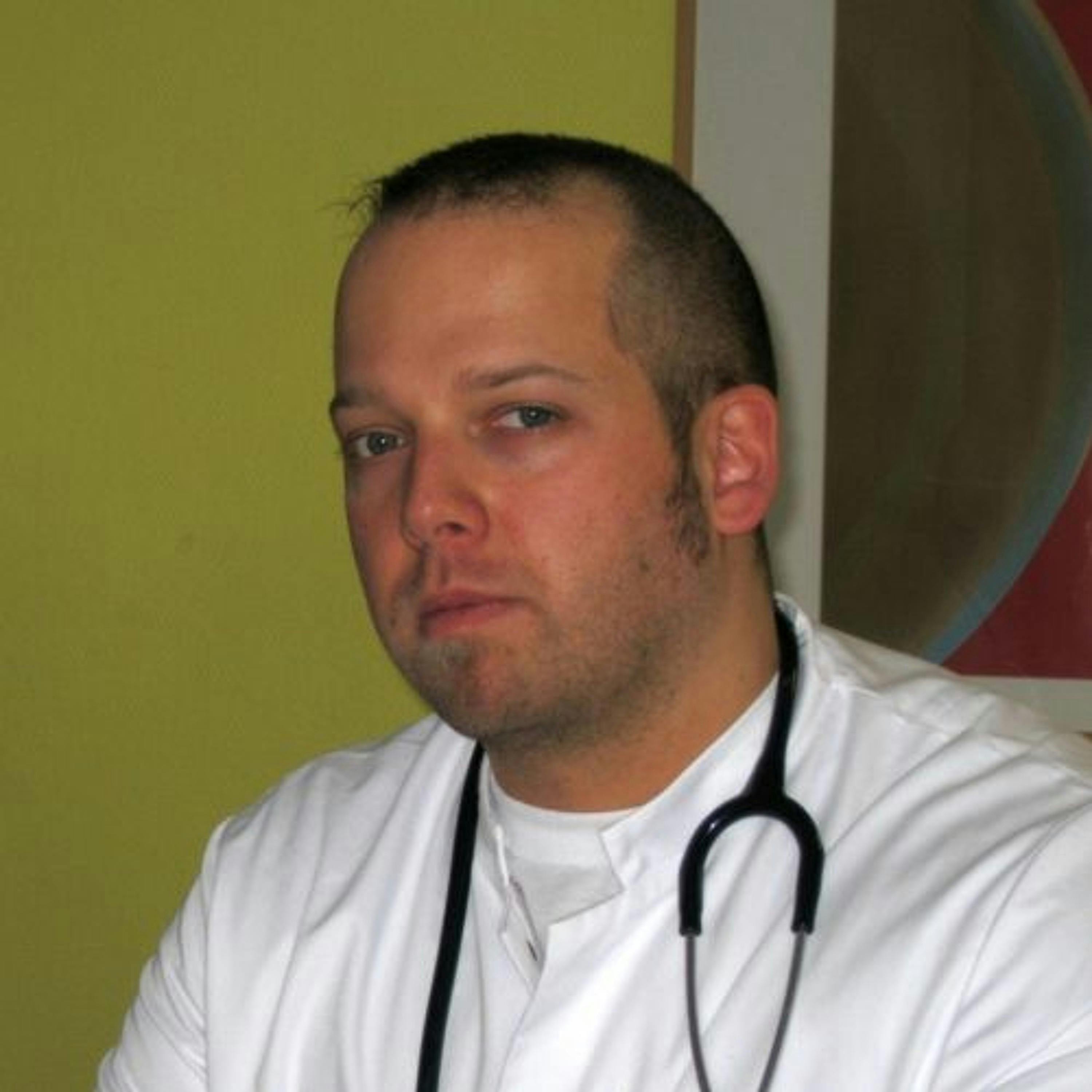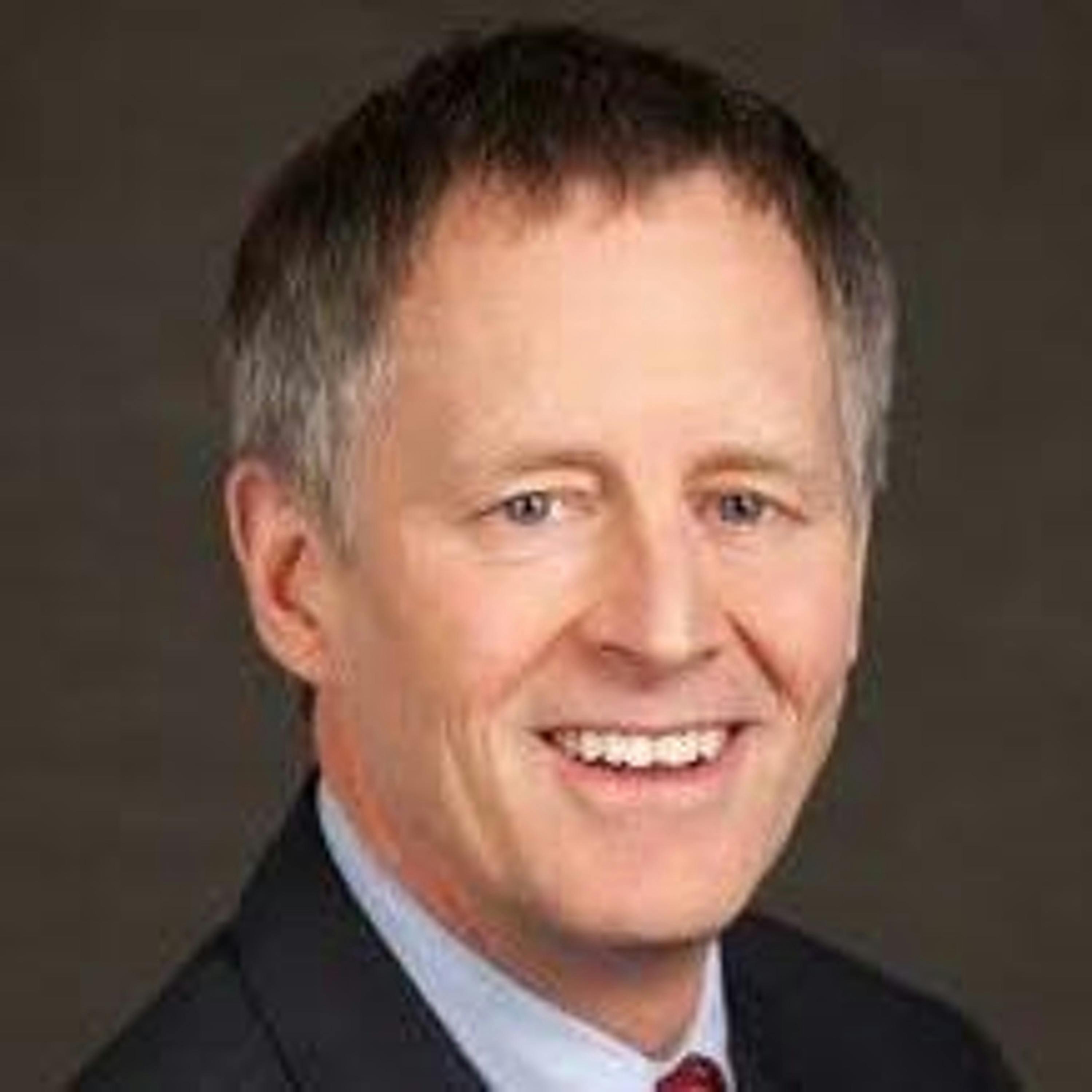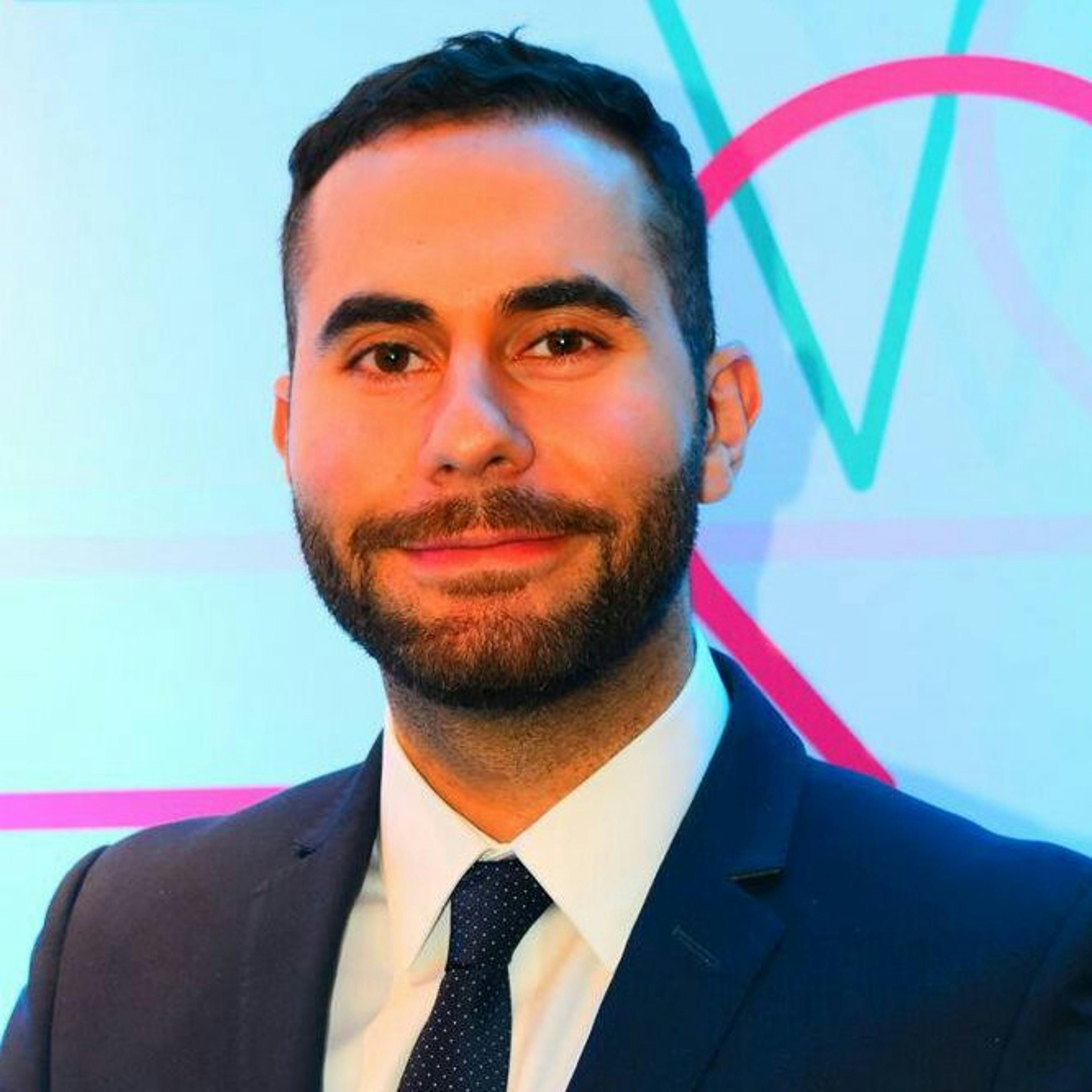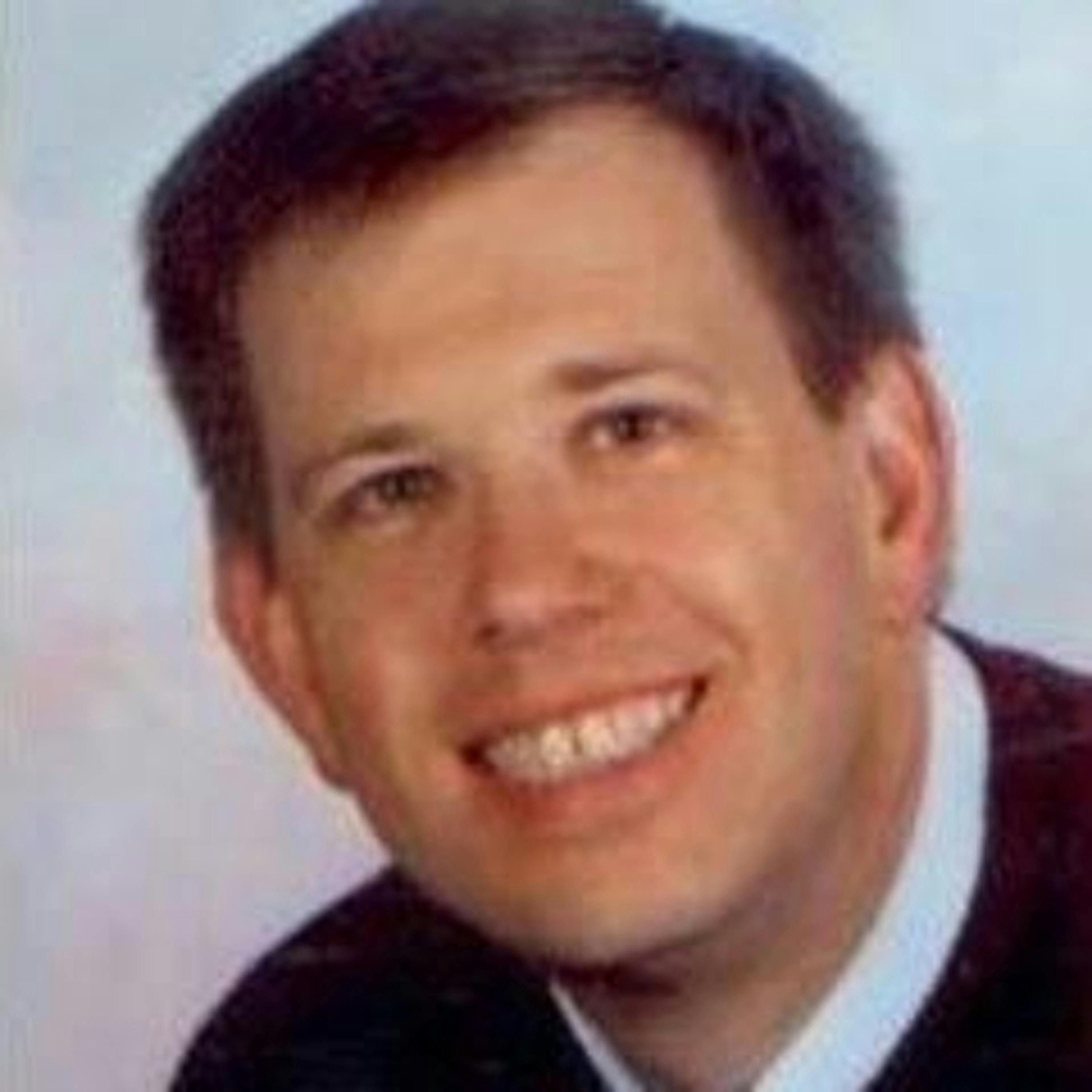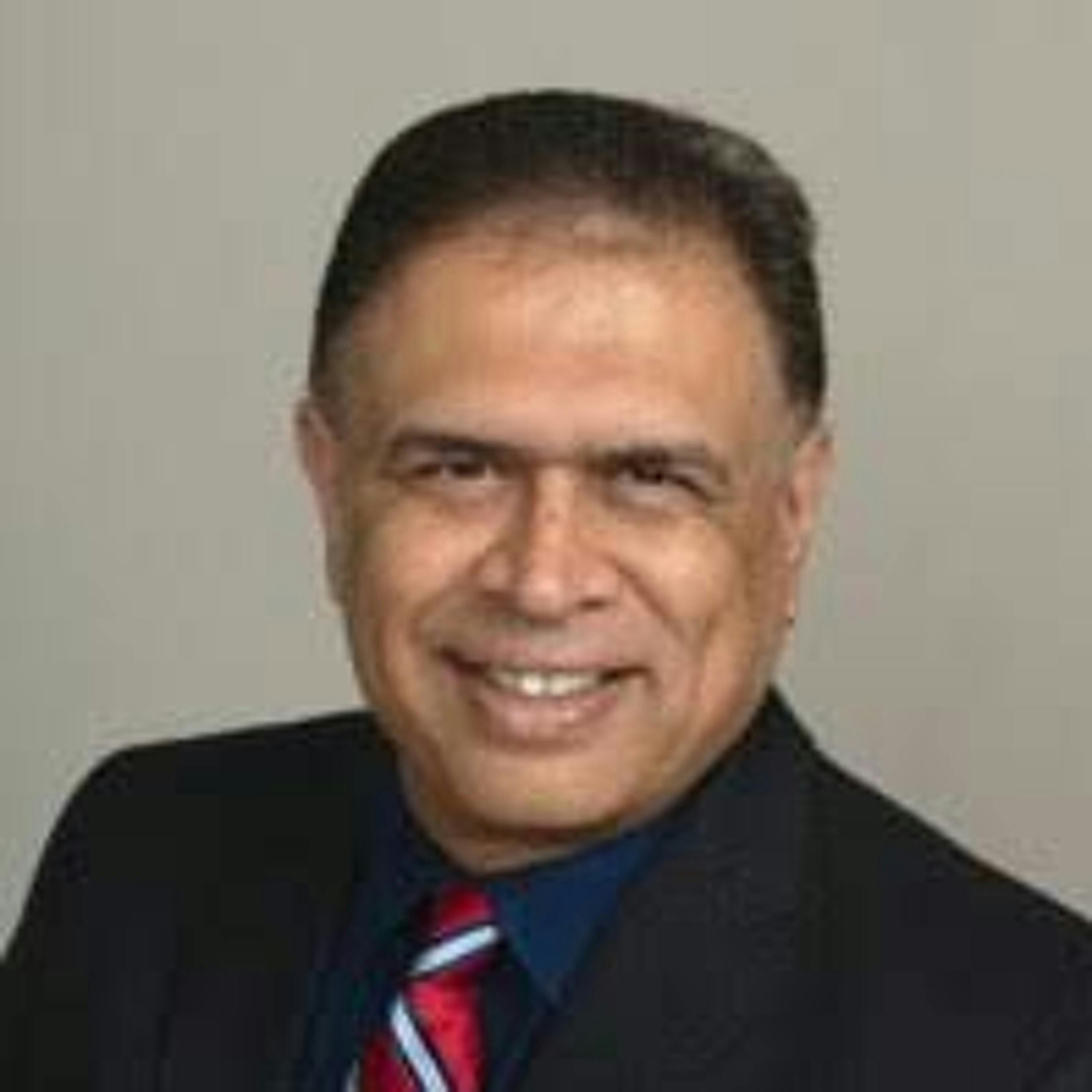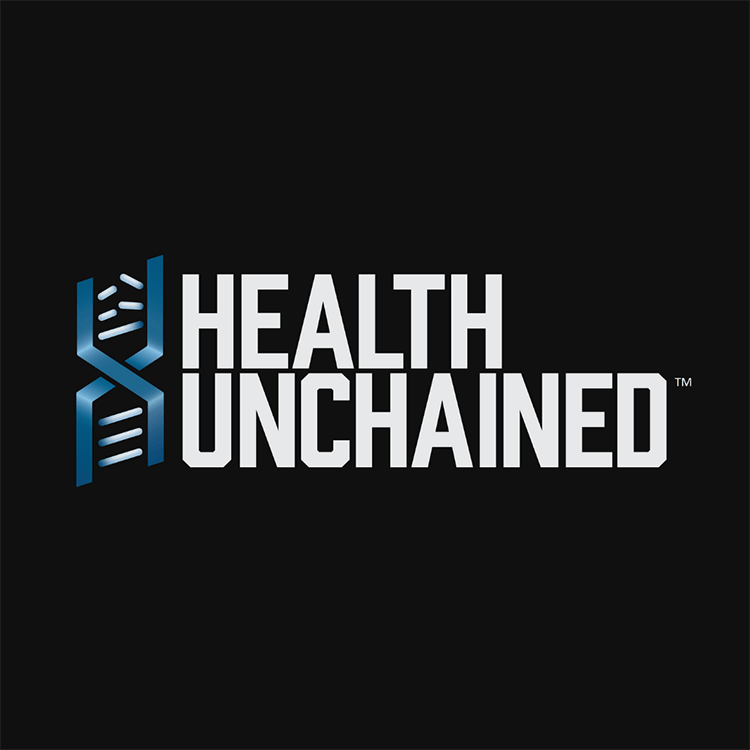
Health Unchained
Health Unchained hosts conversations with blockchain/healthcare professionals who are disrupting the health industry.
All Episodes
Ep. 117: Patient Centric Care by Harnessing Blockchain Tech – Mike Ruggio, JD (Managing Partner at Taylor English)
Meet attorney Michael Ruggio, a linchpin in the healthcare law industry with over 40 years of extensive experience. From igniting the first False Claims Act cases that shook up healthcare providers, to now guiding them through the digital transformation tide, his role is both pioneering and pivotal. Michael's understanding of the potential of technologies like blockchain and AI to revolutionize healthcare far surpasses the familiar territory. Besides donning the hats of a managing partner at Taylor English and an adjunct professor of Law at the University of Pittsburgh, he also serves as a consultant to Congress on the utilization of high technology in federal health programs. His deep-rooted wisdom in healthcare law, paired with his knack for innovation, positions him as a seasoned trailblazer in this fast-evolving landscape.
Discover the potential of blockchain technology in healthcare as Michael Ruggio, JD, uncovers the regulatory challenges it faces. Find out how vested interests and resistance to change hinder progress, leaving the industry at a crossroads.
Timestamps
00:00 Welcome to Health Unchained: Navigating Web 3.0 in Healthcare
02:56 Introducing Mike Ruggio: A Veteran in Healthcare Law
04:08 The Evolution of Healthcare Through Technology
07:13 Blockchain's Role in Transforming Healthcare Post-COVID
10:31 The Intersection of Blockchain, AI, and Healthcare Education
13:45 Smart Contracts and the Future of Legal Frameworks
16:45 The Impact of Blockchain and AI on Patient Care and Data Privacy
36:07 Exploring the VA Blockchain Pilot, Tricare Challenges
38:20 Final Thoughts
Guest Links
LinkedIn
Taylor English Website
Health Unchained Links
Supercast - Sign up to access premium content
Website
Telegram
LinkedIn
Twitter
Health Podcast Network
Highway to Health Podcast
Health Podcast Network Site
May 17, 2024
Ep. 116: HealthTech Podcasters Unravel Web3’s Impact on Healthcare – Don Lee (HC Biz Show)
We dive into the intricate world of health IT, examining the elusive goal of global interoperability and the dynamic role of blockchain technology. Don Lee sheds light on the innovative strides in biotech, particularly in expediting drug development for rare diseases, while also touching on the critical funding hurdles faced by startups. With a candid reflection on the evolution of healthcare data sharing, exemplified by New York's notable achievements, the conversation pivots to the personal—how a boundless curiosity not only makes for an engaging podcast host but also drives a deeper understanding of technology's impact on healthcare.
Links and Resources:
LinkedIn
Gitsmol
Ready Layer 2 Podcast
The #HCBiz Show
Topics Covered Include:
00:00:00 - Introduction to A Conversation with Don Lee
00:03:32 - From Software Development to Healthcare: The Journey of "The Healthcare Guy"
00:05:40 - Navigating Investment Challenges in Healthcare
00:12:53 - Embracing the Future: Blockchain and Telehealth in Healthcare
00:14:43 - Addressing Privacy Concerns and Advancing Health Information Exchange
00:19:04 - Standardizing Data in Hl7v2: Cleaning and Aggregating Multiple Sources
00:20:09 - AI's Emerging Role in Healthcare Data Analysis
00:25:20 - Complexity of Healthcare Provider Information and Coverage
00:26:59 - Zenprn: A Collaborative Resource Management Platform
00:31:11 - The Frustration of Choosing a Health Plan
00:32:49 - Balancing Compliance and Technological Innovation in Healthcare
00:36:22 - Transitioning from Healthcare Marketing to Podcasting in the Web 3 Space
00:39:24 - Building Relationships through Collaborative Projects
00:41:21 - Arvertron: Exploring a Promising Layer Two Blockchain for Web3 Gaming
00:43:09 - Trust in Technology Adoption in Healthcare
00:47:02 - Perceptions of Crisis and Excitement in Current Technological Developments
00:49:47 - Investing in Research and AI for a Better Healthcare Future
00:51:12 - Embracing Curiosity and Overcoming Fears
00:57:28 - Balancing a Busy Life: Insights from a Parent's Perspective
Health Unchained Links
Website
Telegram
Twitter
Supercast - Sign up to access premium content
Buy Ledger Hardware Wallet
November 18, 2023
Ep 115: Unlocking the Power of Data Donation in Healthcare Research with Wojciech Sierocki
Wojciech Sierocki, sheds light on the innovative approaches to data consent and the ethical considerations that shape global data policies. We dug into the intricate balance between patient privacy and the accessibility of medical data. We explore the mission of Data Lake in revolutionizing patient care through data donations, and the potential of such data to enhance diagnosis, treatment, and policy making. This conversation is a must-listen for anyone interested in the intersection of healthcare, technology, and ethics.
Links and Resources:
Data Lake Website
Wojciech Sierocki on LinkedIn
Topics Covered Include:
00:00:00 - Introduction
00:02:06 - Exploring Data Lake's Ethical Data Access Initiative and More with OJEC
00:04:23 - Medical Experience Shaping Data Collection Challenges in Healthcare: From International Affairs to Blockchain
00:06:19 - The Entrepreneurial Journey: Co-founding a Company and Navigating Privilege, Value, and Stress
00:09:08 - Building a New Health Donation System: The Journey from Medical Careers to Data Revolution
00:11:52 - Putting Patients in Control: Revolutionary Healthcare Decision-Making and Data Sharing
00:17:57 - Unlocking Medical Data for Better Healthcare Outcomes: Balancing the Benefits
00:20:22 - Convincing Patients to Share Sensitive Healthcare Data: Unlocking the Dilemma
00:24:54 - Streamlining Patient Data Entry for an Efficient User Experience
00:26:53 - Poland Leading the Way: Majority of Users Acquired Through Hospitals
00:28:57 - Future Potential: Growing Number Of Medical Data Donors and Data Sharing
00:33:45 - Tokenomics in Healthcare: Revolutionizing Funding and Incentives
00:37:05 - A Minimalistic Approach to Ecosystem Design in Healthcare
00:39:46 - Blockchain as a Ledger: Navigating Data Storage Restrictions and Building a Healthcare Ecosystem
00:41:36 - Building a Patient Community: Sharing Experiences and Empowering Engagement
00:43:57 - Unlocking Patient Records: Access and Opportunities in Healthcare
00:46:20 - Longevity Research: Humanism and Intellectual Property Sharing
00:49:51 - Data Analysis's Role in Developing Treatment Guidelines and Challenging Healthcare Culture
Health Unchained Links
Website
Telegram
Twitter
Supercast - Sign up to access premium content
Buy Ledger Hardware Wallet
November 4, 2023
Ep. 114: Evolution of Data-Driven Health – Michael Geer (co-founder of humanity.health)
In this episode of the Health Unchained Podcast, Ray Dogum interviews Michael Geer, CEO of Humanity, discussing various topics in healthcare and technology. They explore the balance between privacy and data utilization, emphasizing collaborative AI and the social aspect in Web 3.0. They delve into synthetic data, genetic testing, and advancements in wearable technology, as well as the potential of DAOs and data pods in the future. Geer highlights the importance of empowering individuals, inspiring others, and fostering excitement for new ideas to drive technological advancements in healthcare.
Links and Resources:
Humanity Website
Michael Geer on LinkedIn, Twitter
Topics Covered Include:
00:00:00 - Health Unchain Updates and Announcements
00:02:44 - Health Unchained Podcast: Blockchain Revolutionizing Healthcare
00:05:23 - Anchor Free: Internet Freedom Against Censorship Bills
00:06:58 - Scaling Web Three in Healthcare
00:09:49 - Adapting to New Medical Technologies
00:12:40 - Predicting Future Health Events with Health Data
00:14:36 - Balancing Privacy and Learning from Data
00:20:31 - Collaborative AI in Healthcare
00:23:19 - Ownership and Control of Personal Health Data
00:24:50 - Federated Learning: Privacy-Preserving Data Learning
00:29:41 - Data Use and Privacy in Society
00:32:41 - Data Privacy and Data Pods in Web 3.0
00:34:54 - Tim Berners Lee's Explanation of the Internet to Nancy Pelosi
00:38:38 - Advancements in Wearable Technology: Future Predictions
00:40:24 - Creating More Googles and Apples in the Investment Community
00:43:56 - Collaborative Goals for Personalized Health Guidance
00:47:20 - Benefits of DAOs with Specific Missions
00:49:31 - Limits and Possibilities in Technology and Expertise
00:50:40 - Health Unchained News Corner
00:55:33 - Excitement as the Key to Advancement in Technology
News Corner:
May 2023 saw hardware wallet manufacturer, Ledger, unveiling its novel service, Ledger Recover, a platform designed for secure seed phrase storage—a necessary component for cryptocurrency recovery. Despite Ledger's assurances of fragmenting and encrypting seed phrases across multiple entities, critics within the crypto community voice concerns over potential security risks, including data theft and privacy breaches linked to the requisite provision of email addresses and phone numbers. Amidst debates on self-custody versus third-party storage and the ever-evolving digital security landscape, Ledger emphasizes its service's optional nature, allowing users to continue managing their recovery phrase independently. This narrative underlines the importance of understanding and navigating digital security in our data-intensive world, where private key loss and third-party key theft are distinct possibilities.
Find a link to Ledger’s Recover FAQ page.
Don’t forget to subscribe and share this episode to someone who would enjoy listening.
Health Unchained Links
Website
Telegram
Twitter
Supercast - Sign up to access premium content
Buy Ledger Hardware Wallet
Vibe Bio Links
Part of Ray's new role includes hosting a new series called VibeCast focused on Vibe Bio's community. To stay up-to-date with VibeCast and other Vibe Bio updates, you can follow us on:
YouTube
Facebook
LinkedIn
Twitter
Instagram
TikTok
May 31, 2023
Ep. 113: Evidence-Based Blockchain – Dr. Naseem Naqvi (President of British Blockchain Association)
Join Ray Dogum and Dr. Naseem Naqvi, President of the British Blockchain Association, on this thought-provoking episode of Health Unchained, as they delve into the world of evidence-based Blockchain and the challenges faced by the industry. Dr. Naqvi highlights the importance of defining the problem that Blockchain is trying to solve and providing evidence to back up claims and build products. The concept of peer review is also explored, and its role in evaluating research and providing constructive feedback. In addition, Dr. Naqvi talks about National Blockchain Road Maps and why it's crucial for Blockchain companies to demonstrate evidence of impact in various societal components such as business, government, healthcare, education, and enterprise industries. Tune in to gain valuable insights that will help you navigate the complex world of Blockchain and its potential impact on healthcare.
The News Corner touches on the declining life expectancy in the US and its impact on healthcare costs.
Links and Resources:
Prof. Dr Naseem Naqvi MBE on LinkedIn
Topics Covered Include:
00:00:00 - Health Unchained: Exclusive Content & Blockchain-Healthcare Symposium Partner
00:03:03 - Intro President of British Blockchain Association on Blockchain Journals & Literature
00:07:00 - Importance of Evidence-based Approach & Comparison in Blockchain Implementation
00:11:02 - Prioritizing Outcomes & Impact in Projects
00:14:34 - Vital Role of Peer Review in Evaluating Work
00:17:37 - Double Blind Peer Review: Anonymizing Papers for Unbiased Assessment
00:19:25 - Using Blockchain for Quality Control in Peer Review Process
00:22:17 - Health Unchained News Corner - Shorter US Life Expectancy Costs $100B Annually in Healthcare
00:30:26 - Recommendations for Evidence-based Blockchain: Standardized Terms & Taxonomy
00:33:34 - Interest in Quadruple Helix Ecosystems
News Corner:
PubMed
Live free and die?
All-Cause Mortality
The US faces a serious health disadvantage as life expectancy drops for the second consecutive year and maternal mortality rates reach an all-time high. While the US has higher survival rates for cancer, better control of blood pressure and cholesterol levels, and lower stroke mortality, these achievements aren't enough to offset other problems. Higher child poverty, gun violence, racial segregation, social isolation, and poor city design are some of the factors contributing to this health disparity. The US's shorter life expectancy is estimated to cost the country $100 billion annually in extra healthcare costs. The reasons for the decline in life expectancy can't be ascribed only to the COVID-19 outbreak, as the US faces significant challenges that need to be addressed by policymakers.
Health Unchained Links
Website
Telegram
Twitter
Supercast - Sign up to access premium content
Buy Ledger Hardware Wallet
Vibe Bio Links
In February 2023, Ray Dogum joined the Vibe Bio team to help activate patient and drug development communities and accelerate research funding.
Part of Ray's new role includes hosting a new series called VibeCast focused on Vibe Bio's community. To stay up-to-date with VibeCast and other Vibe Bio updates, you can follow us on:
YouTube
Facebook
LinkedIn
Twitter
Instagram
TikTok
March 31, 2023
Ep. 112: AI-Assisted Ambient Medical Documentation with Ian Kazi Shakil (co-founder Augmedix)
In this episode of Health Unchained, host Ray Dogum speaks with Ian Kazi Shakil, co-founder of Augmedix, about the company's mission to reduce the documentation burden for healthcare providers through the use of AI technology. They also discuss the potential uses of blockchain and augmented reality in healthcare, as well as how Augmedix is helping to improve patient care and reduce provider burnout.
Links and Resources:
Ian Kazi Shakil on LinkedIn
Augmedix Website
Topics Covered Include:
00:00:00 - Get ready for the Blockchain in Healthcare Symposium in New Orleans on September 21st, 2023!
00:02:02 - Step into the future of healthcare with Google Glass and explore augmented reality and artificial intelligence
00:03:58 - Join Ian on his journey building Augedix and discover his unique perspectives on AI, AR, blockchain, and Web Three
00:08:20 - Say goodbye to manual note-taking and hello to streamlined processes for healthcare providers
00:10:56 - Discover the high acceptance rate of automation solutions across all demographics in the healthcare industry
00:14:29 - Learn how AI is successfully used in behavioral health visits to enhance patient care
00:18:23 - Stay up-to-date on the evolution of enterprise-grade devices in the healthcare sector
00:20:48 - Gain insight into the perception of blockchain technology in healthcare and its potential benefits
00:25:07 - Explore how automation solutions are approaching zero human interaction in healthcare
00:29:10 - Discover the need for standard machine-readable notes to improve provider feedback loops and patient outcomes
00:32:43 - Understand the impact of Covid-19 on well-being measurement in the healthcare industry
00:34:40 - Find out how telehealth companies are integrating into health systems to improve patient care
00:36:26 - Learn about the benefits of patient portals for health systems, including EMR setup and My Chart
00:39:08 - Ensure rigorous security standards for healthcare system customers with the latest technology
00:43:10 - Gain permission to use automation in large healthcare systems and revolutionize the industry
00:44:20 - Follow the complex process of setting up the first trench in healthcare automation
00:48:44 - Stay informed with the News Corner and learn about the impact of earthquakes on families
00:51:54 - Hear Ian Shakil's closing thoughts and take away valuable insights for the future of healthcare
News Corner:
In recent news, Southern Türkiye and bordering Northern Syria were hit by devastating earthquakes on February 6, 2023. The death toll is currently over 46,000 people with many still missing under the rubble. The disaster has caused destruction to 264,000 apartments, leaving many survivors to rebuild their lives elsewhere. As a result, many humanitarian-related issues have come to light during this tragic event.
As someone with close family ties to the region, this disaster hits particularly close to home. The loss of so many loved ones in a single week is a tragedy that words cannot adequately describe. The survivors are faced with the daunting task of rebuilding their lives and homes from the ground up. The Health Unchained Podcast sends their condolences to those affected by this disaster and thanks all supporters who have come together to help those in need.
Health Unchained Links
Website
Telegram
Twitter
Supercast - Sign up to access premium content
Buy Ledger Hardware Wallet
Vibe Bio Links
Discord Community Channel - https://discord.gg/vibebio
February 28, 2023
Ep. 111: Functional Wellness Community (Michelle Martin | CEO Maka Health)
In this episode of Health Unchained, Ray explores functional wellness and the journey to achieving it with Michelle Martin, founder and CEO of Maka Health. Michelle shares how to use of web3 technologies in the health industry and how her company, Maka, is making a positive impact. The conversation covers Michelle's involvement with the Creative Destruction Lab in Toronto, the benefits of decentralized protocols, and the application of game theory and peer-to-peer engagement in the field of health. Listen in as Michelle shares her insights and thoughts on the current state and future of functional wellness.
Links and Resources:
Michelle Martin on LinkedIn
Maka Health Website
https://reitium.com/
https://ethelo.com/
Topics Covered Include:
00:00:00 - Intro
00:01:43 - Michelle Martin background
00:03:59 - Art marketplaces and web3
00:06:40 - Creative Destruction Lab in Toronto
00:08:07 - Blockchain/Healthcare Niche
00:10:16 - Genetics and labs, and how they can help you achieve optimal health and a longer life.
00:13:51 - Health tokenization and the potential of this untapped market.
00:15:18 - Explore the creation of a robust platform for functional medicine, similar to the success of Uber in the transportation industry.
00:18:16 - Health Unchained News Corner
00:21:20 - Michelle Martin shares her thoughts on the evolution of wellness culture and its impact on healthcare.
00:25:23 - Dive into the complicated world of legalizing psychedelics in the US and understand the implications it has on society.
00:28:14 - Navigate the gray scale of chronic illness and understand the importance of consent and control in healthcare.
00:30:31 - Discover the challenge of achieving dignity in a transparent world and the role technology plays in healthcare.
00:32:55 - Learn about the year of community and how patients and peers are driving market health through engagement and technology.
00:35:03 - Technology is bringing together crowds to reach consensus on healthcare governance and user feedback.
00:37:18 - Healthcare governance and user feedback, and learn how they are shaping the future of healthcare.
00:41:19 - Importance of supporting clients with functional medicine practitioners and how it can improve health outcomes.
00:44:16 - Democratizing real estate ownership and the potential it holds for the future
News Corner
This news corner is about decentralized autonomous organizations (DAOs) and their legal status. Currently, DAOs have no legal status in most jurisdictions, but some lawyers are optimistic about the concept as a movement for the modernization of the corporate world. The Howey Test is not used by the Cayman and British Virgin Islands legal system, which is seen as a favorable jurisdiction for DAOs to operate. However, if a DAO is not wrapped into a corporate shell, it could be viewed as a general partnership and individuals involved could be held liable for the actions of the DAO. Despite the challenges, many lawyers are optimistic about the future of DAOs as a new way of organizing businesses.
https://cointelegraph.com/magazine/legal-dangers-getting-involved-daos/
https://www.theverge.com/2022/2/10/22925252/nike-stockx-shoe-lawsuit-vault-nft-trademark-infringement
Health Unchained Links
Website
Telegram
Twitter
Supercast - Sign up to access premium content
Buy Ledger Hardware Wallet
February 7, 2023
Ep. 110: Engaging Patient Relationships with Machine Learning – Alexandre Lebrun – Nabla (Co-Founder & CEO)
In this episode of Health Unchained, we welcome Alexandre Lebrun, co-founder and CEO of Nabla, a French health tech startup. Alexandre discusses his professional journey and how he became enamored with the idea of training machines to communicate with humans. He also delves into how Nabla utilizes AI-powered patient engagement tools to assist healthcare providers. Additionally, Alexandre offers his insights on telehealth, AI, and blockchain, as well as the regulatory compliance challenges related to machine learning in healthcare. He also shares information about the investors supporting Nabila and their dedication to open-source development. Lastly, he encourages all to consider joining the healthcare industry and making a positive impact.
Announcements
Health Unchained is a media partner for the Blockchain in Healthcare Today Conference in New Orleans in September 2023 Blockchain in healthcare Today in New Orleans, LA September 2023 - https://conv2xsymposium.com/
Attending Desci London event Jan 15-16 - https://www.desci.london/ - in-person hackathon on Jan 13 and 14 https://desci-london.devfolio.co/
Links and Resources
Alexandre Lebrun's LinkedIn
Alexandre Lebrun's Twitter
Nabla's Website
Topics Covered Include:
00:00:00 Exploring Blockchain in Healthcare: An Interview with Alexandre Lebrun of Nabila
00:02:28 Introducing Alexandre Lebrun, Co-Founder and CEO of Nabila Health Tech Startup
00:04:48 GPT-3 and its Impact on Natural Language Processing
00:06:04 Examining Healthcare Solutions through Telehealth and Chat
00:11:47 AI-Based Medical Assistance to Reduce Documentation Burden for Physicians
00:15:09 Blockchain Technology: Not Quite Ready, but Progressing
00:16:33 Open-Sourcing for Healthcare Transparency: Preparing for the Future
00:19:40 Regulatory Challenges for Startups in Europe
00:21:21 Deciding Between French and International Markets for Healthcare Startups
00:22:29 Challenges in Obtaining Machine Learning Certification
00:24:43 Engineers Striving for "Good Enough" Solutions
00:26:13 Balancing Regulatory Compliance and Technological Innovation
00:31:07 Medical Assistance API to be Deployed on a Larger Scale
00:32:19 Health Unchained News Corner
00:35:51 The Rewards of Healthcare: A Call to Action
Book mentioned: Memoirs of Hadrian by Marguerite Yourcenar
News Corner
The FBI and Cybersecurity and Infrastructure Security Agency have issued a warning to healthcare IT leaders about the growing threat of Cuba ransomware. The number of U.S. entities targeted by this ransomware has doubled since December 2021 and the tactics used by attackers have become more sophisticated. The advisory notes that Cuba ransomware actors are gaining access to healthcare and other critical infrastructure systems through known software vulnerabilities, phishing campaigns, compromised credentials, and remote desktop protocol tools. Furthermore, these actors are using "double extortion" techniques in which they encrypt victim data, demand a ransom payment to decrypt it, and threaten to publicly release the data if the ransom is not paid.
https://www.cisa.gov/uscert/ncas/alerts/aa22-335a
https://healthtechmagazine.net/article/2022/12/cisa-warns-healthcare-organizations-cuba-ransomware-threat
Health Unchained Links
Website
Telegram
Twitter
Supercast - sign up to access premium content
Buy Ledger Hardware Wallet
January 18, 2023
Ep. 109: Decentralized Databases for DeSci- Michael Fischer (Founder of DB DAO)
In this episode, Michael Fischer, the founder of DB DAO, discusses the role of databases in Web3 and how they can be used improve scientific research and tokenize scientific articles.
Fischer also shares his own experience with medical conditions and his thoughts on the healthcare industry. Fischer has a PhD in computer science from Stanford University, where he studied natural language processing and AI.. He is co-author of the book "Regulating AI" and leads the DeSci NYC community.
Announcements
Health Unchained is a media partner for the Blockchain in Healthcare Today Conference in New Orleans in September 2023 Blockchain in healthcare Today in New Orleans, LA September 2023 - https://conv2xsymposium.com/
Attending Desci London event Jan 15-16 - https://www.desci.london/ - in-person hackathon on Jan 13 and 14 https://desci-london.devfolio.co/
Links and Resources
Dr. Michael Fischer
DB DAO Twitter
DB DAO Wiki
The Sovereign Individual
Radical Markets
Regulating AI
Ep. 105: Community Empowered Health and Reputation
Topics Covered Include:
00:00:00 - Exploring Blockchain Technology: A Stanford Graduate's Journey
00:00:38 - Introduction to Health Unchained Episode 109 with Michael Fischer
00:06:14 - Alternative Peer Review System Using Tokens
00:08:46 - Building A Community Around DeSci
00:13:43 - Building An Open Database Team For Data Preservation
00:19:40 - Exploring Decentralized Database Governance And Data Ecosystems
00:20:26 - Creating A Mission For A Database: Aligning People Towards A Common Goal
00:21:48 - Creating A Governance Structure For Data Collection And Rejection
00:26:06 - Exploring Corporate Governance Structures In Multi-sig Protocols
00:32:51 - Interoperability Of Web Three With Web Two Applications For User Benefits
00:35:39 - Scouts Earn Rewards For Contributing Data To Database
00:38:53 - The Benefits And Risks Of AI-powered Content Curation
00:42:07 - Data Generation And Web Three Tooling
00:48:01 - Using Zero Knowledge Technology To Create A Web Three Database For Data Science Queries
00:49:35 - Reducing Reliance With ZK And DLT Protocols
00:50:38 - Health Unchained News Corner
00:51:46 - GPT-3: AI-enabled Chat Applications Reaching New Heights
00:54:54 - Effects Of Injury And Medical Conditions On Health Care Industry
00:58:49 - Structuring Data To Improve Patient Communities
News Corner
Google Research and DeepMind have created MedPaLM, an open-source large language model that can answer medical questions. It combines HealthSearchQA, a new dataset of medical questions, with six existing datasets covering professional medical exams, research, and consumer queries. The model was developed on PaLM (Pathways Learning Model), a 540 billion parameter large language model, and is intended for use by both medical professionals and non-professionals. The developers of MedPaLM are considering using blockchain technology to secure the data input and generated by the model. They hope that the tool will be successfully used in practice with real patients.
Health Unchained Links
Website
Telegram
Twitter
Supercast
Buy Ledger Hardware Wallet
January 6, 2023
Ep. 108: Building Community – Joshua Bate and Jelani Clarke, PhD (DeSci World)
Joshua Bate and Jelani Clarke, PhD, leaders of the DeSci World Project, discuss decentralized science initiatives and their potential to revolutionize the way science works.
Disclaimer: This podcast is for informational and entertainment purposes only and should not be used as a source of legal, financial, or medical advice.
Announcements
Health Unchained is a media partner for the Blockchain in Healthcare Today Conference in New Orleans in September 2023.Blockchain in healthcare Today in New Orleans, LA September 2023 - https://conv2xsymposium.com/
Desci London event Jan 15-16 - https://www.desci.london/ - in-person hackathon on Jan 13 and 14 https://desci-london.devfolio.co/
Links and Resources
DeSci Website
Joshua Bate's LinkedIn
Jelani Clarke PhD LinkedIn
Topics Covered Include:
00:00:00 Exploring Blockchain in Health and Life Sciences
00:02:44 Introducing Joshua & Jelani: Growing DeSci in the Blockchain Space
00:04:57 Exploring the Potential of Blockchain for Social Good: A Journey with Decentralized Finance
00:08:36 Decide World Helps Newcomers Navigate the Crypto Space: A Story of Blockchain Discovery
00:10:48 Sacrificial Lambs: The Case of Julian Assange
00:15:27 Web 2.0 and Web 3.0: The Rise of the Hybrid Web
00:25:25 More Scientists Needed to Reduce Volatility in DeSci Space
00:32:36 Calibrations Necessary to Account for External Forces in Machine Learning
00:33:38 Exploring Web Three Primitives with Design Nodes: A Scientific Perspective
00:41:50 Exploring the Pros and Cons of the DeSci World Ecosystem Project's Move Towards Becoming a DAO
00:49:47 Scientists and Regular Individuals Reap Benefits from DeSci
00:55:02 DeSci World Becomes a Nexus of Community
00:57:08 HU News Corner – Discussing ChatGPT
01:02:57 Transitioning to Calisthenics: A Daily Routine
News Corner
This is an update on the use of OpenAI's chat GPT technology, which is a deep learning tool that produces human-like text based on a given prompt. The technology has been well-received, attracting over a million users within five days of its release. It has a wide range of capabilities, including the ability to write software code and formulate responses to prompts. In the healthcare industry, chat GPT can potentially be used to streamline communications and train personnel, as well as to retrieve information about drugs, symptoms, and clinical trials when integrated with layers of medical validation. Currently, there is no component of blockchain being used in chat GPT, but the technology has the potential to change society's expectations and may be improved and used in new applications in the future. The fact that it was made available to the public for free is a step towards fair distribution of technology. The host of the show invites listeners to share their experiences with chat GPT and ideas for its use in the Health Unchained Telegram channel.
Health Unchained Links
Website: https://healthunchained.org
Telegram: t.me/healthunchained
Twitter: twitter.com/Healthunchaind
Supercast: https://healthunchained.supercast.com/
Ledger Hardware Wallet: https://shop.ledger.com/?r=b115c68507a0
December 28, 2022
Ep. 107: Digital Trust Ecosystem – PharmaLedger (Dan Fritz & Marco Cuomo)
In today's episode, host Ray Dogum sits down with guests Dan Fritz and Marco Cuomo. Marco is an Applied Technology Innovation Manager with a passion for exploring and implementing new technologies such as blockchain and API Management. Dan is a Supply Chain Domain Architect at Novartis, where he is responsible for the architecture vision and selection of emerging technologies that will transform the business.
Tune in to hear the trio discuss how blockchain will transform healthcare by driving patient safety, reliable product traceability, and aiding the fight against counterfeiting.
In the News Corner, Ray shares why crypto companies sponsoring major sporting events is not a good enough reason for investors to trust them.
Topics Covered Include:
01:00 Introduction
03:16 PharmaLedger Leaders Discuss The Transition From PharmaLedger Consortium to PharmaLedger Association
08:21 Partners Unite To Accelerate Medical Innovation In Health Care
10:07 Industry Consortium Kicks Off Project After Two Years Of Planning
11:34 Creating a Digital Trust Ecosystem In the Healthcare Industry
13:35 Blockchain Technology Enables Win-win Solutions For Partners In Digital Trust Ecosystems
14:55 Building An Infrastructure For The Healthcare Industry: A Step Towards A Unified Blockchain Network
17:56 Testing The Flexibility Of Electronic Product Information: Switching From Ethereum To Hyperledger
22:05 Pandemic Accelerates Digital Transformation With Self Sovereign Identity Solutions
25:25 Clinical Trial Investigators Streamline Supply Chain Process For Business Benefits
27:39 Blockchain Revolutionizes Pharmaceutical Supply Chain To Combat Counterfeiting
29:59 Creating Value For Members And Users: Experiences From Test Pilots And User Research through electronic product information
34:34 Technology Ready For Implementation In Healthcare, But Regulatory Checks Remain
38:10 Ensuring Privacy: Is Your Medical Data Safe?
39:33 Four Nodes Required For Go Quorum Consensus Protocol
40:56 Pharma Companies Establish Trust Through Hybrid Blockchain Network
42:20 Blockchain Technology To Increase Transparency In Pharmaceutical Companies
43:39 PharmaLedger Association In Switzerland Adopts Traditional Structure, Forgoes Cryptocurrency and Tokens
47:44 Health Unchained News Corner
51:09 What to expect from the future of AI
53:20 Parting thoughts
Links and Resources
Pharmaledger.eu
Pharmaledger Association
Novartis.com
Dan's LinkedIn
Marco's LinkedIn
News Corner
Crypto.com, Algorand, Budverse, and other crypto companies are sponsoring the World Cup 2022. Be weary of crypto companies sponsoring popular sporting events and stadiums. As an example, FTX’s sponsorship with the Miami arena (among many other sponsorships) initially brought credibility to the now-fallen exchange. Let’s not take these other crypto sponsorships as validation that they are trustworthy, safe, or sustainable. Maybe they are, but as many in the industry will tell you, not your keys, not your coins. If you have any crypto on centralized exchanges, just be careful and consider moving to a hardware wallet.
https://en.cryptonomist.ch/2022/11/20/fifa-world-cup-official-sponsors-crypto-com/
https://usa.visa.com/about-visa/sponsorships-promotions/fifa-world-cup-partnerships/masters-of-movement.html
https://www.coindesk.com/layer2/2022/11/16/world-cup-2022-web3-guide/
Health Unchained Links
Website: https://healthunchained.org
Telegram: t.me/healthunchained
Twitter: twitter.com/Healthunchaind
Supercast: https://healthunchained.supercast.com/
Ledger Hardware Wallet: https://shop.ledger.com/?r=b115c68507a0
December 5, 2022
Ep. 106: Web3 Innovation in Japan – Shinya Yamamoto, PhD (DICT Cube)
IT advancement and data analytics have long been a struggle in healthcare – many have tried to drive technological advancement in the space, but very little has changed. So are NFTs, DAOs, and Web3 the answer we’ve all been waiting for?
In today's episode, Ray Dogum talks to Shina Yamamoto, PhD, a serial entrepreneur, clinical research innovation professor, and founder of Link and Innovation, Inc. which focuses on helping entrepreneurs reach their potential. We discuss DAOs for business incubation, the future of decentralized clinical trials, and the state of Japan's Web3 ecosystem.
Topics Covered Include:
00:00 Introduction
00:40 Getting to know Shinya Yamamoto
02:50 Shinya's journey to becoming a leader in the innovation space
04:02 What Shinya's company Link & Innovation, Inc is all about
05:51 The idea behind the DICT business incubator
07:46 Difference between Japanese and global entrepreneurs
08:18 Shinya's business leadership experience
09:25 DAO and Web3 in healthcare
12:25 Why identity is a huge thing in Web3
13:45 Why are DAOs so important for the future of business?
15:30 DAO management best practices
16:35 The biggest barriers to blockchain adoption in healthcare
17:37 Why more people need to be educated on NFTs and Blockchain
19:30 Why Shinya believes tokenomics is the future
20:23 The Singularity is near: Will we achieve mind uploading by 2045?
22:18 Parting thoughts
News Corner
https://www.coindesk.com/policy/2022/11/09/the-collapse-of-the-ftx-empire/
On November 8, FTX halted it’s non-fiat customer withdrawals, which obviously sent its customers into a panic. After the $8B shortfall in it’s accounting, FTX was forced to file for bankruptcy.
Links and Resources
Shinya's LinkedIn
Dictportal.com
DICT CUBE YouTube Channel
Health Unchained Links
Website: https://healthunchained.org
Telegram: t.me/healthunchained
Twitter: twitter.com/Healthunchaind
Supercast: https://healthunchained.supercast.com/
Ledger Hardware Wallet: https://shop.ledger.com/?r=b115c68507a0
November 22, 2022
Ep. 105: Community Empowered Health and Reputation – Mike Sinn (CureDAO) & Mike Elias (IdeaMarket.io)
Ray Dogum is joined by Mike Sinn and Mike Elias. Mike Sinn is a Software Engineer at CureDAO, a collaborative framework for precision health of the future. CureDAO is creating an open-source platform to determine the effects of millions of factors on human health. Mike Elias, on the other hand, is the founder of Ideamarket, a platform that builds credibility infrastructure without relying on legacy media or academia.
The Mikes come together to talk about decentralized science, credibility on the internet, and how we can ensure the future of science is led by people who actually know what they’re doing.
Topics Covered Include:
00:00 Introduction
00:45 Getting to know Mike Sinn
03:48 Who is Mike Elias?
06:42 How Ideamarket works
08:36 The future of healthcare data
10:47 Getting the most out of medical data
12:08 Reasons healthcare data is unique and difficult to capture
14:27 Data ownership and privacy in a Web3 world
17:33 Advancing medical research by aggregating pieces of information
19:24 CureDAO’s source of data and information
20:36 Differentiating medical facts from opinions on CureDAO
23:31 Trust and credibility in web-based health information
25:30 Why people have a genuine interest in uncovering truths
29:42 The Wisdom of Crowds
34:10 Tokenomics and monetization on Ideamarket’s platform
38:57 Understanding CureDAO’s token economy
43:42 Company cultures at CureDAO and Ideamarket
47:24 How to get in touch with Mike Sinn and Mike Elias
48:50 Fun closing questions
54:10 Parting thoughts
News Corner
https://www.healthaffairs.org/content/briefs/mass-shootings-united-states-population-health-policy-levers
https://en.wikipedia.org/wiki/List_of_mass_shootings_in_the_United_States_in_2022
https://apnews.com/article/health-dallas-shootings-588b62b3e2420075247482b2e31c1b14
According to a Wikipedia list, as of October 25, 2022, there have been 582 mass shootings, with 604 individuals killed (including the shooters). A total of 2380 people have been wounded (including the shooters). This year has been a record year for mass shootings in America and it does not seem to be getting any better. Although many attribute shooter motive to serious mental illness, studies have shown personal issues such as a combination of acute life stressors, anger, and nihilism contribute to a shooter’s motive. Gun policies and the criminal justice system, in general, are also factors that play a part in the probability of mass shootings.
Although this news corner doesn’t have anything to do with blockchain technology, it has everything to do with social stability, security, and human nature. It’s unlikely that we’ll ever end all violence in our world, but we should be addressing and studying some of the root causes of violence by educating children about the importance of community safety, gun safety, and human morality. Open Public policy and local education regarding gun control can be tools to help mitigate future tragedies and increase trust in our communities.
Links and Resources
Mike Elias on LinkedIn - https://www.linkedin.com/in/harmonylion/
Mike Sinn on LinkedIn - https://www.linkedin.com/in/mikesinn/
CureDAO.org - https://www.curedao.org/
Ideamarket.io - https://ideamarket.io/
The Story of My Experiments with Truth by M. K. Gandhi
The Selfish Gene by Richard Dawkins
The Wisdom of Crowds by Joe Abercrombie
Health Unchained Links
Website: https://healthunchained.org
Telegram: t.me/healthunchained
Twitter: twitter.com/Healthunchaind
Supercast: https://healthunchained.supercast.com/
November 6, 2022
Ep. 104. Decentralizing Women’s Reproductive Health with Laura Minquini, Co-Founder of AthenaDAO
Laura Minquini is an entrepreneur and creator of AthenaDAO, a collective leveraging blockchain and crypto to fund women’s reproductive health. AthenaDAO’s goal is to reduce the funding gap in research and access to reproductive health by funding research, drug development programs, and innovations. Laura shares with Ray why communities like AthenaDAO are so important and why many women’s reproductive conditions are not well funded.
Topics covered
Laura shares her background and why she was so inspired to make a positive impact for women.
Why preventative care is vital for treating and curing conditions such as Alzheimers.
The impact VitaDAO had on the starting and creation of AthenaDAO
WThe impact this lack of funding has on the women diagnosed with these conditions.
Laura shares her experience starting AthenaDAO
Why women’s reproductive research needs a blockchain solution like AthenaDAO
The different Web3 organizations that are supporting medical research
Laura shares the story of a near-partnership with VitaDAO
Laura’s experience using Gitcoin grants to raise funds.
How AthenaDAO is creating a community for other women to gain support.
AthenaDao’s roadmap and the future for the community.
Connect with Laura and AthenaDAO
AthenaDAO
Discord
Telegram
Resources Mentioned
VitaDAO
Bio.xyz
Gitcoin
A Confederacy of Dunces
Marie Curie
October 7, 2022
Ep. 103: Tokenizing Smart Kickboxing Bags – Mauro Frota (CEO BHOUT)
Mauro Frota is a master martial arts coach in Lisbon, Portugal, who has taken on a new venture as CEO of the world’s first boxing bag with a brain. With over 22 years experience in the fitness industry, Mauro is finally here to revolutionize the fitness industry in the best way possible. In this episode, Mauro shares with us the concept of BHOUT–a new product that takes fitness and gaming all in one.
Topics Covered
Where Mauro sees the fitness industry with the incorporation of blockchain technology.
The mission and vision of BHOUT
Who the customers of BHOUT will be and the process of searching the product market fits.
The specifics of the design of BHOUT’s product and its functionality.
The adoption challenges Mauro faced when working with customers.
Mauro shares their business model & the culture behind their community.
BHOUT tokenomics and gaming reward mechanisms
Connect with Mauro
Linkedin
Resources Mentioned
BHOUT - The first boxing bag with a brain
Sweatcoin
Actionable Gamification: Beyond Points, Badges and Leaderboards
Nudge: Improving Decisions About Health, Wealth, and Happiness
Build
The Mom Test
The Lean Startup.
News Corner
https://www.newsweek.com/rankings/worlds-best-smart-hospitals-2023
https://finance.yahoo.com/triall-advance-blockchain-technology-clinical-070000007.html
The Mayo Clinic, which was just listed as the #1 best smart hospital in the world, according to Newsweek journal, has recently announced that it will onboard a blockchain-integrated platform called Triall for a two-year multicenter pulmonary arterial hypertension trial that includes 10 research sites and more than 500 patients. The goal is to ensure end-to-end clinical data integrity for clinical trials – from the initial startup to post-study evaluations by using Triall’s Veritable Proof API.
Health Unchained Links
Supercast: https://healthunchained.supercast.com/
Website: https://healthunchained.org
Telegram: t.me/healthunchained
Twitter: twitter.com/Healthunchaind
September 23, 2022
Ep. 102: Decentralized Med Device Management – John Hatchell | Co-Founder & CEO of TYDEi
John Hatchell is the CEO and founder of TYDEi Health, a cost-effective platform that aims to provide vendor partners for participation, opportunities for advanced methods, and overall growth to healthcare facilities through the use of blockchain technology. In this episode, John shares the history of his deep inclination for blockchain, how TYDEi health came to be, and its visions for the future. Discussing the challenges of the healthcare industry, John also shares the realm of possibilities TYDEi platforms and concepts alike can do to make healthcare easy, convenient, and efficient.
Topics Covered
Background of John before he became a CEO
How John fell curious about the possible association of blockchain in healthcare.
John shares the volume of cash exchanged in the market.
The vision of TYDEi health.
The challenges & issues of medical manufacturing companies that they’re trying to resolve.
The light and conservative approach they take to their customers and prospects.
Where Tie Dye Health mostly focuses on in terms of platform and product.
John shares the features and interface of TYDEi health.
Connect with John
LinkedIn
Resources Mentioned
TYDEi Health - Healthcare Together
Stryker
Daml - open source Smart Contract and DLT Programming
Aurora
News Corner
https://gov.vitadao.com/t/vdp-54-1-expression-of-interest-pfizer-ventures/832
https://longevity.technology/news/pfizer-invests-500k-in-vitadao-to-accelerate-longevity-rd/
Health Unchained Links
Super excited to be introducing another way for you to support the show. Follow the link and stay up to date with Health Unchained
https://healthunchained.supercast.com/
Website: https://healthunchained.org/
Telegram: t.me/healthunchained
Twitter: twitter.com/Healthunchaind
September 14, 2022
Ep. 101: Wherefore Art Thou, Provider? with Kyle Culver of Synaptic Health Alliance
Kyle Culver is the co-founder of Synaptic Health Alliance, an alliance of different health leaders sharing one common goal–to make create a trusted provided provider directory for the industry. Using the functions of blockchain technology, Synaptic Health Alliance aims to solve the prolem of inaccurate provider information in health plan databases. In this episode, Kyle Culver discusses what started Synaptic Health Alliance, where it is now, and where it’s projected to go.
Topics Covered
Kyle’s first introduction to blockchain technology.
The origin of Synaptic Health Alliance.
Kyle explains what a provider directory is and how it works.
The challenges they faced on the development and testing of Synaptic Health Alliance.
The process of onboarding new members in Synaptic Health Alliance and the requirements needed.
The future adaptation and progress of blockchain in the healthcare space.
The business operation of Synaptic Health Alliance and how debit credit system of Synaptic Health Alliance works.
Kyle discusses what holds back others from joining Synaptic Health Alliance.
Events in the healthcare and blockchain space that surprised Kyle.
Kyle shared his 2022 outlook for Synaptic Health Alliance.
Connect with Kyle
LinkedIn
Twitter
News Corner
https://apnews.com/article/inflation-biden-covid-health-care-costs-8758c06e78dc33a9e472bff6517bdb85
https://www.nytimes.com/2022/08/19/us/politics/fact-check-health-claims-inflation-reduction-act.html
https://www.healthcaredive.com/news/biden-signs-inflation-reduction-act-aca-subsidies-payers-hospitals/629865/
https://www.forbes.com/advisor/personal-finance/inflation-reduction-act/
On August 16, 2022, US president Joe Biden signed the Inflation Reduction Act into law, enacting some of the biggest changes to US Healthcare since the passage of the Affordable Care Act in 2010.
Resources Mentioned
Procredex
Kaleido: Enterprise-Grade Blockchain & Digital Asset Platform
Quest Diagnostics
Aetna: Health Insurance Plans
A16z - Andreessen Horowitz
Office of the National Coordinator for Health Information Technology (ONC)
U.S. Department of Health and Human Services (HHS)
Optum - Health Services Innovation Company
MultiPlan – Delivering affordability, efficiency and fairness to the US healthcare system.
Health Unchained Links
Website: https://healthunchained.org/
Telegram: t.me/healthunchained
Twitter: twitter.com/Healthunchaind
August 30, 2022
Ep. 100: Decentralizing Pay-for-Success Models – Savva Kerdemelidis and Nicholas Fiorenza (Crowd Funded Cures)
Savva Kerdemelidis is the CEO and Founder of Crowd Funded Cures (CFC), a non-profit initiative funded by the Prize Charitable Trust. Aiming to renovate the broken system of medical innovation, CFC creates an open source incentivization of clinical trials for off-patent drugs. In this episode, Savva Kerdemelidis, along with Nicholas Fiorenza, CFC’s Head of Business Development & Operations, talk about the main market failures of the medical patent system and how Crowd Funded Cures addresses these failures in ways that ultimately transform how traditional science is done.
Topics Covered
How Savva and Nick first got interested in the idea of decentralized science (DeSci) & its importance in solving scientific challenges through collaboration.
Savva and Nick share their original reason for starting Crowd Funded Cures and its current operations.
The challenges they faced and the pushbacks often heard by people in the scientific academic community.
How the pay-for-success contracts work as an alternative to the traditional patent system and its benefits in the field of academic science.
What IP NFT is and its advantage to the clinical field and as well as to investors.
Why DeSci is important for the psychedelic space and how important psychedelic research is going to be for science DAOs.
Connect with Savva
LinkedIn
@newzealandlaw / Twitter
Crowd Funded Cures
Connect with Nick
LinkedIn
@nfiorenza / Twitter
Moleculetter - Blog
Resources Mentioned
VitaDAO - Longevity DAO
Molecule Protocol Home | A New Era of Drug Development
Open Source Pharma Foundation - Medicine for all
Biomedical Advanced Research and Development Authority (BARDA)
National Health Service (NHS)
News Corner
UNOS transplant network depends on out-of-date technology - The Washington Post
In a recent exclusive story by the Washington Post, investigators reveal that the entire organ transportation and IT infrastructure needs a major overhaul. In January of 2021, theWhite House’s U.S. Digital Service recommended that the government “break up the current monopoly” that oversees what is formally known as the Organ Procurement and Transplant Network.
That monopoly the United Network for Organ Sharing, the nonprofit agency that operates the transplant system, has held for 36 years and worth more than $200million, funded mainly by fees patients pay to be listed for transplants. It is a complex collection of about 250 transplant-performing hospitals; 57 government-chartered nonprofits that collect organs in their regions; labs that test organs for compatibility and disease; and other auxiliary services.
The mechanics of the entire transplant system must be overhauled, the review concluded, citing aged software, periodic system failures, mistakes in programming and over reliance on manual input of data.
Health Unchained Links
Website: https://healthunchained.org/
Telegram: t.me/healthunchained
Twitter: twitter.com/Healthunchaind
August 16, 2022
Ep. 99: Improving Healthcare with DeSci – Vincent Weisser (Chief Product at Molecule)
Vincent Weisser is the Chief Product at Molecule, an open platform that connects decentralized science research to funding. Molecule is creating collaborative marketplaces, where stakeholders in drug development can work together to expedite the process of medical research. On this episode, Vincent shares how they connect leading researchers to funding by giving ownership of the intellectual property and its development to individuals as opposed to only institutions - making it a liquid and easily investable asset.
Topics Covered
How Vincent’s background in design and software engineering got him started in the world of blockchain.
How decentralized science (DeSci) can create a more scalable and transparent environment for medical research.
Why DAOs can potentially revolutionize the future of capital formation while also accelerating the ability to impact people.
Vincent shares the benefits of decentralizing the funding of research as well as the challenges of pioneering the industry.
How Molecule is creating a marketplace for decentralized research where contributors can discuss and debate the specifics of the experiment.
Why decentralized science and cloud labs create a unique opportunity for scaling research through robots and automation.
Connect with Vincent
Vincent Weisser
Molecule Protocol Home | A New Era of Drug Development
@vincentweisser / Twitter
vincentweisser.eth
LinkedIn
Resources Mentioned
Y Combinator
The Lean Startup
VitaDAO - Longevity DAO
Brian Johnson (heroic.us)
Ep. 81: Federated Learning with DLT - Mathieu Galtier (CPO Owkin) | Health Unchained
Schrödinger | Schrödinger is the scientific leader in developing state-of-the-art chemical simulation software for use in pharmaceutical, biotechnology, and materials research.
How to Live
Great CEO Within
Artificial Intelligence: A Modern Approach
Molecular Biology of the Cell
Ray Kurzweil
News Corner
Confronting 21st-century monkeypox (science.org)
More than 12,556 monkeypox cases and three deaths have been reported in 68 countries since early May, and will continue to rise.
According to a recent Science magazine editorial, Epidemiologic investigations indicate that the predominant mode of transmission is through skin-to-skin and sexual contact, not contact with contaminated clothing or bed linens. Although respiratory droplet transmission might occur, there is no evidence of airborne transmission as there is with COVID-19. Symptoms usually start within three weeks of exposure to the monkeypox virus with symptoms lasting 2 to 4 weeks.
Health Unchained Links
Website: https://healthunchained.org
Telegram: t.me/healthunchained
Twitter: twitter.com/Healthunchaind
July 26, 2022
Ep. 98: Gamifying Health – Anthony Diaz (CEO of Health Hero)
Anthony Diaz is modernizing global health engagement with his health-to-earn startup Health Hero, Inc. On this episode, Anthony shares with Ray how he plans to use gamification to improve people’s health while also being a monetary asset that can finance their core needs. He details how his company is creating a platform that rewards individuals for engaging in their health and also how he plans to make telehealth more fun.
Topics Covered
Why Anthony became a software architect and interested in blockchain technologies.
How Health Hero is hoping to bring the health-to-earn concept to more people.
The way an individual’s health records can be turned into an NFT,
Why gamification can have such a large impact on user adoption.
How Anthony is using “game jams” to drive innovation for their platform.
The way Health Hero structured their software to integrate with different electronic health records, Microsoft Teams, and Slack.
Connect with Anthony
Health Hero: Play-to-earn health
Connect on LinkedIn
Resources Mentioned
Polygon
Unity SDK
WebGL
Itch.io
News Corner
We have raised $12.7 Million in Seed Funding to Build the Future of Decentralized Science and Biotech (molecule.to)
Recently a company called Molecule announced it raised $12.7M in seed funding to build the future of decentralized science. The investment was led by Northpond Ventures and includes over a dozen other major funders. The company has close partnerships with VitaDAO and other leading DeSci groups.
Specifically, Molecule is first focusing on fundraising and resourcing for research projects and issuing IP-NFTs to secure the IP assets in the blockchain marketplace. The team has over 22 members distributed around the world and is passionate about making DeSci a reality.
Health Unchained Links
Website: https://healthunchained.org
Telegram: t.me/healthunchained
Twitter: twitter.com/Healthunchaind
July 15, 2022
Ep. 97: Making Medical Data More Valuable – Jordon Ritchie, PhD (CEO AiMedica)
Jordon Ritchie is helping patients use personal health information to improve their health outcomes with health technology. He’s currently the CEO at AiMedica, a software company on a mission to simplify healthcare data. Jordon shares why he felt called to serve the healthcare industry by not being a doctor and also explains how AiMedica plans to tackle the seemingly insurmountable challenge of healthcare data and privacy. Listen in for a great interview with Ray and Jordon!
Topics Covered:
Jordon shares how his background in computer programming and software development got him interested in electronic health record systems.
How his dad, Bryan Ritchie, introduced him to Bitcoin and why he immediately saw solutions for the healthcare industry.
Why Jordon thinks that AI will play a big role in the future of digital healthcare.
The relationship between security and access and the challenges it’s creating for healthcare data.
How AiMedica’s suite of products helps providers make better healthcare recommendations based on otherwise hard-to-access data.
Why the current electronic health record systems are not as secure as we believe them to be.
The reason that the healthcare industry doesn’t obey traditional economic signals.
Connect with Jordon
Aimedica
Connect with Jordon on LinkedIn
Resources Mentioned
Simba Chain
Book of Mormon
Crucial Conversations
News Corner
On June 24, 2022, the majority of the U.S. Supreme Court voted to abolish the constitutional right to abortion. The 6-3 majority decision overturned the landmark ruling of the 1973, Roe V. Wade, which generally protected a pregnant woman’s right to choose to have an abortion. This decision is expected to have negative cascading effects across the U.S. healthcare system.
HHS Issues Guidance to Protect Patient Privacy in Wake of Supreme Court Decision on Roe | HHS.gov
Period tracker app Flo dev 'anonymous mode' : NPR
The Supreme Court Decision That Defined Abortion Rights for Thirty Years | The New Yorker
Health Unchained Links
Website: https://healthunchained.org
Telegram: t.me/healthunchained
Twitter: twitter.com/Healthunchaind
Stitcher: Health Unchained Podcast on Stitcher
iTunes: Health Unchained Podcast on Apple Podcasts
Google Play: Google Play Music is no longer available
Spotify: Spotify for Podcasters
July 9, 2022
Ep. 96: Why Invest in Web3? – Jorden Woods & Radhika Iyengar (Co-founders of StarChain Ventures)
Jorden Woods and Radhika Iyengar-Emens are enterprise blockchain experts enabling executives and entrepreneurs to benefit from integrating blockchain technologies into their business. They share their experience pioneering enterprise blockchain and why businesses will be the ones to fuel early adoption of these technologies. Ray, Jorden, and Radhika also discuss NFTs and the metaverse being such a big adoption driver for Web3 technologies.
Topics Covered
How Jorden and Radhika’s experience in business and tech led them to writing a book about the emergence of enterprise blockchain.
What surprised Jorden and Radhika the most about the adoption of blockchain technologies.
Why the pandemic opened up a lot of opportunities for digital tools improve the accessibility and effectiveness of the healthcare experience.
The way NFTs can fuel adoption of other enterprise blockchain technologies in industries outside of art and collectibles.
How the government’s involvement in enterprise blockchain can accelerate mainstream adoption of Web3 technologies.
The steps needed for mainstream adoption of enterprise and consumer blockchain technologies.
Why it’s important to consider privacy, safety, and security for individuals participating in Web3.
Connect with the Guests
Connect with Jorden on LinkedIn
Connect with Radhika on LinkedIn
Visit Their Website
Resources Mentioned
Enterprise Blockchain Has Arrived: Real Deployments. Real Value
Central Bank Digital Currency (CBDC)
Governor Newsom Signs Blockchain Executive Order
Snow Crash
News Corner
Oracle Completes Acquisition of Cerner
There’s been a major shift in the electronic medical record space, Oracle has finalized its acquisition of a major EMR company called Cerner for a whopping $28.3B. The intent to acquire Cerner was announced by Oracle towards the end of 2021, and since the companies have completed the necessary federal Anti-trust review by the Federal Trade commission and the justice Department. There was no mention of using blockchain, NFTs, or web3 technologies in their tech stack. I wonder when or if hospitals and clinics that are using Cerner will be affected by acquisition. I’m not convinced that making hands-free voice technology the primary interface for clinicians is the best approach to improving the overall clinical experience. I hope this consolidation is a net-positive for patients and doctors, not just a way for Oracle to take a piece of the healthcare market.
Health Unchained Links
Website: https://healthunchained.org
Telegram: t.me/healthunchained
Twitter: twitter.com/Healthunchaind
June 13, 2022
Ep. 95: Breaking Barriers with Blockchain Technology – Talisha Shine (Blockchain Consultant)
Talisha Shine is bridging the gap between the blockchain and BIPOC communities. She is a leader in the blockchain consulting space and recognized among the top 100 black leaders in blockchain. She has a unique set of experiences in both the healthcare and blockchain industries, and she shares why it’s important for members of the black community to be involved in Web 3.0.
Topics Covered:
How Talisha’s background in healthcare and technology shaped her consulting career.
What led Talisha to starting Black Blockchain Consultants
Why it’s so important for the black community to get involved with blockchain technologies
How blockchain technologies were uniquely suited to fix Pandemic-related healthcare industry issues
The way new legislation has given individuals more control over their data
Why the healthcare industry needs to adopt more blockchain solutions.
About the Guest
Connect with Talisha
Website
Resources Mentioned
Black Blockchain Consultants
Bitcoin and Black America book by Isaiah Jackson
Ep. 21: Empowering Patient with Blockchain – Chrissa McFarlane (CEO Patientory)
News Corner
https://www.statnews.com/2022/05/23/hipaa-patient-ge-data-privacy-profit/
According to a STAT News investigation published recently, multiple companies were involved in this complex web of transactions that turned patient data into lucrative business deals. Quintiles, now known as IQVIA, MedicaLogic, which was purchased by GE in 2002, Veritas Capital, which acquired and then sold GE’s medical records business as part of a larger deal worth $17B were all part of this elaborate unethical use of patient data. Data privacy protections are only as good as the technological policies that can be enforced in the entire healthcare ecosystem. Using blockchain technologies to give patients real ownership of their data can help solve this growing problem in the industry. Our data is not like oil which gets burned and cannot be reused. Our data is an extension of ourselves which can be reused and increases in value as more data is generated. People need to stand up for their right to their data.
June 1, 2022
Ep. 94: Securing Clinical Trial Documentation – Hadil Es-Sbai (CEO Triall)
Hadil Es-Sbai is on a mission to make clinical trial data more secure and accessible. His
company, Triall, is attempting to revolutionize the clinical trial industry. They’re building an
easy and secure way for researchers to conduct trials as well as for participants to
stay engaged. Hadil shares why blockchain solutions are a perfect match for an industry like
clinical research and how it can make the transition to Web3.
Topics Covered:
How Hadil got into blockchain after working over 20 years in the clinical research industry
The different blockchain integrated e-clinical solutions that Triall is developing
How blockchain solutions can help streamline clinical development activities
Using LTO Network, Accumulate – but blockchain agnostic
The ways Triall is making it easier for participants and researchers to complete
clinical trials
How Triall is ensuring patient privacy and also accessibility for researchers
Triall’s ICO and TRL token
Roadmap for the future of their platform
About the Guest
Connect with Hadil
Learn more about Triall
Resources Mentioned
CR2O
Sphereon
The 48 Laws of Power
News Corner
Louisiana sues UnitedHealthcare, OptumRx for alleged Medicaid drug overcharging - https://digitalhealth.modernhealthcare.com/technology/louisiana-sues-unitedhealthcare-optumrx-alleged-medicaid-drug-overcharging
Hyperledger - Healthcare Special Interest Group Meetings
https://wiki.hyperledger.org/display/HCSIG/HC-SIG+General+Meetings
Health Unchained Links
Website: https://healthunchained.org
Telegram: t.me/healthunchained
Twitter: twitter.com/Healthunchaind
May 7, 2022
Ep. 92: Revolutionizing Prescriptions in Latin America – Everardo Barojas (CEO Prescrypto)
Everardo Barojas, PhD, founder of Prescrypto, is revolutionizing electronic prescriptions in Latin America. Since 2017, Prescrypto has been working to bring prescriptions into the modern age by providing reliable, secure prescriptions that are written and verified using blockchain technology. Everardo shares how this transition can benefit the doctors, the patients, and the industry as a whole. We also discuss Everardo’s journey building a Web3 company in Latin America and the advantages and challenges that come along with it.
Topics Covered:
- How Prescrypto helps doctors to write and fulfill prescriptions on the blockchain
- The business model Prescrypto is making possible by minting prescriptions on the blockchain
- How Prescrypto has been able to mint over 650,000 prescription NFTs on the blockchain
- The blockchain Prescrypto runs on (Rexchain) and the differences between that and Bitcoin
- How Prescrypto was able to raise capital and structure their organization
- What Everardo does to stay healthy and improve his entrepreneurial skills
Connect with the Guest
Twitter: twitter.com/e_barojas
LinkedIn: www.linkedin.com/in/everardo-barojas
Website: www.prescrypto.com/
Resources Mentioned
-Ep. 48: Private, Personal DNA Exploration - Daniel Uribe (CEO Genobank)](healthunchained.org/ep-48-private-p…be-ceo-genobank)
-Rexchain(www.rexchain.io/)
-Jim Clark(en.wikipedia.org/wiki/James_H._Clark)
News Corner
www.theverge.com/2022/3/29/230016…on-defi-hack-nft
Ronin Blockchain and Axie Infinity operator Sky Mavis revealed a breach on March 29th and froze transactions on the Ronin bridge, which allows depositing and withdrawing funds from the company’s blockchain. $625 million worth of cryptocurrency that was stolen from Ronin, the blockchain underlying popular crypto game Axie Infinity. The operator, Sky Mavis says it’s working with law enforcement to recover 173,600 Ethereum (currently worth around $600 million) and 25.5 million USDC from the culprit, who withdrew it from the network on March 23rd.
Although this breach isn’t related to healthcare data, the healthcare web 3 industry should take note of the security failures that allowed the hacker to steal such a large sum of money.
Moral of the story - Decentralization matters for network security. Having more nodes on the network may have made it more difficult to full gain access. Also, it highlights the reliance on law enforcement for helping to track down the hacker.
**Health Unchained Links**
Website: healthunchained.org
Telegram: t.me/healthunchained
Twitter: twitter.com/Healthunchaind
April 22, 2022
Ep. 93: Keeping Patient Data Private and Accessible – Georgina Kyriakoudes (CEO DCentric Health)
Georgina Kyriakoudes, CEO of DCentric Health, is paving the way for patients to be
able to take control of their data. DCentric is the creator of Aria, an app designed to
make accessing medical records quick and easy while giving patients the ownership
and privacy that comes with blockchain technology. Georgina explains why blockchain
technologies are actually built for compliance. She also discusses why the accessibility
of patient data is important for the future of the health industry.
Topics:
How Georgina got her start in the healthcare industry after working with an
accounting firm and doing her graduate thesis on medical data and blockchain.
The medical emergency that prompted Georgina's and her partner to start DCentric.
How DCentric is handling regulations like GDPR to make blockchain solutions
compliant with new privacy regulations.
How DCentric uses a multichain solution to create an interface between patients
and providers that provides privacy and accessibility.
Why DCentric chose to focus on development and product before marketing and
how COVID caused them to pivot from their initial strategy
Connect with Georgina
Twitter: @GKyriakoudes
LinkedIn: Georgina Kyriakoudes
Website: MyAria
Resources Mentioned
Federal Public Health Laws Supporting Data Use and Sharing
Health Gorilla
News Corner
Researchers generate the first complete, gapless sequence of a human genome --
ScienceDaily
The Human genome project was an international scientific research project with the
goal of determining the base pairs that make up human DNA and physically and
functionally mapping all the genes of the human genome. It was formally launched in
1990 and declared complete on April 14, 2003 but only included 85-92% of the genome.
Over the last 20 years, scientists and researchers have developed better laboratory
tools, computational methods and strategic approaches to decipher the complex
sequence.
In early 2022, the first complete, gapless sequence of a human genome, two decades
after the Human Genome Project produced the first draft human genome sequence.
According to researchers, having a complete, gap-free sequence of the roughly 3 billion
bases (or "letters") in our DNA is critical for understanding the full spectrum of human
genomic variation and for understanding the genetic contributions to certain diseases.
According to consortium co-chair Adam Phillippy, Ph.D., whose research group at
NHGRI led the finishing effort, sequencing a person's entire genome should get less
expensive and more straightforward in the coming years.
This milestone marks a new era for breakthrough medical treatments and overall
improved understanding of how the human body works. Given all the potential, I hope
scientists and doctors will consider the importance of bioethics and data privacy when
drafting new protocols for sequencing patients’ whole genomes. Web3 technologies,
blockchain, and privacy preserving solutions can recreate the way health data is owned,
managed, and shared. What more identifying data do we have than our individual whole
genome sequence? It is literally the blueprint of our existence and we should leverage it
to help research but not sacrifice our individual privacy and agency along the way. What
do you think?
Health Unchained Links
Website: https://healthunchained.org
Telegram: t.me/healthunchained
Twitter: twitter.com/Healthunchaind
April 22, 2022
Ep. 91: Bridging Web2 to Web3 – Chris Were (CEO Verida)
Chris Were, CEO of Verida, talks about the developers’ tools needed to bridge web2 programmers to web3. We also talk about the challenges and opportunities he has with his web3 startup. Living in Australia, Chris shared his perspective of how Australia has been dealing with the COVID-19 pandemic.
Website: https://www.verida.io/
Disclaimer: Health Unchained podcast is for informational and entertainment purposes only and we are not providing any sort of legal, financial, or medical advice. Please do your own research and due diligence before making any important decisions related to these matters.
Now let’s get to the show.
Show Notes
Introduction to Chris's background
Mental health, domestic violence, and data privacy
Defining Web3 when compared to Web2
Medical Record systems in Australia
Services for Web3 oCompute oIdentity oAuthentication oMessaging oPublic and private storage
Verida technical specifications (architecture) oBlockchain Protocol and network oVDA Tokenenomics oData storage and Cloud
Novak Djokavic and Covid in Austrailia
Verida Network Growth and scale •Overview of Current projects using Verida oMAPay partnership •Verida Team and culture •Investors and community •Roadmap for 2022 and beyond – mainnet launch •Favorite business leader in history or now that has influenced you - Steve Jobs •Final Takeaways News Corner https://equideum.health/press-releases/consensys-health-rebrands-as-equideum-health-driving-health-equity-and-outcomes-through-ethereum-powered-data-liquidity-across-enterprise-and-individual-data-silos/ Major announcement - ConsenSys Health to Equideum Health. Equideum Health is a ConsenSys Mesh portfolio company focused on creating Web3 person-centered healthcare platform and research networks. Partnerships include an alliance with Dixon Center for Military and Veterans Services (aka VICI – Veterans incentivized coordination and integration), which is something we like to call a Data Integrity and learning network (or DILN for short). DILNs, which use the unique combination of public and private blockchain, tokenization, decentralized artificial intelligence (AI), and confidential computing enabled by the company’s Elevated ComputeTM platform, are foundational to its partner-aligned strategy to make healthcare more effective, personalized, accessible, affordable and equitable. Through a second collaboration with the Digital Health Institute for Transformation, Equideum Health will create a new class of municipally-scaled utilities serving geographically-defined populations via Health Utility Grids (HUGs), targeting the urgent needs of underserved and vulnerable populations, first.
Web3 Hackathon - https://web3.ethglobal.com/
Health Unchained Links
Website: https://healthunchained.org
Telegram: t.me/healthunchained
Twitter: twitter.com/Healthunchaind
January 24, 2022
Ep. 90: First Hospital Chain in the Metaverse – Drs. Michael Kaldasch and Ben El Idrissi (Aimedis)
Dr. Michael Kaldasch (CEO Aimedis)and Dr. Ben El Idrissi (COO) of Aimedis join me to update us about some of the strategies they are taking to create a medical NFT marketplace and the first hospital chain in the metaverse. It’s important to note that Aimedis already has an app made for patients, doctors, researchers, and pharmacists that is available for download in the Play and App stores.
Show Notes
•Updates on Aimedis company
•First hospital chain in the metaverse
•Virtual Reality and augmented reality applications
•NFT marketplace
•Migration from Ethereum to Binance smart chain
•Healthcare ecosystem interactions on the platform
Related episode: https://soundcloud.com/healthunchained/ep-6-bridging-healthcare-silos-dr-michael-kaldasch-ceo-aimedis
News Corner
https://www.sanofi.com/en/media-room/press-releases/2021/2021-11-18-07-30-00-2336966
Sanofi, recently announced a $270 million deal with French AI/precision medicine company, Owkin. This two part deal includes a $180 million equity investment in the company as well as a $90 million discovery and development partnership that spans the next three years. The collaboration will focus on leveraging its digital clinical research platform with federated AI in four different cancers- non-small cell lung cancer, triple-negative breast cancer, mesothelioma and multiple myeloma.
Listen to my episode with Owkin's Chief Product Officer on episode 81 https://soundcloud.com/healthunchained/ep-81-federated-learning-with-dlt-mathieu-galtier-cpo-owkin
Health Unchained Links
Website: https://healthunchained.org
Telegram: t.me/healthunchained
Twitter: twitter.com/Healthunchaind
December 9, 2021
Ep. 89: Decentralization Opportunities in Pharmacy Operations – Tyler Colvard, PharmD (UNC)
Tyler Colvard, PharmD. Clinical Pediatric Pharmacist, UNC Health. BS Psych. Pharmaceutical Advisor at ConsenSys Health. Sports lover. Big UNC fan.
•Introduction to Tyler's background and career trajectory
•What drove you to the healthcare world and specifically why pharmacy?
•How does your academic research experience influence your perspectives in healthcare tech industry?
•How did you first hear about blockchain technology?
•Change is not easy
•How important are incentives and economics psychology for healthcare?
•Managing pharma inventory in hospitals
•What are the biggest pharma-based and/or pharmacogenetics applications you can envision that would require blockchain or decentralized ledger technology?
•Patient safety and trust
•How can blockchain help address the opioids crisis?
•Identifying certain genes that can illuminate risks to pharmacists and doctors (i.e. 2D6, CYP2C19)
•The role of EMR interoperability for getting the right info at the right time for patients
•From your perspective, what are the biggest barriers to blockchain adoption in healthcare? TRUST.
•In pediatric patients, often times they can't speak to you and are dependent on their parents - does blockchain have a solution for this?
•Are there issue with health data management when young adults turn 18? Do you think there's a need for data change in custody using blockchain?
•NFTs and sports innovation
•Favorite DLT projects doing important work
•Leadership, and motivational speaking, rap career aspirations
•Most influential book you've read – What do you do with an idea? Jonathan Livingston Seagull by Richard Bach
•If you had to have micro chip implanted in your body, where would you want it to be implanted?
•How do you like to stay active and exercise?
•Final Takeaways
News Corner
https://mediacenter.23andme.com/press-release/23andme-agrees-to-acquire-lemonaid-health
On October 22, 2021 – 23andMe announced plans to acquire Lemonaid Health, an on-demand telehealth platform, for $400M (25% in cash and 75% in 23andMe shares).
23andMe, a leading consumer genetics and research company will be adding Lemonaid Health’s telemedicine and prescription drug delivery services to it’s consumer solutions offerings.
Health Unchained Links
Website: https://healthunchained.org
Telegram: t.me/healthunchained
Twitter: twitter.com/Healthunchaind
October 28, 2021
Ep. 88: Community-owned Swiss Healthcare Ecosystem – Eberhard Scheuer (President dHealth Network)
Dr. Eberhard Scheuer is the founder and the President of the Board of Directors at dHealth foundation and has been a pioneer in using blockchain in the healthcare field. Eberhard holds a Ph.D. in psychology and views healthcare always from the patient’s point of view. He has been a researcher, lecturer, therapist, digital health entrepreneur, and networker for two decades. Eberhard is a psychologist by training and was trained as a clinical psychologist, but mainly worked in the research environment studying at UMass Amherst and University of Tübingen.
CONNECT WITH EBERHARD
LinkedIn: https://www.linkedin.com/in/eberhardscheuer/
Twitter: https://twitter.com/medrepublik
Website: https://dhealth.network/
Related episode - https://soundcloud.com/healthunchained/ep-84-nem-development-for-healthcare-gregory-saive-ceo-ubcdigital
Show Notes
●Introduction to Eberhard's background
●What is the use case and vision of dHealth Foundation which was previously called the HIT foundation?
●Tokenizing Health data and how patients should ideally be reimbursed for usage of their health data
●Tracing detection system for Covid and other Illnesses and how those use cases are the best for blockchain
●What is Data privacy and how usage of Blockchain transforms the way to store that data off chain and use blockchain for identity management?
●Partnership with Roche on using patients’ data for one of their Hemophilia drug launches and using blockchain for that launch.
●Alpha and beta testing on the dHealth platform
●What is DHP or Digital Health Point tokens and what kind services can be acquired using these tokens?
●Due to the rules and laws of Switzerland, how is operating a Blockchain company there? What are the Pros and Cons?
●European Society of Organ Transplantation (ESOT) exchange and how blockchain can play an important role in the matching process
●What are the financial and technical challenges which are being worked on to be launched in the coming months?
●What influential book can you recommend?
“100 years of solitude” by Gabriel Garcia Marquez
”The Ascent of Money” by Nial Furguson
●What are some of the preferred exercises that you like to do to stay active? Running and Sailing.
News Corner
https://blog.helium.com/more-than-a-data-point-norada-brings-elderly-care-to-the-peoples-network-f75d7e579fed
As most of us know, demand for elderly care services continues to climb higher as each new generation lives longer than the previous one. Norada Corporation has teamed up with Helium, also known as the People’s Network, to enhance communications between at-home elderly care managers, seniors, and care givers. Norada solves this challenge by irradicating the need for a smartphone. Instead, as each caregiver completes their service, they tap a button on their ID badge to automatically log location details to the central cloud database using asset tracking technology from Abeeway. To make all of this possible, Norada needed a long-range IoT wireless network, and Helium fit the bill perfectly. As the fastest-growing wireless network, The People’s Network enables cost efficiencies of only $1 per badge per year.
Health Unchained Links
Website: healthunchained.org
Telegram: t.me/healthunchained
Twitter: twitter.com/Healthunchaind
October 9, 2021
Ep. 87: Decentralized IoT Everywhere – Larry Pang (IoTeX)
Larry Pang is the head of business development and marketing at IoTeX. IoTeX’s mission is to enable a borderless ecosystem where humans and machines can interact with guaranteed trust, free will, and privacy. IoTeX built the first consumer grade indoor security camera that uses blockchain to secure its users data. It’s called Ucam and anyone can buy one from Amazon for about $50. Before IoTeX, Larry worked as a consultant at Oliver Wyman.
IoTeX website: https://iotex.io/
Larry's LinkedIn: https://www.linkedin.com/in/larry-pang/
Show Notes
•Larry's background and BizDev role at IoTeX
•What is the vision for IoTeX and who founded it?
•UCam description and functionalities
•Which industry verticals are you focusing on? Why?
oSecurity, Healthcare, Supply chain
•Data Privacy
•Smart Homes, medical devices
•Computer vision evolution
•Autonomous driving
• IoTeX technical specifications (architecture)
o Blockchain Protocol and network
o IoTeX tokenomics
o Data storage and Cloud
o Intel SGX
o Private key generation
o Privacy preserving computation capabilities
o Any integration with other Home devices like Alexa, Google, etc. ?
•Important applications - Healthnet and Health blocks
•IoTeX Growth and scale
•IoT Competitive landscape - what other companies are working on similar products/services?
•Roadmap for 2021 and beyond
•Final Takeaways
Health Unchained Links
Website: https://healthunchained.org
Telegram: t.me/healthunchained
Twitter: twitter.com/Healthunchaind
September 21, 2021
Ep. 86: Decentralized Computer Vision – Kordel France (CEO Seekar Technologies)
Kordel France is the co-founder and CEO of Seekar Technologies, which is a AI and blockchain startup seeking to advanced computer vision technology for medical imaging, among other use cases. He is a machine learning engineer with experience in computer vision, augmented reality, GPS, autonomous systems, and optics. Published multiple products in automatic target recognition, signal processing, robotics, and medical imaging. Kordel also spent part of his career at Raytheon as an airframe engineer and studied machine learning at MIT and John Hopkins University.
Website: https://seekartech.com/healthcare
LinkedIn: https://www.linkedin.com/in/kordel-k-f-10349811b/
Show Notes
•Introduction to Kordel's background
•Experience in machine learning, computer vision, AI
•Goal to replicate consciousness through AI
•What is your vision for Seekar technologies and why did you start it?
•How did you first hear about blockchain technology?
•Which industry verticals are you focusing on? Why?
oHealthcare, defense, sports, AgTech
•Medical Imaging use case and neural networks for edge intelligence
•COVID AI app on App Store
•Clarity on the AI process, how it thinks
•What is SeekarCoin and why do you need it?
•Ethics and engineer’s AI bias
•Coded Bias (Netflix movie)
•Tokenizing equity and community building
•What are the biggest challenges you are facing?
•Gaining people’s trust in AI
•Federated learning and edge ML
•General technical specifications (architecture) of network
oBlockchain Protocol
oData storage and Cloud
oInteroperability with existing database systems
•What stage of development is your product today?
•Roadmap for 2021 and beyond
•If it’s not too personal, what would you consider to be your biggest mistake?
•What are your thoughts about the singularity that is supposed to happen in 2045?
•If you had to have micro chip implanted in your body, where would you want it to be implanted?
•Neuro-security
•Favorite book that has influenced you - Frankenstein by Mary Shelley
News Corner
https://www.fiercehealthcare.com/digital-health/ginger-and-headspace-plan-to-merge-to-scale-up-comprehensive-digital-mental-health
Two major mental health platforms have agreed to merge their efforts to reach over 100 million consumers. Ginger, a teletherapy startup, and Headspace, a meditation journey app are planning to close the deal in the last quarter of 2021 to create Headspace Health. According the executives, the combined company will have the world’s largest mental health data set, which will be used to provide highly personalized care to individuals.
Health Unchained Links
Website: https://healthunchained.org
Telegram: t.me/healthunchained
Twitter: twitter.com/Healthunchaind
September 5, 2021
Ep. 85: Value of Digital Therapeutics – Jhonatan Dimitriades, MD (CEO Lapsi Health)
Jhonatan Bringas Dimitriades, MD is an executive who works with technologists, developers, medical professionals and patients to deliver the right digital and technical solutions to enhance the diagnosis, treatment, recovery and quality of life of patients around the globe.
Personal Website: https://jhonatanbringas.com/
Company Website: lapsihealth.com
Twitter: https://twitter.com/drjhonatanMD
Dr. Bringas has worked in the implementation of medical technologies in some of the top medical centers worldwide, such as the Mayo Clinic, the Cleveland Clinic, the Panama Clinic, the Hong Kong University Hospital, the AMC UMC Amsterdam and many others. His work is related to medical implementation of technologies, digital health, and innovation in the medical devices area.
Jhonatan is a certified Occupational Physician, with postgraduate education in Public Health, Business Strategy and Digital Healthcare solutions. Jhonatan holds a Medical Degree, re-certified in 3 continents and has held the positions of Medical Director, Chief Medical Officer and is currently the Chief Communications Officer of Finnish MedTech NUKUTE, a respiratory / sleep medicine wearable company and the Chief Medical Officer of American DTX startup DiaM Life, in the Diabetes Mellitus space.
He is co-founder and CEO of Lapsi Health, an early stage startup developing digital therapeutics starting with solutions for chronic asthma pediatric patients. We talked about the evolution of digital therapeutics and wearables from a medical doctor’s perspective. Although this episode is light on blockchain talk, it was a great conversation about the future of digital health and how we can get there.
Show topics
•Jhonatan's background
•Lapsi Health
•Wearables
•Digital Therapeutics
•Clinical Trials
•Doctor's perspective
News Corner
https://consensyshealth.com/news/press-release/consensys-health-to-acquire-fhirblocks-to-enable-patients-to-exercise-fine-grained-control-of-their-confidential-healthcare-information/
On August 10, 2021, ConsenSys Health agreed to acquire FHIRBlocks, an innovative developer of solutions to support self-sovereign patient-directed fine-grained sharing of protected personal health information. The acquisition includes the transfer of FHIRBlocks’ Intellectual Property, as well as key executives and staff, business activities and relationships, to ConsenSys Health.
Currently, slow and error-prone manual processes have largely been used to administer patient data consents, but the introduction of digital communications using Fast Healthcare Interoperability Resources (FHIR) for data-interoperability has shown clear benefits and is now mandated by regulations, such as the U.S. 21st Century Cures Act. In addition, patient and consumer privacy regulations, such as HIPAA, GDPR and CCPA are also mandating new processes.
Health Unchained Links
Website: https://healthunchained.org
Telegram: t.me/healthunchained
Twitter: twitter.com/Healthunchaind
August 21, 2021
Ep. 84: NEM Development for Healthcare – Gregory Saive (CEO UBC.Digital)
Gregory Saive is an experienced software developer from Belgium who uses the NEM blockchain platform to develop various dapps including an online game called PacNem. He spent time as Head Foundation Developer at NEM. Gregory is founder and CEO of UBC.Digital which publishes content for blockchain developers. He's also the blockchain lead at D Health and works on Symbol from NEM.
Website: UBC.Digital
Book: https://ubc.digital/symbol-from-nem-the-return-of-the-ninjas/
Twitter: https://twitter.com/eVias
PacNem website: https://www.pacnem.com/
dHealth website: https://dhealth.network/
Symbol website: https://symbolplatform.com/
--Show Notes--
•Introduction to Gregory's background
•Development experience and career
•What is the most important thing you are doing in the blockchain space?
•Please describe your organization, UBC Digital for developers
•eBook – Symbol from NEM the return of the ninjas
•What is the primary benefit of using NEM vs another blockchain network for DLT development?
•What healthcare organizations are using NEM and what problems are they trying to solve?
•How can development be incentivized using blockchain?
•What is Dhealth.network?
•How did you come up with Pac-Nem?
•What are your thoughts on Ethereum and Cardano development?
•What is Symbol Platform and how much traction does it have?
•General technical specifications (architecture) of network
•What are your thoughts about the singularity that is supposed to happen in 2045?
•If you had to have micro chip implanted in your body, where would you want it to be implanted?
•Favorite book that has influenced you – Clean Code by Robert C. Martin
•Final Takeaways
--News Corner--
https://qz.com/2036529/more-than-450-airlines-can-now-use-ibms-digital-health-pass/
On July 22, 2021, international airline reservation system, Amadeus, announced adoption of IBM’s digital health passport solution called IBM Digital Health Pass. The health pass uses IBM’s blockchain technology to allow travel security agents to verify a travel’s covid-19 vaccination status without using a simple QR code scan.
--Health Unchained Links--
Website: https://healthunchained.org
Telegram: t.me/healthunchained
Twitter: twitter.com/Healthunchaind
July 26, 2021
Ep. 83: Data Philosophy and Web3 – Ted Tanner (CTO IBM Watson Health)
Ted Tanner Jr., CTO of Watson Health. Ted was previously the CTO of PokitDok (a major healthcare company which leveraged APIs and the DokChain blockchain platform). PokitDok was acquired by Change Healthcare in 2018. Ted is an engineering executive with extensive experience ranging from startups to public corporations. Focused mainly on growth scale computing he has held architect positions at both Apple and Microsoft and has held instrumental roles in several start-ups, including digidesign (IPO and acquired by Avid), Crystal River Engineering (acquired by Creative Labs), and more. He is on the IAB for the University of South Carolina Computer Science Department as well as the Center for Intelligent Systems and Machine Learning at the University of Tennessee.
Ted's website: https://www.tedtanner.org/
IBM Watson Health website: https://www.ibm.com/watson-health
Twitter: https://twitter.com/tctjr
Topics Overview
•Introduction of Ted's background
•Journey into healthcare and technology
•Experience starting PokitDok and selling to Change Healthcare
•When did you first learn about blockchain?
•How is blockchain adoption and awareness in healthcare developing globally and domestically?
•Web3
•Are you concerned about the impact of quantum computing on the world's data security systems, especially blockchains?
•Is the future of AI/ML/FL dependent on a secure blockchain network?
•What excites you most about IBM Watson Health?
•What is LinuxforHealth? Why is it important?
•Regulation of technology
•Young people and technology addiction
•What advice can you share with young technology entrepreneurs who are looking to reshape the healthcare system?
•Philosophical/Personal
•What do you believe in that most people would disagree with?
•(Not to get political) how can technology be used to address drug taboos in our society?
•If it’s not too personal, what would you consider to be your biggest mistake?
•Favorite book that has influenced you - How to Read a Book by Mortimer J. Adler
•What are your thoughts about the singularity that is supposed to happen in 2045?
•If you had to have micro chip implanted in your body, where would you want it to be implanted?
•Key Takeaways
News Corner
On May 20, 2021, The Chopra Foundation, a non-profit organization dedicated to improving health and well-being, announced the availability of their new, free, Never Alone mobile application, which offers individuals the ability to connect, 24/7, with curated volunteers, counselors, mental health experts/professional, local organizations, and hospitals based on their location. The app is a collaboration with CG Creative Studios and leverages the Hedera network which is a decentralized ledger technology that uses acyclic graphs to create an asynchronous Byzantine Fault-Tolerant consensus algorithm. The hashgraph technology is currently patented, and the only authorized ledger is Hedera Hashgraph. The native cryptocurrency of the Hedera Hashgraph system is HBAR.
The app allows mental health and wellness experts, from medical professionals to meditation experts, to upload content into a service registry, where it is logged on the Hedera Consensus Service and given a digital fingerprint, providing a guarantee of where that content resides and making it completely tamperproof. Users gain easy access by simply logging into the platform to view trustworthy content that they know has not been altered or falsified.
The goal of the initiative is to address the roots of human stress and suffering, advance innovation based on scientific research, and democratize access to wellness resources and everyday tools for those in need.
https://www.prnewswire.com/news-releases/chopra-foundation-launches-never-alone-app-powered-by-hedera-to-support-mental-and-emotional-well-being-301296334.html
Health Unchained Links
Website: https://healthunchained.org
Telegram: t.me/healthunchained
Twitter: twitter.com/Healthunchaind
May 31, 2021
Ep. 82: Open-Source Enterprise – Brian Behlendorf (Executive Director of Hyperledger)
Brian Behlendorf is the Executive Director of the Hyperledger project hosted by the Linux Foundation. He’s written and spoken extensively on open-source software development and communities. In 1999, he co-founded the Apache Software foundation, a non-profit that supports several open source project around key internet technologies. Brian has served on the board of the Mozilla foundation since 2003 and was CTO at the World economic forum. Hyperledger was started in 2015 by the Linux Foundation and hosts some of the most popular enterprise-grade distributed ledger platforms like Hyperledger Fabric, Besu, Indy, and Sawtooth.
Brian's Twitter: https://twitter.com/brianbehlendorf
Brian's Wikipedia page:
https://en.wikipedia.org/wiki/Brian_Behlendorf
Hyperledger Website: https://www.hyperledger.org/use
Show Notes
•Brian's background
•When did you first learn about blockchain?
•How do you compare the current blockchain revolution to the internet revolution of the 90s?
•Linux Foundation involvement in healthcare
•Launching Hyperledger
•What excites you most about the Hyperledger network and its community?
•Does the lack of a native cryptocurrency mean there's less incentivize for Hyperledger developers compared to other smart contract DLTs like Ethereum? Or is it a scaling advantage for Hyperledger?
•How close are we to a global self-sovereign identity solution? Indy project
•Future of identity
•Selective disclosure
•BBS+ signatures,
•Can we expect real privacy and protection from government surveillance in the future?
•WHO Vaccine cards historical insight
•Public vs. Private DLT - how to choose the right level of openness for business applications?
•How important is community and stakeholder governance when developing a DLT solutions?
Philosophical/Personal
•What do you believe in that most people would disagree with?
•(Not to get political) how can technology be used to address drug taboos in our society?
•In your view, what would it take for Bitcoin to lose it's #1 place in total network value (in USD)?
•Will you be attending Burning Man this year?
•Favorite book that has influenced you – The Making of the Atomic Bomb by Richard Rhodes
•If you had to have micro chip implanted in your body, where would you want it to be implanted?
•DAW (digital audio workstation) of choice – MIXX, OBS, Twitch
•Is it fair to have an open network where people can join with equal voting rights without any previous investment or effort into a project?
•Key Takeaways
News Corner
https://www.coindesk.com/microsoft-azure-service-blockchain-close
Microsoft has decided to terminate its Azure-based blockchain-as-a-service platform.
According to a recent blog post, Microsoft announced, they have been quietly informing customers on the best way to migrate their data to an alternative of their choosing by Sept. 10. Support for new deployments or member creations has also been discontinued.
No official reason for their decision has been shared by the company.
In late January 2016, Microsoft offered Azure's DevTest Labs so that Blockchain-related services and partners can decouple the Blockchain technology from virtual machines.
Microsoft's short-term goal for the Azure BaaS was to make available a certified blockchain marketplace.
The recommended migration destination is ConsenSys Quorum Blockchain Service. Users also could opt to self-manage their blockchains using Virtual Machines.
Health Unchained Links
Website: https://healthunchained.org
Telegram: t.me/healthunchained
Twitter: twitter.com/Healthunchaind
May 17, 2021
Ep. 81: Federated Learning with DLT – Mathieu Galtier (CPO Owkin)
Mathieu Galtier, PhD – Neuroscience and computer science (applied mathematics) background. Chief Product Officer of Owkin which was founded in 2016 and has quickly emerged as a leader in bringing AI and ML technologies to the healthcare industry. We’ll be talking about how blockchain technology and federated learning systems are creating amazing new opportunities in medical research and development.
LinkedIn https://www.linkedin.com/in/mgaltier/
Guest Twitter: https://twitter.com/m_galtier
Research: https://www.researchgate.net/profile/Mathieu-Galtier
MELLODDY: https://www.imi.europa.eu/projects-results/project-factsheets/melloddy
Owkin
• Origins of Owkin and the healthcare interest
- life science company - research oriented - really want to cure cancer
o Medical data & Clinical predictive models
o Connect platform for Federated Learning
• Owkin Tech stack overview
o Data prep
o Infra: Kubernetes
o Application layer: Substra (python, Hyperledger fabric)
o Algorithms: any python ML frameworks (pytorch, tensorflow etc)
• open source foundation to host Substra framework for distributed computation
ML for Healthcare
• Why is ML relevant for Healthcare?
o Precision medicine: customization of treatment to individual patients based on their medical data.
o• Clinical Trials Research challenges and opportunities
oFederated Learning for Healthcare
• What is Federated Learning?
o Model training across distributed datasets. Data is never shared. (opposition centralized computation vs traveling models)
o Can you describe how federated learning can solve some of our privacy and security concerns with personal data?
o HealthChain project
o Melloddy project
• What is the HealthChain project's main objective?
• MELLODDY consortium - Owkin, NVIDIA, and King’s College London - Have you reached your goals? What's new with this collaboration?
• Academic collaboration → HealthChain
o Industrial coopetition → Melloddy
• BLockchain in Federated Learning
• Why is a blockchain relevant for Federated Learning? What is in the blockchain?
o Trustless permission regime → smart contracts for details governance / data access regimes
o Traceability & reproducibility (no 3rd party to trust) → good for certification
o Decentralized orchestration → increase security; no shadow computation
o Tokenization of data value through contribution score for training models
o Private vs public blockchains: we needed a consortium blockchain
o How can blockchain-orchestrated federated learning enable a new method of building AI models?
o Models have an identity card describing their genealogy. Their performance can be assessed on 3rd party datasets → models are production / certification ready
o Models are the most accurate possible. They serve as the basis (for transfer learning) for numerous data modalities: histology, genomics, chemistry...
•What do you believe in that most people would disagree with?
o There is no free will
• Favorite book that has influenced you
o Foundation by Isaac Asimov. Psychohistory: 2 scales individual and population.
• Keys to ML in Healthcare
Collaboration
Confidentiality
Compliance
News Corner
https://www.wired.com/story/microsoft-decentralized-id-blockchain/
Occording to sources, Microsoft has been working on a decentralized identity solution since 2017 and has slowly built out the infrastructure over the past few years.. At the recent Ignite conference, Microsoft announced that it will launch a public preview of its “Azure Active Directory verifiable credentials” spring of 2021.
In the NHS pilot, for example, health care providers can request access to professional certifications from existing NHS health care workers, who can in turn choose to allow that access, streamlining a process for transferring to another facility that previously required a much more involved back and forth. U
Health Unchained Links
Website: https://healthunchained.org
Telegram: t.me/healthunchained
Twitter: twitter.com/Healthunchaind
March 15, 2021
Ep. 80: Clinical Sciences and Operations Innovation – Disa Lee Choun (UCB)
Disa Lee Choun, head of Global clinical sciences and operations innovation at UCB, a Belgium-based multi-billion dollar pharmaceutical company. Disa is also co-leading the first PHUSE blockchain working group (non-profit) and was named Top 100 tech women, advisor entrepreneur by the Financial times 100 most influential BAME leader.
Disa has years of experience working on technology and innovation especially in the pharmaceutical industry. Her passion is working on closing the gap for patients with unmet needs and exploring/implementing the right technologies (Blockchain, IoT, AI/machine learning, robotics, data discovery tools, and others) to accelerate the implementation of End to End patient solution.
Prior to joining the pharmaceutical industry, Disa was a co-founder of an IT company. She has an EMBA and B.S. in Pharmaceutical Chemistry.
Guest LI: https://www.linkedin.com/in/disa-l-95bb981/
Company website: https://www.ucb.com/
PHUSE website: https://phuse.global/
Show Notes
•Introduction to Disa's background
•Why did you get into chemistry and pharma?
•How does your experience in pharma shape your understanding of clinical research innovation?
•Role as Head of Global Clinical Sciences and Operations at UCB
•Smart Contracts for clinical trials
•Wearables, IOT, and sensors to improve clinical trials
•Incentive mechanisms for better clinical trials
•How important is community development for the new "blockchain-enabled" business models.
•Favorite scientist of all time
•Favorite Book – 7 Seven Habits of Highly Efficient People by Stephen Covey and The Tipping Point by Malcolm Gladwell
•Final takeaways
News Corner
https://www.bostonglobe.com/2021/02/19/business/cape-cod-healthcare-receives-bitcoin-donations-totaling-800k/
An anonymous donor donated bitcoin to Cape Cod Healthcare, a hospital system in my state of Massachusetts. On January 28th and on February 19, the donor, (who has previously donated USD to the hospital), sent about $400k in bitcoin to Cape Cod Healthcare. That’s a total of about $800k in bitcoin which the hospital immediately converted to USD.
Health Unchained Links
Website: https://healthunchained.org
Telegram: t.me/healthunchained
Twitter: twitter.com/Healthunchaind
February 28, 2021
Ep. 79: Smart Vaccination Passports – Ain Aaviksoo, MD, MPH (CMO Guardtime)
Ain Aaviksoo, MD, MPH, Chief Medical Officer of Estonia-based Guardtime Health which has rolled out a COVID19 vaccine passport technology called VaccineGuard. Ain has worked as Undersecretary for E-services and Innovation for Estonian government overseeing the digital transformation and innovation of health care, labor and social matters. Dr Aaviksoo obtained MD from University of Tartu and MPH from Harvard University. He has earlier work experience as a physician, senior level civil servant, international level consultant on large system transformation and technology adoption in healthcare, health policy researcher, CEO of public policy think-tank Praxis and as a health-tech entrepreneur.
Dr Aaviksoo has published over 20 peer-reviewed articles and contributed into several book chapters on health policy and e-health, he is also regularly presenting as invited keynote speaker on digital services and health care innovation at international events. He is lecturing in various universities on innovation and technology in healthcare.
Guest info: https://www.linkedin.com/in/ainaaviksoo/
Guardtime Website: https://guardtime.com/
Show notes
•Introduction to Ain's background
•What drove you to the healthcare industry?
•How did you first hear about blockchain technology?
•COVID-19 Vaccination rate statistics and updates globally
•COVID-19 Vaccine supply chain expectations
•What is the vision for Guardtime as a company?
•What is the impact of COVID-19 on pharma supply chain and on Guardtime?
•Can you briefly describe Guardtime's services/products/platforms and their technology stacks?
oMIDA cybersecurity – work with Verizon
oZero-Trust system
oGuardtime KSI platform
oBlockchain Protocols
oVaccineGuard
What will be the experience for a regular person getting vaccinated?
What are your company milestones goals for 2021?
•Integration with medical records
•Naturally infected/immune people
oHSX - Life Sciences
oKSI Cash - Central Bank Digital Currency (CBDC)
•Experience working with the Estonian government and the WHO
•Any feedback from beta-testers of your platform?
•What is Guardtime's business model?
•Who are your company partners and major investors?
•How would you describe the company culture at Guardtime? Are you hiring?
•Outlook for 2021 and beyond
•Most influential books you've read – The Information: A History, a Theory, a Flood by James Gleick. Team of Teams : New Rules of Engagement for a Complex World by Stanley McChrystal
•Final Takeaways
News Corner
https://www.npr.org/sections/goatsandsoda/2021/02/10/966304438/up-against-mutants-who-says-astrazeneca-vaccine-is-still-a-good-bet.
In recent months, there have been more reports of new variants of the coronavirus across different parts of the world. In South Africa, there were plans to distribute millions of AstraZeneca-Oxford covid vaccines (viral vector genetically modified virus type) until some new evidence suggested the vaccine provided “minimal protection” against mild or moderate cases involving the B.1.351 variant also known as 501.V2. The plan would be to still rollout some of the AstraZeneca vaccine but in limited quantities and to monitor recipients closely to see how well it's working.
In terms of doses that have so far been purchased, AstraZeneca is currently the world's largest source of COVID vaccines, scheduled to deliver more than 2 billion doses this year. One thing that seems safe to say is getting a vaccine now is better than waiting for a perfect vaccine a year from now.
Health Unchained Links
Website: https://healthunchained.org
Telegram: t.me/healthunchained
Twitter: twitter.com/Healthunchaind
February 21, 2021
Ep. 78: Detecting Counterfeit Hair Extensions in Africa – Shadrack Kubyane (CEO Coronet Blockchain)
Shadrack Kubyane, co-founder of Coronet Blockchain, is a former Deloitte management consultant. He founded the company with his wife, Pretty, to track the supply chain of human hair extensions to salons and individuals in South Africa. Coronet Blockchain leverages IBM Hyperledger technologies to secure the supply chain for human hair extensions.
Guest Info
Website: https://www.coronetblockchain.com/
LinkedIn: https://www.linkedin.com/in/shadrack-kubyane-04629b12/
Show Notes
•Introduction of Shadrack's background and experience
•Origins of Coronet Blockchain
•Problems that Coronet Blockchain is trying to solve
•Hair market in Africa and globally - supply chain
•Buyers and sellers of human hair
•How can hair extensions improve self-esteem and possibly mental health?
•Technology stack
•How is the IBM blockchain eco-system?
•What kind of data is collected in the Coronet Blockchain marketplace?
•Do you need to use blockchain for your marketplace? Why?
•What are the main challenges and opportunities that your company faces today?
•Company traction
•Growth marketing strategies in Africa
•Roadmap for 2021 and beyond
•If it’s not too personal, what would you consider to be your biggest mistake?
•Favorite book that most influenced your universe – Finding a Way to Win by André Olivier
•Final takeaways
News Corner
https://www.mobihealthnews.com/news/emea/astrazeneca-estonia-participate-vaccineguard-pilot
In January of 2021, AstraZeneca in Estonia partnered with data security and blockchain firm, Guardtime, to participate in their VaccineGuard pilot. Iceland, Hungary, and Estonia are the first countires to sign up to the new platform supporting the global covid-19 vaccination program.
Vaccination passports and the idea of immunity passports are hot topics as people try to get back to normal life. This is just one of many types of digital health technologies being used to facilitate the global rollout of the Covid19 vaccines. While this is a great step forward for the world, there are still many questions about how effective the vaccines are against new coronavirus variants. Tune into Health Unchained episode 79 where we do a deep dive into this pilot project with the Chief medical officer of Guardtime as my guest.
Health Unchained Links
Website: https://healthunchained.org
Telegram: t.me/healthunchained
Twitter: twitter.com/Healthunchaind
February 6, 2021
Ep. 77: Data Ethics and Compliance – Wendy M. Charles, PhD, CIP, CCRP, CBP
Wendy M. Charles, PhD, CIP, CCRP, CBP is a researcher and regulatory compliance scientist with expertise in managing clinical research operations, quality assurance, and implementation of health information technologies. She has 28 years of research experience; 16 years of management experience with industry-sponsored and federally funded research. Wendy is Chief Scientific Officer at BurstIQ, co-chair of the IEEE Standards Development Working group for blockchain in healthcare and life sciences, and has contributed to numerous other blockchain/healthcare publications.
BurstIQ Website: www.burstiq.com
Blockchain Compliance by Design: Regulatory Considerations for Blockchain in Clinical Research: https://www.frontiersin.org/articles/10.3389/fbloc.2019.00018/full
We talk about how we can start encouraging an ethics by design approach to building software and how dynamic consent management can provide more control over a patient’s own health data.
Related episode: https://soundcloud.com/healthunchained/ep-56-securing-health-connections-frank-ricotta-ceo-burstiq
IEEE HEALTHCARE VIRTUAL SERIES: BLOCKCHAIN & AI: https://attend.ieee.org/healthcare-blockchain-ai/
Show Notes
•Introduction to Wendy's background
•What drove you to the healthcare world?
•How did you first hear about blockchain technology?
•How does your academic research experience influence your perspectives in healthcare infotech industry?
•Digital tattoos for temporary health monitoring
•Impact of COVID-19 on Clinical research operations
•Importance of Ethics by Design
•World leadership summit link - https://worldleadersummit.com/topicscategories/blockchain/
•Dynamic Consent management, broad and specific consent
•Describe your role as CSO at BurstIQ
•What tactics is BurstIQ employing to address data privacy and personal ownership of one's data?
•Customers like Intermountain Healthcare saved ~$90M over three years by using BurstIQ: https://www.burstiq.com/burstiq-brings-90-million-case-study-to-blockchain-through-intermountain-healthcare-spin-off-empiric-health/
•What are the biggest barriers to blockchain adoption in healthcare?
•Balancing between regulatory compliance and technology innovation
•Most influential book you've read – The Patient Will See You Now by Dr. Eric Topol
•What are your thoughts about the singularity that is supposed to happen in 2045?
•If you had to have micro chip implanted in your body, where would you want it to be implanted?
•Thoughts on Neuralink technology
•Final Takeaways
News Corner
https://deepmind.com/blog/article/alphafold-a-solution-to-a-50-year-old-grand-challenge-in-biology
Alphabet’s decade old DeepMind artificial intelligence system has essentially solved a 50 year old grand challenge in biology. That problem is known as the protein folding problem. Proteins are the building blocks and operate all our functional biology systems. They are large complex molecules made up of chemical chains and amino acids. This is important because, right now, in order to figure out how a specific protein looks like and how it physically conforms in 3D space, scientists typically use X-Ray crystallography techniques which costs over $100k and takes up to a year to complete. There are currently over 200 million proteins in the main database and only about 170,000 have their 3D structures mapped out, a fraction of the 200M. This research is currently being peer-reviewed for final publication and scientists are absolutely excited about exploring this amazing technology for the advancement of scientific knowledge.
Health Unchained Links
Website: https://healthunchained.org
Telegram: t.me/healthunchained
Twitter: twitter.com/Healthunchaind
December 5, 2020
Ep. 76: Patient-Driven Real World Data – Robert Chu (CEO Embleema)
Robert Chu is the Co-founder & CEO of Embleema. He is the former SVP of Global Technology for IQVIA & has created & managed data networks in over 20 countries in the U.S., Asia & Europe.
Robert and I talk about the tremendous value of provable, secure real world data that can be directly shared by patients to improve bio-statistical models. We also discuss his recent business partnership with Alira Health and the origins of the HIVE data analytics platform.
Embleema Website: https://embleema.com/
Disclaimer: The Health Unchained podcast is for informational and entertainment purposes only and we are not providing any sort of legal, financial, or medical advice. Please do your own research and due diligence before making any important decisions related to these matters.
Topics Overview
•Introduction to Robert's background
•What drove you to the healthcare industry?
•Experience at IBM, IMS Health, and IQVIA
•How did you first hear about blockchain technology?
•What is the vision for Embleema? Why did you start it?
•Impact of COVID-19 on on Embleema
•Epilepsy Foundation partnership and Epilepsy Digital Engagement Navigator (EDEN)
•Long-term studies are difficult to track
•Why should people care about real world evidence/data?
•Can you describe Embleema's services/products/platforms and their technology stacks?
•Hyperledger
•HIVE – High Performance Integrated Virtual Environment – data repository and analytics platform built by Dr. Vahan Simonyan who transferred HIVE property to Embleema https://en.wikipedia.org/wiki/High-performance_Integrated_Virtual_Environment
•Tracking patient consent
•What tactics are you employing to address data privacy and personal ownership of one's data?
•Any feedback from beta-testers of your platform?
•What are the biggest barriers to blockchain adoption in healthcare?
•Synthetic control arms in clinical studies – simulation of placebo group
•Embleema's business model?
•Company partners and major investors?
•Alira Health Partnership goals
•How would you describe the company culture at Embleema?
•Outlook for 2021 and beyond
•Favorite DLT projects doing important work
•Most influential book you've read – The Lorax by Dr. Seuss
•Thoughts about the singularity that is supposed to happen in 2045
•If you had to have micro chip implanted in your body, where would you want it to be implanted?
•Final Takeaways
News Corner
https://www.fda.gov/news-events/press-announcements/coronavirus-covid-19-update-fda-authorizes-first-covid-19-test-self-testing-home
On November 17, 2020, the FDA issued an emergency use authorization for the first COVID-19 diagnostic at-home self-test which provides rapid results. The Lucira COVID-19 All-In-One Test Kit is a molecular (real-time loop mediated amplification reaction) single use test that is intended to detect the novel coronavirus SARS-CoV-2 that causes COVID-19. The Lucira COVID-19 All-In-One Test Kit test has been authorized for home use with self-collected nasal swab samples in individuals age 14 and older who are suspected of COVID-19 by their health care provider.
Health Unchained Links
Website: https://healthunchained.org
Telegram: t.me/healthunchained
Twitter: twitter.com/Healthunchaind
November 23, 2020
Ep. 75: Drug Supply Chain & Privacy – Ben Taylor (CEO LedgerDomain)
Ben Taylor is the CEO of LedgerDomain, founded in 2016 to bring blockchain solutions to enterprise ecosystems. Ben spent a quarter of a century incubating and investing in early-stage technology companies. In partnership with the Clinical Supply Blockchain Working Group, LedgerDomain developed the world's first iOS blockchain app for the clinical supply chain. He's also founder of Sophrosyne Capital which has been running for over 15 years.
LedgerDomain Website: https://www.ledgerdomain.com/
Ben recently spoke at the IEEE Virtual Series on Blockchain and AI. Ben's presentation on Blockchain and Vaccine Supply Assurance: https://ieeetv.ieee.org/channels/ieee-future-directions/2020-ieee-healthcare-blockchain-ai-medical-devices-industry-day-bruinchain-ben-taylor
REGISTER FOR THE IEEE HEALTHCARE VIRTUAL SERIES: BLOCKCHAIN & AI - https://attend.ieee.org/healthcare-blockchain-ai/
Introduction to Ben's background
•How did you first hear about blockchain technology?
•What is the vision for LedgerDomain? Why did you start it?
•What drove you to the healthcare industry?
•What's your take on the impact of the recent FDA delay who said they do not intend to take action against wholesale distributors who do not, prior to November 27, 2023, verify the product identifier prior to further distributing returned product as required under section 582(c)(4)(D) of the [Federal Food, Drug, and Cosmetic Act] FD&C Act? How may this impact competition who can enter the space?
•What is the last mile of the pharma supply chain?
•What is the impact of COVID-19 on pharma supply chain and on LedgerDomain?
•COVID-19 Vaccine supply chain expectations
•Can you describe LedgerDomain's services/products/platforms and their technology stacks?
oOpen Source, Hyperledger Fabric, AWS servers, Linux Foundation
oKitchain (push system) and BRUINchain (pull system)
oDocuSeal
oXATP App
•Distributed Identity
•What is LedgerDomain's business model?
•What are the biggest barriers to blockchain adoption in healthcare?
•Privacy/Security enclaves on Mobile
•How does running a hedge fund (Sophrosyne Capital) inform the way you approach the blockchain world?
•Inventory management accuracy solutions
•How would you describe the company culture at LedgerDomain?
•Outlook for 2021 and beyond
•Favorite DLT projects doing important work not our own? Really like Atomyze for precious metals. Spam deterrence in India.
•What’s your take on Bitcoin?
•Most influential book you've read - Creative Industries: Contracts Between Art and Commerce by Richard E. Caves
•Final Takeaways
Health Unchained News Corner
With the passing of California’s ballot measure Proposition 24 or the California Privacy Rights Act (CPRA), the state has become the country’s leader in data privacy legislation. CPRA adds to California’s existing law, the California Consumer Privacy Act (CCPA) which gives Californians the power to know what data businesses collect about them and prevent businesses from selling that data to anyone else. The new CPRA law would close some legal loopholes in the CCPA.
Proposition 24’s provisions give Californians the ability to tell businesses not to use certain categories of sensitive information, including race, health, religion, location, sexual orientation, and biometrics. It makes more explicit that “do not sell” includes data shared between companies. And it triples fines for violations if the affected consumer is younger than 16 years old.
It provides funding for a Privacy Protection Agency that would be charged with enforcing privacy laws.
Overall, the passage of the CPRA will drive more interest in privacy preserving technologies that decentralized ledger technology can potentially offer our society.
https://www.vox.com/2020/11/4/21534746/california-proposition-24-digital-privacy-results
Health Unchained Links
Website: https://healthunchained.org
Telegram: t.me/healthunchained
Twitter: twitter.com/Healthunchaind
November 7, 2020
[IEEE Blockchain Series #1] – Q&A with John Greaves (Technology Standards)
Episode 1: Q&A with John Greaves, Director, Global Standards, Architecture, Conformity and Propagation at ConsenSys Health
Hosted by Ray Dogum, Podcast Chair, IEEE Healthcare: Blockchain and AI Virtual Series, this episode kicks off a special podcast series covering blockchain and AI in the healthcare industry. In this episode Ray chats with John Greaves, a globally recognized leader in technology who has pioneered development in distributed ledger technologies (DLT) and blockchain. John shares about the importance of standards for the evolving blockchain and AI space, as it relates to healthcare.
It's amazing to witness the rapid growth of the blockchain in healthcare community. Learn more about John's work on Dec. 5 at the Global Standards Collaboration Kickoff.
Register here: https://attend.ieee.org/healthcare-blockchain-ai/
Health Unchained Links
Website: https://healthunchained.org
Telegram: t.me/healthunchained
Twitter: twitter.com/Healthunchaind
October 31, 2020
Ep. 74: Self-Sovereign Physician Community – Leah Houston, MD (CEO HPEC)
Dr. Leah Houston, founder and CEO of an early-stage startup called Humanitarian Physicians Empowerment Community. If you are a doctor or physician, this episode is for you. Her solution is to develop a platform that uses self-sovereign digital identities to allow physicians to manage their own provable credentials, cutting the administrative waste involved with provider credentialing.
Show Notes
•Introduction to Leah's background
•What drives you to the healthcare industry?
•How did you first hear about blockchain technology?
•As a trained physician, when did you realize the flaws in provider credentialing system?
•What is the vision for HPEC?
•Importance of Self-sovereign Identity
•What is a DID? https://www.w3.org/TR/did-core/
•Explain the current process for a doctor to gain medical privileges in a clinic or hospital?
•What problems exist for healthcare professionals in regard to provider credentialing?
•Blockchain adoption and awareness in healthcare
•What are the biggest barriers to adoption?
•What does it mean when people say blockchain can provide more trust?
•How can HPEC affect the traditional credentialing workflow of a health system?
•Can decentralized provider credentialing improve overall digital health technology adoption?
•What kind of traction have you had so far?
•Can you describe your technology stack?
•Cost to build?
•What is HPEC's business model?
•How did you find your crowdfunding platform?
•Physician investors
•What other companies are working on similar projects? How are you different?
•Outlook for 2021 and beyond
•Most influential book you've read – Zero to One by Peter Thiel
•Will the future of decentralized identity be hardware based or bio-metrics?
•Final Takeaways
Health Unchained News Corner
https://www.hibcc.org/mediledger-2/
The Health Industry Business Communications Council (HIBCC) recently announced that its Health Industry Number (HIN) System is now available to registered HIN licensees via Chronicled’s blockchain-enabled MediLedger Network. By using Mediledger, HIN pharma industry licensees will both be able to access and use real-time HIN data and incorporate it directly into their live business processes.
Manufacturers, Distributors, and GPOs on the MediLedger Network use its Contracts & Chargebacks Solution to ensure pricing contracts are aligned. The solution guarantees that distributors always have valid pricing for customers (Hospitals, pharmacies, clinics, etc.) and that chargebacks are accurate.
I’ve interviewed Susanne in episode 66 of Health Unchained. I highly recommend you listen to that episode to learn more about her vision and plans for Chronicled and the MediLedger Network.
Health Unchained Links
Website: https://healthunchained.org
Telegram: t.me/healthunchained
Twitter: twitter.com/Healthunchaind
Bert’s Blockchain and Healthcare Weekly Newsletter: https://bert.substack.com/
October 12, 2020
Ep. 73: Multi-Party Trust and Data Sharing w/ Rymedi – David Stefanich (CEO) & Dr. Jason Cross (CSO)
Co-founders of Rymedi, David Stefanich, CEO, and Jason Cross, PhD, JD, Chief Strategy officer, discuss their journey to building Rymedi and some recent developments since the covid-19 pandemic. Rymedi is a blockchain healthcare company founded in 2017 to help the healthcare industry collaborate and create value across silos. One really interesting thing I learned is that Rymedi has partnered with Clemson university in South Carolina to help manage their student’s Covid-19 surveillance testing program.
Rymedi company website: https://www.rymedi.com/
Clemson Covid-19 Testing Program with Rymedi: https://www.clemson.edu/covid-19/testing/index.html
Dr. Deborah Birx commends Clemson: https://newsstand.clemson.edu/mediarelations/dr-deborah-birx-commends-clemson-for-covid-19-practices-during-friday-visit/
IEEE Healthcare: Blockchain & AI Virtual Series:
https://blockchain.ieee.org/verticals/healthcare
Show Notes
•Introduction of guests' backgrounds
•Origins of Rymedi
•How did you first hear about blockchain technology?
•Problems to solve - Change Control and Serialization in Supply Chain
•How is blockchain adoption and awareness in healthcare going?
•David and Jason are involved in IEEE Blockchain Global communities
•How has COVID-19 impacted Rymedi?
•Clemson university partnership
•IoT Smart Connected Devices
•General technical specifications (architecture) of Rymedi network
•Runs on EOS blockchain protocol
•Data storage
•Nodes and network incentives?
•Data privacy - Realistic technology expectations - HIPAA and GDPR
•No plans for a token
•Smart contracts and insurance claims processing?
•Rymedi User experience workflow
•Customers - adoption challenges in different markets
•Rymedi team and culture
•Industry Partners and concept traction - existing partners and pilot projects
•Can you describe the competitive landscape and any direct competitors to your business?
•Opinions on Bitcoin
•If you had to have micro chip implanted in your body, where would you want it to be implanted?
•Final Takeaways
News Corner
PCC Weekly Survey Results: https://www.pcpcc.org/2020/09/21/primary-care-covid-19-week-20-survey
Covid-19 has put a huge strain on our healthcare system and on front-line healthcare workers. According to the latest weekly survey by the primary care collaborate, it’s also put a strain on primary care practices across the US. The survey respondents are from nearly 500 primary care clinicians. 1 in 5 practices report they have clinicians who have chosen early retirement or left their jobs as a direct result of the pandemic. Most clinicians believe that levels of telehealth use are sufficient — or even above what is suitable for patient care.
Health Unchained Links
Website: https://healthunchained.org
Telegram: t.me/healthunchained
Twitter: twitter.com/Healthunchaind
September 25, 2020
Ep. 72: Explaining the Value of Blockchain – Tori Adams (CEO Cadwyn)
Tori Adams, Founder and CEO of her consulting firm, Cadwyn and Chief Innovation Officer at Value Technology Foundation. Tori has done strategy consulting for the public sector during most of her career at places like IBM and Booz Allen Hamilton. Tori has been a huge advocate and thought leader for blockchain technology for many years now. Based in Washington, DC, she has many connections to the DC blockchain ecosystem including Congress, federal agencies, and non-profits. We talked about her experience as a consultant, Covid-19, airport security, learning about blockchain in healthcare, and technology adoption.
Disclaimer: Remember, the Health Unchained podcast is for informational and entertainment purposes only and we are not providing any sort of legal, financial, or medical advice. Please do your own research and due diligence before making any important decisions related to these matters.
Show Notes
•Introduction to Tori's background
•Journey into the blockchain world
•Experience in Washington, DC working with regulators
•Update from Aug. 4-5 conference COVID airport security National Academy meeting
•What is the goal of Value Technology Foundation and what do you do as Chief Innovation Officer?
•Blockchain as a way to prevent fraud and theft
•Can you share your consulting approach with a new client?
•Trends in Blockchain Use during in COVID-19
•COVID-19 Testing and Infection Status
•Tracking Supply Chains
•Social Distancing Token
•What is your opinion on the decision to send COVID-19 data to HHS instead of CDC? And now back to CDC, presumably.
•How can blockchain alleviate some problems we face in the battle against opioid addition?
•What are the biggest misconceptions of blockchain when you speak with various healthcare executives?
•Technical and social adoption challenges for blockchain tech
•What is the value of personal healthcare data?
•In the DLT industry, what do you believe in that most people would disagree with?
•If you had to have micro chip implanted in your body, where would you want it to be implanted?
•Are you currently watching any interesting TV shows? A French Village
•Favorite books - The Rise and Fall of the British Nation by David Edgerton. The Origins of Totalitarianism by Hannah Arendt
•Final takeaways
News Corner
Social media has given humans so many amazing ways to connect with each other on a global scale. There’s a facebook community for everyone, families can stay up to date virtually, youtube videos can teach you almost anything you need to know. On the flip-side however, social media has created a more toxic polarization of ideas that are limited to the organizations with the most marketing dollars. I will admit, I look at my twitter and linkedIn feeds multiple times a day, unconsciously searching for the next dopamine hit from likes and comments.
The reasons I am talking to you about this in this episode’s news corner is because 1. I recently watched The Social Dilemma on Netflix and 2. I saw a report that a 15 year old girl from Oklahoma attempted the Benadryl TikTok challenge and died.
https://www.netflix.com/title/81254224
https://www.healthline.com/health-news/benadryl-challenge-on-tiktok-is-dangerous-experts-say
Health Unchained Links
Website: https://healthunchained.org
Telegram: t.me/healthunchained
Twitter: twitter.com/Healthunchaind
September 14, 2020
Ep. 71: Precision Medicine Revolution – Glen de Vries (Co-CEO Medidata)
Glen de Vries, is co-founder of Medidata, which was acquired by Dassault Systems for $6B in 2019. Glen is co-founder and co-CEO of Medidata, the most-used platform for clinical trials around the world. Glen has been driving Medidata’s mission since the company’s inception in 1999, “powering smarter treatments and healthier people”. He has recently authored a book called "The Patient Equation: The Precision Medicine Revolution in the Age of Covid-19 and Beyond" where he describes how the digitization of healthcare data will create massive opportunities for personalized medicine.
Company Homepage: https://www.medidata.com/
Twitter: https://twitter.com/captainclinical
Disclaimer: Remember, the Health Unchained podcast is for informational and entertainment purposes only and we are not providing any sort of legal, financial, or medical advice. Please do your own research and due diligence before making any important decisions related to these matters.
Show Notes
•Glen's journey from the lab to starting Medidata
•Healthcare technology innovation and adoption
•Opening up the aperture for better problem solving
•Glen’s New book - The Patient Equation - (all royalties donated to Conquer Cancer, the ASCO (American Society of Clinical Oncology) Foundation).
•Clinical research innovation
•Trends in COVID-19 Clinical Trials/Studies – Lessons for the future?
•How can we develop a healthcare system that aligns with the promise precision medicine?
•The Importance of incentives in healthcare systems
•How can smart devices and wearables change the way doctors practice medicine?
•DoD – Device on Dog problem
•Will wearables improve patient adherence monitoring during clinical research?
•What is the value/benefits of collecting personal healthcare data over time?
•Gattaca (the movie) and it’s relation to healthcare data
•What are the limits of technology for clinical trials research?
•What impact do the big tech players have on the clinical trials industry?
•What is Medidata's roadmap for the rest of 2020 and 2021?
•Who are the people who have been your biggest influences?
•When do you expect to go to space? - https://isglendevriesinspacerightnow.com/
•Final takeaways
News Corner
On August 26, 2020, in an effort to provide faster Covid-19 test results, the FDA authorized an emergency use of a rapid antigen test that can only be used by authorized labs and patient care settings. To be clear, the BinaxNOW™ COVID-19 Ag Test Card EUA has not been FDA cleared or approved for broad consumer use.
A day after Abbott received this emergency FDA approval of its 15-minute COVID-19 test, HHS has awarded it a $760 million contract to produce 150 million tests, the department said this week. The HHS said the tests may be deployed to schools and other "special needs" populations.
Healthcare providers using Abbott's test will swab a patient's nose, transfer the sample to a test card. Results become available In just 15 minutes with no instrumentation, using proven lateral flow technology with demonstrated sensitivity of 97.1% and specificity of 98.5% in clinical study. Abbott says they will ship tens of millions of tests in September, ramping to 50 million tests a month at the beginning of October.
https://abbott.mediaroom.com/2020-08-26-Abbotts-Fast-5-15-Minute-Easy-to-Use-COVID-19-Antigen-Test-Receives-FDA-Emergency-Use-Authorization-Mobile-App-Displays-Test-Results-to-Help-Our-Return-to-Daily-Life-Ramping-Production-to-50-Million-Tests-a-Month
https://www.beckershospitalreview.com/supply-chain/us-awards-abbott-760m-contract-for-rapid-covid-19-tests.html
Health Unchained Links
Website: https://healthunchained.org
Telegram: t.me/healthunchained
Twitter: twitter.com/Healthunchaind
Bert’s Blockchain and Healthcare Weekly Newsletter: https://bert.substack.com/
August 30, 2020
Ep. 70: Drug Supply Chain Evolution – Mark Karhoff (CEO Ten Count Consulting)
Mark Karhoff is a Management Consultant and Founder of Ten Count Consulting. Mark provides life science clients guidance with program management, process improvement, supply chain solutions, as well as DSCSA (Drug Supply Chain Security Act) compliance. He has worked with his clients on developing blockchain based solutions for adapting to DSCSA regulations.
Disclaimer: Remember, the Health Unchained podcast is for informational and entertainment purposes only and we are not providing any sort of legal, financial, or medical advice. Please do your own research and due diligence before making any important decisions related to these matters. Now let’s get to the show.
Show Notes
•Introduction of Mark's background
•Journey from Logistics to Pharma supply chain with blockchain
•Origins of Ten Count Consulting - value proposition (youtube channel)
•How is COVID19 impacting healthcare supply chains?
•FDA DSCSA Regulation - https://www.fda.gov/drugs/drug-supply-chain-integrity/drug-supply-chain-security-act-dscsa
•Most challenging Supply Chain problems fit for DLT - data entry, track and tracing, temperature monitoring, fraud, counterfeits
•DSCSA Interoperability requirements
•What steps should pharmacies and pharma companies be considering?
•How is blockchain adoption and awareness in healthcare developing in the US?
•Bruinchain - https://www.bruinchain.com/
•What are some of the major barriers to blockchain adoption?
•What are the biggest misconceptions of blockchain when you speak with various healthcare executives?
•Mark’s article on 5 barriers to adoption - https://www.pharmaceuticalonline.com/doc/barriers-to-blockchain-adoption-in-the-rx-supply-chain-and-how-to-overcome-them-0001
•How can different trading partners align their interests
•Managing between data transparency and privacy
•340B Drug Pricing Program Complexity- https://en.wikipedia.org/wiki/340B_Drug_Pricing_Program
•Industry traction - examples of pilot projects?
•FDA pursuing Smart Food Initiative - https://www.fda.gov/food/new-era-smarter-food-safety
•PDG (Partnership for DSCSA Governance) website is https://dscsagovernance.org/
•Favorite book- Dangerous Doses by Katherine Eban, Tattoos on the Heart by Greg Boyle
•What do you believe in that most people would disagree with?
•How are you handling with the physical distancing measures?
•If you had to have micro chip implanted in your body, where would you want it to be implanted?
•Final takeaways – “The time to change is now”
News Corner
https://federalnewsnetwork.com/cio-news/2020/08/hhs-cio-arrieta-unexpectedly-resigns/
On August 14, 2020, Federal News Network announced that, Jose Arrieta, the CIO of the department of Health and Human Services was resigning from the organization. Of course, it’s difficult for us to know all the circumstances of the situation, especially since it’s a cabinet-level executive branch department of the federal government in 2020.
Jose has been a champion of blockchain in healthcare for years now, reportedly had positive things to say about the HHS Protect initiative (which I featured in my last episode’s News Corner). The program aims to increase hospitalization data transparency using their platform called the Coronavirus Data Hub. I wish the best for Jose going forward and hope he plans to stay in the industry. We can use a person with his experience and passion to keep educating people on the value of decentralized ledger technology in healthcare. I invite him to come talk with me on Health Unchained. Hit me up Jose.
Health Unchained Links
Website: https://healthunchained.org
Telegram: t.me/healthunchained
Twitter: twitter.com/Healthunchaind
Bert’s Blockchain and Healthcare Weekly Newsletter: https://bert.substack.com/
August 15, 2020
Ep. 69: Right to Data Privacy – Dr. Ali Loveys (CPO ConsenSys Health)
Ali Loveys, MD, FAAP, FHIMSS, ABP-CI is the Chief Privacy Officer, Foundation Relations and North American Markets Leader at Consensys Health. Ali is board-certified in clinical informatics and has had tons of experience as Chief Medical information officer at multiple organizations. During 2018-2020, she was Managing Director Federal Practice Digital Health and US Healthcare Blockchain Leader at Ernst and Young. In this episode we talked bout healthcare, data, cybersecurity, AI, and blockchain.
Disclaimer: Remember, the Health Unchained podcast is for informational and entertainment purposes only and we are not providing any sort of legal, financial, or medical advice. Please do your own research and due diligence before making any important decisions related to these matters.
Show Notes
•Introduction of Ali's background
•Journey into technology, business, and healthcare in your career
•Working on the RHIO (Rochester Health Information Organization)
•Experience at EY as digital healthcare blockchain lead
•COVID19 affect on the healthcare data and public trust
•Describe your role at ConsenSys Health
•When did you first hear about blockchain?
•How do we bridge the gap between technology and healthcare?
•How is blockchain adoption and awareness in healthcare developing in the US?
•Biggest misconceptions of blockchain from various healthcare executives
•How important is community governance when developing a DLT solution?
•Why should people care about their data privacy?
•Patient Consent data sharing
•What can we do about unread Terms of Service and Privacy Policies? It feels like we don't really have a choice if we want to use many tech platforms.
•Data privacy - Realistic technology expectations - HIPAA and GDPR
•Ethical Responsibilities for AI development and big data in Healthcare
•Industry Partners - existing partners and pilot projects
•What do you believe in that most people would disagree with?
•If it’s not too personal, what would you consider to be your biggest mistake?
•Favorite book - Historical non-fiction
•If you had to have micro chip implanted in your body, where would you want it to be implanted?
•Final Takeaways
Health Unchained News Corner
The US Department of Health and Human Services announced its blockchain platform called HHS Protect to collect and share Covid-19 hospitalization data. HHS Chief Information Officer, Jose Arrieta, has been leading efforts at HHS to use blockchain to secure, validate, and share procurement data for a few years now.
According to the CIO, HHS Protect coordinates data from 6,200 hospitals across the United States, including numbers of ventilators, hospital beds, ER admittance, and discharge, lab test data across the U.S., warehouse implications, and nursing home data.
https://www.forbes.com/sites/jasonbrett/2020/07/24/us-health-department-chief-discloses-functioning-blockchain-project-to-track-covid-19/#26cc64e01949
https://protect-public.hhs.gov/
Health Unchained Links
Website: https://healthunchained.org
Telegram: t.me/healthunchained
Twitter: twitter.com/Healthunchaind
Bert’s Blockchain and Healthcare Weekly Newsletter: https://bert.substack.com/
August 2, 2020
Ep. 68: Clinical Trials on Hyperledger – Rama Rao (CEO Bloqcube)
Rama Rao is the CEO of Bloqcube, a startup he started in 2017 that uses blockchain technology to improve clinical trials operations and research data management. Rama is an industry veteran with over 20 years of experience in life sciences having spent most of his career as a finance executive at Eli Lilly and Novartis.
Company Website: https://bloqcube.com/
Disclaimer: The Health Unchained podcast is for informational and entertainment purposes only and we are not providing any sort of legal, financial, or medical advice. Please do your own research and due diligence before making any important decisions related to these matters.
Show Notes
•Introduction to Rama's background
•Why did you get into healthcare?
•How does your experience in pharma shape your understanding of clinical research innovation?
•Eroom's law is the observation that drug discovery is becoming slower and more expensive over time, despite improvements in technology, a trend first observed in the 1980s. The cost of developing a new drug roughly doubles every nine years.
•Origins of Bloqcube - value proposition
•How is the company structured? How big is the team?
•Why blockchain in healthcare?
•COVID-19 Clinical Trials/Studies
•How do you think the government has handled the COVID19 response so far?
•Remote Monitoring and Telemedicine
•What is your opinion on the decision to send COVID-19 data to HHS instead of CDC?
•Describe the actual User Experience - Patients, Providers, researchers, others
•General technical specifications (architecture) of Bloqcube
oData privacy & Encryption security
oIdentity verification
oETMF – Electronic Trial Master Form
oStripe payment processing
oOpen Source software
oProtocol layers – Hyperledger fabric
oAre you issuing tokens?
•Bloqcube was reviewed by HITLAB
•Smart Contracts for clinical trials
•Describe C2TA™ (Continuous Clinical Trial Accounting) and why it's important - "this minimizes reconciliations and integrates into existing financial systems and closes the loop with a financial planning record indicating the budget and actuals."
•Will this improve patient adherence monitoring during clinical research?
•Regulatory audits and blockchain auditability
•How do you make money?
•Technical and social adoption challenges
•Industry Partners and concept traction - existing partners and pilot projects (NTT DATA partnership, results of India diabetes observational study pilot)
•Can you describe the competitive landscape and any direct competitors to your business?
•Who is your favorite scientist of all time? Norman Ernest Borlaug, Sir Chandrasekhara Venkata Raman, Albert Einstein
Mentioned guests –
Jim Nasr: https://soundcloud.com/healthunchained/ep-59-tracking-covid19-on-hashgraph-jim-nasr-ceo-acoer
Dr. Alex Cahana: https://soundcloud.com/healthunchained/insights-from-the-crypto-sherpa-dr-alex-cahana-venture-partner-cryptooracle
News Corner
https://www.transgene.fr/wp-content/uploads/20200709-PR-Hypertrust-Transgene-final-EN.pdf
The life sciences industry continues to develop new immunotherapies that can specifically treat a patient based on their personal genes and diagnosis. A recent partnership was announced on July 9th 2020, between Transgene, a French biopharma company, and Hypertrust Patient Data Care, a blockchain-based supply and data chain company. Emerging personalized treatments have a massive need for trustworthy and decentralized solutions, due to the strong cross-company collaborative nature of the production process.
Developing new clinical protocols for personalized medicine is one of the toughest supply and data chain problems facing the industry and it’s great to see that blockchain technologies are beginning to be tested at the enterprise level.
Health Unchained Links
Website: https://healthunchained.org
Telegram: t.me/healthunchained
Twitter: twitter.com/Healthunchaind
Bert’s Blockchain and Healthcare Weekly Newsletter: https://bert.substack.com/
July 18, 2020
Ep. 67: Emergency Asset Management – Stephen Meade (CEO MonetaPro)
Stephen Meade is a Business Executive, strategic adviser and lifelong entrepreneur. He has created and ran three Public OTC companies in the US. He has started 11 total companies. Meade is known globally as “The BullsEye Guy” for being able to create and target exactly what's needed to succeed. Currently, Stephen serves as the Chairman at BigBamboo LLC, a holding company that incubates start-up companies and is also head of MonetaPro, MagMo, My Wet Rock, RONAstar and ComCom (Community Commerce) Networks.
MonetaPro Homepage: https://monetapro.io/
Stephen's Bullseye Guy Podcast: http://thebullseyeguy.com
Disclaimer: The Health Unchained podcast is for informational and entertainment purposes only and we are not providing any sort of legal, financial, or medical advice. Please do your own research and due diligence before making any important decisions related to these matters.
Show Notes
•Introduction of Stephen's background
•The Arc of Entrepreneurship
•Experience during the e-commerce internet bubble
•BullsEye Guy Podcast and Youtube Experience
•Asset Management during a Disaster
•Origins of MonetaPro
•How can an industry bartering systems work?
•MontePro Vision and value proposition
•EAMS - Emergency Asset Management System
•MontePro Software Tech Stack – Two parts—One; MonetaPro Marketplace, Two; Blockchain Invoicing and Audit
o Blockchain protocol
o Data storage
o GBUC - general business usage credit
o Smart contracts
•Does MonetaPro need blockchain? Why?
•How is COVID19 impacting healthcare supply chains?
•Jared Kushner should hit up Stephen Meade because his “McKinsey deal failed”
•Competitive landscape and any direct competitors
•Product roadmap 2020 and beyond
•Bullseye Advice
•If you had to have micro chip implanted in your body, where would you want it to be implanted?
•Do you miss traveling? Travel video Stephen put together- https://youtu.be/zbBSNdeoRAQ
News Corner
https://www.civic.com/healthkey/
https://www.forbes.com/sites/michaeldelcastillo/2020/06/16/apple-and-google-admit-ethereum-app-to-let-employees-prove-theyve-been-vaccinated/#27f956d940f7
Civic, a San Francisco-based blockchain startup that raised $43 million in a 2017 initial coin offering, has partnered with Circle Medical, a well-connected affiliate of UCSF Health, a San Francisco hospital, that will let employees prove to their employers the results of their most recent Covid-19 tests. The organization plans to also allow users to prove they received a COVID19 vaccination, when it hopefully becomes available.
The solution is called Health Key by Civic™ and it offers employers the ability to create safer working environments by securely verifying employee health status without compromising their privacy.
It puts employees in control of their digital identities, and is future proof as it can be updated with test results and vaccination records anytime.
Health Unchained Links
Website: https://healthunchained.org
Telegram: t.me/healthunchained
Twitter: twitter.com/Healthunchaind
Bert’s Blockchain and Healthcare Weekly Newsletter: https://bert.substack.com/
July 6, 2020
Ep. 66: MediLedger Supply Chain Network – Susanne Somerville (CEO Chronicled)
Susanne Somerville is the CEO of Chronicled, founded in 2014 with the hopes of building the ultimate enterprise blockchain platform. And more recently in 2017 she founded the Mediledger Network, one of the largest and most active healthcare/blockchain consortiums. Current working group members and partners include Genentech, Gilead, Bayer, Pfizer, PWC, SAP, Deloitte, IQVIA, GS1, Walmart and more. Susanne is trailblazing a path for pharma companies to use blockchain tech in a way that will improve their supply chain operations and revenue management processes.
https://www.chronicled.com/
https://www.mediledger.com/
Show Notes
•Introduction of Susanne's background
•Journey from ChemE to Pharma supply chain to blockchain
•Origins of Chronicled and Mediledger - value proposition, problem statement
•How is COVID19 impacting healthcare supply chains?
•Most challenging Supply Chain problems fit for DLT - data entry, track and tracing, temperature monitoring, fraud, counterfeits
•What responsibilities does Chronicled have as the custodian of the MediLedger network?
•Industry Standards – GS1 and HIBCC (Health Industry Business Communications Council) database
•Customer mapping process and how different trading partners can align interests
•Does Mediledger need blockchain? Why?
•“It’s like putting your own private embassy behind your trading partners firewall” on the benefits of blockchain for multi-party data exchange
•Chronicled Products - Product Verification / Contracts and Chargebacks
•Network stakeholders - Healthcare providers, GPOs (Group purchasing organization), Manufacturers, distributors
•Technical specifications (architecture) of Chronicled network
•Permisssioned Blockchain protocol – Substrate/Parity Tech Stack
•Data storage
•Node participation and governance
•Libp2p messaging
•Smart contracts
•FDA DSCSA pilot experience and learnings from regulators
•Managing between data transparency and privacy
•Chronicled team and culture around privacy and security
•Industry Partners and concept traction - existing partners and pilot projects
•Can you describe the competitive landscape and any direct competitors to your business?
•Platform/Ecosystem roadmap 2020 and beyond
•Favorite book – Midnight’s Children by Salman Rushdie
•What do you believe in that most people would disagree with?
•Who's your favorite US president of all time?
•How are you handling with the physical distancing measures?
•Final takeaways
News Corner
The COVID19 pandemic has highlighted how Genetic data may reveal susceptibility to certain diseases. On June 8, 23andme announced it has been conducted research studies to determine if blood type is associated with lower risk of infections or symptoms. In a person’s DNA, a Thymine base on their ABO gene determines if that person has blood type O. Early results suggest Individuals with O blood type are between 9-18% percent less likely than individuals with other blood types to have tested positive for COVID-19. This research study is continuing to grow and people are beginning to reconsider the role of genetic data in our digital world.
https://blog.23andme.com/23andme-research/23andme-finds-evidence-that-blood-type-plays-a-role-in-covid-19/
Remember, the Health Unchained podcast is for informational and entertainment purposes only and we are not providing any sort of legal, financial, or medical advice. Please do your own research and due diligence before making any important decisions related to these matters.
Special thanks to Bert Miller and Christiane Wirrig who both have newsletters covering the industry.
https://bert.substack.com/
https://bluesteens.substack.com/
Health Unchained Links
Website: https://healthunchained.org
Telegram: t.me/healthunchained
Twitter: twitter.com/Healthunchaind
June 22, 2020
Ep. 65: Software Development Consulting – Sam Schutte (CEO Unstoppable Software)
Sam Schutte is the founder and CEO of Unstoppable Software, Inc. (https://unstoppablesoftware.com), a custom software development company that helps clients build systems to automate workflow and implement digital transformation. We talked about the challenges his clients face in an ever-changing technology landscape.
Special intro on Racial Injustice by Police
Visit for more information: https://blacklivesmatter.com/resources/
Disclaimer: Remember, the Health Unchained podcast is for informational and entertainment purposes only and we are not providing any sort of legal, financial, or medical advice. Please do your own research and due diligence before making any important decisions related to these matters.
Show Notes
•Intro to Sam's background
•Unstoppable Software and services
•Managing Data Liability
•In your experience, what are the biggest challenges and opportunities for blockchain adoption in healthcare?
•Impact of COVID19
•Blockchain opportunities for foster care industry
•Decision making process to buy/build enterprise software
•C based programming Languages
•Microsoft and .NET on Linux
•EHR development and deployment experience
•Industry Trends in software development and the acceleration of open source
•Pros/Cons of Off-shoring development work
•If it’s not too personal, what would you consider to be your biggest mistake?
•Early Bitcoin mining
•Have you changed your mind on anything recently and what made you change it?
•If you had to have a micro chip implanted in your body, where would you want it to be implanted?
•What do you do during your free time?
•Final takeaways
Health Unchained News Corner
https://www.bioworld.com/articles/435382-kahala-biosciences-rymedi-bring-blockchain-to-covid-19-antibody-testing
Kahala Biosciences LLC, a California based COVID19 testing distribution startup and Rymedi Inc, a blockchain technology company based in Greenville SC have partnered to launch the Adiona COVID19 antibody testing platform.
Francis Duhay, Kahala’s CEO said “The ultimate vision is for people to employ both viral antigen and antibody testing at home.”
The ADIONA Platform is currently under Clinical Investigation and Not Yet Approved By FDA. The COVID-19 IgG/IgM tests are not approved by FDA and are currently undergoing Emergency Use Authorization (EUA) review.
I hope this vision becomes reality as it would be a great solution to our current lack of COVID19 testing. I’m sure the details of the platform are still being worked on but this is a step in the right direction. I’ll be following this partnership closely.
Health Unchained Links
Website: https://healthunchained.org
Telegram: t.me/healthunchained
Twitter: twitter.com/Healthunchaind
Bert’s Blockchain and Healthcare Weekly Newsletter: https://bert.substack.com/
June 7, 2020
Ep. 64: Health Data Privacy Regulations – Vince Kuraitis and Deven McGraw
Deven McGraw , JD, MPH, LLM is the Chief Regulatory Officer at Ciitizen (and former official at OCR and ONC).
Vince Kuraitis, JD/MBA is an independent healthcare strategy consultant with over 30 years’ experience across 150+ healthcare organizations. He blogs at e-CareManagement.com.
Together, they have written a fantastic series called the Health Data Goldilocks Dilemma which sheds light on the many complex issues related to our ever-increasing demand for health data and privacy law. https://thehealthcareblog.com/the-health-data-dilemma-sharing-privacy-both/
Ciitizen Website: https://www.ciitizen.com/
Deven McGraw’s Medium: https://medium.com/@ciitizen
Vince’s website: http://e-caremanagement.com/
Vince’s 143 Healthcare ICO list, last updated Oct. 2018: https://docs.google.com/spreadsheets/d/1TANOZmuYtVhyn1C9PV6YLsOBlQNOEOBExB7u2_Kkork
Show Notes
•Introduction of Deven's and Vince's background
•Journey into healthcare law, privacy standards, and current positions
•Healthcare industry expectations during COVID19 pandemic
•When did you first hear about blockchain?
•Deven - Responsibilities at Ciitizen Health as Chief Regulatory Officer and vision as a company
•Vince - Principal, blogger, and consulting work at Better Health Technologies
•What is the government doing well to address the serious pandemic situation?
•Contact tracing - Apple and Google Exposure notification API platform for public health organizations
•Data privacy - Realistic technology expectations - HIPAA
•Data Goldilocks concept
•Unique privacy and security attributes of DLT
•Deven- Ciitizen Scorecard?
•What advice would you give larger EMR companies like Epic and Cerner?
•Advice to healthcare regulators?
•Deven - Ciitizen's investors include Andreessen Horowitz, Verily, and Intermountain healthcare
•What do you disagree on?
•Recommended resources -https://medium.com/@tomaspueyo/coronavirus-the-hammer-and-the-dance-be9337092b56
•Wrap-up and Final Takeaways
News Corner
https://finance.yahoo.com/news/hashcashs-post-pandemic-plans-streamline-070000831.html
In May, HashCash Consultants announces a plan to streamline the medical supply chain by forming a consortium of medical equipment suppliers, pharmaceuticals and medical goods manufacturers, distributors and other key players.
Health Unchained Links
Website: https://healthunchained.org
Telegram: t.me/healthunchained
Twitter: twitter.com/Healthunchaind
Disclaimer: Remember, the Health Unchained podcast is for informational and entertainment purposes only and we are not providing any sort of legal, financial, or medical advice. Please do your own research and due diligence before making any important decisions related to these matters.
May 24, 2020
Ep. 63: Healthcare Smart Contracts with DAML – Corey Todaro (Digital Asset)
Corey Todaro is Senior Product manager at Digital Asset. Corey also spent a few years at Hashed Health, one of the earliest companies trying to bring blockchain tech to healthcare. We talked about the effects of COVID19 on the healthcare system, the development of DAML, and how healthcare stakeholders feel about all these new technologies. DAML is completely open-source programming language for writing distributed applications and the well supported SDK is available on DAML.com.
Show Notes
•Introduction of Corey's background in education and cultural/religious studies
•Journey into technology, business, and healthcare in your career
•COVID19 pandemic has revealed that the healthcare industry is over-optimized
•When did you first hear about blockchain?
•Experience at Hashed Health
•Designing DLT solutions in the healthcare industry
•DAML is an open source programming language for dapps
•“DAML sits at a higher level of abstraction closer to the business layer than to the persistence layer (database/blockchain layer)”
•DAML is blockchain protocol agnostic – it’s interoperable with multiple blockchains
•Why is DAML unique compared to other smart contract programming languages?
•Governance best practices that you've learned are prerequisites for network success
•Healthcare Consortia
•Structure of a good multi-party application deployment
•What are the biggest misconceptions of blockchain when you speak with various healthcare executives?
•FHIR and Consumer health data ecosystem
•How can various healthcare stakeholders benefit from a decentralized ecosystem? (Patients, providers, payers, pharma, and research)
•Industry Partners and customer traction - existing partners and pilot projects
•Digital Asset is backed by large banks and institutions. Is there a consideration for the crypto communities who believe blockchain and cryptocurrency will end the big banks?
•Can you describe the competitive and/or cooperative landscape?
•What do you believe in that most people would disagree with? – “Religion is an artificial construct”
•Favorite books: Map is not Territory by Jonathon Z. Smith; Where wizards stay up late by Katie Hafner; Contract theory by Patrick Bolton; Moonshine behind the Monster by Terry Gannon.
•Have you changed your mind on anything recently and what made you change it? Corey thinks Decentralized Identity actually has some potential now
•If you had to have micro chip implanted in your body, where would you want it to be implanted? Ears or Eyes
•Coping with physical distancing measures
•Wrap-up and Final Takeaways
News Corner links
On May 7th, Zoom announced its acquisition of Keybase to strengthen its security of the video communications platform. Keybase, which launched in 2014, has developed an encrypted social networking service that allows users to tie their identities to a user’s PGP key or other encryption keys.
https://blog.zoom.us/wordpress/2020/05/07/zoom-acquires-keybase-and-announces-goal-of-developing-the-most-broadly-used-enterprise-end-to-end-encryption-offering/
https://blog.zoom.us/wordpress/2020/03/30/using-zoom-for-telehealth-virtual-care/
https://decrypt.co/28121/keybase-users-revolt-following-zoom-acquisition
https://www.forbes.com/sites/kateoflahertyuk/2020/05/07/zoom-buys-keybase-in-powerful-security-move-how-this-could-change-everything/
Health Unchained Links
Website: https://healthunchained.org
Telegram: t.me/healthunchained
Twitter: twitter.com/Healthunchaind
Bert’s Blockchain and Healthcare Weekly Newsletter: https://bert.substack.com/
May 11, 2020
Ep. 62: Open Science Distributed – Sean Manion, PhD (CSO ConsenSys Health)
Dr. Sean Manion, Chief Scientific Officer at ConsenSys Health and founder of Science Distributed. He has BS in Biochemistry and PhD in Neuroscience. He served as Deputy Chief of Staff and later as Research Activities Chief as a federal civilian for the Defense and Veterans Brain Injury Center (DVBIC).
Website: https://sciencedistributed.com
Blockchain for Medical Research Book: https://www.amazon.com/dp/0367347466/ref=cm_sw_r_tw_dp_U_x_7uGPEb6GZ3ST5
Show Notes
•Journey into technology, science, and healthcare in your career
•Progression of science in society
•Co-authoring and Publishing Blockchain for Medical Research
•Problems of Publish or Perish mentality and incentives
•Vision for Science Distributed
•Scaling science infinitely
•The current state of Health Research in the world and US
•What factors contributed to your pursuit and decision to become Chief Scientific Officer at ConsenSys Health?
•Sean’s role and goals at ConsenSys Health
•COVID-19 pandemic as a tipping point for the economy and healthcare
•Virtual Hackathons and the rise in virtual work in society
•Overview of Stop COVID-19 Hackathon by ConsenSys Health where Sean is a competition judge
•The blockchain of science (proof of science)
•Effects of pandemic on the stakeholders of science (Funders, Researchers, Publishers, End Users)
•Using COVID-19 viral and antibody testing shortages as an example, why can blockchain help?
•In what adoption sequence would you expect different stakeholders in science to buy-in to the integration of blockchain in health research?
•Do you think progress in medicine has been slowing down? All of the discoveries of the the last ~50 - 60 years pale in comparison to those of the preceding 50 - 60 (antibiotics, basic hygiene, vaccinations, etc)
•Focusing on federally funded medical research specifically, how would you rate our institutions' response to the COVID-19 crisis?
•Data Privacy concerns and opportunities for blockchain
•Favorite Scientist- American Philosopher Daniel Dennett
•Favorite book - What Do You Do with an Idea? by Kobi Yamada
•What are your thoughts about the technological singularity that is supposed to happen in 2045?
•Final takeaways for the audience
Health Unchained New Corner
IBM has recently launched a network called Rapid Supplier Connect to link healthcare providers with medical equipment suppliers. "It typically takes about four to six weeks for buyers to vet and onboard new vendors or suppliers after they find each other", said Mark Treshock, IBM’s global blockchain solutions leader for healthcare and life sciences. "The goal is to have a range of trusted global suppliers on the blockchain network that can provide health-care organizations with about 15 types of medical equipment, including masks, ventilators, dialysis machines and oxygen masks. The vendors are vetted by the Worldwide Supply Chain Federation, Project N95 and others."
https://www.wsj.com/articles/a-cryptocurrency-technology-finds-new-use-tackling-coronavirus-11587675966?mod=rsswn
Health Unchained Links
Website: https://healthunchained.org
Telegram: t.me/healthunchained
Twitter: twitter.com/Healthunchaind
Bert’s Blockchain and Healthcare Weekly Newsletter: https://bert.substack.com/
April 26, 2020
Ep. 61: Decentralized Identity – Carsten Stocker, PhD (CEO Spherity)
Carsten Stocker, founder and CEO of Spherity, which is building a blockchain and cloud based identity solution. We talk about a variety of blockchain ecosystems related to self-sovereign identity and concepts like the digital twin. Spherity was founded in November 2017 and employs currently 12 people. His company is based in Berlin, Germany and were recently part of a government sponsored hackathon where they built a solution called E-receipt to digitally prove a patient’s identity when getting a prescription.
Company Website: https://spherity.com/
Show Notes
•Introduction of Carsten's background in Germany
•Journey into information technology, consulting, business and healthcare
•When did you first hear about blockchain?
•Ethereum and meeting Vitalik Buterin (Founder of Ethereum)
•Blockchain adoption and awareness in healthcare developing globally and domestically
•Blockchain in Germany and Europe - How has the Ministry of Health advanced digital health efforts?
•WirVsVirus - Hackathon experience: https://medium.com/spherity/spherity-contributes-to-wirvsvirus-hackathon-for-corona-virus-solutions-3c59b1557fdf,
•e-Rezept: https://devpost.com/software/e-rezept-digitale-rezepte-zur-vermeidung-von-arztbesuchen#updates
•Avoiding unneccessary brick-and-mortar clinical visits
•Social Distancing effects on prescription fetching
•Decentralized Identity Management - why is it so challenging?
•Business development strategy: Focus on customers and companies that are technology literate, not wasting time
•Pretty Good Privacy (PGP), pairwise pseudonymous identifier, and other digital privacy methodologies
•Self-sovereign identity (SSI)
•Digital Twin concept and the story of everything
•Technology Stack: World Wide Web Consortium (W3C) standards, Ethereum, Sovrin and Hyperledger Indy
•Dynamically defined supply chains
•Open Software and Consumer health data ecosystems
•Biggest blockchain misconceptions from healthcare executives
•How can various stakeholders benefit by using your identity platform?
•Data Privacy concerns and opportunities for blockchain
•What are the failure points of your platform?
•How can you break the status quo with Innovation?
•Telegram community question: Could e-Rezept be combined with some sort of location beacon (maybe FOAM? foam.space) and allow for medications to be delivered by drone?
•Ecosystem roadmap 2020 and beyond
•Favorite scientist of all time – physicist Lev Landau (https://en.wikipedia.org/wiki/Lev_Landau)
•How are you occupying yourself in self-quarantine?
Health Unchained New Corner
On April 10, Google and Apple announced a joint effort to use Bluetooth technology to help governments and health agencies reduce the spread of the virus, with user privacy and security central to the design.
https://www.apple.com/newsroom/2020/04/apple-and-google-partner-on-covid-19-contact-tracing-technology/
Singapore has already developed an app called TraceTogether that also uses Bluetooth to detect possible contact with an infected person. Although Singapore claims that Tracetogether data older than 21 days will automatically be deleted, many critics argue that this type of data collection is only increasing the level of government surveillance. TraceTogether is developed by the Ministry of Health and Government Technology Agency (GovTech), in support of SGUnited.
https://www.tracetogether.gov.sg/
SafeTrace: Privacy-Preserving Contact Tracing for COVID-19 (https://blog.enigma.co/safetrace-privacy-preserving-contact-tracing-for-covid-19-c5ae8e1afa93)
Health Unchained Links
Website: https://healthunchained.org
Telegram: t.me/healthunchained
Twitter: twitter.com/Healthunchaind
Bert’s Blockchain and Healthcare Weekly Newsletter: https://bert.substack.com/
April 13, 2020
Ep. 60: COVIDathon – Decentralized AI Hackathon (featuring 3 Judges)
COVIDathon - Virtual Hackathon - develop and launch open-source code using AI and/or blockchain to combat COVID-19, reduce risks from future infectious outbreaks, and cope with the COVID-19 pandemic situation.
Phase 1 submission deadline is April 30, 2020
https://covidathon.devpost.com/
Show Notes
3 Guests - COVIDathon Judges
•NiMA Asghari (Berlin)– Ecosystem Accelerator at Ocean Protocol
•Robert Miller (Maryland, US)- ep. 43 –Senior consultant - ConsenSys Health (https://soundcloud.com/healthunchained/ep-43-separating-hype-from-reality-robert-miller-senior-consultant-at-consensys-health)
•Jonathan Passerat Palmbach (London, UK)– Research Scientist - ConsenSys Health
•COVID19 hackathons growth and purpose
•COVIDathon structure and rules
•Sponsoring Partners - Decentralized AI Alliance, SingularityNET, and Ocean Protocol
•Advantages of using Blockchain for privacy preserving AI
•Consensys health – Federated Learning Research (https://www.researchgate.net/publication/336868499_A_blockchain-orchestrated_Federated_Learning_architecture_for_healthcare_consortia)
•OpenMined is an open-source community whose goal is to make the world more privacy-preserving by lowering the barrier-to-entry to private AI technologies: https://Openmined.org
•Private Kit: Safe Paths; Privacy-by-Design Contact Tracing: https://safepaths.mit.edu/
•Reputation Protocol for open Collaboration: https://sourcecred.io/
•Stop COVID-19 Hackathon by ConsenSys Health: https://consensyshealth.com/covid-19/
•NiMA's Episode 1 of Voices of Data Economy podcast presented by Ocean Protocol: https://open.spotify.com/show/47Yg2zvkP0uvXdCH1l3ike
•Mentorship opportunities
•Importance of Teambuilding for sustainable solutions
•Goals of the non-profit (DAIA foundation)
Health Unchained Links
Website: https://healthunchained.org
Telegram: t.me/healthunchained
Twitter: twitter.com/Healthunchaind
Bert’s Blockchain and Healthcare Weekly Newsletter: https://bert.substack.com/
April 5, 2020
Ep. 59: Tracking COVID19 On Hashgraph – Jim Nasr (CEO Acoer)
Jim Nasr, CEO of Acoer, and his team has built a trusted coronavirus tracking dashboard (https://www.acoer.com/coronavirus) using Hedera Hashgraph, a next generation decentralized ledger technology. The data is pulled from multiple sources including the World health organization and the Center for Disease Control and Prevention where Jim was previously Chief Software Architect. Jim also co-founded Armedia, a Enterprise Content Management company, in 2002 and exited in 2016.
Show Notes
•Journey into technology, business and healthcare
•COVID-19 tipping point for the economy and healthcare
•When did you first hear about blockchain?
•Three pillars of Acoer: Usable software, interoperability (Open APIs), blockchain technology
•Hashlog – Data Visualization Engine
•Hashload – Secure data and file exchange
•Hedera Hashgraph – Differentiating protocol qualities and Hedera developer community network
•Insights from the blockchain based coronavirus tracking on Acoer
•What did you find surprising about the CDC when you first joined?
•How is blockchain adoption and awareness in healthcare developing globally and domestically?
•What are the biggest misconceptions of blockchain when you speak with various healthcare executives? It doesn’t scale is a common copout for executives to not start a blockchain project.
•Healthcare Data Provenance
•What does computational trust mean?
•Primary Data Collection strategies
•Data Privacy concerns and opportunities for blockchain
•Using Game Theory to incentivize good behavior
•What are the failure points of the platform?
•How is data sharing being redefined in our society as we deal with a pandemic?
•Value of patient data and individual rights
•What do you believe in that most people would disagree with?
•Ecosystem roadmap 2020 and beyond
•Favorite book – The power of habit by Charles Duhigg
•If it’s not too personal, what would you consider to be your biggest mistake?
•How are you occupying yourself in self-quarantine?
Health Unchained News Corner
1. #BuildforCOVID19 Global Online Hackathon (https://covid-global-hackathon.devpost.com/) had a submission deadline as March 30 and currently has over 17k participants, which is insane for a hackathon. Companies like Amazon, Facebook, Giphy, Microsoft, Pinterest, Salesforce, Slack, TikTok, Twitter, and WeChat are supporting this hackathon.
2. IBM’s Call for Code Global Challenge - COVID-19: Fight the global pandemic (https://developer.ibm.com/callforcode/getstarted/covid-19/). This hackathon was kicked off on March 20 and will accept initial submissions by April 27th
3. COVIDathon Decentralized AI against Covid-19 (https://covidathon.devpost.com/) is accepting submissions April 1st to June 1st 2020 – The Decentralized AI Alliance, SingularityNET and Ocean Protocol are leading this hackathon to Build privacy-centric solutions for CoVID19 using AI & Blockchain technologies.
Health Unchained podcast is for informational and entertainment purposes only and we are not providing any sort of legal, financial, or medical advice. Please do your own research and due diligence before making any important decisions related to these matters.
Health Unchained Links
Website: https://healthunchained.org
Telegram: t.me/healthunchained
Twitter: twitter.com/Healthunchaind
Bert’s Blockchain and Healthcare Weekly Newsletter: https://bert.substack.com/
March 28, 2020
Ep. 58: Healthcare Industry Revolution – Heather Flannery (CEO ConsenSys Health)
Heather Flannery is the Chief Executive Officer of ConsenSys Health. On March 2, 2020, Consensys Health was officially spun out of one of the most foundational blockchain focused organizations in the world, ConsenSys AG. She is also a Chair at IEEE Standards Association P2418.6; Co-Founder & Chair, BiHG; Co-Chair, HIMSS Blockchain Task Force. Her previous work included web development, business development, entrepreneurship, Microsoft account tech specialist, Founder of Obesity Prevention, and other policy and management work.
Show Notes
•Introduction of Heather's background
•Coronavirus and HIMSS cancellation
•Journey into technology, business, and healthcare in your career
•Entrepreneurship as a form of psychopathology
•Managing leadership roles in multiple organizations and general blockchain advocacy work
•When did you first hear about blockchain?
•Origins of ConsenSys AG and the Healthcare subdivision
•Why was ConsenSys Health spun off into it's own entity?
•Values of ConsenSys: Radical transparency, self-organization, decentralization, self-sovereignty
•Decentralization of power-generation in the industrial revolution history
•Vision for ConsenSys Health and Company structure
•ConsenSys Health services categories: Bioethics, Privacy, Cybersecurity, Identity, Compliance
•Blockchain adoption and awareness in healthcare developing globally and domestically
•How critical is Ethereum's future success and scalability for ConsenSys Health?
•What are the biggest misconceptions of blockchain when you speak with various healthcare executives?
•Perspectives from CEOs, CTOs, CIOs, CFOs and their biggest concerns when considering a DLT solution or project
•Healthcare consortia- what are they doing right, what can they do better?
•How important is community governance when developing a DLT solution?
•What are some examples of good blockchain-enabled use cases you are seeing in the marketplace? Bad examples?
•How important are HIPAA documentation requirements in the future of healthcare privacy?
•Federated analytics and federating machine learning
•What do you believe in that most people would disagree with?
•Favorite book – Atlas Shrugged by Ayn Rand
•What are your thoughts about the AI singularity that is supposed to happen in 2045?
News Corner
https://hashedhealth.com/procredex-capital-raise
On March 5th, 2020, Tampa-based Professional Credentials Exchange LLC (ProCredEx) announced that it raised $3.5M in an initial seed round of funding. ProCredEx has developed a digital marketplace using DLT and machine learning technology to provide a solution for provider credentialing organizations to share, exchange, and monetize their credentialed data with a secure and private platform. ProCredEx has partnered with R3 and has a license to build its marketplace on top of R3’s Corda Enterprise. Check out episode 31 to learn more about how provider credentialing can be improved with DLT.
Related Episode: https://soundcloud.com/healthunchained/ep31-provider-credentialing-anthony-begando-ceo-procredex
Health Unchained Links
Website: https://healthunchained.org
Telegram: t.me/healthunchained
Twitter: twitter.com/Healthunchaind
Bert’s Blockchain and Healthcare Weekly Newsletter: https://bert.substack.com/
March 15, 2020
Ep. 57: General Purpose Healthcare Framework – Tatyana Kanzaveli (CEO Open Health Network)
Tatyana Kanzaveli, TedX speaker, successful computer scientist and data lover who started off her career as a multi-disciplinary consultant at Pricewaterhousecoopers. She had many leadership roles throughout her career and started her own company a few years ago after being diagnosed with cancer. Her company, Open Health Network is a general purpose platform that leverages AI and blockchain to create a personalized patient experience that can be whitelabeled for enterprise clients.
Show Notes
•Introduction of Tatyana's background
•Journey from Azerbaijan to the US and into healthcare entrepreneurship
•Experience being diagnosed with cancer
•Experience navigating the healthcare system
•Origins of Open Health Network- problem statement, value proposition
•How did you first hear about blockchain technology?
•Does OHN need blockchain? Why?
•General technical specifications (architecture) of OHN
•Network Nodes and governance?
•Data storage
•Data Marketplace
•Security Requirements
•How is OHN leveraging Big data and AI to enhance user experience?
•My Cardiac Coach developed by the American Heart Association uses the OHN platform.
•What is PatientSphere?
•Product development updates
•Customers - adoption challenges in different markets
•Industry Partners and concept traction - existing partners and pilot projects
•Can you describe the competitive landscape and any direct competitors to your business?
•Platform/Ecosystem roadmap 2020 and beyond
•Name a business leader or industry leader that inspires you- Esther Dyson
•What do you like to do during your free time? Tatyana is a grandmother and previous chess master.
Health Unchained News Corner
https://consensys.net/blog/press-release/consensys-announces-healthcare-spin-off-consensys-health/
On February 20, 2020, Brooklyn-based ConsenSys announced it will spin off it’s sub-division that focused on healthcare into it’s own company called ConsenSys Health. ConsenSys Health will continue to leverage ConsenSys’ suite of tools and infrastructure, including Codefi, Infura, and PegaSys. The global lead for the healthcare vertical at ConsenSys, Heather Flannery, will lead the new company as CEO. Heather has worked on mission-driven projects for over 25 years making measurable societal contributions in business, technology, and healthcare.
Related: https://soundcloud.com/healthunchained/ep-10-genetics-marketplace-ethics-dr-david-koepsell-ceo-encrypgen
Health Unchained Links
Website: https://healthunchained.org
Telegram: t.me/healthunchained
Twitter: twitter.com/Healthunchaind
Bert’s Blockchain and Healthcare Weekly Newsletter: https://bert.substack.com/
March 1, 2020
Ep. 56: Securing Health Connections – Frank Ricotta (CEO BurstIQ)
Upcoming Events
Blockchain and Digital transformation in Health 2020 - Austin, TX - Feb. 26 https://www.eventbrite.com/e/blockchain-and-digital-transformation-in-health-2020-tickets-77550239855?aff=HEALTHUNCHAINED&afu=140534288709
Health Unchained Links
Website: https://healthunchained.org
Telegram: t.me/healthunchained
Twitter: twitter.com/Healthunchaind
Bert’s Blockchain and Healthcare Weekly Newsletter: https://bert.substack.com/
Show Notes
Frank Ricotta is the co-founder and CEO of BurstIQ
In 2019, BurstIQ raised $5.5M in a series A funding round to continue its development of an Enterprise scale HIPAA and GDPR compliant Blockchain solution.
•Introduction of Frank's background
•Journey from Airforce to cybersecurity and into healthcare executive leadership
•Origins of BurstIQ
•Does BurstIQ need blockchain? Why?
•New data economy development and innovation
•General technical specifications (architecture) of BurstIQ network
•Big Data and storage
•Self-aware data object
•Data privacy - HIPAA and GDPR
•Smart contracts
•How can various stakeholders benefit in the BurstIQ ecosystem?
•Patients, providers, payers, pharma, and research
•BurstIQ User experience workflow
•Product development updates
•Empiric Health (manages surgical and clinical data) is BurstIQ’s first anchor customer
•BurstIQ partners include Flometric, Air Force academy, and Secure.health (Australia)
•Industry Partners and concept traction - existing partners and pilot projects
•Can you describe the competitive landscape and any direct competitors to your business?
•Platform/Ecosystem roadmap 2020 and beyond
•What are your thought on the AI singularity in 2045 (ray Kurzweil)?
•Favorite book(s) – Peter Drucker’s management books
•Name a historical figure or living leader that you would like to have dinner with?
Health Unchained News Corner
2020 MediLedger DSCSA pilot report: https://www.mediledger.com/fda-pilot-project
In 2013, Congress enacted a law called the Drug Supply Chain Security Act (DSCSA) which outlines steps to build an electronic, interoperable system to identify and trace certain prescription drugs as they are distributed in the United States. In 2017, The mediLedger Project brought together companies to explore using blockchain technology to address these interoperability requirements designated to go into effect in 2023 for package-level tracing. The MediLedger Network believes that can add value to a multi-enterprise business network by enabling for the following components: Data synchronization, asset exchanges, multi-party business process automation, business rule enforcement.
February 16, 2020
Ep. 55: Public Health Insights with Dr. Tiffany Gray (GWU Adjunct Professor)
Ray's Upcoming Events
Blockchain and Digital transformation in Health 2020 - Austin, TX - Feb. 26 https://www.eventbrite.com/e/blockchain-and-digital-transformation-in-health-2020-tickets-77550239855?aff=HEALTHUNCHAINED&afu=140534288709
Health Unchained Links
Website: https://healthunchained.org
Telegram: t.me/healthunchained
Twitter: twitter.com/Healthunchaind
Bert’s Blockchain and Healthcare Weekly Newsletter: https://bert.substack.com/
Show Notes
Guest Website: https://www.drgrayhealth.com/
Dr. Tiffany Gray, holds a Doctorate in Public Health in Health Behavior and a Master’s in Public Health in Maternal and Child Health, from the Milken Institute School of Public Health at the George Washington University in Washington, DC. She also serves as the co-chair and adviser for the global health and disaster relief subcommittee as part of the United Nations’ blockchain for impact and sustainable development initiative. We talked about a variety of public health issues and how blockchain could serve as a tool to improving access to care globally.
•Introduction of Dr. Tiffany Gray - academia, career, running marathons
•Smoking cessation efforts
•Researching Nicotine use among young adults and kids
•How did you first hear about blockchain technology?
•What are some examples of Public Health Initiatives using blockchain or plan to use some DLT?
•How can technology create better opportunities for addiction treatment?
•Can you describe the landscape of public investment for Mental health care in US/Global?
•Problems in healthcare data security/privacy/sharing
•Consulting Experience in private sector
•What would you ask healthcare/financial regulators to do/understand about this new distributed/decentralized economy?
•Favorite books, marathon running, and cooking during free time
News Corner
Welcome to the Health Unchained New Corner.
https://www.ibm.com/blogs/blockchain/2019/12/protect-pharmaceutical-product-integrity-with-the-pharmaceutical-utility-network/
A new business network has been created based on an interoperability pilot program started from the FDA’s Drug Supply Chain Security Act (DSCSA). The original pilot participants included KPMG, Merck, Walmart, and IBM. This business network is called the Pharmaceutical Utility Network (or PhUN).
According to the IBM blog, this transformation of the compliance process allows innovators to focus on using the data now available to them to fuel the creation and deployment of new, cutting-edge applications onto the platform, leading to new business capabilities, business relationships and eventually business models.
PhUN is currently working with initial participants to explore five pharmaceutical industry problem areas:
•Regulatory compliance
•Cold chain efficiency
•Drug shortages
•Drug recalls
•Clinical trials
February 1, 2020
Ep. 54: Explaining Valuation Models and Blockchain Adoption – Chris Plance (CEO Veris Foundation)
Ray's Upcoming Events
Blockchain and Digital transformation in Health 2020 - Austin, TX - Feb. 26 https://www.eventbrite.com/e/blockchain-and-digital-transformation-in-health-2020-tickets-77550239855?aff=HEALTHUNCHAINED&afu=140534288709
Health Unchained Links
Website: https://healthunchained.org
Telegram: t.me/healthunchained
Twitter: twitter.com/Healthunchaind
Bert’s Blockchain and Healthcare Weekly Newsletter: https://bert.substack.com/
Show Notes
Chris Plance, founder of the non-profit, Veris Foundation and Healthcare/blockchain expert at PA Consulting. We talked about his experience working with c-suite executives who look at blockchain as a tool to improve their businesses and the state of blockchain adoption in the industry.
•Chris first learned about blockchain from Casascius physical bitcoins.
•Recommends The Rise and Rise of Bitcoin (2014) – Documentary by Daniel Mross
•In your experience, what are the biggest challenges and opportunities for blockchain adoption in healthcare?
•Veris Foundation (non-profit) origins and using NEO protocol
•Crowdfunding opportunities with blockchain
•ICO experience
•What problems do your prospects have that your business solves?
•Clearinghouses for healthcare claims processing – Change healthcare
•Explain your valuation model: V = V(information asymmetry)+V(platform)+V(growth speculation)
•Three factors for company Valuation– the utilization of information asymmetry, the value of the firm’s platform, and speculation over the firm’s growth prospects.
•What challenges do your clients increasingly face? Too much technology!
•There are 242 Health Information Exchanges
•Current healthcare data sharing business models are lagging behind platform business models
•Navigating the regulatory landscape
•If it’s not too personal, what would you consider to be your biggest mistake?
•Have you changed your mind on anything recently and what made you change it?
•If you had to have a micro chip implanted in your body, where would you want it to be implanted?
•What do you do during your free time? Drink wine
Health Unchained New Corner
https://hashedhealth.com/newsletter-dec-2019/
Large healthcare companies are beginning to come together as consortiums in order to take advantage of the data sharing opportunities a distributed network infrastructure can offer. In part 4 of this series, the authors outline the details of 9 consortiums. The use cases include Drug supply chain and provider credentialing and it looks like their protocols only use Enterprise Ethereum, Corda, and Hyperledger Fabric. Mediledger being the oldest launched in September of 2017. Six of the 9 consortiums launched in 2019.
January 20, 2020
Ep. 53: Healthcare is Finance – Samson Williams (Axes and Eggs)
Health Unchained Links
Website: https://healthunchained.org
Telegram: t.me/healthunchained
Twitter: twitter.com/Healthunchaind
***The Health Unchained podcast is for informational and entertainment purposes only and we are not providing any sort of legal, financial, or medical advice. Please do your own research and due diligence before making any important decisions related to these matters.***
Samson Williams, a former Fannie Mae employee overseeing emergency management during the financial housing crisis in 2009 (if you don’t know what I’m talking about, watch the movie, The Big Short). We talked about how healthcare is really just finance, blockchain governance, crowdfunding strategies, and the importance of data privacy. Samson is currently Principal Consultant for Axes and Eggs, a global advisory firm helping countries in the Middle East and North Africa implement new technologies. He’s also an adjunct law professor at Columbia University and University of New Hampshire.
LinkedIn profile: https://www.linkedin.com/in/samson-williams-axesandeggs/
Company Website: https://www.axesandeggs.com/
Show Notes
•Intro to Samson’s background
•2007-2010 Financial crisis experience – Emergency management for Fannie Mae
•How did you learn first learn about blockchain?
•Axes and Eggs consulting strategy
•Importance of cybersecurity and blockchain governance
•Crowdfunding opportunities with blockchain
•RegCF and other common crowdfunding processes for entrepreneurs
•Is blockchain needed for safe and secure Big data/Artificial intelligence business models?
•Importance of privacy
•Identification is an important DLT opportunity for Public Health and Policy?
•Tracking stray dogs
•Managing ethical, moral, legal liabilities
•Biggest mistake: Quit a job and joined a startup without funding plan
•What global problem are you most concerned or obsessed with today? Blindness
•What are your thoughts about the singularity that is supposed to happen in 2045?
•If you had to have a micro chip implanted in your body, where would you want it to be implanted?
•Favorite Business/Technology leader – David Stern (previous NBA commissioner)
•Favorite books – Calculating God by Robert J. Sawyer and the Halo book series. Many other book recommendations can be heard in the podcast
Health Unchained New Corner
I’d like to highlight a couple 2019-year in review reports written by my guests Robert Miller (episode 43) and Dr. Alex Cahana (Episode 25). Bert is a trusted senior healthcare technology consultant at Consensys who wrote a comprehensive report summarizing the healthcare/blockchain headlines in 2019.
Dr. Alex Cahana’s review on 2019 was published in Coindesk, one of the most respected blockchain news media platforms. In it, describes three factors that will determine if 2020 will be an incremental or transformational year for blockchain.
Bert’s Annual Report: https://www.bertcmiller.com/2019/12/29/blockchain-healthcare-2019.html
Bert’s Blockchain/Healthcare Weekly Newsletter: https://bert.substack.com/
Dr. Alex Cahana's 2019 Year in Review article:
https://www.coindesk.com/is-blockchain-the-shot-in-the-arm-healthcare-needs
January 6, 2020
Ep. 52: Provider Identity Proofing – Charlie Lougheed (CEO Axuall)
Health Unchained Links
Website: https://healthunchained.org
Telegram: t.me/healthunchained
Twitter: twitter.com/Healthunchaind
Bert’s Blockchain and Healthcare Weekly Newsletter: https://bert.substack.com/
Show Notes
Charlie Lougheed, technology entrepreneur, Founder and CEO of Axuall. Axuall recently received $3M in seed investment funding to design, develop, and test their identity proofing and provider credentialing platform.
Axuall Website: https://www.axuall.com/
•Introduction of Charlie's background and experience
•Charlie’s previous startup, Explorys, was acquired by IBM in 2015 – big data in healthcare for delivery of care
•Why did you start Axuall?
•What kind of data will be shared on the Axuall platform?
•How do various healthcare stakeholders (providers, institutions, and health systems) use Axuall?
•How does your technology change the provider credentialing process?
•Data custody management – who owns the data and how is it managed?
•What are the main challenges and opportunities of using a blockchain network?
•Hyperledger Indy – Public permissioned blockchain
•What problems exist for healthcare professionals in regard to provider credentialing?
•Blockchain adoption in healthcare
•What does the future of identity verification look like?
•Who are your company partners and major customers?
•Hyr Medical pilot
•What is Axuall's business model?
•Can you talk about the marketplace?
•Can you describe your technology stack?
•Do you currently any patents?
•How can Axuall affect the traditional credentialing workflow of a health system?
•How can Axuall improve telehealth adoption?
•What kind of traction have you had so far?
•Who do you consider your competitors? How are you different?
•Axuall is a Sovrin Steward - These trusted volunteers donate time, resources, and computing power to operate and maintain the network while agreeing to abide by the requirements of the Sovrin Governance Framework. At present, there are over 50 Stewards from 13 countries over six continents.
•Favorite blockchain/crypto projects
•Famous role model (scientist, business leader, inventor, etc.) that inspires you - astronauts
•What do you enjoy doing on your free time? Fly fishing
New Corner
https://www.coindesk.com/kadena-blockchain-taps-healthcare-data-firm-to-track-medical-cannabis-product
The Kadena network and Rymedi have announced that they will be launching an application to track CBD oil’s supply chain. This will be the first application on Kadena’s public blockchain. The launch is expected on January 15, 2020. Consumers will be able to scan QR codes on products and look up production records. A similar platform for prescription drugs could be developed in the future.
Disclaimer: The Health Unchained podcast is for informational and entertainment purposes only and we are not providing any sort of legal, financial, or medical advice. Please do your own research and due diligence before making any important decisions related to these matters. And now let’s start the show.
December 6, 2019
Ep. 51: Carfax for Medical Devices – Susan Ramonat (CEO Spiritus)
Health Unchained Links
Website: healthunchained.org
Telegram: t.me/healthunchained
Twitter: twitter.com/Healthunchaind
Bert's Blockchain/Healthcare Newsletter: bert.substack.com
Spiritus Partners Homepage: spirituspartners.com
Susan Ramonat, CEO of Spiritus Partners, a startup building technology that could disrupt the way health systems, device manufacturers, and 3rd party service providers work together to ensure better safety, cybersecurity, compliance, and tracking of medical devices.
•Susan- Introduction/Background
•Connect the Dots Newsletter - https://www.getrevue.co/profile/sramonat
•Current state of the Economy and Fintech developments
•Origins of Spiritus Partners – based in Exton,PA, Development center in Edinburgh, scotland
•What problems do your prospects have that your business solves?
•Medical Device supply chain and operating life of devices
•Why blockchain in healthcare?
•CMMS: Computerized maintenance management system
•Medical IoMT devices ecosystem
oStakeholders- manufacturers, healthcare establishments, 3rd party servicers
•Quality management systems
•Growing resale market for developing nations
•Safety, sterility, and reliability of devices
•Working with the National Health Service
•Technical specifications (architecture) of Spiritus Partners
oData privacy & Encryption security
oM2M technology
oIdentity verification
oData storage
oShift from Ethereum to Hyperledger
•Minimum Viable Consortium
•Three blockchain Layers: 1. Multi-party consensus 2. Smart contracts (Business logic) 3. Tokenization
•Business model- how do you make money?
•Real world evidence Innovation
•Commercial Partners and concept traction
•Company Roadmap
oOpen jobs in Edinburgh
•Platform Engineer
•Lead Analytics Engineer
•UX Lead
•Personal Questions
oIf you had to have micro chip implanted in your body, where would you want it to be implanted? Fingernail
oFavorite book - Reflections on the Revolution in France pamphlet by Edmund Burke
oFamous role model - Robert Frost (poet)
News Corner:
https://slate.com/technology/2019/11/google-ascension-project-nightingale-emergent-medical-data.html
A big headline in the last couple weeks was the revelation of Project Nightingale, Google’s somewhat secret deal with the largest non-profit health system in the United States, Ascension. In 2018, Google gained access to over 50 million people’s medical records spanning 21 states. Google plans to use this data to generate emergent medical data, which can be used to predict people’s health without their actual health data, they can use less sensitive consumer data to glean insight about a person’s health. Google states that it will use all this data to support improvements in clinical quality and patient safety. I do think we need a solution to fundamentally change the way data is treated, especially for consent management and data ownership. I think that eventually DLT will create new models that will allow emergent medical data insights to be generated that satisfies the demands of all participating stakeholders, including the patient.
November 25, 2019
Ep. 50: Innovative Model for Private AI Advisors – Andy Singleton (Co-founder HumanDB.ai)
Health Unchained Links
Website: https://healthunchained.org
Telegram: t.me/healthunchained
Twitter: twitter.com/Healthunchaind
Bert's Blockchain/Healthcare Newsletter: https://bert.substack.com/
Show Notes
Andy Singleton, is the founder of HumanDB and long time software engineer and entrepreneur. HumanDB is an early stage startup that organizes apps, experts, and data to treat cancer, and provides an open-source platform that humans can use to run private AI advisors. He’s built advisory products for Bloomberg, Reuters, and Citibank, and ran machine learning and genetic algorithms for trading. We talk about how blockchain is not a useful tool for storing medical records and why federated learning is so important in deploying effective machine learning algorithms.
Website: https://humandb.ai/
•Introduction of Andy’s background and experience
•Experience in early fintech business with Ivan Boesky and SNL Securities (SNL Financial now)
•Evolutionary machine learning algorithms and innovation technology
•Background of Andy’s startups, Aboveboard (blockchain securities investment platform, now Unbundled Fund) and Maxos (Matrix of Services)
•Decentralized communities and entry into healthcare
•Why did you start HumanDB?
•Utility of FHIR health data standards and limitations
•Industry EMRs/PHRs success/failures
•Origins of MyCancerdb its founder, Stephen Aldrich
•What are neoantigen vaccines?
•What kind of data will be shared on the HumanDB platform?
•How do various healthcare stakeholders (providers, labs, patients, payers) use HumanDB?
•Data custody management – who owns the data, encryption, and how is it managed?
•What is the role of AI in your platform?
•Main challenges and opportunities of using federated learning
•Why is blockchain not good for storing medical records?
•Which elements of blockchain can be used effectively in healthcare?
•Pitfalls of De-identified data
•Sanford pilot - https://news.sanfordhealth.org/news/sanford-health-va-create-partnership-to-help-veterans/
•Pharmacogenomics models
•VA project - supply chain project
•Most humans don't really want to deal with data – why?
•Innovation at scale – why are most large companies not able to innovate at industry scale?
•Power law distribution
•Favorite book - The Origins of Order: Self-Organization and Selection in Evolution by Stuart A. Kauffman
•Famous role model (scientist, business leader, inventor, etc.) that inspires you - W. Brian Arthur who wrote The Nature of Technology: What It Is and How It Evolves
•What do you do during your free time?
New Corner
https://www.technologyreview.com/f/614684/a-detective-has-been-given-access-to-private-consumer-dna-data-for-the-first-time/
A Florida detective was recently granted a warrant to access and search the nearly one million people’s genetic information held by consumer DNA site GEDmatch, even if users had opted out of appearing in police search results. It could set a precedent that opens up all consumer DNA sites to law enforcement agencies, so long as they can obtain a warrant. It’s likely that other police departments will now feel emboldened to request access to Ancestry.com and 23andMe, which both host far more data.
November 9, 2019
Ep. 49: Free Telehealth Visits – Charles Nader (CEO Doc.com)
Health Unchained Links
Website: healthunchained.org
Telegram: t.me/healthunchained
Twitter: twitter.com/Healthunchaind
Charles Nader, CEO of doc.com, a telemedicine platform that claims to offer free basic healthcare using AI and blockchain.
Show Notes
•Introduction of Charles's background from Mexico and educational upbringing
•How did you first hear about blockchain technology?
•Introduction to Digital Currencies MOOC - https://www.unic.ac.cy/blockchain/free-mooc/
•Blockchain adoption and awareness in healthcare
•What drives you to the healthcare industry?
•What is the vision for Doc.com?
•To ensure quality, Doc.com Providers primarily work in call centers to provide virtual care to patients
•Subscription model to clients who pay ($2k-10k/month) for patient healthcare/epidemiology data
•What are the greatest challenges for telemedicine adoption globally?
•How are you able to offer zero cost telemedicine visits?
•Doc Emotions app and mental health via virtual care
•Clinical quality of virtual providers
•Who are your company partners and major customers?
•Using a fork of ethereum and Hyperledger combined
•Maintaining user privacy
•ICO experience and price volatility
•MTC tokenomics
•Navigating the regulatory environment in USA and LatAm
•Who do you consider your competitors? How are you different?
•Outlook for 2020 and beyond
•Favorite businessperson/researcher/scientist in history or now?
•Recommended reading or resource to learn more - https://www.blitzscaling.com/
News Corner
https://www.coindesk.com/president-xi-says-china-should-seize-opportunity-to-adopt-blockchain
In October of 2019, the Chinese president Xi Jinping told the country that it needs to seize the opportunity afforded by blockchain technology. Speaking as part of the 18th collective study of the Political Bureau of the Central Committee in Beijing, Xi said, "blockchain technology has a wide array of applications within China, listing topics ranging from financing businesses to mass transit and poverty alleviation." His speech also called for the creation of “Blockchain+,” a platform alluding to personal development such as education, employment and food and medicinal safety, among other basic needs. This is a very interesting position to take considering the people’s bank of China banned cryptocurrencies in 2017. It could be the start of a campaign to convince the Chinese people to adopt it’s own digital Renminbi (Yuan). It’s great to see China positive about blockchain but I always wonder about he handling of privacy in the People republic of china.
Subscribe to the top blockchain/healthcare newsletter delivered every week by Robert Miller: bert.substack.com/
October 27, 2019
Ep. 48: Private, Personal DNA Exploration – Daniel Uribe (CEO Genobank)
EPISODE 48 - SHOW NOTES
•Daniel Uribe, Serial Entrepreneur, CEO & Co Founder of Genobank.io, Bs Electronics & Telecom, MBA, EP Stanford GSB, SingularityU
•Executive Program at Singularity Univeristy - https://su.org
•Navigating the healthcare industry
•The idea for Genobank.io was inspired by Daniel’s son
•Cybersecurity in Healthcare
•General technical specifications (architecture) of Genobank
oBlockchain tools - https://counterparty.io
odata marketplace
oprivacy and security
oprivate network storage using IPFS
oERC-20 and ERC-721 tokenomics
•Platform Competition - Thoughts on Nebula Genomics, Encrypgen, and others
•Working with Oasis Labs and NuCypher
•DNA Extraction Kits and distribution
•https://www.wsj.com/articles/justice-department-weighs-collecting-dna-from-migrants-in-custody-11570055457
•Branded kits for Clinical Trials partnerships in Mexico
•Customers - adoption challenges / traction / opportunities
•Ethical considerations of DNA data ownership
•Genobank Team
•Roadmap
•If you had to have micro chip implanted in your body, where would you want it to be implanted?
Favorite Scientist or businessperson
News Corner
https://finance.yahoo.com/news/burstiq-closes-5-5-million-140000286.html
On October 1, 2019, Denver based BurstIQ announced a $5.5 million Series A capital raise with Elsewhere partners to fund the 4 year old healthcare/blockchain startup and grow it’s service offerings for enterprise-level organizations. This is the 2nd largest raise this for a healthcare/blockchain startup following the $16m raise by Chronicled.
The total funding for blockchain and healthcare startups in 2019 so far is about $37m.
Health Unchained Links
Website: healthunchained.org
Telegram: t.me/healthunchained
Twitter: twitter.com/Healthunchaind
October 14, 2019
Ep. 47: All-in-One Virtual Health Assistant – Sanjeev Wadhwa (CEO Life Singularity)
Sanjeev Wadhwa, Founder and CEO of Life Singularity. Life singularity is a startup looking to ultimately create A Virtual Assistant for every individual on the planet using AI/VR/blockchain to drive precision health. Sanjeev was a partner at Ernst & Young, CSC (partner technology, director RD Life sciences),
Show Notes
•Learning how to scale at Johnson & Johnson as a program Director 1993-2000
•What drives you to the healthcare industry?
•Life Singularity'sAI/VR/Blockchain platform was accepted (Top 20 out of 500 startups) for 2018 Healthcare Innovation Lab for MEDy (Medical Entrepreneurship and Disruption) awards competition at Healthcare Innovation Lab at Exponential medicine (https://exponential.singularityu.org/medicine/), November 2018 in San Diego.
•What is the vision for Life Singularity? Why did you start it? How big is the company? Naming the company.
•Life Singularity’s collective intent is to help guide the patient’s holistic health
•VC perspective - Tackling too many services/technologies for a startup
•What is the current state of AI in healthcare?
•What kind of data can be collected in our exposome, behavome?
•Using geospatial monitoring
•Juhan Sonin – social determinants of health Ep. 20. Personal choice (individual behavior) 40%, Genetics 30%, medical care 10%, environment 5%, social 15% https://soundcloud.com/healthunchained/designing-better-healthcare-juhan-sonin-goinvo
•Can you describe your technology stack?
•Blockchain adoption and awareness in healthcare
•What are the biggest barriers to blockchain adoption?
•Who are your company partners and major customers?
•What kind of traction have you had so far?
•What is Life Singularity's business model?
•Can you discuss any patents that Life singularity may have filed or granted?
•Explain the type of VR that your platform offers.
•What does the future of VR look like?
•How is life singularity handing consumer data privacy?
•Who do you consider your competitors? How are you different? What about google who has so much data?
•Were there any events or announcements in the healthcare/blockchain space that was very unexpected or surprising to you? Why?
News corner
https://nebula.org/anonymous-sequencing
Anonymous genome sequencing and the recent announcement from Nebula Genomics to offer tips and tricks to protect your privacy.
Tips they provide on their website include:
•Using cryptocurrencies or a pre-paid debit card to make the initial purchase of the Saliva Test-kit
•Using a secure email service like Protonmail
•Using a VPN to give you another IP address to browse the internet
•Reserve a PO box from USPS
I’ve interviewed professor George Church, who co-founded Nebula Genomics: https://soundcloud.com/healthunchained/ep-9-decentralized-whole-genome-sequencing-george-church-nebula-genomics
Health Unchained Links
Website: healthunchained.org
Telegram: t.me/healthunchained
Twitter: twitter.com/Healthunchaind
Udemy Blockchain/Healthcare Course (Promo Code DOGUM2019): https://www.udemy.com/blockchain-and-healthcare/?couponCode=DOGUM2019
Subscribe to the top blockchain/healthcare newsletter delivered every week by Robert Miller: bert.substack.com/
ConVerge2Xcelerate Conference (Oct. 15, 2019) Registration Link: conv2x-2019.eventcreate.com/ Service Code: HEALTHUNCHAINED
September 29, 2019
Ep. 46: Defying the Odds with Crypto – Alyze Sam (Women in Blockchain)
Alyze Sam is an author of multiple books and articles on cryptocurrency. She has experience as a nurse and patient. Research scientist and editor at the world ethical data forum and community manager at women in blockchain. We talk about the purpose of blockchain in healthcare and stablecoins.
Her Projects:
https://worldethicaldata.org
(Community Director/ Core Founder )
https://www.wibi.io/
(Community Manager/ Influencer )
https://GiveNation.world
(chief executive assistant/ Community Director)
Reach her on Social Media
@Facebook: facebook.com/AlyzeSam
@instagram: instagram.com/AlyzeSam/
@LinkedIn: linkedin.com/in/AlyzeSam/
@Medium: link.medium.com/@AlyzeSam
@Twitter: twitter.com/@AlyzeSam
All major articles including book shorts & dictionary included, along with pro bio;
https://docs.google.com/document/d/13T7II091pzTA0jrdcp3GyMRAcvL81Ce3PCBoPmUsNAU
Show Notes
•Experience as a hospice and addiction treatment nurse
•Getting hit by a semi-trailer truck and major surgeries
•Challenges while navigating the healthcare industry
•Importance of Education
•Research scientist and editor at World Ethical Data Forum
•Value of Data ownership
•Stablecoins and Alyze Sam’s Stablecoin book
•Blockchain technology and community management experience
•Losing 250 lbs - Experience as a nutritionist and plant-based diet
•Surviving hyperemesis gravidarum
•How can blockchain technology improve patient outcomes?
•Crypto future outlook
•If you had to have micro chip implanted in your body, where would you want it to be implanted?
•Decentralized Scientific Research
•How can blockchain help with the opioid crisis?
•Favorite Book – Man’s Search for Meaning by Viktor Frankl
•Favorite Scientist – Marie Curie
•Opportunities for women in blockchain
News Corner:
https://hashedhealth.com/newsletter-sept-2019/
Last month, Hashed Health published Part 2 of their series on enterprise adoption of blockchain and DLT in healthcare. They listed the 7 major consortiums and identified the major trends that are gaining traction in the industry.
The 7 major consortiums are:
• Synaptic Health Alliance
• Professional Credentials Exchange
• Health Utility Network
• Coalesce
• RemediChain
• MediLedger
• Melloddy
Health Unchained Links
Website: healthunchained.org
Telegram: t.me/healthunchained
Twitter: twitter.com/Healthunchaind
Udemy Blockchain/Healthcare Course (Promo Code DOGUM2019): https://www.udemy.com/blockchain-and-healthcare/?couponCode=DOGUM2019
Subscribe to the top blockchain/healthcare newsletter delivered every week by Robert Miller: https://bert.substack.com/
ConVerge2Xcelerate Conference (Oct. 15, 2019) Registration Link: https://conv2x-2019.eventcreate.com/ Coupon Code: HEALTHUNCHAINED
September 16, 2019
Ep. 45: Tokenizing Skincare Intelligence – Marc Bookman (CEO Opu Labs)
Disclaimer: Health Unchained podcast is for informational and entertainment purposes only and we are not providing any sort of legal, financial, or medical advice. Please do your own research and due diligence before making any important decisions related to these matters.
Health Unchained Links
Website: healthunchained.org
Telegram: t.me/healthunchained
Twitter: twitter.com/Healthunchaind
Udemy Blockchain/Healthcare Course (Promo Code DOGUM2019): https://www.udemy.com/blockchain-and-healthcare/?couponCode=DOGUM2019
Show Notes
The skin care industry is worth about $112B and demand continues to grow internationally.
Marc Bookman is building a ethereum-based platform to allow people to measure the results of skincare products using artificial intelligence to examine images of the face and provide people with dermatologist recommended products that fit their needs.
Winners of the Startup Grand Slam at the World #AI Show 2019
Opu Labs Named to CIO Applications “Top 50 Healthcare Solutions Providers 2019”
Website: www.opu.ai
Thanks for the introduction Brennan- https://soundcloud.com/healthunchained/ep-27-commoditizing-integrity-brennan-bennett-founder-of-blockchain-healthcare-review
•Introduction of Marc's experience - Entrepreneur, Investor
•How is it living in Tokyo?
•What drove you to the healthcare industry? Skin care industry
•Dermatology / Skin Care Industry fundamentals
•How did you first hear about blockchain technology?
•Company Vision - Opu Labs (Palo Alto) - Tokenizing Skincare Intelligence
•Products - Dapps Roadmap
•Blockchain protocols - using Ethereum
•AI - Skin analysis
•How does the Neural network?
•Data Storage
•Opu Coin (OPU) ICO raised $2M in 2018
•Token generating event and supply details
•Incentive/Rewards system
•Market Price Volatility
•Marketing in Thailand and other countries
•What is Opu's business model?
•Opu Connect function and purpose
•Privacy and Security of personal data
•Who are your company partners and major customers?
•What kind of traction have you had so far?
•Community and Industry Stakeholders
•Customers/Users/Providers
•What are the biggest barriers to adoption, both DLT generally and in blockchain in healthcare?
•How can blockchain improve data exchange efficiency?
•Regulatory Challenges and Opportunities
•Outlook for 2019 and beyond
•Were there any events or announcements in the healthcare/blockchain space that was very unexpected or surprising to you? Why?
•Favorite businessperson/researcher/scientist in history or now? Ben Franklin
•Recommended reading or resource to learn more – The Right It by Alberto Savoia
News Corner
The following announcement isn’t really related to healthcare but is an important step towards bringing awareness about blockchain’s capabilities to the masses.
The National Basketball Association and Dapper Labs (the company responsible for Cryptokitties) have teamed up to announce the launch of a digital platform for blockchain-based collectables and an online game called NBA Top Shot. The platform is set to launch this fall season with the full game going live early 2020. You can find a link to the article and NBA Top Shot in the show notes.
https://www.coindesk.com/nba-and-dapper-labs-team-up-for-in-game-digital-collectables
https://www.nbatopshot.com/
August 5, 2019
Ep. 44: Portfolio for Healthcare Professionals – Jared Taylor (CEO BlocHealth)
Jared Taylor (CEO BlocHealth)
Boston-based company
- Wrote a book called “It’s Your Future, Plan 4 It!”
How did you first hear about blockchain technology?
- BlocHealth was not chosen as the company name because of blockchain
What drives you to the healthcare industry?
What is the vision for BlocHealth? Why did you start it?
- To create the most efficient healthcare professional credential sharing network
- Improve access to care by getting healthcare professionals into facilities faster
- Eliminate duplicate efforts for healthcare professionals and organizations
- Experience with owning a recruiting firm
Explain the current process for a doctor to gain medical privileges in a clinic or hospital?
- Multiple, duplicated steps
- Different sources are collecting the same data for their individual
purposes from the HCP
- Blockchain-based transactions can help achieve greater transparency and traceability– through an “immutable audit trail”
- Blockchain increases the trust in provenance of that data: once a
piece of data is written, it can’t get lost, or replaced with a photocopy mistake, or whited out or redacted. And that’s a big step forward.
How can blockchain improve data exchange efficiency?
- By establishing a single source of truth
Who are your company partners and major customers?
- In the process of finalizing a few partnerships
- More updates on that will be coming soon
What is BlocHealth's business model?
- We are working towards becoming a credential verification organization (CVO), certified through the National Committee for Quality Assurance
- In the near future, we will also make money off of our job board which will include applicant’s with ready to go files to kickstart the process
Can you describe your technology stack?
Our initial offering will be a cloud-based, Javascript + Ethereum based product at the moment. We’re using a tweak of the MEAN stack: MongoDB, Express.js, Angular 7, and Node.js to serve up our application.
What kind of traction have you had so far?
- Early-stage
- Raised a seed round
- Finishing up our initial platform
- Currently demoing and preparing for a pilot in the next month
Who do you consider your competitors? How are you different?
Demos + Pilots + Adjustments + CVO certification next year (national committee quality
assurance) + Other specialties
Recent draft legislation to tackle healthcare costs which included a section on requiring insurers’ to have provider directories up to date. If patients can prove that their plan's directory steered them to an out-of-network physician or hospital, they would only be on the hook for their in-network co-pay.
Related episodes: https://soundcloud.com/healthunchained/ep31-provider-credentialing-anthony-begando-ceo-procredex
https://soundcloud.com/healthunchained/ep-33-medical-career-management-w-hashgraph-john-t-hartigan-ceo-intiva-health
News Corner
Solve.Care has made another important announcement in their effort to fix transportation problems for patients. They have signed a partnership with Uber Health giving them access to their North American ridesharing fleet.
Robert Miller’s weekly newsletter – Beyond Blocks
http://beyondblocks.bertcmiller.com/
Related episodes: https://soundcloud.com/healthunchained/ep-28-reaching-nirvana-in-healthcare-pradeep-goel-ceo-solvecare
https://soundcloud.com/healthunchained/gogo-grandparent-technologies-masschallenge-healthtech-platinum-award-justin-boogaard-ceo
Health Unchained Links
Website: https://healthunchained.org
Telegram: t.me/healthunchained
Twitter: twitter.com/Healthunchaind
Udemy Blockchain/Healthcare Course (Promo Code DOGUM2019): https://www.udemy.com/blockchain-and-healthcare/?couponCode=DOGUM2019
ConV2X conference (10/15/2019) https://conv2x-2019.eventcreate.com/
July 19, 2019
Ep. 43: Separating Hype from Reality – Robert Miller (Senior Consultant at ConsenSys Health)
Robert Miller is an advisor to Remedichain, fellow at Blockchain in Healthcare Global, he previously worked as the Director of Business Development at medicalchain, co-founded Honeycomb health and most recently serves as a senior consultant at ConsenSys Health.
Beyond Blocks Weekyly NewsLetter: http://beyondblocks.bertcmiller.com/
Inaugural Edition of Beyond Blocks Bi-Annual Report: http://bertcmiller.com/Beyond%20Blocks_biannual_report_v1.pdf
Show Notes
•Journey to ConsenSys Health
•Blockchain/Healthcare Conference experiences – upcoming ConVerge2Xcelerate conference https://blockchainhealthcaretoday.com/index.php/journal/announcement
•ConV2X Conference Register here: https://conv2x-2019.eventcreate.com/
•Common improper use cases for blockchain in healthcare
•Cryptocurrency ecosystem and incentive mechanisms
•What are some of the Best use cases for blockchain in healthcare?
•What are some examples of companies/projects applying tokenization in a effective way?
•Breaking down Game Theory in the healthcare industry - How can blockchain architecture design align with behavioral economics?
•Blockchain as a social phenomonem, not just technical one
•Data unions in the future can help govern personal protections of people’s data
•Problems in healthcare data security/privacy/sharing
•Private/Public DLT protocols - pros and cons of different permissioning rules
•Thoughts on Facebook’s Libra
•Facebook’s cryptocurrency is a centralized wolf in decentralized sheep’s clothing by Joe Lubin (ConsenSys founder): https://qz.com/1649526/facebook-is-begging-us-to-trust-libra-but-should-we/
•Adoption trends of cryptocurrencies in society
•Market Trends
•Security Token Offerings for specific drug product development an opposed to the entire biotech company
•How can people differentiate between the hype and reality?
•What advice would you give healthcare/financial regulators?
•New Incentive mechanisms enabled by blockchain
•Focused airdrops will be more successful than spray and pray airdrops- https://handshake.org/ is a good example for decentralized certificate authority and naming
•Were there any events or announcements in the healthcare/blockchain space that was very unexpected or surprising to you? Why?
News Corner
MELLODDY (MachinE Learning Ledger Orchestration for Drug DiscoverY) announcement: https://drive.google.com/file/d/1WQK67Cxib3AtOr4FPZM1eBUIl2ABowx0/view
https://www.ft.com/content/ef7be832-86d0-11e9-a028-86cea8523dc2
Data Science and Artificial Intelligence partner: https://owkin.com/
In June 2019, 10 large pharma companies and European academic universities announce that they will be collaborating to train drug-discovery, machine-learning algorithms using each other’s data. The companies, including Bayer, GSK, Novartis, and Merck, are working with a google ventures backed startup called Owkin to facilitate the sharing of the competitors’ data without revealing commercial secrets to rivals. It takes at least 10 years for a new drug to move from initial discovery to the marketplace and cost about $3B. Through this collaboration, the goal is to accelerate and reduce the cost of the discovery of drugs. Owkin uses blockchain and AWS technologies to execute these machine learning algorithms without having the data ever leave the owner’s infrastructure, only non-sensitive models are exchanged.
Health Unchained Links
Website: healthunchained.org
Telegram: t.me/healthunchained
Twitter: twitter.com/Healthunchaind
Udemy Blockchain/Healthcare Course (Promo Code DOGUM2019): https://www.udemy.com/blockchain-and-healthcare/?couponCode=DOGUM2019
July 7, 2019
Ep. 42: Patient Communities – The Mighty (MassChallenge HealthTech 2019 Participant) – Mike Porath
The Mighty – Mike Porath (CEO) - themighty.com
Lost. Scared. Alone. This is what it feels like to get a diagnosis. The Mighty connects you to others who have walked in your shoes. We are the leading health community that is bringing patients together and partnering with healthcare organizations.
From: The MassChallenge HealthTech Team
https://masschallenge.org/programs-healthtech
- From 400+ applications to 31 startups and now 7 prize winners, this year's cohort has seen incredible success and growth. To date, startups that have participated in MassChallenge HealthTech have raised more than $378M in funding, generated more than $52M in revenue, and created more than 1,200 jobs.
- The 2019 MassChallenge HealthTech Finale brought together over 300 leaders and supporters from the digital health community to celebrate MassChallenge HealthTech entrepreneurs at Revere Hotel Boston Common.
- $100K Diamond Winner & $10K WeHealth Startup Choice Winner- 1upHealth is a data platform intended to automate data integrations with health systems and wearable devices.
- $40K Platinum Winner - GoGoGrandparent is a virtual caregiving platform in which senior citizens can request Uber/Lyft rides with the touch of one button, simplifying the process for them.
- $40K Platinum Winner - Pixm is an anti-phishing protection platform that uses deep learning computer vision to detect phishing attacks in real time.
- $10K MITRE Women in Digital Health Award Winner - Welnys is a platform used to help companies better manage their employee’s well being by implementing mindfulness activities, nutrition, wellness and fitness services.
- Goodwin Procter Champion of the Year Award - Harvard Pilgrim Health Care Leading not-for-profit health services company serving members in Connecticut, Maine, Massachusetts, New Hampshire and beyond. This award was voted by members of this year’s MassChallenge HealthTech 2019 Cohort.
- $20K Judges’ Award Winner - Marigold Health uses artificial intelligence to tackle mental health stigma, cost and accessibility and provide therapy to the patient.
Health Unchained Links
Website: healthunchained.org
Telegram: t.me/healthunchained
Twitter: twitter.com/Healthunchaind
Udemy Blockchain/Healthcare Course (Promo Code DOGUM2019): https://www.udemy.com/blockchain-and-healthcare/?couponCode=DOGUM2019
July 3, 2019
Ep. 41: GoGo Grandparent (MassChallenge HealthTech Platinum Award) – Justin Boogaard (CEO)
GoGo Grandparent Technologies - Justin Boogard, CEO and Co-Founder of GoGoGrandparent - 20% of our business is about access to rides. 80% is about monitoring and managing requests for our clients after the ride is ordered. GoGo’s ‘virtual caregiving’ helps older adults use on-demand transportation, empowering them and keeping them out of assisted living.
From: The MassChallenge HealthTech Team
https://masschallenge.org/programs-healthtech
- From 400+ applications to 31 startups and now 7 prize winners, this year's cohort has seen incredible success and growth. To date, startups that have participated in MassChallenge HealthTech have raised more than $378M in funding, generated more than $52M in revenue, and created more than 1,200 jobs.
- The 2019 MassChallenge HealthTech Finale brought together over 300 leaders and supporters from the digital health community to celebrate MassChallenge HealthTech entrepreneurs at Revere Hotel Boston Common.
- $100K Diamond Winner & $10K WeHealth Startup Choice Winner- 1upHealth is a data platform intended to automate data integrations with health systems and wearable devices.
- $40K Platinum Winner - GoGoGrandparent is a virtual caregiving platform in which senior citizens can request Uber/Lyft rides with the touch of one button, simplifying the process for them.
- $40K Platinum Winner - Pixm is an anti-phishing protection platform that uses deep learning computer vision to detect phishing attacks in real time.
- $10K MITRE Women in Digital Health Award Winner - Welnys is a platform used to help companies better manage their employee’s well being by implementing mindfulness activities, nutrition, wellness and fitness services.
- Goodwin Procter Champion of the Year Award - Harvard Pilgrim Health Care Leading not-for-profit health services company serving members in Connecticut, Maine, Massachusetts, New Hampshire and beyond. This award was voted by members of this year’s MassChallenge HealthTech 2019 Cohort.
- $20K Judges’ Award Winner - Marigold Health uses artificial intelligence to tackle mental health stigma, cost and accessibility and provide therapy to the patient.
Health Unchained Links
Website: healthunchained.org
Telegram: t.me/healthunchained
Twitter: twitter.com/Healthunchaind
Udemy Blockchain/Healthcare Course (Promo Code DOGUM2019): https://www.udemy.com/blockchain-and-healthcare/?couponCode=DOGUM2019
July 3, 2019
Ep. 40: ZakiPoint Health (MassChallenge HealthTech Participant)– Ramesh Kumar, CEO and Founder
ZakiPoint Health – Ramesh Kumar, CEO and Founder
Zakipoint Health uses claims, biometric, and wellness data to identify chronic conditions and care services driving employers’ healthcare costs. Our technology, zConnect, sends personalized messages, empowering employees to take action, save money, and improve health.
From: The MassChallenge HealthTech Team
https://masschallenge.org/programs-healthtech
- From 400+ applications to 31 startups and now 7 prize winners, this year's cohort has seen incredible success and growth. To date, startups that have participated in MassChallenge HealthTech have raised more than $378M in funding, generated more than $52M in revenue, and created more than 1,200 jobs.
- The 2019 MassChallenge HealthTech Finale brought together over 300 leaders and supporters from the digital health community to celebrate MassChallenge HealthTech entrepreneurs at Revere Hotel Boston Common.
- $100K Diamond Winner & $10K WeHealth Startup Choice Winner- 1upHealth is a data platform intended to automate data integrations with health systems and wearable devices.
- $40K Platinum Winner - GoGoGrandparent is a virtual caregiving platform in which senior citizens can request Uber/Lyft rides with the touch of one button, simplifying the process for them.
- $40K Platinum Winner - Pixm is an anti-phishing protection platform that uses deep learning computer vision to detect phishing attacks in real time.
- $10K MITRE Women in Digital Health Award Winner - Welnys is a platform used to help companies better manage their employee’s well being by implementing mindfulness activities, nutrition, wellness and fitness services.
- Goodwin Procter Champion of the Year Award - Harvard Pilgrim Health Care Leading not-for-profit health services company serving members in Connecticut, Maine, Massachusetts, New Hampshire and beyond. This award was voted by members of this year’s MassChallenge HealthTech 2019 Cohort.
- $20K Judges’ Award Winner - Marigold Health uses artificial intelligence to tackle mental health stigma, cost and accessibility and provide therapy to the patient.
Health Unchained Links
Website: healthunchained.org
Telegram: t.me/healthunchained
Twitter: twitter.com/Healthunchaind
Udemy Blockchain/Healthcare Course (Promo Code DOGUM2019): https://www.udemy.com/blockchain-and-healthcare/?couponCode=DOGUM2019
July 1, 2019
Ep. 39: Anti-Phishing – Pixm (Masschallenge HealthTech Platinum Winner)– Arun Buduri, Co-Founder
Pixm (Masschallenge HealthTech Platinum Award Winner)– Arun Buduri, Co-Founder of Pixm - 93% of all data breaches start with phishing. Pixm is the world’s first award-winning anti-phishing protection that uses deep learning computer vision to detect phishing attacks in real-time at the point of click.
From: The MassChallenge HealthTech Team
https://masschallenge.org/programs-healthtech
- From 400+ applications to 31 startups and now 7 prize winners, this year's cohort has seen incredible success and growth. To date, startups that have participated in MassChallenge HealthTech have raised more than $378M in funding, generated more than $52M in revenue, and created more than 1,200 jobs.
- The 2019 MassChallenge HealthTech Finale brought together over 300 leaders and supporters from the digital health community to celebrate MassChallenge HealthTech entrepreneurs at Revere Hotel Boston Common.
- $100K Diamond Winner & $10K WeHealth Startup Choice Winner- 1upHealth is a data platform intended to automate data integrations with health systems and wearable devices.
- $40K Platinum Winner - GoGoGrandparent is a virtual caregiving platform in which senior citizens can request Uber/Lyft rides with the touch of one button, simplifying the process for them.
- $40K Platinum Winner - Pixm is an anti-phishing protection platform that uses deep learning computer vision to detect phishing attacks in real time.
- $10K MITRE Women in Digital Health Award Winner - Welnys is a platform used to help companies better manage their employee’s well being by implementing mindfulness activities, nutrition, wellness and fitness services.
- Goodwin Procter Champion of the Year Award - Harvard Pilgrim Health Care Leading not-for-profit health services company serving members in Connecticut, Maine, Massachusetts, New Hampshire and beyond. This award was voted by members of this year’s MassChallenge HealthTech 2019 Cohort.
- $20K Judges’ Award Winner - Marigold Health uses artificial intelligence to tackle mental health stigma, cost and accessibility and provide therapy to the patient.
Health Unchained Links
Website: healthunchained.org
Telegram: t.me/healthunchained
Twitter: twitter.com/Healthunchaind
Udemy Blockchain/Healthcare Course (Promo Code DOGUM2019): https://www.udemy.com/blockchain-and-healthcare/?couponCode=DOGUM2019
June 30, 2019
Ep. 38: Sequegenics (MassChallenge HealthTech 2019 Participant) – Dario Dilernia, Jorge Atala
Sequegenics - Dario Dilernia PhD, Founder of Sequegenics, Emory Vaccine Center, postdoc research, University of Buenos Aires Virology
Jorge Atala - Co-founder, Solutions Architect
Our company’s expertise is DNA sequencing using a technology called “long-read NGS,” the only technology able to produce high-resolution DNA sequencing. With our technology, we can reduce the cost of sequencing a human genome by 10 times.
From: The MassChallenge HealthTech Team
https://masschallenge.org/programs-healthtech
- From 400+ applications to 31 startups and now 7 prize winners, this year's cohort has seen incredible success and growth. To date, startups that have participated in MassChallenge HealthTech have raised more than $378M in funding, generated more than $52M in revenue, and created more than 1,200 jobs.
- The 2019 MassChallenge HealthTech Finale brought together over 300 leaders and supporters from the digital health community to celebrate MassChallenge HealthTech entrepreneurs at Revere Hotel Boston Common.
- $100K Diamond Winner & $10K WeHealth Startup Choice Winner- 1upHealth is a data platform intended to automate data integrations with health systems and wearable devices.
- $40K Platinum Winner - GoGoGrandparent is a virtual caregiving platform in which senior citizens can request Uber/Lyft rides with the touch of one button, simplifying the process for them.
- $40K Platinum Winner - Pixm is an anti-phishing protection platform that uses deep learning computer vision to detect phishing attacks in real time.
- $10K MITRE Women in Digital Health Award Winner - Welnys is a platform used to help companies better manage their employee’s well being by implementing mindfulness activities, nutrition, wellness and fitness services.
- Goodwin Procter Champion of the Year Award - Harvard Pilgrim Health Care Leading not-for-profit health services company serving members in Connecticut, Maine, Massachusetts, New Hampshire and beyond. This award was voted by members of this year’s MassChallenge HealthTech 2019 Cohort.
- $20K Judges’ Award Winner - Marigold Health uses artificial intelligence to tackle mental health stigma, cost and accessibility and provide therapy to the patient.
Health Unchained Links
Website: healthunchained.org
Telegram: t.me/healthunchained
Twitter: twitter.com/Healthunchaind
Udemy Blockchain/Healthcare Course (Promo Code DOGUM2019): https://www.udemy.com/blockchain-and-healthcare/?couponCode=DOGUM2019
June 30, 2019
Ep. 37: At-home Testing with Allison Martin (Founder of UDoTest)
At-home Testing with Allison Martin (Founder of UDoTest)
UDoTest offers the most discreet, safe and convenient home tests. The first two products are the home Pap (HPV) and STD tests. Our advanced molecular Chlamydia, Gonorrhoea and HPV tests are performed within the comfort of one’s own home. We offer a full end-to-end online and mobile testing service which is easy, convenient and as accurate as what is used in medical practitioners rooms.
From: The MassChallenge HealthTech Team
https://masschallenge.org/programs-healthtech
- From 400+ applications to 31 startups and now 7 prize winners, this year's cohort has seen incredible success and growth. To date, startups that have participated in MassChallenge HealthTech have raised more than $378M in funding, generated more than $52M in revenue, and created more than 1,200 jobs.
- The 2019 MassChallenge HealthTech Finale brought together over 300 leaders and supporters from the digital health community to celebrate MassChallenge HealthTech entrepreneurs at Revere Hotel Boston Common.
- $100K Diamond Winner & $10K WeHealth Startup Choice Winner- 1upHealth is a data platform intended to automate data integrations with health systems and wearable devices.
- $40K Platinum Winner - GoGoGrandparent is a virtual caregiving platform in which senior citizens can request Uber/Lyft rides with the touch of one button, simplifying the process for them.
- $40K Platinum Winner - Pixm is an anti-phishing protection platform that uses deep learning computer vision to detect phishing attacks in real time.
- $10K MITRE Women in Digital Health Award Winner - Welnys is a platform used to help companies better manage their employee’s well being by implementing mindfulness activities, nutrition, wellness and fitness services.
- Goodwin Procter Champion of the Year Award - Harvard Pilgrim Health Care Leading not-for-profit health services company serving members in Connecticut, Maine, Massachusetts, New Hampshire and beyond. This award was voted by members of this year’s MassChallenge HealthTech 2019 Cohort.
- $20K Judges’ Award Winner - Marigold Health uses artificial intelligence to tackle mental health stigma, cost and accessibility and provide therapy to the patient.
Health Unchained Links
Website: healthunchained.org
Telegram: t.me/healthunchained
Twitter: twitter.com/Healthunchaind
Udemy Blockchain/Healthcare Course (Promo Code DOGUM2019): https://www.udemy.com/blockchain-and-healthcare/?couponCode=DOGUM2019
June 29, 2019
Ep. 36: Marigold Health (Judge’s Award Winner) Satya Bommaraju
Chief Data Scientist- Satya Prateek Bommaraju
marigoldhealth.com
Marigold Health removes barriers to mental health care such as stigma, cost, and accessibility for patients while scaling up today’s overburdened providers. Our technology, leveraged by AI algorithms, combines the clinical efficacy of therapy with the persistence of peer support.
From: The MassChallenge HealthTech Team
https://masschallenge.org/programs-healthtech
- From 400+ applications to 31 startups and now 7 prize winners, this year's cohort has seen incredible success and growth. To date, startups that have participated in MassChallenge HealthTech have raised more than $378M in funding, generated more than $52M in revenue, and created more than 1,200 jobs.
- The 2019 MassChallenge HealthTech Finale brought together over 300 leaders and supporters from the digital health community to celebrate MassChallenge HealthTech entrepreneurs at Revere Hotel Boston Common.
- $100K Diamond Winner & $10K WeHealth Startup Choice Winner- 1upHealth is a data platform intended to automate data integrations with health systems and wearable devices.
- $40K Platinum Winner - GoGoGrandparent is a virtual caregiving platform in which senior citizens can request Uber/Lyft rides with the touch of one button, simplifying the process for them.
- $40K Platinum Winner - Pixm is an anti-phishing protection platform that uses deep learning computer vision to detect phishing attacks in real time.
- $10K MITRE Women in Digital Health Award Winner - Welnys is a platform used to help companies better manage their employee’s well being by implementing mindfulness activities, nutrition, wellness and fitness services.
- Goodwin Procter Champion of the Year Award - Harvard Pilgrim Health Care Leading not-for-profit health services company serving members in Connecticut, Maine, Massachusetts, New Hampshire and beyond. This award was voted by members of this year’s MassChallenge HealthTech 2019 Cohort.
- $20K Judges’ Award Winner - Marigold Health uses artificial intelligence to tackle mental health stigma, cost and accessibility and provide therapy to the patient.
Health Unchained Links
Website: healthunchained.org
Telegram: t.me/healthunchained
Twitter: twitter.com/Healthunchaind
Udemy Blockchain/Healthcare Course (Promo Code DOGUM2019): https://www.udemy.com/blockchain-and-healthcare/?couponCode=DOGUM2019
June 28, 2019
Ep. 35: 1uphealth (MassChallenge HealthTech Diamond Award Winner) – Doug Williams, Ishan V.
1upHealth is an inclusive data platform for patients, providers, researchers, and app developers to automate data integrations with health systems and wearable devices within 1upHealth’s EMR integrated application. www.1up.health
Doug Williams - Chief Product Officer
Ishan Verma - Product Development and Engineering
From: The MassChallenge HealthTech Team
https://masschallenge.org/programs-healthtech
- From 400+ applications to 31 startups and now 7 prize winners, this year's cohort has seen incredible success and growth. To date, startups that have participated in MassChallenge HealthTech have raised more than $378M in funding, generated more than $52M in revenue, and created more than 1,200 jobs.
- The 2019 MassChallenge HealthTech Finale brought together over 300 leaders and supporters from the digital health community to celebrate MassChallenge HealthTech entrepreneurs at Revere Hotel Boston Common.
- $100K Diamond Winner & $10K WeHealth Startup Choice Winner- 1upHealth is a data platform intended to automate data integrations with health systems and wearable devices.
- $40K Platinum Winner - GoGoGrandparent is a virtual caregiving platform in which senior citizens can request Uber/Lyft rides with the touch of one button, simplifying the process for them.
- $40K Platinum Winner - Pixm is an anti-phishing protection platform that uses deep learning computer vision to detect phishing attacks in real time.
- $10K MITRE Women in Digital Health Award Winner - Welnys is a platform used to help companies better manage their employee’s well being by implementing mindfulness activities, nutrition, wellness and fitness services.
- Goodwin Procter Champion of the Year Award - Harvard Pilgrim Health Care Leading not-for-profit health services company serving members in Connecticut, Maine, Massachusetts, New Hampshire and beyond. This award was voted by members of this year’s MassChallenge HealthTech 2019 Cohort.
- $20K Judges’ Award Winner - Marigold Health uses artificial intelligence to tackle mental health stigma, cost and accessibility and provide therapy to the patient.
Health Unchained Links
Website: healthunchained.org
Telegram: t.me/healthunchained
Twitter: twitter.com/Healthunchaind
Udemy Blockchain/Healthcare Course (Promo Code DOGUM2019): https://www.udemy.com/blockchain-and-healthcare/?couponCode=DOGUM2019
June 28, 2019
Ep. 34: Cutting your Medical Bills – Edward Bukstel (CEO Clinical Blockchain)
Show Notes
Ed Bukstel has served as a leader in multiple healthcare companies for over 3 decades. He started Bukstel & Halfpenny in 1986, an early tech company where the aim was to connect physicians and clinics together, you were involved with some WebMD mergers, you are CEO of multiple health and wellness companies.
• Ed started Clinical Blockchain in 2016 (currently 8 employees) aims to be an advocate for patients to help decrease their bills and avoid collection agencies
• What problems do your prospects have that your business solves?
• What sets you apart from your competitors?
• IQVIA’s big data
• Dealing with surprise medical bills
• Trust and Transparency in healthcare
• Selling fake medical records
• Using EOS protocol
• 23andMe and privacy
• Related episodes:
• https://soundcloud.com/healthunchained/ep-33-medical-career-management-w-hashgraph-john-t-hartigan-ceo-intiva-health
• https://soundcloud.com/healthunchained/ep-9-decentralized-whole-genome-sequencing-george-church-nebula-genomics
• Machine Learning training as a black box
News Corner
Welcome to the Health Unchained New Corner.
Facebook has finally announced with attempt to start a new cryptocurrency, Libra. Libra is rather impressive with dozens of big time companies including Visa, Mastercard, Paypal, Uber, Lyft, Andreessen Horowitz, eBay, and Spotify as founding members. The plan is for developers to use a simpler new smart contracting language called, Move. Facebook’s motivation is to allow the billions who do not have access to a bank to access the financial systems. Many speculate that Facebook will not offer the same censorship resistance and privacy attributes as other cryptocurrencies in the market can offer.
https://www.theverge.com/2019/6/18/18682290/facebook-libra-cryptocurrency-visa-mastercard-digital-currency-calibra-wallet-announce
Health Unchained Links
Website: healthunchained.org
Telegram: t.me/healthunchained
Twitter: twitter.com/Healthunchaind
Udemy Blockchain/Healthcare Course (Promo Code DOGUM2019): https://www.udemy.com/blockchain-and-healthcare/?couponCode=DOGUM2019
Beyond Blocks Newsletter: http://beyondblocks.bertcmiller.com/
June 24, 2019
Ep. 33: Medical Career Management w Hashgraph – John T. Hartigan (CEO Intiva Health)
John Hartigan, CEO of Intiva Health. At Intiva Health, he is leading their go-to market strategy and will be speaking to us today about his company’s use of Hashgraph protocol. He has over 25 years of experience developing successful early-stage startups and strategic partnerships with many Fortune 500 companies, including Comcast, Fiat Chrysler, Dish, and DHL.
Show Notes
•John's journey as an early entrepreneur
•What drives you to the healthcare industry?
•Intiva Health is a free career and credentials management platform for medical professionals and administrators who have to communicate those credentials back and forth with the faciilites and other stakeholders (insurance, labs, etc.)
•What is Hedera Hashgraph and how is it different from the term blockchain or DLT? https://www.hedera.com/
•Why are you using Hashgraph in Intiva Health?
•Management of Digital notarization of medical credentialing packages
•Why is provider credentialing data a good use case for blockchain?
•Data sharing Comparison – Intiva (job markets and continued education marketplace) vs. ProCredEx (data marketplace model)
•What is Intiva's business model?
•What are the incentives for facilities to verify credentials the first time on your platform?
•What are the biggest barriers to DLT adoption?
•Credentialing Joint Commission: https://www.jointcommission.org/ahc_credentialing_privileging_tips/
•Who are your company partners and major customers? American Heart and Stroke Associations are partners with Intiva
•Who are the nodes in the Intiva hashgraph DLT? How does the gossip protocol work in on your platform?
•The social network for Medical Professionals: https://www.doximity.com
•Can you describe your technology stack? SalesForce / Hashgraph
•Future strategy to enter credentials business in different industries
•Gamification of Intiva using tokens
•How can Intiva improve telehealth adoption?
•Trends in healthcare/blockchain industry
•Outlook for 2019 and beyond
•Favorite businessperson/researcher/scientist in history or now?
•Recommended reading or resource to learn more: 7 Habits of Highly Effective People
Related Episode: https://soundcloud.com/healthunchained/ep31-provider-credentialing-anthony-begando-ceo-procredex
News Corner:
Walmart recently announced that it has joined the MediLedger project, a consortium of organizations making pharmaceutical supply chains more transparent and decentralized. Other members include Pfizer, McKesson, AmerisourceBergen, and Cardinal Health. Health and wellness accounted for $35 B of US sales in 2018 (about 10% of company’s total sales). The consortium is led by blockchain firm Chronicled in San Francisco. They plan to kick off a pilot project with the FDA this month in June 2019. Mediledger’s main focus is the verification of drugs that are returned to be resold (an amount worth for over $6B in the industry). The challenge of this project will be the fact that Walmart will need to be more transparent about its inventory and supply chain.
https://www.coindesk.com/walmart-joins-pharmaceutical-tracking-blockchain-consortium-mediledger
https://www.mediledger.com/
Health Unchained Links
Website: healthunchained.org
Telegram: t.me/healthunchained
Twitter: twitter.com/Healthunchaind
Udemy Blockchain/Healthcare Course (Promo Code DOGUM2019): https://www.udemy.com/blockchain-and-healthcare/?couponCode=DOGUM2019
Subscribe to the Beyond Blocks Newsletter by Robert Miller:
http://beyondblocks.bertcmiller.com/
June 10, 2019
Ep. 32: Semi-Autonomous Health Insurance – Cyrus Maaghul (CEO of HCX Pay)
Cyrus Maaghul has led the development of many technology companies and has worked at the Blockchain incubator at fidelity investments in Boston. In 2014, he started PointNurse to connect patients and nurses on a virtual platform. In 2017, he founded HealthCombix (HCX Pay), a next generation platform that intends to deploy autonomous business models powering financial, insurance, and healthcare solutions for unprecedented human condition improvement. He’s been involved with developing technology solutions for IBM, Deloitte, and Citibank.
HCX Pay Homepage: https://www.hcxpay.io/
•Cyrus's background and various startup experiences in digital payments, international advising for Dept. of Defense
•Entry into Healthcare Industry by almost buying a home health company
•State of Health Insurance
oHow/when/why was insurance in the healthcare system started in the USA?
oWar influenced the introduction of Center of Medicare and Medicaid Services
oParametric Insurance
oImportance of Agency and Transparency
•How did you first hear about blockchain technology?
•What is the vision for HealthCombix and HCX Pay? Why did you start it?
•Why is insurance a good use case for blockchain?
•Smart contracts can replace traditional insurance companies
•HCX company
oWho are your company partners and major customers?
oCan you describe your technology stack?
oWhat products are currently available or being developed?
oWhat are the advantages and disadvantages of basing your company in the Central American country of Belize?
oPrivacy Network is derivative of Monero
oProduct Roadmap
•Blockchain adoption and awareness in healthcare
oWhat are the biggest barriers to adoption?
oWhat does it mean when people say blockchain can provide more trust?
•Decentralized Technology policy discussions
opublic vs. private networks
oImportance of community
oimportance of privacy
•Were there any events or announcements in the healthcare/blockchain space that was very unexpected or surprising to you? Why?
•Outlook for 2019 and beyond
•Interesting blockchain projects – Dero (not “Nero” as incorrectly stated in the podcast) is a DAG-based privacy layer one network with smart contracts built in https://dero.io/
•Fire question - What is the most important technology in the past 500 years? Electricity
IOT technology - If you had to have micro chip implanted in your body, where would you choose to have it implanted?
•Most impactful book you've read – A New Earth by Eckhart Tolle
Health Unchained New Corner:
JPMorgan has recently announced its plan to acquire InstaMed, a 15 year old medical payments technology firm that makes paying for a hospital bill easier by using an InstaMed app. In Spring of 2019, InstaMed introduced a blockchain prototype for revenue cycle transactions and payments. InstaMed’s platform connects consumer, providers, and payers and it focusing on eliminating paper, improving finainical experience, and reducing costs to collect payments. The acquisition is reported to be over a whopping $500 million. Bill Marvin, CEO and cofounder of InstaMed said, “blockchain is something we’re both passionate about” when speaking about the sale to JPMorgan. InstaMed will continue its operations in Philadelphia and Newport Beach, CA.
https://www.healthcarefinancenews.com/news/jpmorgan-chase-acquire-payments-technology-company-instamed
Health Unchained Links
Website: healthunchained.org
Telegram: t.me/healthunchained
Twitter: twitter.com/Healthunchaind
Udemy Blockchain/Healthcare Course (Promo Code DOGUM2019): https://www.udemy.com/blockchain-and-healthcare/?couponCode=DOGUM2019
Beyond Blocks Weekly Newsletter: http://beyondblocks.bertcmiller.com/
May 25, 2019
Ep. 31: Faster, Better Provider Credentialing – Anthony Begando – (CEO ProCredEx)
Anthony Begando, CEO of Professional Credentials Exchange has started and ran many tech companies and has been in the credentialing solutions business for decades. Anthony ran Military Credentialing Solutions from 2008-2016, that company was awarded the Surgeon General’s Excalibur award in 2010 for work it did for the Army National Guard. In this episode, he articulately explains the benefits of an exchange for provider credentialing data. Eventually, he envisions his company will offer all industries with a marketplace to acquire professional credentialing requirements more quickly than existing traditional methods of verifying that a professional job applicants claimed credentials are in fact true and have been validated.
Show Notes
•Introduction of Anthony's background in healthcare Technology
•Military contracts in early 2000s
•Blockchains for Physician Credentialing by Intel’s John Sotos and David Houlding https://simplecore.intel.com/itpeernetwork/wp-content/uploads/sites/38/2017/05/Intel_Blockchain_Application_Note2.pdf
•Vision for Professional Credentials Exchange? How did you start it?
•Why is provider credentialing data a good use case for blockchain?
•Traditional provider credentialing can take up to 6 months and lost opportunity costs of up to $600-900k for each hire
•Why ProCredEx?
oExpedite practitioner onboarding cycle time
oReduce revenue forfeitures
oProvide timely updates to practitioner data and accurate directory data
oSimplify the credential gathering and verification process
oEliminate redundant work, while improving coordination and concurrency of data
•Primary and secondary verification data sources
•Credentials Verification Market Pricing
•Provider Credentialing for Telehealth
•ProCredEx announced partners – Texas Hospital Association, Spectrum Health, Accenture (NYSE: ACN), The Hardenbergh Group, HealthLink Dimensions, WellCare Health Plans, Inc. (NYSE: WCG), Anthem’s National Government Services
•Blockchain adoption and awareness in healthcare
•What does it mean when people say blockchain can provide more trust?
•What is ProCredEx's business model?
•Transaction performance and scalability is critical for ProCredEx’s use case
•Practitioner controls access to their information, securely and privately
•How can ProCredEx affect the traditional credentialing workflow of a health system?
•What are the biggest barriers to adoption?
•What is the critical mass tipping point for mainstream adoption?
•Were there any events or announcements in the healthcare/blockchain space that was very unexpected or surprising to you? Why?
News Corner- Hu.manity.co acquires Betterpath
On April 30, 2019, BetterPath, a 4 year old organization based in Brooklyn, NY and featured on my show (episode 23 with CEO Mat Sinderbrand) announced that it had been acquired by a company called hu-manity.co. They are planning to combine with Betterpath’s suite of health data technologies to unlock some of the 80% of healthcare data that is currently not available to patients, providers, or clinical researchers. Matt will join hu-manity.co as Senior Vice president, Chief product officer, and as a member of their board of directors. Hu-manity.co has creating buzz around the concept the 31st human right, legal ownership of personal data. The united nations’s universal declariation of human rights currently consists of a preamble and thirty articles, when do you think the right to own your own data will become the 31st?
https://www.businesswire.com/news/home/20190430005283/en/Hu-manity.co-Acquires-Betterpath-Health-Empowering-Patients-Access
https://en.wikipedia.org/wiki/Universal_Declaration_of_Human_Rights
Health Unchained Links
Website: healthunchained.org
Telegram: t.me/healthunchained
Twitter: twitter.com/Healthunchaind
Udemy Blockchain/Healthcare Course ($125 off with HEALTHUNCHAINED coupon): www.udemy.com/blockchain-and-hea…uponCode=DOGUM2019
May 13, 2019
Ep. 28: Reaching Nirvana in Healthcare – Pradeep Goel (CEO Solve.Care)
Pradeep Goel has a vast amount of experience in the Health IT and insurance space, leading companies like Dakota imaging, Engagepoint Inc, and now Solve.Care. Solve.Care is building a comprehensive healthcare platform with a blockchain based architecture. Solve.Care has recently announced an important partnership with Lyft which we talk about in the episode. We speak about the many different aspects of healthcare benefits administration and how blockchain can disrupt the current healthcare system.
Solve.Care Links
Website: https://Solve.care
YouTube: https://www.youtube.com/channel/UCt75sklUcLfwYjTrn4asOBA
Telegram: https://t.me/SolveCare
Email: [email protected]
Show Notes
•Pradeep’s initial entry into health insurance claims working in the mailroom in the basement of Noridian Mutual Insurance company.
•“Healthcare is a team sport, it is never an individual sport”
•Delivering the right level of care - Balancing overutilization of healthcare services vs being too restrictive
•As someone who has seen healthcare from a consumer, insurance, US government, employer, 3rd party admin, clinical, and HIE perspective, which experience influenced the founding of Solve.Care the most?
•How did you first hear about blockchain technology?
•What is the vision for Solve.Care? Why did you start it?
•Peer-to-peer interactions between patients and providers
•Can you describe your software products?
oCare.wallet - Our personal healthcare administrator for individuals and providers; houses Care.Cards and Care.Coins that automatically sync in real time with other linked wallets.
oCare.Cards - Purpose built applications that reside in the Care.Wallet and that are downloaded from Care.Marketplace.
oCare.Coin - Intelligent programmable payment token used to pay providers. Offers incredible flexibility in managing accountability and transparency and validating proof of service.
oCare.Vault - built to bridge on-chain and off-chain storage in a manner that is compliant with all applicable laws governing patient privacy, data security and consents.
oCare.Protocol uses Blockchain and smart contracts to define and encapsulate relationships between any two stakeholders (e.g. patient-doctor, patient-insurer).
•How can Solve.Care improve telehealth adoption?
•Who are your company partners and major users?
•What metrics are being measured to track the progress of the Arizona Care Network project?
•Can you share the milestones you hope to reach related to the recent Lyft partnership?
•Lyft ride cards will be distributed to members as a managed benefit
•Scheduled transportation is an obvious use case (i.e. dialysis appointments)
•Has regulation stifled or improved innovation in the blockchain/healthcare space?
•What are the advantages and disadvantages of being an Estonia-based company?
•Can you describe your technology stack?
•Were there any events or announcements in the healthcare/blockchain space that was very unexpected or surprising to you?
•If it’s not too personal, what would you consider to be your biggest mistake?
•Favorite businessperson/researcher/scientist in history or now? Bill Gates and Warren Buffet
•"Blockchain is a technology that can help you redefine how people interact with, rely upon, and transact with each other. It will make us rethink of how we live. "
News Corner:
https://blog.oceanprotocol.com/improving-diagnosis-and-treatment-for-parkinsons-sufferers-with-data-and-ai-c8a706f50739
In March 2019, a Singapore based non-profit foundation called Ocean Protocol, announced a partnership with health AI/IOT company, ConnectedLife which is collecting wearables motion data from patients as part of a clinical study with the National neuroscience institute in Singapore.
Health Unchained Info
Follow my twitter.com/Healthunchaind
Telegram: t.me/healthunchained
Udemy Blockchain/Healthcare Course ($125 off with HEALTHUNCHAINED coupon): www.udemy.com/blockchain-and-hea…de=HEALTHUNCHAINED
May 1, 2019
Ep. 30: Patient No-Shows and Surveys – Dr. Steve Chung (CEO Healthereum)
Dr. Steve Chung, CEO of Healthereum, is a busy urologic surgeon in Chicago but also has lots of hobbies and interests including mining. Healthereum already has a beta app and started piloting in his clinic. Healthereum is a blockchain based company that has created dapps to solve 4 specific communication problems between patient, provider, and insurance companies. Dr. Steve Chung is a Urologic surgeon in Chicago and has been involved in multiple startup ventures. He is co-owner of his urologic practice for over 13 years and has served an administrative role at seven hospitals.
Website: https://healthereum.com/
Show Notes
•Introduction and Dr. Chung's background
•What is the vision for Healthereum?
•Four patient experience problems Healthereum is solving
1.No shows – Do you think telehealth will improve the no show problem? - Patient Appointment Adherence Issues. Missed appointments cost the healthcare system $150 billion each year, this excludes the hidden costs of no-shows which Dr. Chung explains.
2.Small Survey sample size
3.Delayed claim payments – How difficult is it for a provider to get paid by insurance companies? How widespread is this problem? Lack of standardization in claims.
4.Lack of Patient messaging - The Centers for Medicare and Medicaid Services attempted to solve the problems encountered with data collection by instilling Core Quality Measures (CQM).
•Solutions – 4 dapps - HELIO (Healthereum Life Portfolio)
oMIDUSO
oPULSE
oVERIFY
o HPED
•Telehealth for second opinions
•Have you thought that you are trying to do too much at once?
•What are the biggest barriers to adoption?
•Can you describe your technology stack?
oBlockchain – ERC20 token
oStorage
oApp
oWeb
oHealthereum DAO - The Healthereum DAO that will be composed purely of registered and licensed providers, hospital networks, insurers and industry groups that are verified as contributing to a patient’s healthy lifestyle. The task of verifying the actors in the DAO will fall upon the foundation which collectively acts within an executive role. Potentially, the foundation itself could be voted out if the current verified providers find that the foundation is not acting in the interests of their patients.
•How is the company structured?
•Team background
•Who are your company partners and major users?
•STO - Healthereum LLC is a Title III - Regulation Crowdfunding Campaign - https://www.startengine.com/healthereum
•Has government regulation affected the company's decision making process?
•Steve’s most intriguing person – Edward O. Thorp - Author of “Beat the Dealer” https://en.wikipedia.org/wiki/Edward_O._Thorp
News Corner
In April 2019, Microsoft announced it will be shutting down its HealthVault patient record service on November 20th 2019. Microsoft started HealthVault in 2009 after two years in beta mode giving people free access to personal health record storage platform. So if you have data on Microsoft’s Healthvault, you have until nov. 20th to transfer your information. They suggest transferring data to Get Real Health or FollowMyHealth platforms. Although they are shutting down this service, Microsoft still has its sights on healthcare and has even partnered with Walgreens to improve health outcomes and lower overall costs. In my opinion, Personal health records are really valuable if you don’t own all your personal data. Although health records don’t seem to be the lowest hanging fruit in the blockchain/healthcare market now, I think the creation of good secure and self-owned health records will become an incredibly valuable way of encouraging people own their own health.
https://www.engadget.com/amp/2019/04/06/microsoft-is-shutting-down-its-healthvault-patient-record-servic/
Health Unchained Links
Website: healthunchained.org
Telegram: t.me/healthunchained
Twitter: twitter.com/Healthunchaind
Udemy Blockchain/Healthcare Course ($125 off with HEALTHUNCHAINED coupon): • https://www.udemy.com/blockchain-and-healthcare/?couponCode=DOGUM2019
April 29, 2019
Ep. 29: Transparent Food Supply – Kevin Cutler (Bytable Inc)
Kevin Cutler is head of Marketing and Operations at Bytable Inc, an Iowa based company planning to use blockchain to create a network of farmers, distributors, and retailers that can use tools to save costs on food waste and provide transparency to consumers.
Website: bytablefoods.com
Health, food, environment podcast: https://knowbetterlivebest.com/episodes/
Show Notes
•Introduction of Kevin Cutler's background and experience with losing over 100 lbs by eating quality foods
•Podcast – Know better Live Best - https://knowbetter.bytablefoods.com/episodes/
•More than 85% of Iowa’s land is farmed. https://www.lhf.org/learning-fields/crops/iowa-farm-facts/
•88,637: Number of farms in Iowa
•How does food impact health and healthcare?
•Top 3 Mislabeled foods
•Unsafe food sickens about 600 million people every year – nearly 10% of the world's population.
•Children under 5 years of age carry 40% of the foodborne disease burden, with 125 000 deaths every year.
•How did you first hear about blockchain technology?
•Vision for BytableFoods? Tell us about the founders.
•Explain how blockchain can help with recalls.
•What are the biggest barriers to adoption?
•What components of tracing and tracking does blockchain help with exactly?
•How can you be sure accurate information is input to the blockchain system?
•Can you describe temperature monitoring and provide some examples of foods that are sensitive to temperature changes en-route to destination?
•Who are your company partners and major users?
•Can you describe your product/service offering?
•What is the Bytable Store?
•What kind of traction does the company have with customers?
•What differentiates Byteable foods from other food tracking networks on blockchain, for example IBM Food Trust or OriginTrail
•What does the organic food label mean?
•How much waste is there from unnecessary discarding of food because of imprecise recalls?
•Has government regulation affected the company's decision making process?
•Favorite businessperson/researcher/scientist in history or now?
•What is your favorite food? Least favorite food, why?
•Recommended reading or resource to learn more
•Learn about regenerative farming
News Corner:
World’s second largest supermarket company announcement to use IBM’s Food Trust blockchain to pilot tracking the supply chain of romaine lettuce. Albertsons has 2,300 stores across the U.S. with $57 B in sales in 2017. There are over 80 Brands including Walmart, Nestle, Dole Food, Tyson Foods, Kroger, and Unilever that are involved with IBMs Food Trust. With their blockchain, they have the ability to rapidly find the source of a bad batch of produce and specifically remove the goods from circulation. As early as 2016, IBM and Walmart did a proof of concept with China’s pork market, reducing tracking time from days to minutes. In 2018, Walmart mandated that all their leafy green produce supplier be integrated into the Food Trust blockchain by Sept 2019.
https://www.coindesk.com/worlds-second-largest-grocer-joins-ibm-food-trust-blockchain
https://corporate.walmart.com/media-library/document/leafy-greens-on-blockchain-press-release/_proxyDocument?id=00000166-0c4c-d96e-a3ff-8f7c09b50001
Health Unchained Info:
Website: healthunchained.org
Telegram: t.me/healthunchained
Twitter: twitter.com/Healthunchaind
Udemy Blockchain/Healthcare Course (75% off with DOGUM2019 coupon): https://www.udemy.com/blockchain-and-healthcare/?couponCode=DOGUM2019
April 15, 2019
Ep. 27: Commoditizing Integrity – Brennan Bennett (Founder of Blockchain Healthcare Review)
Health Unchained Communities:
Telegram: t.me/healthunchained
Twitter: twitter.com/Healthunchaind
***$150 Discount with DOGUM2019 coupon- Healthcare/Blockchain Online Udemy Course***
https://www.udemy.com/blockchain-and-healthcare/?couponCode=DOGUM2019
Ep. 27: Brennan Bennett - Founder of Blockchain Healthcare review Dec 2016, HIMSS blockchain healthcare taskforce Oct 2018, Rutgers MS in biomedical Informatics, Humana analytics consultant
Website: https://blockchainhealthcarereview.com/
Opu Labs: www.opu.ai
Metcalfe Fundraising: https://metcalfe.fund/
•What is the vision for Blockchain Healthcare Review? Why did you start it?
•How did you first hear about blockchain technology?
•What drives you to the healthcare industry?
•How much of the news you see end up being all bark and no bite?
•Blockchain adoption and awareness in healthcare
•Regulation is the biggest barriers to blockchain adoption in healthcare.
•How can blockchain commoditize integrity? What does that mean?
•How can blockchain improve telehealth? Telehealth spreading quickly in veterinary medicine.
•Mental health delivery has a lot to gain from blockchain technology
•Emerging cannabis and CBD for medical market will be a driver of blockchain technology
•IoT sensors to validate origin of products
•Tracking organic food throughout its supply chain
•Why should healthcare organizations and leaders start experimenting with blockchain?
•What are some of the Best use cases for blockchain in healthcare. Why?
•Can you describe how blockchain can help the healthcare industry is adopt cannabis-based treatment?
•Who are your company partners? BlockApps, R3, CureAll (NJ), FundRx
•What is Blockchain Healthcare Review's business model?
•Which industry verticals do you operate in?
•Working with Metcalfe.fund – Unique Funding mechanism for startups
•How important is education about this blockchain/healthcare?
•Were there any events or announcements in the healthcare/blockchain space that was very unexpected or surprising to you? Why?
•Why is community so critical for successful blockchain implementations?
•Outlook for 2019 and beyond
•Favorite blockchain/crypto projects – Opu Labs, SimplyVitalHealth
•Favorite businessperson/researcher/scientist in history or now? Stephen Hawking
•What are your thoughts about the singularity that is supposed to happen in 2045?
News Corner:
Solve.Care / Lyft partnership
https://medcitynews.com/2019/03/lyft-solve-care/
On March 4, 2019, The Ride-sharing/hailing company, Lyft announced a partnership with a blockchain/healthcare company called Solve.Care- a global healthcare IT company that’s developed a blockchain platform for coordination, administration, and real-time payments. Solve.Care wallet holders will be able to schedule their own Lyft rides to doctors’ offices, hospitals, and pharmacies with the ability to schedule for a desired arrival time. The Solve.Care app is available already but the actually deployment of the integration is still in progress. In my next episode, # 28, I speak to Pradeep Geol, the CEO of Solve.Care about this project among other interesting things. I think this is a great use case because lack of transportation to a site of care is such a problem for many patients. Lyft has already showed much interest in getting into the healthcare space evidenced by its existing collaborations with Blue Cross Blue Shield and Humana.
March 18, 2019
Ep. 26: Blockchain for Healthcare, Starting a Conversation – David Metcalf, PhD (Director METIL@UCF)
David Metcalf, PhD, is Director of the Mixed Emerging Technology Integration Lab (METIL) at the University of Central Florida’s Institute for Simulation and Training. He is the lead author of a new 500 page textbook titled “Blockchain for Healthcare: Innovations that Empower Patients, connect professionals, and improve care.”
About David: https://www.ist.ucf.edu/Contact/StaffDirectory/DavidMetcalf.aspx
Email: [email protected]
Textbook: https://hashedhealth.com/blockchain-for-healthcare-book/
Book Co-authors: John Bass, Max Hooper, Vikram Dhillon, Alex Cahana
Show Notes
•HIMSS 2019 experience and how the book was commissioned
•Demo at HIMSS conference- Thought-controlled (Neurosky or Muse) and Mircosoft HoloLens
•Healthcare/Blockchain adoption and awareness leaders and laggards
•Why/how is gaming an important initial use case for blockchain technology?
•Using smart contracts to improve healthcare financing and payment processing
•Decentralized Medical Records probably won’t be one of the initial blockchain use cases
•Does blockchain threaten the business models of traditional EMR companies like Epic and Cerner?
•How can organizations and leaders find the right relationship between their Business model/ technical model/ governance?
•Private vs. Public blockchains for healthcare
•Common improper use cases for blockchain in healthcare. Why?
•What are some of the Best use cases for blockchain in healthcare. Why?
•How can various stakeholders benefit in the blockchain ecosystem?
•Speedy Provider credentialing during emergency situations and crisis
•Future provider/patient relationships could be more hi-tech and hi-touch
•Convergence of other technologies (AI, AR, IoT, VR, wearables, implantable chips, CRISPR, etc.) and blockchain
•How can blockchain enable incentivization mechanisms to all healthcare stakeholders that will benefit the whole community?
•What would you ask healthcare/financial regulators to do/understand about this new token economy?
•Were there any events or announcements in the healthcare/blockchain space that was very unexpected or surprising to you? Why?
•Why is community so critical for successful blockchain implementations?
•Research and Development outlook for 2019 and beyond
•Favorite blockchain/crypto projects - ProCredex
•Favorite businessperson/researcher/scientist in history or now? Lunar Society - https://en.wikipedia.org/wiki/Lunar_Society_of_Birmingham
News Corner:
On February 13, two new companies announced that they will be joining Aetna, Anthem, Health care service corp, PNC bank and IBM in their early stage blockchain ecosystem. Cigna, one of the largest health insurance companies in the United states and Sentara Healthcare, a non-profit health system serving Virginia and North Carolina are the two organizations that will participate in this developing blockchain network to improve transparency and interoperability. The consortium is still analyzing potential first use cases . IBM and PNC are already collaborating on a way to use blockchain to develop shared efficiencies, promote bundled payments and improve the quality of care.
https://www.prnewswire.com/news-releases/cigna-and-sentara-healthcare-expand-blockchain-based-ecosystem-for-healthcare-industry--along-with-aetna-anthem-health-care-service-corporation-pnc-bank-and-ibm-300794547.html
Telegram: t.me/healthunchained
Twitter: https://twitter.com/Healthunchaind
Udemy Blockchain/Healthcare Course ($125 off with HEALTHUNCHAINED coupon): www.udemy.com/blockchain-and-hea…de=HEALTHUNCHAINED
March 4, 2019
Ep. 25: Insights from the Crypto Sherpa – Dr. Alex Cahana (Venture Partner CryptoOracle)
Dr. Alex Cahana
Pain management medicine. NFLPA mar 2017-pres. Veteran. Head of interventional pain. UN/CEFACT United Nations economic commission for Europe. (expert on Blockchain and Healthcare). Venture Partner at CryptoOracle
Medium: https://medium.com/@alex_32199
LinkedIn: https://www.linkedin.com/in/dr-alex-cahana-282367157/
Blockchain/Healthcare Udemy Course (w/ coupon): https://www.udemy.com/blockchain-and-healthcare/?couponCode=HEALTHUNCHAINED
•Introduction of Alex's background and journey to becoming the CryptoHealth Sherpa
•Experience as a moderator at the First Geneva Annual Blockchain Summit, in Geneva, Switzerland. What was the focus of that event? Was there much discussion around healthcare?
•During you blockchain/healthcare workshops, What is the most common misconceptions or misunderstandings about blockchain?
•“Crypto community should stop talking about dis-intermediation, start talking about re-intermediation”
•Coopetition (collaborative/cooperative competition) vs. Competition
•Free markets can have producers, non-producers, and counter-producers. Open markets are inclusionary to everyone and restrict non-producers and counter-producers.
•The importance of ecosystem/economy design and governance
•Technology adoption - 5 stages of Grief: Denial-Anger-Bargaining-Depression-Acceptance
•Problems in healthcare data security/privacy/sharing
•Patient-centric approach vs. patient-driven approach
•Importance of peer to peer transactions and community. Unpacking Alex’s statement, "the opposite of health is isolation". How does blockchain solve that problem?
•The opposite of heath is not disease; the opposite of health is isolation. So the journey back to wellness is connectedness.
•If you take the “i” out of “illness” and replace it with “we”, you get “wellness”!
•Can cannabis be an alternative solution for people suffering from the opioid crisis? Alex answers as a doctor, economist, and father.
•Adoption of cryptocurrencies in society
•Alex mentioned, at the AiForGood Summit in Geneva, TODA protocol CEO, Toufi Saliba, said blockchain adoption is so low (
February 10, 2019
Ep. 24: Personal Health Data – Austin Jones (CEO UnityHealthScore)
Austin Jones from Niceville, FL founded Unity Health Score in Dec 2017. Incredible story trying to bring his community in northwest Florida to claim their own health data. He’s also the owner/operator of Stuff and Things Food Services LLC. Hosts the Healthcare Goals podcast.
Website: www.unityhealthscore.com
Udemy Course: https://www.udemy.com/blockchain-and-healthcare/?couponCode=HEALTHUNCHAINED
•Austin’s journey into the healthcare industry started when he became his grandmother’s caregiver
•Elderly people are prime targets for scammers
•Marketing data can be purchased by these scammers from large data brokers
•What problem is Unity Health Score trying to solve?
•Health Insurance Risk modeling methods include raising costs like paying for gym memberships
•Controllable vs. Non-Controllable health outcomes
•Risk modeling should be a more transparent process by letting individuals share their data directly with insurance companies
•Initial offering plans to include a DataScore that will give you a score for the amount of data you upload to the Unity Health Score PHR
•Pensacola, FL interested in an autonomous data-driven city
•Partnership with MyHealth (Emergency health record bank service)
•Outsourcing clinical research
•Austin’s biggest challenge is educating people about existing data brokers methods and making them care data privacy
•Northwestern Florida Community involvement
•Partnerships with BetterPath and Virtumed 360
•UnityHealthScore is aiming to get some revenue and 10,000 users before they try to get seed funding
•Thoughts on the competitive/cooperative healthcare landscape
•What is the hardest part about being an entrepreneur?
Sidenote: Guidance Regarding Methods for De-identification of Protected Health Information in Accordance with the Health Insurance Portability and Accountability Act (HIPAA) Privacy Rule
https://www.hhs.gov/hipaa/for-professionals/privacy/special-topics/de-identification/index.html
News Corner:
Health Insurers Are Vacuuming Up Details About You — And It Could Raise Your Rates
In a ProPubica article about health insurance, Marshall Allen (award winning health care reporter), discusses the different ways insurance companies take your personal information to adjust your plan premiums. Health scores are generated from hundreds of different data points including race, home ownership, arrest record, social media activity, and TV habits. In fact, there is a way to pull a personal report about you on the LexisNexis website. LexisNexis acts as a data broker for multiple industries, including healthcare. The article also describes the biases and risks of inaccurate information in the datasets. A link to the LexisNexis page and to this article is in the show notes.
Article: https://www.propublica.org/article/health-insurers-are-vacuuming-up-details-about-you-and-it-could-raise-your-rates
Retrieve your personal data: https://personalreports.lexisnexis.com/access_your_full_file_disclosure.jsp
Twitter: https://twitter.com/Healthunchaind
Telegram: https://t.me/healthunchained
February 4, 2019
Ep. 23: Comprehensive Health Data – Matt Sinderbrand (CEO Betterpath)
In this episode, Matt Sinderbrand, co-founder of Betterpath, describes why comprehensive longitudinal health data should be owned and managed by the individual. Betterpath was founded in 2011 and has registered a couple patents related to health data processing and management. As data inputs increase with better technology, we will be generating tons of contextual information that will affect our health and well-being. We discuss the vision for his company and the healthcare industry of the future.
Website: https://www.betterpath.com/
Email: [email protected]
Udemy Blockchain/Healthcare Course ($125 off with HEALTHUNCHAINED coupon):
www.udemy.com/blockchain-and-hea…de=HEALTHUNCHAINED
Many thanks to my guest from episode 22, Brennen Hodge of Citizen Health, for introducing me to Matt Sinderbrand.
https://soundcloud.com/healthunchained/ep-22-price-transparency-brennen-hodge-ceo-citizen-health
Related episode: https://soundcloud.com/healthunchained/ep-4-evolution-of-medical-records-dr-richard-gibson-health-record-banking-alliance
Show Notes
•Introduction of Matt's background
•Personal story towards the path into healthcare
•Betterpath was founded in 2011
•Matt’s Masters Thesis: “Using Structured Query Language (SQL) to Stratify a Large-scale De-identified Patient Database: Addressing the top-down versus step-up treatment debate in Inflammatory Bowel Disease (IBD)”.
•Betterpath, Inc.2012. “Integrated Healthcare Systems and Methods (IHSM)”. US Patent 9,202,066. Accessed from https://www.google.com/patents/US9202066
•Betterpath, Inc. 2014. “Human and Machine Assisted Data Curation for Producing High Quality Data Sets from Medical Records.” US Patent (pending) 20160110502 A1.
•“Two jobs for health providers: knowing who you are and knowing how to treat”
•Optum’s Rally Health is a digital well-being tool used to incentivize improved lifestyle and health. It has paid individuals over $1B in incentives
•Need for comprehensive health data
•What differentiates Betterpath from other companies trying to pay people to manage their own health?
•Consumer Directed Exchange
•EHR compatibility and interoperability
•Using Optical Character Recognition (OCR) and Natural Language Processing (NLP) to feed data into Unified Medical Language System (UMLS)
•Data storage and Cloud
•Data Depth vs. Volume
•Consumer-directed Exchange Signal – Data buyer query to pull specific dataset and pay individuals who are part of that dataset
•Pricing the value of health data in the market
•dApps and Open-source platforms
•Benefits of Health Savings Accounts
•Product development updates
•What would you consider to be your biggest mistake?
•Customers - adoption challenges
•Industry Partners and concept traction - existing partners and pilot projects
•Betterpath team and culture
•Matt’s most admired business leader: Dr. William Yasnoff, MD, PhD (Founder of Health Record Banking Alliance)
•Roadmap
News Corner
Food and Drug Administration Commissioner Scott Gottlieb warned on Friday that if the partial government shutdown persists, it will force the FDA to make “hard decisions” on preserving key functions of the agency. This is causing many drug application submissions to be delayed. The FDA says it has five weeks of funding left before it runs out of money to approve new drugs.
Do you think it’s possible for more transparent democratic systems to form that are actually in-touch with our modern data-driven world? Blockchain based networks like Bitnation and democracy.earth have already proposed the idea of decentralized voluntary borderless nation to displace or augment traditional nation-states. The safety of our consumers should not depend on federal funding or political battles.
https://www.cnbc.com/2019/01/18/fdas-scott-gottlieb-warns-of-hard-decisions-if-shutdown-persists.html
January 21, 2019
Ep. 22: Price Transparency – Brennen Hodge (CEO Citizen Health)
Brennen Hodge, founder of Citizen Health. I first saw Brennen’s pitch at the Distributed Health conference in 2018. His passion to fix healthcare has driven him to build a fair healthcare marketplace and PHR that will enable patients to seek services that they need with prices clearly displayed. Citizen Health wants to rebuild healthcare for the next generation.
Website: citizenhealth.io
Community: https://hq.citizenhealth.io
Email: [email protected]
Udemy Blockchain/Healthcare Course ($125 off with HEALTHUNCHAINED coupon):
https://www.udemy.com/blockchain-and-healthcare/?couponCode=HEALTHUNCHAINED
Show Notes
•Introduction of Brennen's background
•Brennen’s previous startup, Pharmedio, inadvertently enabled fraud among pharmacy benefit managers and pharma sales reps.
•Origins of Citizen Health
•On Jan 1, 2019, hospitals across the United States became responsible for providing the prices of services that they offer to the public in a “machine-readable format”. This mandate is part of the CMS’s Inpatient and long-term care hospital prospective payment system rules. This is a step in the right direction but doesn’t necessarily help the patient make decisions about their healthcare
•Price Transparency
•Citizen Health is a Public Benefits Corporation
•Cost of healthcare
•Humantiv – Consumer Personal Health Record Platform
•Medoplex – Healthcare services marketplace
•Health Service Token HST – ERC-721 tokenized services
•Private practices and direct primary care providers accepting cash-based payments will be initial users of Medoplex
•Smart contracts and insurance claims processing
•Medit MDT (ERC20) token launched June 2018
•Medex MDX (ERC20) - listed security token
•OpenFinance security token listing for MDX
•Personal Health Asset PHA ERC-998 health investment account – each human is gifted one PHA (can store MDT and MDX) – part of future 2020 roadmap
•Asynchronous telemedicine can provide uber-style clinical services
•Proof of Health Algorithm – How is good health determined? Is this health score number personalized to the individual?
•People with pre-existing conditions are encouraged to use Humantiv
•Open Source/Access and crowdsourcing is essential for fixing healthcare
•Bioelectric pharmaceuticals
•Artificial Intelligence will drastically augment the clinician’s work to improve patient care
•Favorite business person – Elon Musk
•Roadmap
News Corner:
In 2019, hospitals are mandated to publicly post their prices for their services online. This mandate is part of the CMS’s Inpatient and long-term care hospital prospective payment system rules. However, many in the industry say that hospitals are posting the bare minimum to comply with the mandate. This includes chargemaster medical codes, some abbreviations, and prices in a way that’s not easy to understand for most people. Additionally, most people don’t actually pay the chargemaster prices and insurance companies negotiate prices with hospitals to get better deals for the members. Some argue that it would be more helpful to post average prices they accept from insurers but this could reveal hospital negotiated secret prices. CMS has requested information from the public to improve the new rules so that patients have a more clear idea on what they are required to pay. They will consider information in future rulemaking.
https://www.cms.gov/newsroom/fact-sheets/fiscal-year-fy-2019-medicare-hospital-inpatient-prospective-payment-system-ipps-and-long-term-acute-0
https://khn.org/news/as-hospitals-post-sticker-prices-online-most-patients-will-remain-befuddled/
January 7, 2019
Ep. 21: Empowering Patient with Blockchain – Chrissa McFarlane (CEO Patientory)
Chrissa McFarlane experience as a laboratory research assistant 2007-2009 at the US dept of Agriculture and Albert Einstein College of Medicine 2005-2007 helped shape her perspective in the healthcare system. She studied Business and Africana studies, Spanish, Latin American studies/ global health at Cornell University. Wake forest university MA- business.
Bronx High school
She's an active leader at HIMSS and is part of their Blockchain in healthcare task force. She's also a mentor of Boomtown accelerators
Patientory was founded by Chrissa in 2015 and raised $7.2 Million in 2017 via an initial coin offering. We talked about what it means to empower patients to own and manage their own medical records using blockchain technology. Admittedly, Chrissa doesn’t emphasize the word blockchain when speaking to healthcare executives because it tends to dissuade them.
Patientory Association Website: Ptoy.org
Patientory Corporation Site: Patientory.com
Udemy Blockchain/Healthcare Course ($125 off with HEALTHUNCHAINED coupon): www.udemy.com/blockchain-and-hea…de=HEALTHUNCHAINED
Topics Overview
Chrissa McFarlane, Founder and CEO of Patientory- A peer-to-peer EMR Storage network.
• Introduction of Chrissa's background and experience
• Origins of Patientory and experience with startup incubators
• How important is the peer-to-peer aspect of your company?
• How does the app interact with hospital systems to get provider produced patient records?
• What happens if Patientory no longer exists? Where does my data go?
• Private key management- maybe body embedded RFID chips
• Permissioned blockchains and cryptocurrency market
• How can various stakeholders (Patients, providers, payers, pharma, and research) benefit in the Patientory ecosystem?
• Smart contracts and insurance claims processing
• Patientory Enterprise is still in development and will be released in 2019
• How much has the crypto bear market affected your company operations or goals?
• How are blockchain companies changing traditional Business strategies?
• Patientory is one of the first healthcare/blockchain companies having started in 2015. Did the early start help you stay ahead of other competitors doing similar projects?
• HIPAA compliance and regulatory environment
• PTOY token utility is to allow access to the network and allocate data storage
• Patientory Association is currently run by Patientory ambassadors
• Patientory sponsored the 2nd issue of the Journal of the British Blockchain Association
• Adoption challenges
• Patientory team and community culture
• Roadmap
News Corner
The biggest story in the past couple weeks is McKesson’s Change Healthcare acquisition of Pokitdok. Pokitdok was founded in 2011 and provides its customers with a platform-as-a-service solutions including Identity, benefits, and claims management. Pokitdok’s solution run on a blockchain called Dokchain and is governed by the Dokchain Health Alliance. Change healthcare plans to integrate key PokitDok APIs into the Change healthcare intelligent healthcare network which will add new capabilities for digital health, telemedicine, and other new disruptive car models that support value-based, patient-centric healthcare.
The Change Healthcare Intelligent Healthcare Network reaches approximately 2,200 government and commercial payer connections, 5,500 hospitals, 900,000 physicians, and 33,000 pharmacies. In the company’s fiscal year ended March 31, 2018, it facilitated nearly 14 billion healthcare transactions and $1.0 trillion in annual healthcare expenditures.
Press Release: https://www.changehealthcare.com/press-room/press-releases/detail/change-healthcare-acquires-pokitdok-assets
December 24, 2018
Ep. 20: Designing Better Healthcare – Juhan Sonin (GoInvo)
Juhan Sonin, designer, researcher, and MIT lecturer. Juhan specialized in software design and system engineering. He has worked at Apple, National Center for Supercomputing Applications, Massachusetts Institute of Technology (MIT), and MITRE. I had the opportunity to record this episode in Juhan’s GoInvo studio office, where he is the company’s Creative Director.
Website: https://www.goinvo.com/
WE MUST SET HEALTHCARE FREE: Opensourcehealthcare.org
Udemy Blockchain/Healthcare Course ($125 off with HEALTHUNCHAINED coupon): https://www.udemy.com/blockchain-and-healthcare/?couponCOde=HEALTHUNCHAINED
Show Notes
•Software Design and System Engineering
•Asynchronous telemedicine
•People don’t really care about their health until we are unwell
•Blockchain use case to access medical records and proxy it from anywhere with internet
•Location of conception will be part of your life (health) data
•Ownership and co-ownership models for health data
•Data Use Agreements
•Open Genome Project
•You’ve put your data out on the internet and your genetic data is open-sourced. Have you had any unexpected consequences from that decision?
•Health Data Standards
•Open-source Standard Health Record: http://standardhealthrecord.org/
•Data exchange problems are not only business and technology issues but generally human issues
•Determinants of Health
•Robot doctors and the future of healthcare
•Black-box healthcare algorithms should be
•Open source is the only way for Medicine https://medium.com/@marcus_baw/open-source-is-the-only-way-for-medicine-9e698de0447e
•Primary Care Manifesto
•Patients’ interests in owning their own health
•Favorite books:
The Elements of Style by William Strunk Jr; Automating Inequality by Virginia Eubanks; Democracy in Chains by Nancy MacLean; The Color of Law by Richard Rothstein
News Corner:
https://hitinfrastructure.com/news/aetna-ascension-sign-on-to-healthcare-blockchain-alliance
On Dec 3rd, two new organizations announced that they will be joining the Alliance to be part of it’s first pilot project which seeks to determine if applying blockchain technology can help ensure the most current information about healthcare providers is available in the provider directories maintained by health insurers.
The two organizations are Aetna, one of the top 3 health insurance companies in the US with $60 billion in revenue in 2017 AND Ascension, the largest Catholic health system in the world and the largest non-profit health system in the US. To me this is really exciting news because Aetna recently merged with CVS Health making the combined provider directory information from these organizations huge.
December 10, 2018
Ep. 19: Vitals Tracking Data – Dennis Zhang (CEO VitaData)
In this episode, I speak with Dennis Zhang, co-founder and CEO of Boston based VitaData. He’s their token economics architect and talked to us about how vitals data, like heart rate and movement can be shared for monetary compensation. He has a PhD in Economics and worked as a Vice president State Street Bank. Graduated from Boston University with a Ph.D. in Economics. With 10 years of experience in quantitative data analysis and risk management, he served as a Vice President of State Street Bank. He won the first place in the JD Artificial Intelligence FinTech Competition.
Website: https://vitadata.io/
Show Notes
• How did you get into Healthcare from finance and economics?
• Clinical Research patient recruitment problems
• 1/3 of clinical trials budget is dedicated to finding patients
• Recruiting patients with a licensed clinical trials operator in order for multi-site research settings generate data from a diverse population
• Tracking data from wearable devices on the blockchain
• Starting the company at the MIT Bitcoin Club Hackathon
• Better sensors allow people to collect more precise heart rate, oxygen levels, movements, etc.
• VitaData wants to be datasharing platform that can give permissions to others to access the data
• Data owners and Data users
• Data privacy & Encryption security
• Identity verification and devices can only be bound to a single user by design
• Symmetric and asymmetric data encryption
• Payment to data owners for sharing their information
• Blockstack - Data owners can choose different data storage methods for their own data, such as Dropbox, Google Drive, and more.
• Proof of Diligence, Proof of Neutrality, Proof of Efficiency
• Nebulas vs. Ethereum (NRC20 and ERC20 tokens)
• VDT function and utility – measures the value of the data you generate in the network
• Technical Challenges
• Economics - how do you make money? Earn VDT token by sharing your data
• Smart Contracts for trials
• Dynamic Tokenomics
• Customers - adoption challenges and traction
• Token Sale / ICO
• Roadmap
• Usefulness of Big Data
• Recap of VitaData
Blockchain and Healthcare – Udemy Online course
https://www.udemy.com/blockchain-and-healthcare/?couponCode=HEALTHUNCHAINED
November 26, 2018
Ep. 17: DH Event – Emily Vaughn Bailey – Change Healthcare
Emily Vaughn Bailey - Product Development Director at Change Healthcare
• Business impact of blockchain infrastructure in claims and revenue cycle management
• Manages $3 trillion in transactions per year
• Connecting Change Healthcare clearinghouse services to the blockchain
• Path of adoption for Blockchain technology
• Partnership with Tibco to develop better tools for payment processing
• Visualizing smart contracts to bring together business architects and product teams
November 12, 2018
Ep. 16: Distributed Health 2018 – Mini-interviews
Distributed Health 2018 mini interviews
1. Kamal Obbad – CEO of Nebula Genomics (https://www.nebula.org/)
2. Tyler Penrod – CTO at Recovery Unplugged (https://www.recoveryunplugged.com/)
3. Jason O’Meara - Senior Director of Architecture at Quest Diagnostics discussing the Synaptic Alliance (https://www.synaptichealthalliance.com/)
4. Teresa J. Walker – Law Firm Management Guru and COO of Waller Lansden Dortch & Davis, LLP (http://www.wallerlaw.com/)
5. Cory Pitt – Personal Digital Spaces
6. David Boswell – Developer/Director of Ecosystem at Hyperledger Linux Foundation
7. Himanshu Verma – CEO of Consilx (http://www.consilx.com/)
8. Jason Bierly, CPA - Senior Tax Manager at Aprio (https://www.aprio.com/)
9. Najib Ben Brahim – CEO Telehealth Management LLC (https://www.telehealthmgt.com/)
10. JC Crawford – Networking Sales Specialist (Tennessee) Citrix (https://www.citrix.com/)
11. Khrys Hatch - Capital Formation Research Coordinator at Launch Tennessee (https://launchtn.org/)
12. Dominique Hurley – VP, Strategic Partnerships and Innovation at HealthVerity (https://healthverity.com/)
13. Dr. Tal Rapke – Founder and CEO of ScalaMed (Winner of Distributed Health 2018 Investor Pitch Competition) (https://www.scalamed.com/)
November 12, 2018
Ep. 18: DH Event – Donating Medicine on GoChain – Good Shepherd Health and Solaster Partnership
Phil Baker (PharmD) – Founder, Good Shepherd Health | Founder, CEO at Remedichain. https://www.linkedin.com/in/philbakerpharmacist/
Stuart Lackey - Co-Founder, CEO at Solaster. Medical Device commercialization expert. https://www.linkedin.com/in/stuart-lackey-34105a13/
Links:
goodsheprx.com
remedichain.com
solaster.io
•Pharmacy drugs (primarily oral chemotherapies) can be donated to Good Shepherd Health who will give them to low-income people
•Solaster using Go-chain – GO-70 interoperability standard
•Working successfully with government to change drug donation laws
•1st day - $40,000 worth of medicine were donated. 1st week - $100,000 of medicine were donated.
•Focusing on building a strong network of drug supply and demand on the Remedichain platform
•New partnerships opportunities are welcome
November 12, 2018
Ep. 15: Health Policy, Events, and Governance – Helen Disney (Founder of Unblocked Events)
Announcement: I will be in downtown Nashville, TN Nov 4-6 for the Distributed Health conference- https://health.distributed.com/
Helen Disney is the CEO and Founder of Unblocked, a hub for Blockchain events, education and information. She was listed in Innovate Finance’s 2016 Women in Fintech Powerlist and referred to by Barclays as a “Blockchain guru”.
Unblocked Events Homepage - https://unblockedevents.com
Healthcare Unblocked London - Nov 9, 2018 - https://unblockedevents.com/events/healthcare-unblocked-2018/
Conference Topics include:
o Can Blockchain help save costs and reform the NHS?
o Building a Decentralised Healthcare Identity
o Digital service records, analytics and actionable insights for medical devices and equipment
o The Disrupting Convergence of Blockchain, AI & Healthcare
o Preventive medicine and longevity - what role can blockchain play?
o What are the new business models being enabled by the rise of tokenisation?
Show Notes
• What is Unblocked Events and why did you start it?
• Different verticals in the blockchain including healthcare, energy, creative content sharing
• Helen co-authored two books on healthcare: IMPATIENT FOR CHANGE: European Attitudes To Healthcare Reform, 2004 | POLES APART: Eastern European Attitudes To Healthcare Reform, 2005
• Lack of patient agency in the existing healthcare system
• Actionable data insights and patient centered experience is still not on par with the consumer experiences with other industries
• Bi-lateral relationship with stakeholders in the healthcare ecosystem
• Obstacles and challenges faced in setting up conference events
• Bitcoin and blockchain adoption trends
• Decentralized jurisdictions and governance system like the Decenturion State can change the way we interact with our government - https://decenturion.com/
• How will the government and healthcare will work together to drive public policy in a decentralized world?
• Security using blockchain to enable provenance of data used in artificial intelligence systems
• Blockchain as a substrate for our future global economy
• Skepticism around individually owned patient records
• What would you consider to be your biggest mistake and what did you learn from it?
News Corner:
Upcoming Health IT events
1. Beverly Hills Health IT Summit
November 8 - 9, 2018 Beverly Hills, CA
This is the final event for the Health IT summit series which is partnership between Renowned Healthcare Informatics and KLAS Enterprises (KLAS) where they offer exclusive education sessions to educators, providers, government officials, vendors, and consultants.
https://vendome.swoogo.com/2018-BeverlyHills
2. Playing with FHIR – An ONC Developer Workshop
November 27 - November 28
Washington, DC
The Workshop seeks to catalyze new ideas and approaches to using FHIR to solve interoperability issues.
The workshop event is free and open to anyone who’s interested in playing with FHIR
https://www.healthit.gov/news/events/playing-fhir-onc-developer-workshop
3. BLOCKCHAIN HEALTH IT SUMMIT
December 5-6, 2018
San Diego, California
"Utilizing Blockchain to Transform Healthcare Systems and Business Practice"
The Blockchain Health IT Summit will offer key insight on the future of blockchain business models in healthcare, and how this disruptive technology will go on to innovate healthcare delivery for years to come.
http://rscouncil.org/blockchainhealthit/
• Guest episodes mentioned about decentralized government from Ray’s other podcast PFL with Stephanie and Luis: https://pflpodcast.com/2018/03/10/ep-51-decentralized-voting-with-sandra-miller-from-democracy-earth/
• https://pflpodcast.com/2018/03/20/ep-52-borderless-nation-states-with-bitnation-founder-susanne-tarkowski-tempelhof/
October 29, 2018
Ep. 14: H.S. Students Build Delphus – A Decentralized Clinical Research Platform (Founding Team)
On September 22 and 23rd 2018, high school students- Kevin Liu (CTO), Kunal Sharda (CEO), Will Hemond (COO)won first place in a DoraHacks hackathon with Delphus which is a decentralized clinical trial management platform. This episode features the 3 inspiring co-founders of the Scintilating team. Remember to follow me on Twitter to stay up-to-date on all things healthcare/blockchain and follow me on Instagram where you can find pictures of the hackathon and the winning team.
• Introduction of the team
• Experience with Hackathons
• How did you get interested in the research process and clinical trials?
• Audit trails in clinical trials is becoming more important
• Improving the clinical research documentation process
• Brief mention of Scintillating’s other ideas for projects- QueCoin, LitCoin, AddictCoin
• Delphus is on Ethereum Testnet
• ERC721 (DELPH) is used as reputation tokens to provide proof of identity
• ERC20 (COM) holders will serve as committee verifiers
• Delphus governance structure is modeled off of MakerDAO and Dai
• StableCoin Collateralization Ratio explained
• Team’s first programming language
• User experience and Internet browser compatibility
• Blockchain encryption methods
• Using Protonmail’s encryption library
• Complying with HIPAA regulations
• Team dynamics explored and the “get it done” mentality
• Team Favorites – Elon Musk, Mozilla, Jeff Bezos
• Scintillating company homepage: https://scintillating.us/
• Delphus platform homepage: https://delph.us
• Discord channel: https://discordapp.com/invite/Xst7TR3
• Email: [email protected]
Blackberry has announced that it will begin to tackle one of the biggest challenges in the healthcare industry: leveraging healthcare endpoints to improve paitent outcomes while ensuring security and data privacy. And how does it expect to do that? The company will use it’s network operation center to power a decentralized digital ledger provided by ONEBIO, OneBio is Swiss based blockchain company which aims to build a peer-to-peer marketplace for biodata. Additionally, it will leverage it’s blackberry Spark communications platform to connect, protect, and manage smart devices in hospitals and clinics. For more info on this partnership, check out the episode show notes.
https://www.techrepublic.com/article/blackberrys-new-blockchain-tools-could-boost-security-for-medical-iot
https://www.ecnmag.com/news/2018/10/blackberry-offers-secure-sharing-data-all-healthcare-things
https://www.onebio.io/
October 15, 2018
Ep. 13: Health Cost Sharing Models – Dr. Gordon Jones (President and COO) – Universal Health Coin
Universal Health Coin was one of the books that actually inspired me to start this podcast. So it was a great pleasure to have the author of the book as a guest on the show.
Dr. Gordon Jones (President and COO) – Universal Health Coin (UHX)
Gordon's LinkedIn: https://www.linkedin.com/in/drgordonjones/
• Apache adventures and the US Army Airborne Division, and SC National Guard | Co-author of universal health Coin with Courtney Jones
• Entrepreneur in Residence at Startup life incubator - StartupLife Incubator in Augusta, GA: https://startuplife.theclubhou.se/ (Register your startup before October 8, 2018)
• What’s the most frustrating problem in healthcare?
• Inception of Universal Health Coin with Courtney Jones
• BUCAH: Blue Cross, United, Cigna, Aetna, Humana are the largest healthcare insurance companies which control much of the healthcare industry, along with the government.
• Health Cost Sharing Organizations (HCSO) is a semi-unregulated health coverage plan that individuals and families can join as community members (commonly faith-based organizations)
• UHX blockchain technology pivots from ETH to NEO to Stellar
• Positive experiences with IBM collaborations and the Think Conference
• Using IdentityMind for KYC/AML processes and soon to use Sovrin (identity management)
• Partnership with Teledoc to provide telehealth services to UHX users
• How do you protect patient privacy?
• Nancy Kassebaum co-sponsored HIPAA- meant initially for health data portability not privacy.
• Which healthcare industry stakeholders will benefit the most from blockchain technology?
• Tokenomics of healthcare and how users will interact with UHX.
• Future marketing plans for UHX will not boast blockchain or cryptocurrencies, advertising will be focused on health cost sharing and more affordable healthcare.
• Healthcare provider shortage due to wasted time performing data entry work.
• Philosophy about end of life care
• Roadmap – design and build the platform, build the decentralized health exchange and decentralized token exchange
Universal Health Coin Homepage: https://uhx.io/
Universal Health Coin book: https://medium.com/@uhctoken/universal-health-coin-9518ca3769cf
Decision to use Stellar: https://www.linkedin.com/pulse/comparative-assessment-neo-eth-stellar-dr-gordon-jones/
“Blockchain Movement”: https://choon.co/artists/gordonjones
October 1, 2018
Ep. 12: Connecting to EHR Data – Philip Parker (COO Coral Health)
This episode is with Philip Parker, Chief Operating Officer, from Coral Health. Coral Health is based in Vancouver Canada and has been building their app with user experience and data interoperability as their focus. They want to bring personalized medicine to the patient via blockchain and SMART on FHIR protocols.
•SMART (Substitutable Medical Apps, Reusable Technology) on FHIR (Fast Healthcare Interoperability Resources) protocols
•Blockchain benefits
•Working with Patient Advocacy groups
•Prior Authorization process is wasteful and can be improved with data interoperability between payers and providers.
•CoverMyMeds streamlines the medication PA process, electronically connecting providers, pharmacists and plan/PBMs. CoverMyMeds was acquired by McKesson Corporation in 2017
•$1.3 trillion annual healthare spending in US may be categorized as wasteful or of no value to patients- admin complexity, fraud, abuse, poor coordination.
•Adverse effects from drug to drug interactions is a major cause of hospital admissions
•As a company using a permissioned blockchain, what do you think are some advantages of using a public blockchain?
•What does personalized medicine mean to you?
•Importance of Longitudinal health data
•Many clinical trial recruitment is still being done with train station advertisements- very inefficient/ineffective/expensive
•Observational/Longitudinal studies can be drastically improved with a platform like Coral Health
Links:
Homepage: https://mycoralhealth.com/
Access to the app: https://medium.com/@mycoralhealth/introducing-coral-health-records-the-easiest-way-to-access-control-your-health-records-on-apple-5335127f2fbe For early access to test app, email: [email protected]
FHIR Index: https://www.hl7.org/fhir
September 17, 2018
Ep. 11: Healthcare Decentralization – Dr. James Todaro (CEO MedCredits)
In this episode, I speak with Dr. James Todaro – co-founder and CEO of MedCredits about Decentralization and his experience in the healthcare and blockchain community.
Show Notes:
• Medcredits Origins
• Advantages and disadvantages of decentralization in healthcare
• Hippocrates app - Tele-dermatology as the first available service in beta
• Token Curated Registry(TCR) used to create a decentralized global physician registry
• Investor speculation and competitive token sale environment
• Permissioned blockchains
• How has your medical school training helped you in your endeavor with MedCredits?
• Artificial Intelligence
• Shortage of healthcare providers
• Can you share some of the competitive pressures you are feeling in this space right now? What other blockchain companies are trying to do what you are doing?
• Technology adoption takes time especially in healthcare
MedCredits beta application: https://medium.com/medcredits/get-paid-to-test-the-hippocrates-physician-ui-dfffacaa29c0
Learn about TCR: https://medium.com/medcredits/a-token-curated-registry-for-occupational-licensing-6ada7c43df4e
New Corner:
Mount Sinai Health System is looking to take a lead role in finding ways that healthcare can use emerging blockchain solutions.
The New York-based integrated delivery system has launched the Center for Biomedical Blockchain Research to solve healthcare challenges using technology that underlies the Bitcoin cryptocurrency and provides a data structure that can be timed-stamped and signed using a private key.
https://www.healthdatamanagement.com/news/mount-sinai-creates-center-for-biomedical-blockchain-research
September 3, 2018
Ep. 10: Genetics Marketplace Ethics – Dr. David Koepsell (CEO Encrypgen)
In this episode, we talk about genomic data ownership and privacy ethics with David Koepsell, lawyer, author, and philosopher.
http://davidkoepsell.com/
Check out the Encrypgen Market Demo - https://marketdemo.encrypgen.info/
Show Notes
• Introduction of David’s background
• Brief journey into blockchain
• Patenting genes and ownership of personal data
• Origins of Encrypgen - value proposition to upload individual genetic information securely on a research marketplace
• Multichain, used by Encypgen, is built specifically for permissioned blockchain and satisfies the requirements of GDPR
• Importance of Individual Metadata to make Genetic information valuable
• Search capability of the genetic data and metadata
• Value of genotyping and sequencing
• The cost of sequencing one human genome has gone down from over $100M in 2001 to under $1000 today.
• Challenging ICO Offering experience
• How will Encypgen generate revenue?
• Genomic Data Markeplace
• How will the value and price of a person’s genetic change over time?
• 23andme surveys and the collection of phenotypic data
• Research Impact of the study of Epigenetics
• Data Validation and accuracy
• We will need multiple generations of genetic data to bring us tons of new insights about humans and health.
• Genes are not your destiny
• Ethical considerations
• Breaking Bad and Philosophy - the book
• Community building and importance of community support
• David’s Upcoming event dates and locations- (https://www.healthfurther.com/ Nashvile, TN Aug 28-29), (https://www.eventbrite.com/e/the-exponential-healthcare-conference-tickets-47599097181 Newport, CA Oct 10)
GINA Act - https://www.eeoc.gov/laws/statutes/gina.cfm
News Corner - A subsidiary of Pornhub called Tube8 has entered into a partnership with Vice Industry Token. https://thenextweb.com/hardfork/2018/08/17/pornhub-tube8-blockchain-cryptocurrency/
August 19, 2018
Ep. 9: Decentralized Whole Genome Sequencing (George Church – Nebula Genomics)
George Church, professor at Harvard & MIT, co-author of 480 papers, 130 patent publications & one book "Regenesis", originally published in 2012. His contributions have enabled nearly all advancements in “next generation” DNA sequencing methods, he’s cofounded over 20 companies and he was listed as one of TIME’s 100 most influential people of 2017. Also considered the father of synthetic biology.
George M. Church - http://arep.med.harvard.edu/gmc/
Nebula Genomics - https://www.nebulagenomics.io/
Veritas Genetics - https://www.veritasgenetics.com/
Show Notes
• Nebula Genomics origins and Veritas Genetics traction
• Genotyping vs. Medical grade whole genome sequencing – prices, value, and utility
• Data ownership of personal genomes
• Personal Genome Project is an open source/open access collaboration to share genomic and phenotypic information with researchers
• 3 Axes: How close to useful medical genome (technically); who controls it (self or corporate); how useful on a day-to-day basis (understandability and interactivity).
• Genome sequencing technology adoption and Seat-belts
• What scientific and social problems are you most concerned or obsessed with today?
• Aging Reversal
• Human life extension limitations and perceptions
• How Genome sequencing is like the internet back in the late 1980s.
• Genome editing risks and biohacking ethics
• Equitable distribution of gene editing technology among all the people require lower cost
• What’s more important- Information Systems R&D or microbiology wet-lab experiments? How dependent are they on each other?
• How did you first hear about blockchain technology?
• Personal Genetics Education Project - PGed.org
• Cambrian explosion of blockchains
• Exploring possibilities of genomic research
• What is the basis of consciousness?
• George’s favorite scientists
Quick Quote:
Decoding the human genome sequence is the most significant undertaking that we have mounted so far in an organized way in all of science. I believe that reading our blueprints, cataloguing our own instruction book, will be judged by history as more significant than even splitting the atom or going to
the moon.
-Francis S. Collins [Director of the National Institute of Health (NIH)]
News Corner
23andMe announces $300M deal for your DNA with giant drug company GSK - https://www.digitaltrends.com/cool-tech/23andme-gsk-drugs/
August 6, 2018
Ep. 8: Securing Health Data – Vasja Bocko (CEO Iryo)
In this episode, I had the chance to speak with Vasja Bocko, founder and CEO of Iryo, an early stage healthcare IT company from Slovenia. We discuss the IRYO’s journey so far and the importance of permissioning private health data using blockchain technology. IRYO runs on the EOS network and is focused on creating an open-sourced EHR platform with zero-knowledge encryption. I apologize in advance for the sound quality of parts of this recording, there were periods of technical difficulty but we made it through and I think there’s plenty to take away in this episode.
Show Notes
Introduction of Vasja Bocko and origins of Iryo.
Iryo is focusing on interoperability, data toxicity, data ownership. Data toxicity refers to companies and organizations holding health data as toxic assets because they risk data breaches.
Personal health records and Iryo Research Portal.
How is the data stored on the mobile device and the cloud?
Using ZeroPass to ensure recoverability of your private keys (https://www.zeropass.io/).
Choosing EOS as Iryo’s foundational blockchain network.
Risks of moving healthcare data from centralized systems to distributed networks?
What kind of devices will be used to store private keys in the future?
Clinical institutions stake tokens– spam protection, institutions would include organizations such as hospitals, clinics and research institutes.
In case of emergency escrow mechanism.
How does is fit into clinician workflow?
Iryo is working to be compliant with OpenEHR standards.
Lack of incentives for existing Health IT to adopt open standards because their clients get locked-in to using their platform.
OpenEHR (UK based - https://www.openehr.org/) vs. HL7/FHIR standards (primarily US based - https://www.hl7.org/fhir/)
SNOMED - Systematized Nomenclature of Medicine (Clinical Terms) – is a standardized, multilingual vocabulary of clinical terminology that is used by physicians and other health care providers for the electronic exchange of clinical health information. (https://www.snomed.org/)
AI and Machine learning methods – analyzing in place.
Integrating with Medical/Health devices.
Preserving anonymity and privacy of healthcare data.
ICO decisions and crypto market sentiment.
Iryo platform traction in the market.
Iryo partners with NGO called Walk With Me organization to provide IT infrastructure to refugee camps in the Middle East (https://medium.com/iryo-network/announcing-the-first-deployment-of-the-iryo-system-improving-healthcare-for-refugees-bee8c441e7e6)
News Corner:
On July 5, 2018 - The International Journal of Health Geographics published an editorial titled Geospatial blockchain: promises, challenges, and scenarios in health and healthcare.
Article: https://ij-healthgeographics.biomedcentral.com/articles/10.1186/s12942-018-0144-x
Links
Website: Iryo.io
ICO: Iryo.network
Vasja’s email address: [email protected]
Iryo Telegram Group: https://t.me/IRYOnetwork
Iryo Medium: https://medium.com/iryo-network
July 9, 2018
Ep. 7: Unleashing the Value of Healthcare Data – Katherine Kuzmeskas (CEO SimplyVital Health)
We discuss the origins of SV Health and the challenges she faces bringing new technology into the slow-moving healthcare industry. Their featured platform HealthNexus is a globally HIPAA compatible protocol and forked from the ethereum blockchain. Kat is Health Unchained’s first female guest and I would certainly encourage other women entrepreneurs to get involved with building these new types of distributed business models in healthcare. SimplyVital Health is hiring. Check out the show notes for more details about the episode and a few cool links related to the show.
Show Notes
Teach for America experience at the Texas/Mexico border
Teaching nutrition and diabetes management as a 7th grade teacher
Changing career paths
Incorporating SimplyVital Health in Delaware
SV Health is equity backed by multiple Venture Capitalists
Receipt hash function creates an audit trail to track the interaction of the providers with the each other and the patient to prove care coordination.
Creating a healthcare safe blockchain protocol
Open-source key pair system foundation
Why did you fork the ethereum blockchain? Two reasons: Proof-of-traction is needed in healthcare and there are more developers with ethereum based coding skills
Creating the permissioned blockchain to comply with HIPAA and attract healthcare institutions
Opportunity in Clinical trials research needs better data access just like the rest of healthcare
Regulatory challenges in the blockchain space and difficulty understanding the value of tokens
Blockchain bad actors and maintaining your integrity
What has your experience been like as a woman CEO and do you think there have been any disadvantages or advantages being a woman in this field?
What advice would you give to women who may be interested in this new field of architecting trust with technology?
Existing products and traction with users/developers
Patient data is super valuable, case in point, Henrietta Lacks cell lines (https://www.scientificamerican.com/article/5-ways-henrietta-lacks-changed-medical-science/New Hampshire).
Dangers of selling data as your business model (https://hbr.org/2017/06/to-survive-health-care-data-providers-need-to-stop-selling-data)
Ontario experimenting with open access to residents’ healthcare data (https://qz.com/1246042/ontario-is-releasing-its-residents-personal-health-data-to-eager-tech-companies/)
Data producers, analyzers, and quality control.
Creating a marketplace for patients to share data with pharmaceutical companies.
Entrepreneurship fundamentals are still critical to be successful with blockchain technology.
Decision to use telegram only as an announcement channel.
If it’s not too personal, what would you consider to be your biggest mistake?
Embracing failure to grow stronger with experience.
Lack of good healthcare data access is a business issue not a technology issue.
Health Information Exchanges don’t work because of lack of trust and business.
News Corner:
SimplyVital Health, the Boston-based blockchain healthcare company has joined with The Cool Kids to bring SimplyVital's open source Key Pair System to identify the highest healthcare impact opportunity in the Philippines.
https://www.prnewswire.com/news-releases/filipino-company-picks-health-nexus-blockchain-protocol-to-fix-healthcare-nationwide-300666767.html
Links:
https://www.simplyvitalhealth.com/
https://www.linkedin.com/in/katherinekuzmeskas/
https://gitter.im/
https://github.com/Health-Nexus
July 2, 2018
Ep. 6: Bridging Healthcare Silos – Dr. Michael Kaldasch (CEO Aimedis)
This week’s guest is Dr. Michael Kaldasch, CEO of Aimedis, in Germany. I want to quickly thank my previous guest Girisha Fernando from DIGIPHARM for connecting me with Dr. Kaldasch.
Aimedis is a startup trying to build a comprehensive healthcare ecosystem that can store your health records, interact with providers using video chat, and a social media community. They are using blockchain technology to facilitate better health data access and establish trust for patients and providers. I think they have large goals to accomplish and it certainly won’t be easy but as you’ll hear in the episode, health care institutions prefer an all-in-one product for them to actually want to adopt them in their workflow. Towards the end, we also got into a bit of a philosophical conversation about fiat money, greed, and the perception of value. Although it is still early for Aimedis, it sounds like they are making good strides in the German and Asian marketplace with their 5 hospital chain partners using version 1.
Show Notes:
How did you get the idea to start with Aimedis?
Previous experience for Dr. Michael Kaldasch included TheHealthNet which was built in 2013 and had over 10,000 patients.
Aimedis Proposed Use cases: Social Media Interaction, Patient Record access, Medical Service Provider Action History, Lab and specialized procedure records, Medical service provider credentials, Telemedicine delivery support.
Aimedis has been rolled out to 5 hospital chains in Europe and Asia. There are about 25,000 patients that are in version 1 of Aimedis platform already.
Competition - Medicalchain and Mediblock
Breaking down data silos and the importance of collaboration for blockchain projects.
Aidmedis has raised $2.5 million during their pre-sale round.
ICOs and Financing the project to attract high quality talent.
Innovation in the United States vs. Europe.
Stress in the Emergency Room as a doctor.
What makes your life happy and fulfilled?
What was your biggest mistake?
Philosophical considerations regarding the value of money and basic human needs.
AimedisTelegram group: https://t.me/aimedistoken
Website: https://aimedis.com/
Quote reference:
https://www.quora.com/What-do-you-think-Henry-Ford-was-referring-to-when-he-said-It-is-well-enough-that-people-of-the-nation-do-not-understand-our-banking-and-monetary-system-for-if-they-did-I-believe-there-would-be-a-revolution-before-tomorrow-morning
June 24, 2018
Ep. 5: Better Pharma Access and Pricing – DIGIPHARM
In this episode, I spoke with the Swiss-based DigiPharm team who are trying to tackle some of healthcare’s most challenging problems, specifically in the pharmaceutical pricing and clinical trial space. Both the CEO, Ahmed Abdulla, and the COO, Girisha Fernando are co-founders of DigiPharm and have spent parts of their careers working at the 2nd largest global pharmaceutical company by revenue, Roche. Ahmed recently joined the Centre for Trade Facilitation and Electronic Business, part of the United Nations Economic Commission for Europe as an blockchain expert in healthcare. Zach Daniels, DigiPharm’s CTO, also joins us from Denver, CO and he spoke about the specifics of DigiPharm’s anticipated technology. I apologize in advance for the sound quality of parts of this recording, there were periods of technical difficulty but we made it through and gets better as the conversation unfolds.
Introduction of the DigiPharm team and company.
History at Roche Pharmaceuticals.
DigiPharm was one of the Pfizer Healthcare Hub top 10 finalists.
Trying to frame the problem being solved in one sentence.
Using smart contracts to deliver outcome-based agreement.
Importance and increased use of real world evidence.
ICO landscape.
Swisscom partnership provides Digipharm with the necessary development resources.
Offering patients better access to life-saving drugs that are still in clinical trials.
Using dynamic pricing to let patients pay for the value they actually receive from a drug.
Project Timeline.
DigiPharm Website: www.digipharm.ch/
Telegram group: t.me/digipharm
News Corner
https://www.forbes.com/sites/forbestechcouncil/2018/06/08/how-blockchain-and-ai-can-help-pharma-focus-on-innovation-rather-than-advertising/2/
June 18, 2018
Ep. 4: Evolution of Medical Records – Dr. Richard Gibson (Health Record Banking Alliance)
In this episode, we dove really deep into medical records. I know our guests from episode 1 and 3 were also involved with medical records but this guest is truly an expert on how medical records have evolved ever since the mandatory transition for providers to move medical records from paper to digital.
Show Notes:
What does Health Record Banking Alliance do?
Why is it us taking so long to easily access useful medical records?
Richard explains how family caregivers can benefit directly from the access to loved one’s health records.
Health Record Banking Alliance Principles
Self-diagnosis on the internet and its dangers.
Apple health – consumers and developers.
General Data Protection Regulation (GDPR) and privacy concerns.
User interface ease of use and consumer demand.
How can blockchain create a trusted environment to share medical and health information?
Health outcomes depend on our behavior and the potential for using micropayments to incentivize patients to choose healthy options.
Working with federal regulators to encourage data sharing among patients.
Providers and payers manage data according to HIPAA.
Giving advice using medical records is something the FDA monitors carefully.
Access to the vital health information is difficult in some populations, especially in developing countries.
Who are the stakeholders in the health record marketplace?
Self-diagnosis and treatment using the internet can be valuable but possibly dangerous.
Micropayments using blockchain technology offer a way to incentivize data sharing and promote active and healthy lifestyle.
Permission based data sharing can help solve transparency concerns.
Provider fear of misdiagnosis still exists.
Unstructured data- The patient story is more than the data collected in medical records.
Complete medical record on one 5x7 Index card in 1984.
Europeans spend more on social care than healthcare than America but the total amount of money spent on both social and health care are about the same in each country. The result is that Europeans actually have better health outcomes.
End of life care and special directives.
Trusting blockchain vs trusting a brand.
http://www.healthbanking.org/executivedirector.html
https://www.linkedin.com/in/richardgibsonmdphd/
News Corner: https://www.apple.com/newsroom/2018/06/apple-opens-health-records-api-to-developers/
On June 4th, Apple announced that it opened up its Health Record API (application programming interface) to developers so that they can build 3rd party apps that can easily and securely pull health record data directly from Apple users (with their permission of course).
June 11, 2018
Ep. 3: Improved Access to Medical Records – Dr. Abdullah Abeyatti (CEO Medicalchain)
UK based electronic health records
Pilot with Groves Medical Group
Benefits of international medical consultations using cryptocurrencies
Telemedicine technology
Hospitals, non-profit, universities as Guardians of data
The importance of having access to medical records for a surgeon
Working at the NHS as a clinical doctor
Why healthcare industry is a laggard in technology adoption?
Touch Surgery using augmented reality to train surgeons and improve patient results
Prevention is better than treatment
Who will be primary users?
MyClinic.com is Medicalchain’s new telemedicine service that is being piloted with the Grove Medical Group in London, offering over 30,000 patients the ability to connect with their provider on a video platform.
https://medicalchain.com/en/
https://myclinic.com/
News Corner: https://medium.com/medicalchain/medicalchain-announces-a-partnership-with-the-groves-medical-group-london-98c30372998b
May 29, 2018
Ep. 2: Pharma Supply Chain Tracking using BlockRx – Darryl Glover (iSolve CCO)
Tracking drugs after they’ve left the manufacturer has traditionally been an afterthought. Pharmaceutical companies now want to use downstream post-delivery data to improve their products and ensure quality. Healthcare regulators would like to see better management of drugs throughout the entire drug life cycle. Identifying counterfeit drugs is a huge global challenge and the pharma industry is still struggling to find a trustworthy solution. In this episode, Darryl Glover (Chief Clinical Officer, iSolve) shares his insight on how their project, BlockRx , can help certify provenance of drugs using permissioned/private blockchains with Intel’s Hyperledger Sawtooth and Microsoft’s Coco Framework.
Guest email: [email protected]
https://www.blockrx.com/
Health Unchained New Corner: https://www.bloomberg.com/news/articles/2018-04-30/can-blockchain-fix-the-opioid-epidemic-intel-wants-to-find-out
May 17, 2018
Ep. 1: Consumer-owned Health Records – Raj Sharma (Health Wizz CEO)
Electronic file cabinet on your phone
Medical record ownership
How blockchain can verify provenance of medical data
Consumer first adoption as a strategic decision not hospital systems consortiums
Origins of Health Wizz (acquisition of KreateIoT) and Omcoin tokens
Wearable data and digital health identity
Using the ethereum blockchain for trading digital healthcare assets and reward tokens
New technology adoption challenges in the healthcare industry
Integrating blockchain with APIs
How does Health Wizz differ from other medical records blockchain companies?
Earning tokens for winning local health challenges – But why?
Amazon’s potential entry into healthcare
Better user experiences similar to Waze
UPort as an identity layer - https://www.uport.me/
What are the initial reactions from new users and potential investors?
How will Health Wizz generate revenue?
Interoperability with FHIR https://www.hl7.org/fhir/ and S.M.A.R.T. https://smarthealthit.org/
Three big tidal waves of healthcare innovation – 1. Consumer awareness of data ownership. 2. Opening up the data from electronic health records. 3. Emergence of easier-to-use technologies
Health Wizz participated in 2017 Consensys Conference NYC competition. They will be attendees in 2018.
https://www.healthwizz.net/
https://www.linkedin.com/in/rajsharmar/
May 11, 2018
About Health Unchained
Health Unchained features insights from the top healthcare innovators, entrepreneurs, and executives who are applying blockchain technology solutions to disrupt the health industry. We discuss their strategies, challenges, and unique experiences in this exciting new field.
Blockchain technology has the potential to create a new layer of trust, reducing the friction to participate in a healthcare network. Combined with other emerging technologies, blockchain can dramatically improve population health management, medical supply chain, health-monitoring devices, genetics research, and other health-related sectors. A diverse mix of healthcare leaders and blockchain experts is needed to accelerate the adoption of blockchain-based solutions that our healthcare system so desperately needs. The field includes economists, technologists, healthcare providers, policymakers, and financial institutions.
Listen to Health Unchained to learn about the impact that blockchain technology is having, and will continue to have, on the healthcare industry.
Blockchain technology has the potential to create a new layer of trust, reducing the friction to participate in a healthcare network. Combined with other emerging technologies, blockchain can dramatically improve population health management, medical supply chain, health-monitoring devices, genetics research, and other health-related sectors. A diverse mix of healthcare leaders and blockchain experts is needed to accelerate the adoption of blockchain-based solutions that our healthcare system so desperately needs. The field includes economists, technologists, healthcare providers, policymakers, and financial institutions.
Listen to Health Unchained to learn about the impact that blockchain technology is having, and will continue to have, on the healthcare industry.
Host
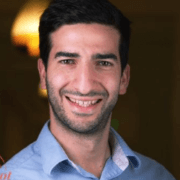
Ray Dogum
Ray Dogum is the producer and host of the Health Unchained podcast. On his show, he interviews leaders in the blockchain/healthcare industry where he covers topics such as health data integrity management, efficiency improvement opportunities in healthcare administration, and the future of decentralization. He also manages the deployment of enterprise-scale telehealth solutions for Health Systems at American Well, a telemedicine company based in Boston.

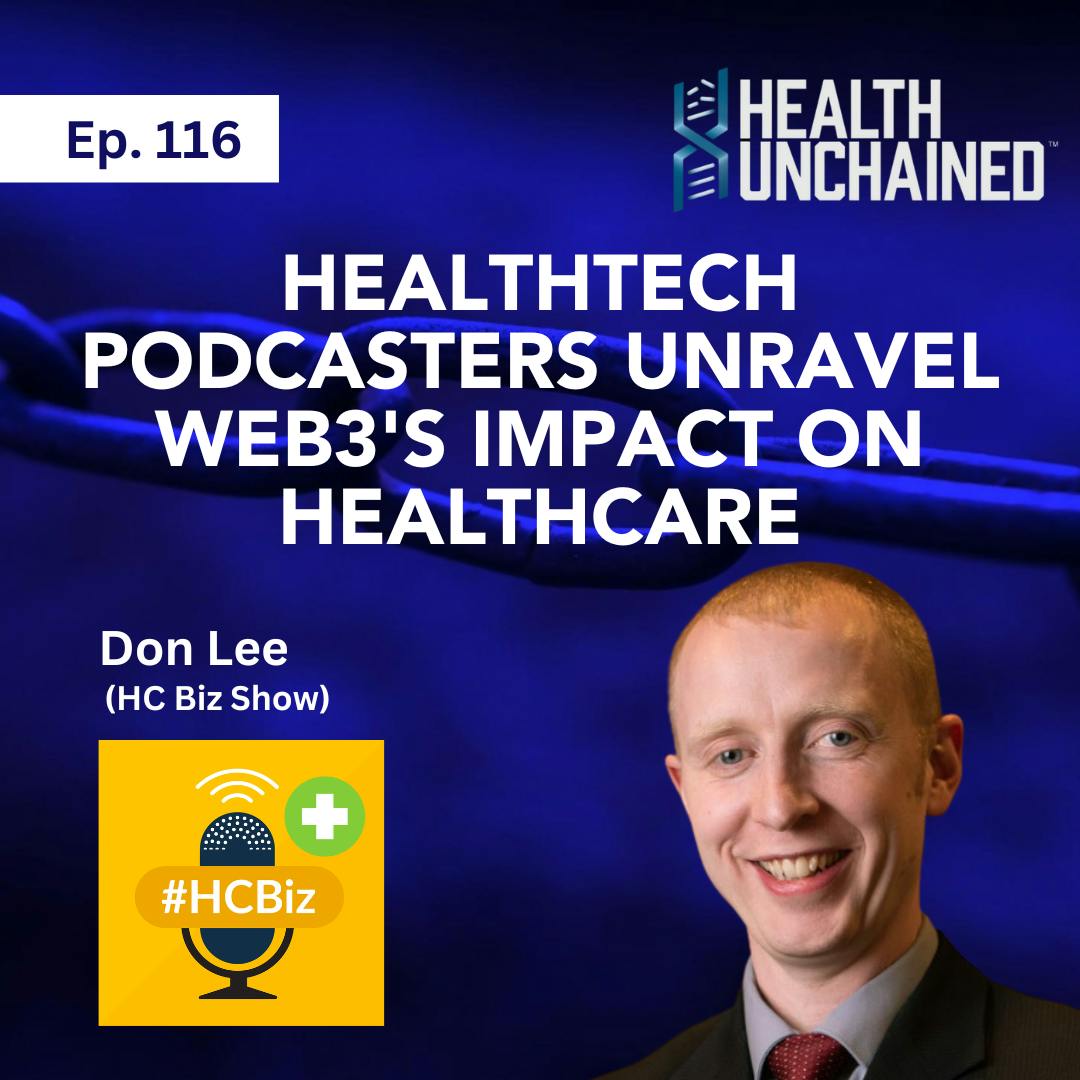
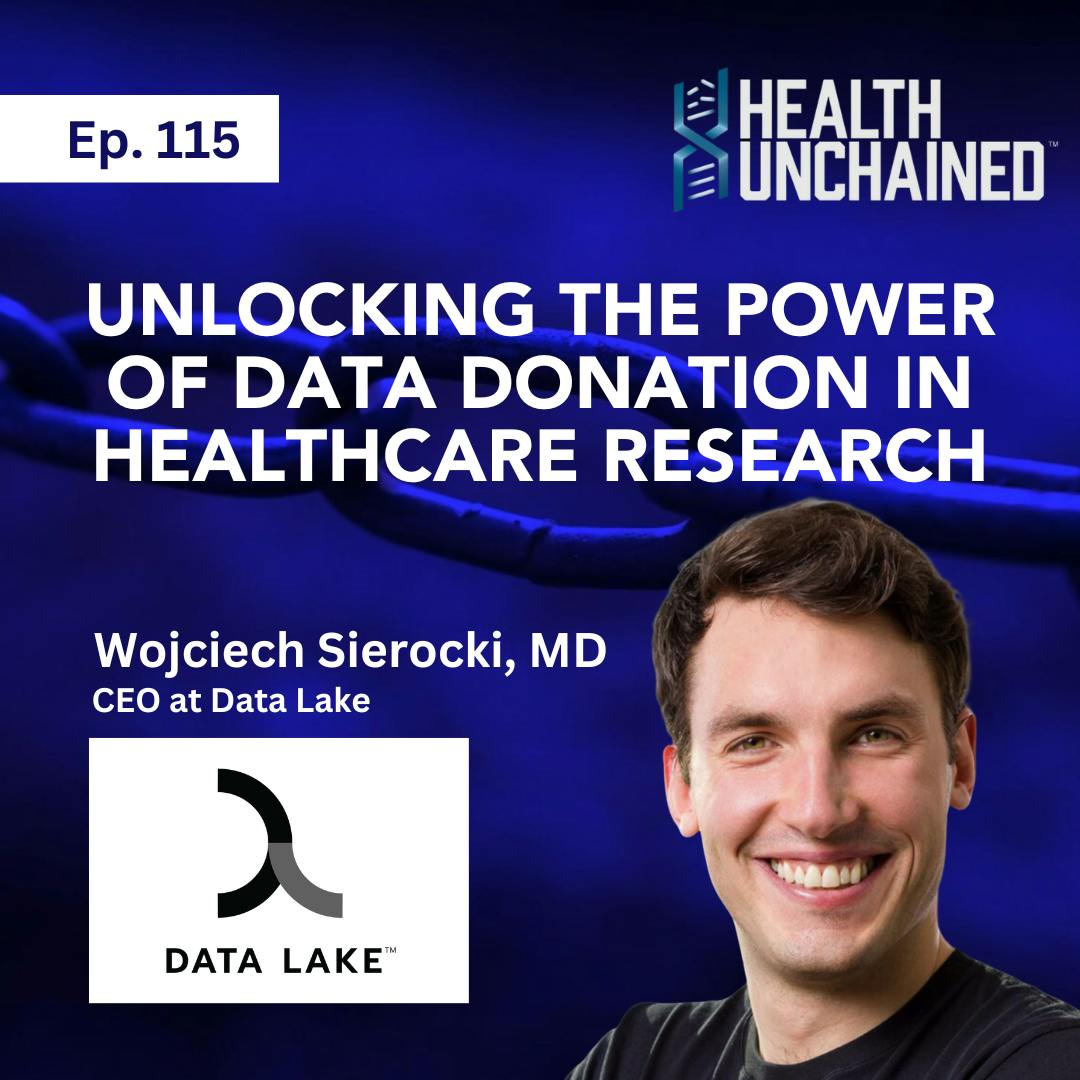
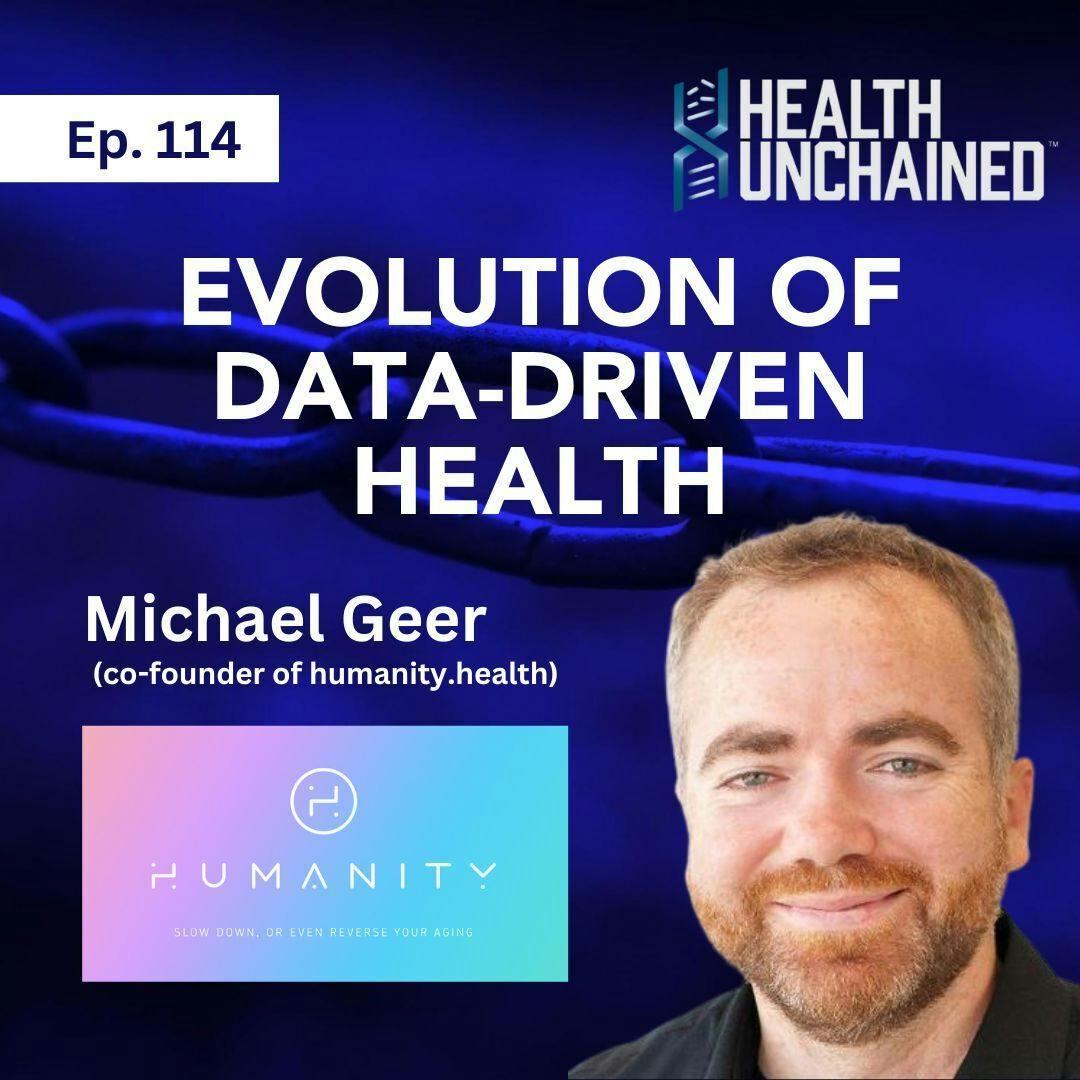
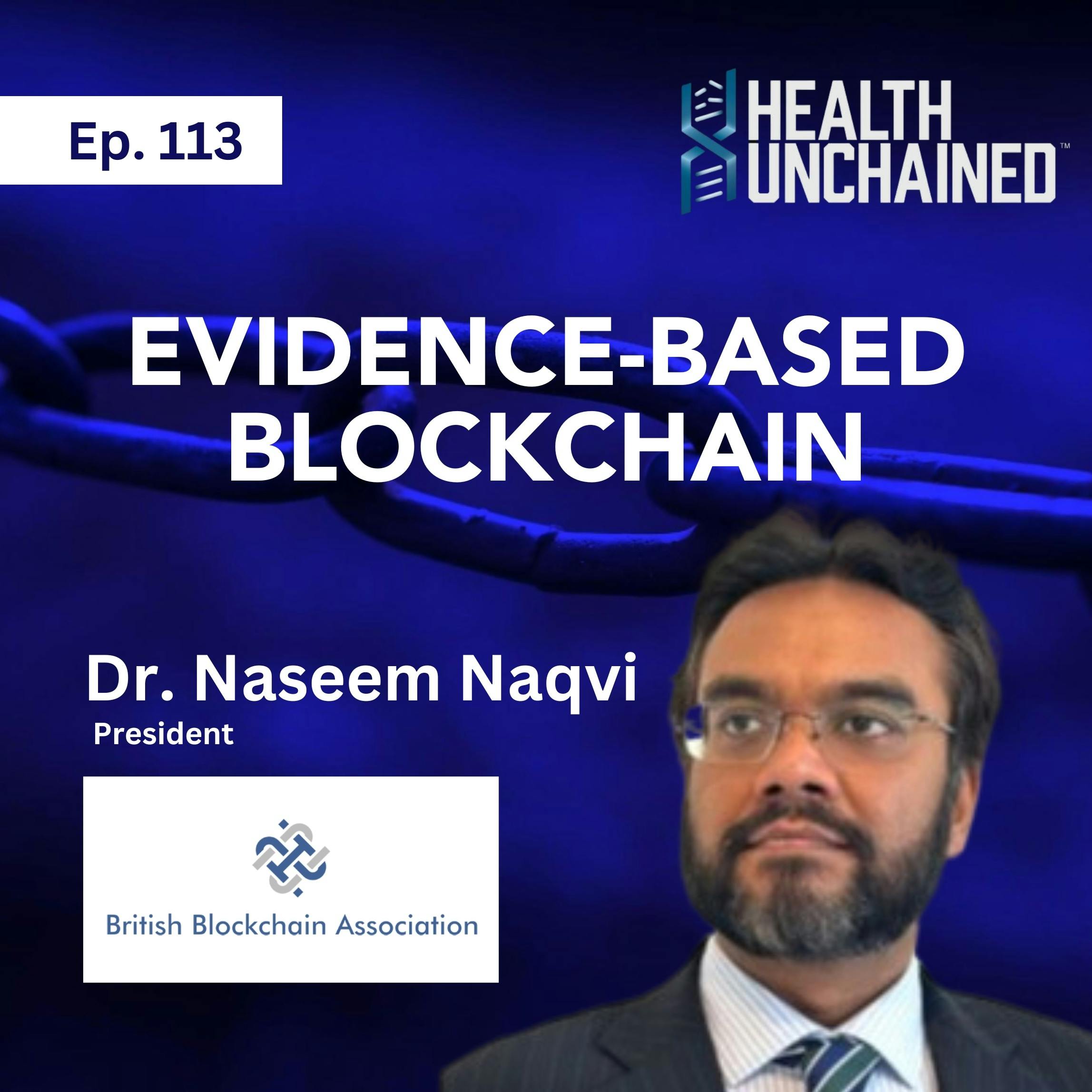
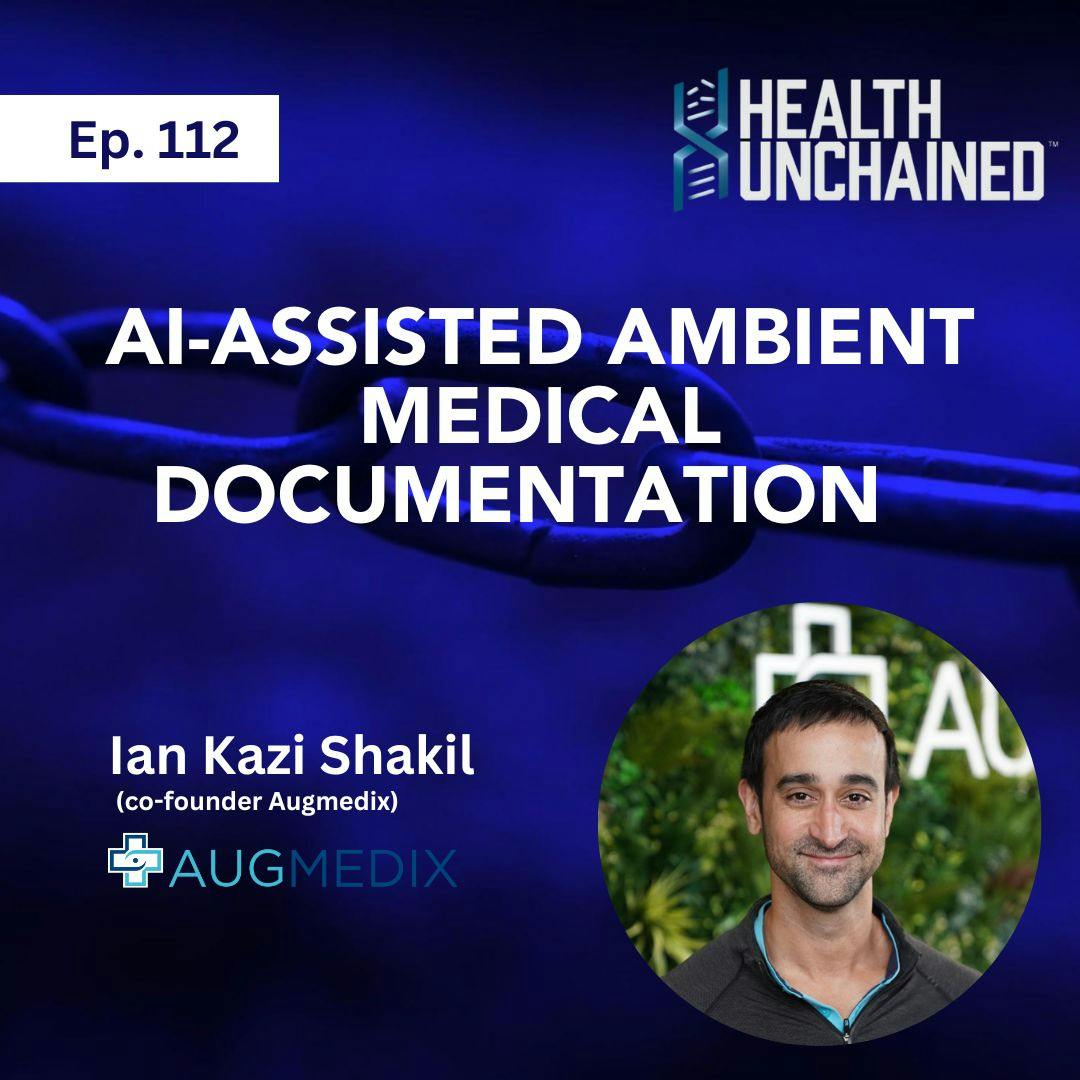
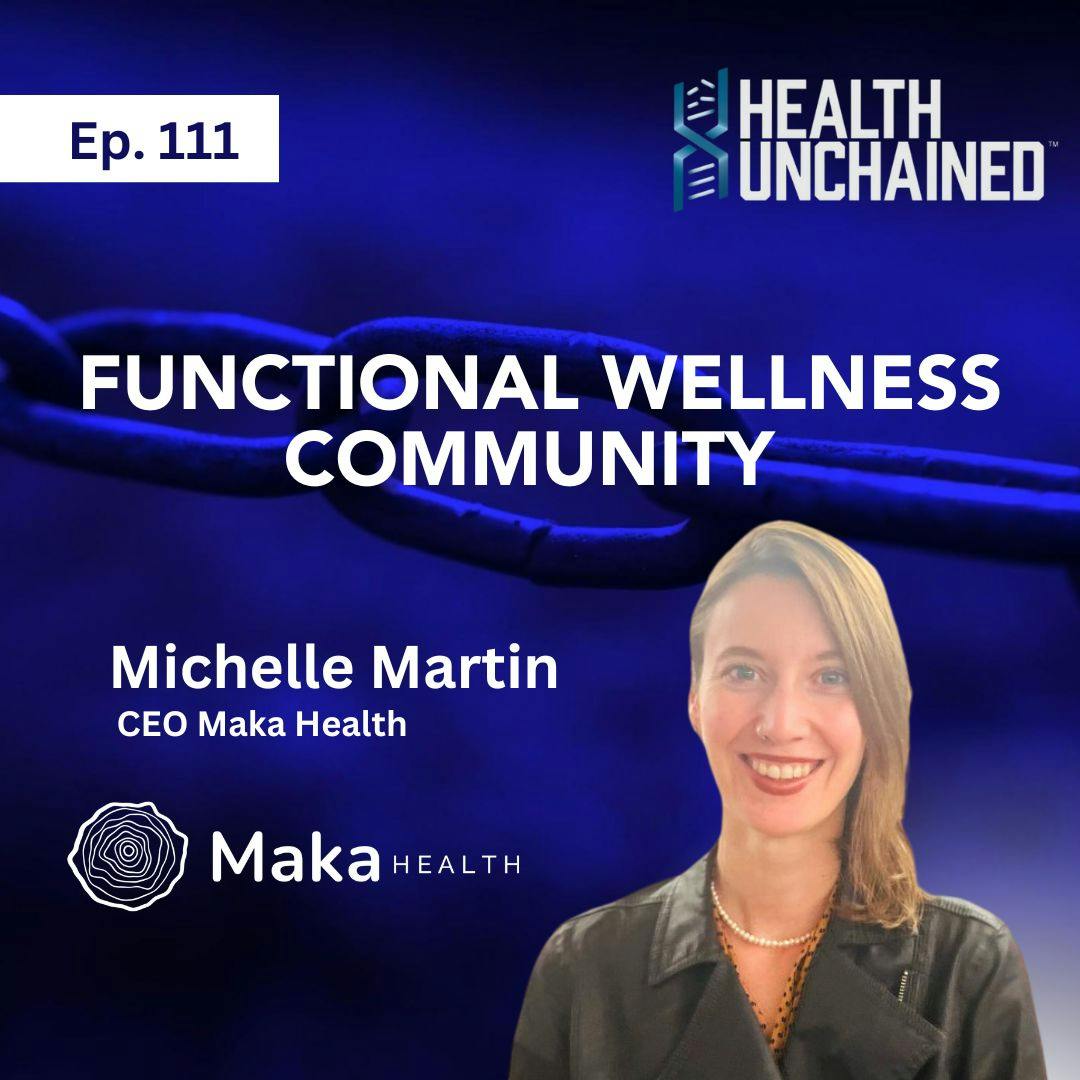
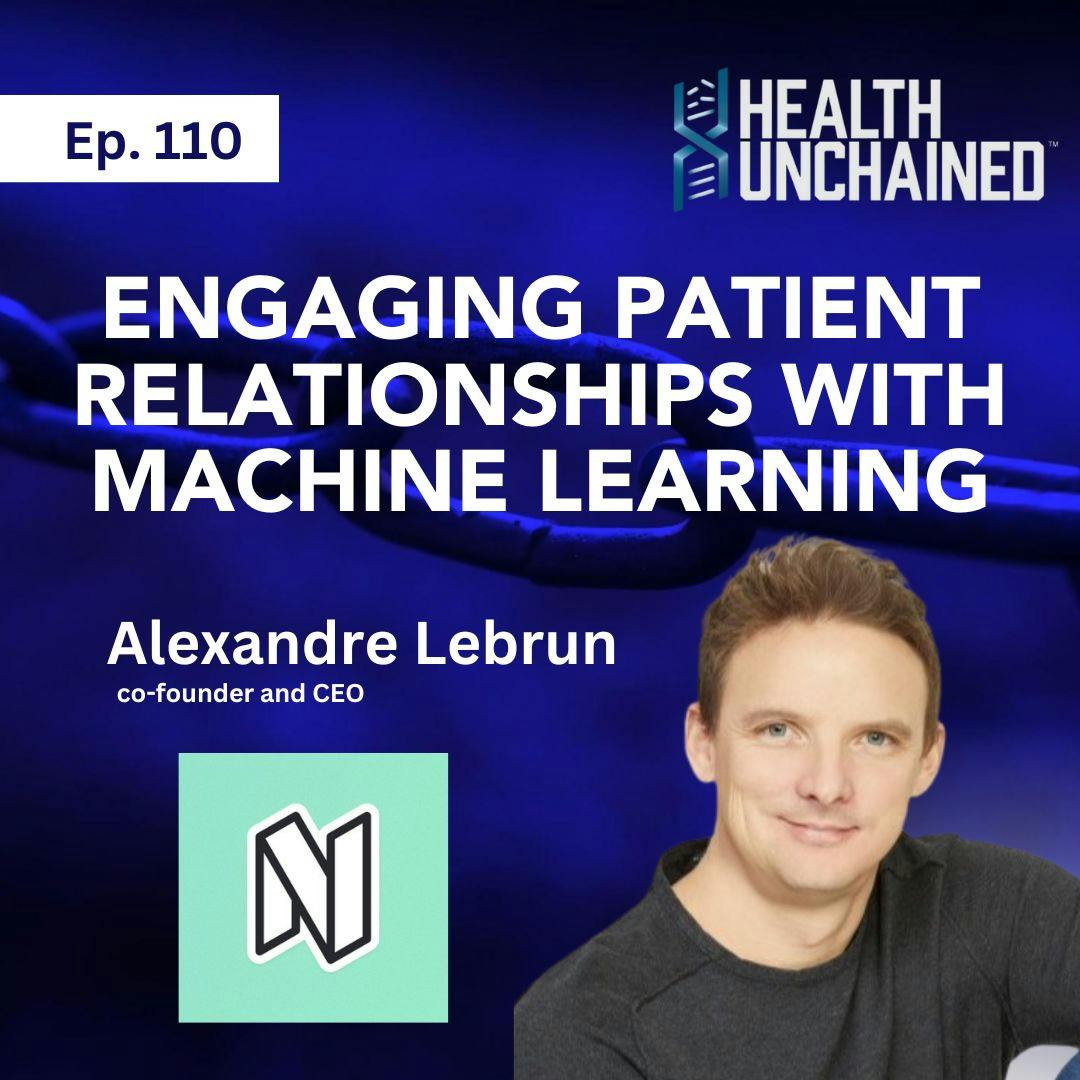
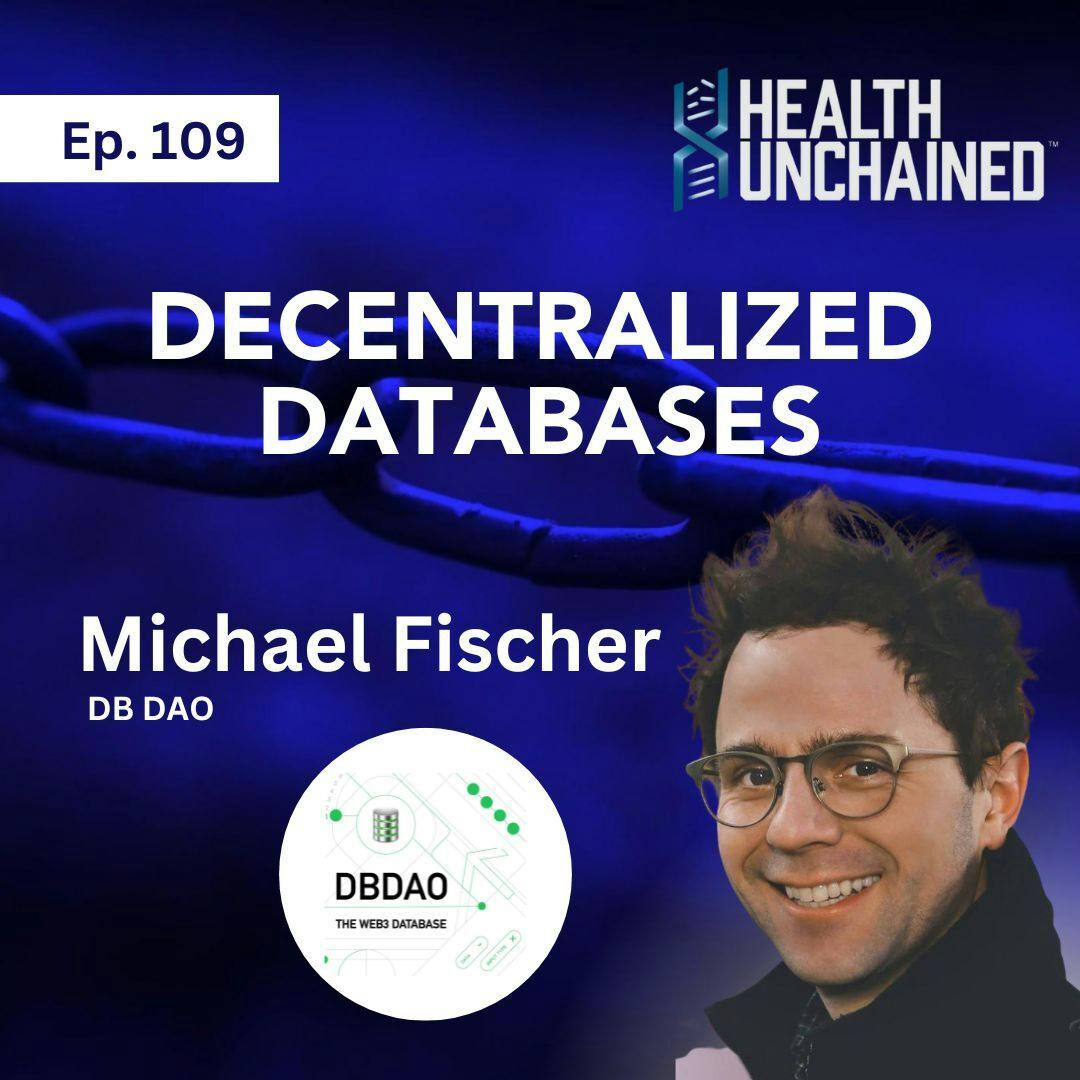
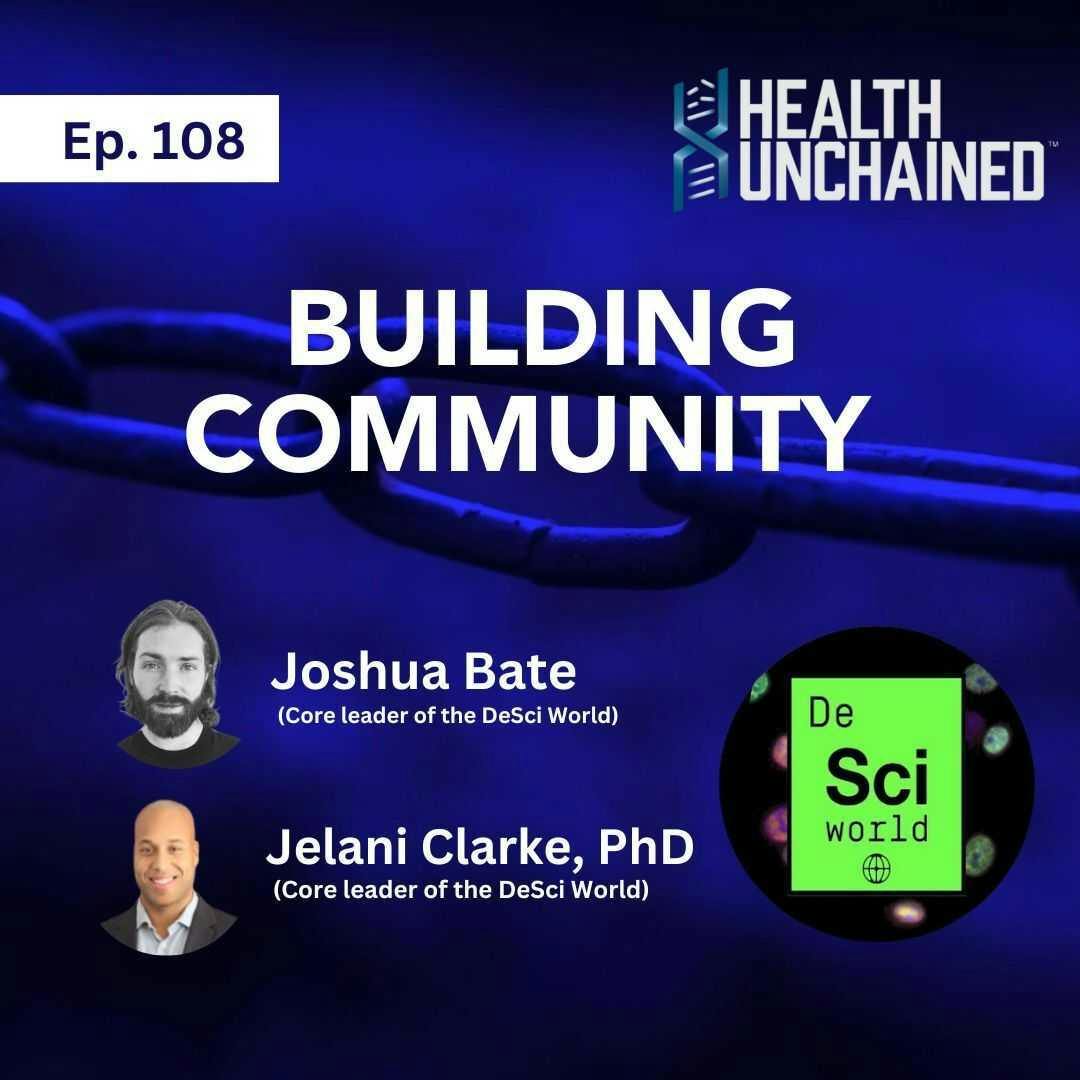
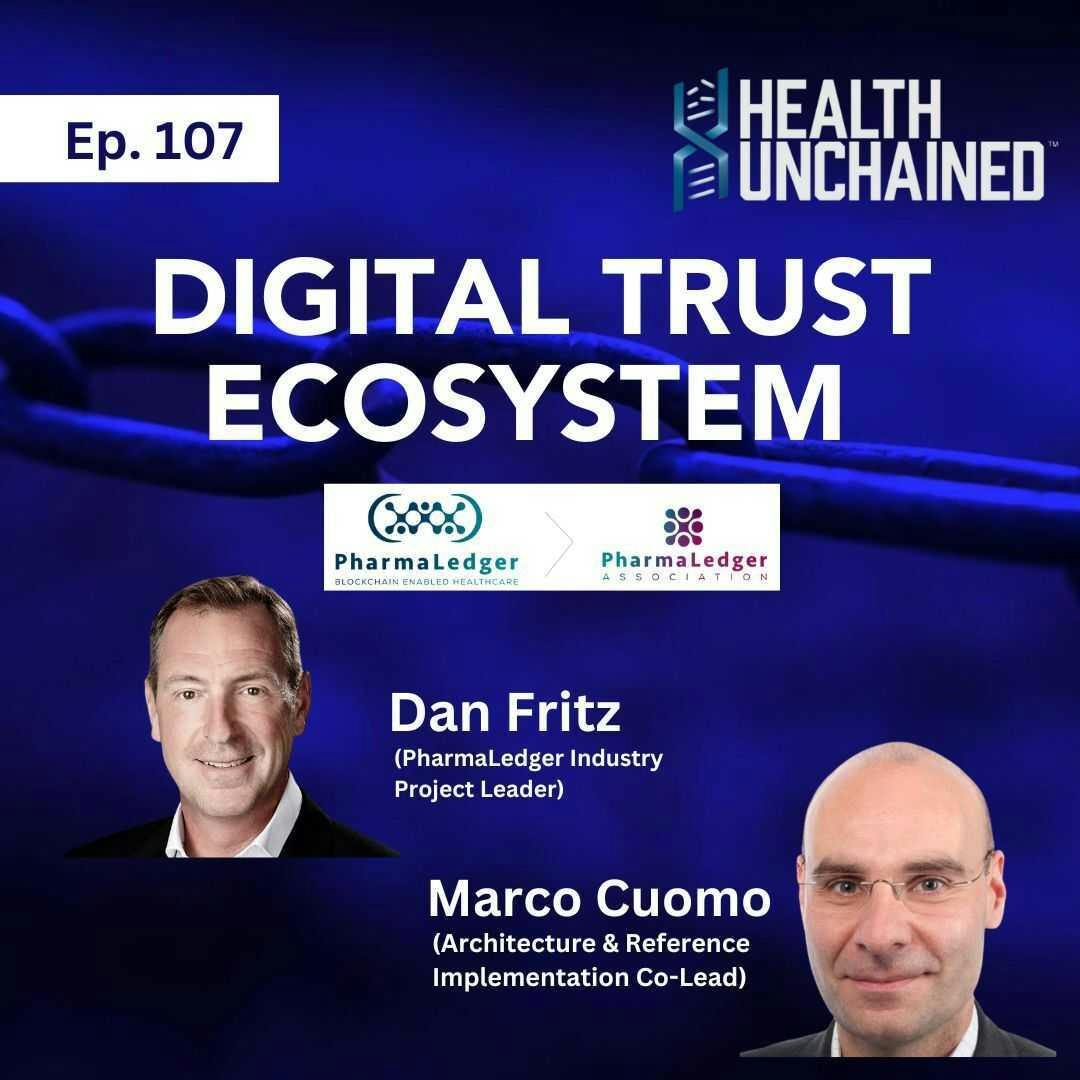
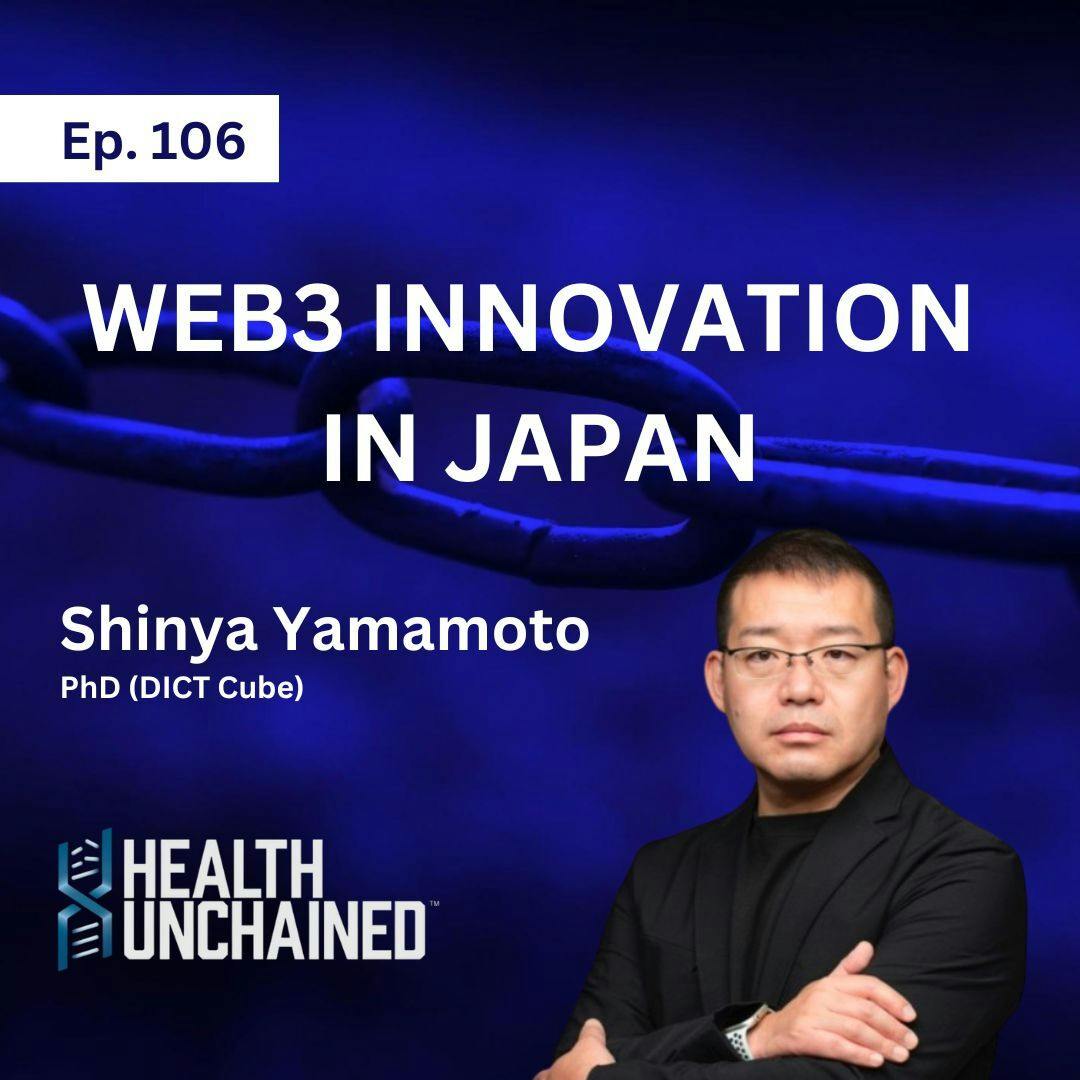
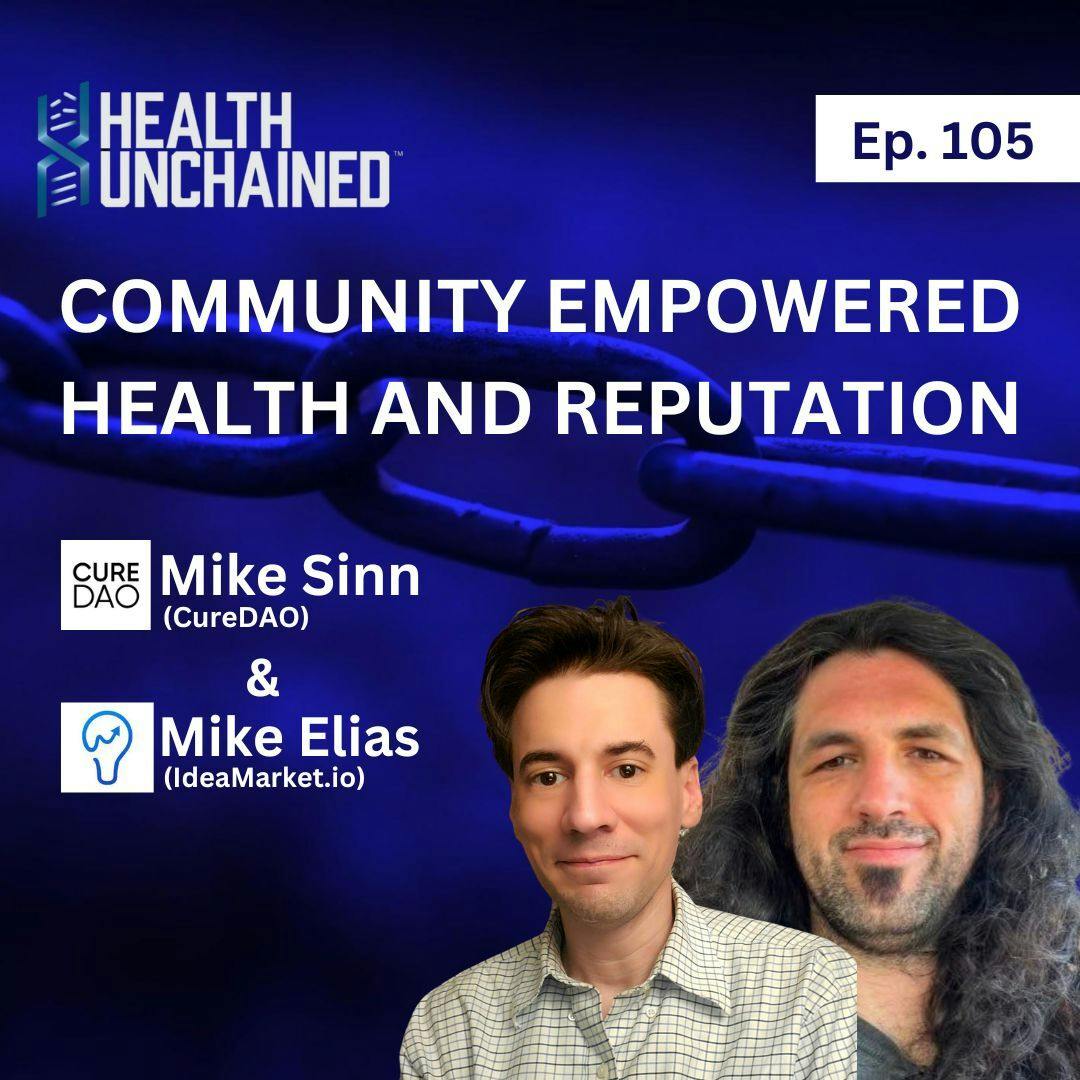
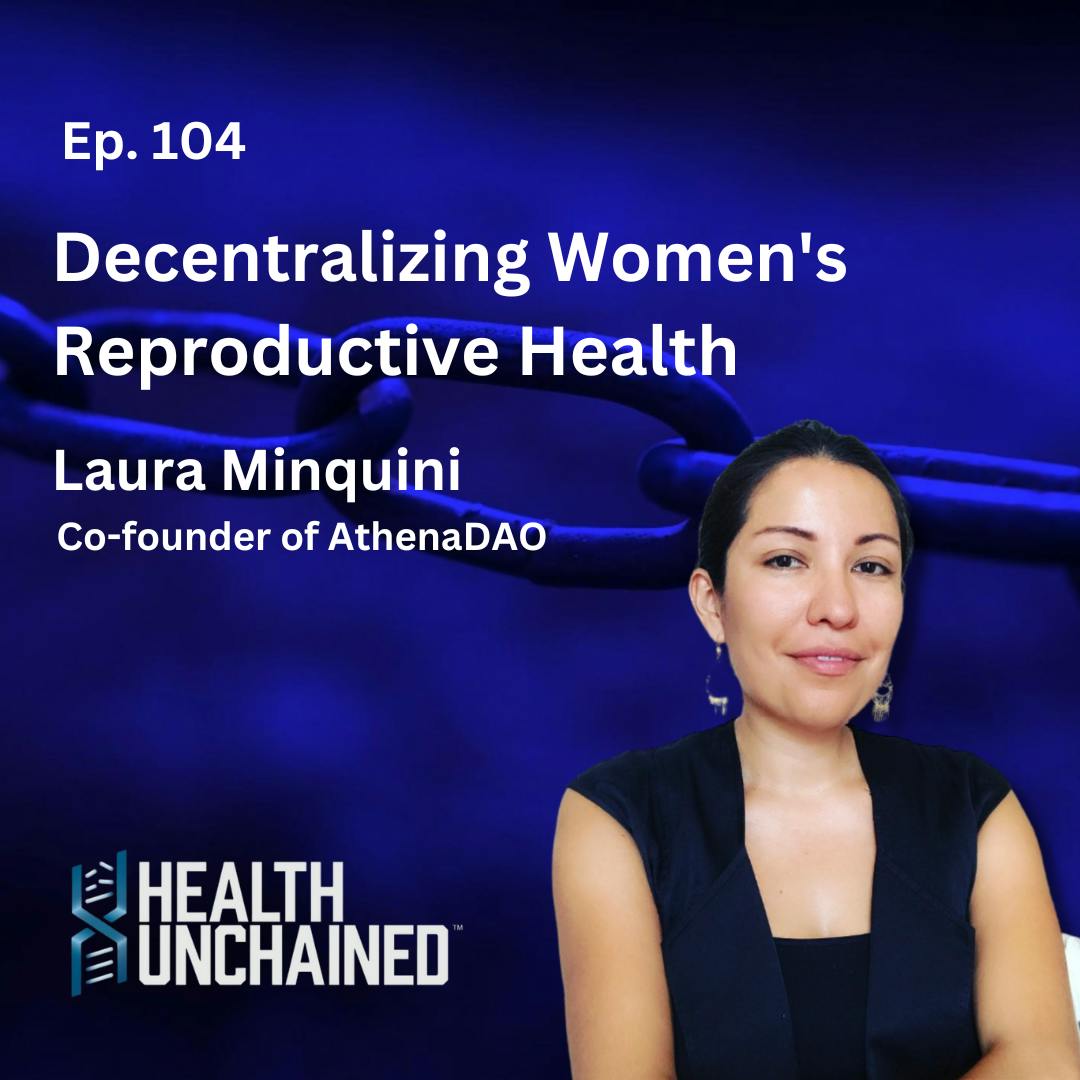
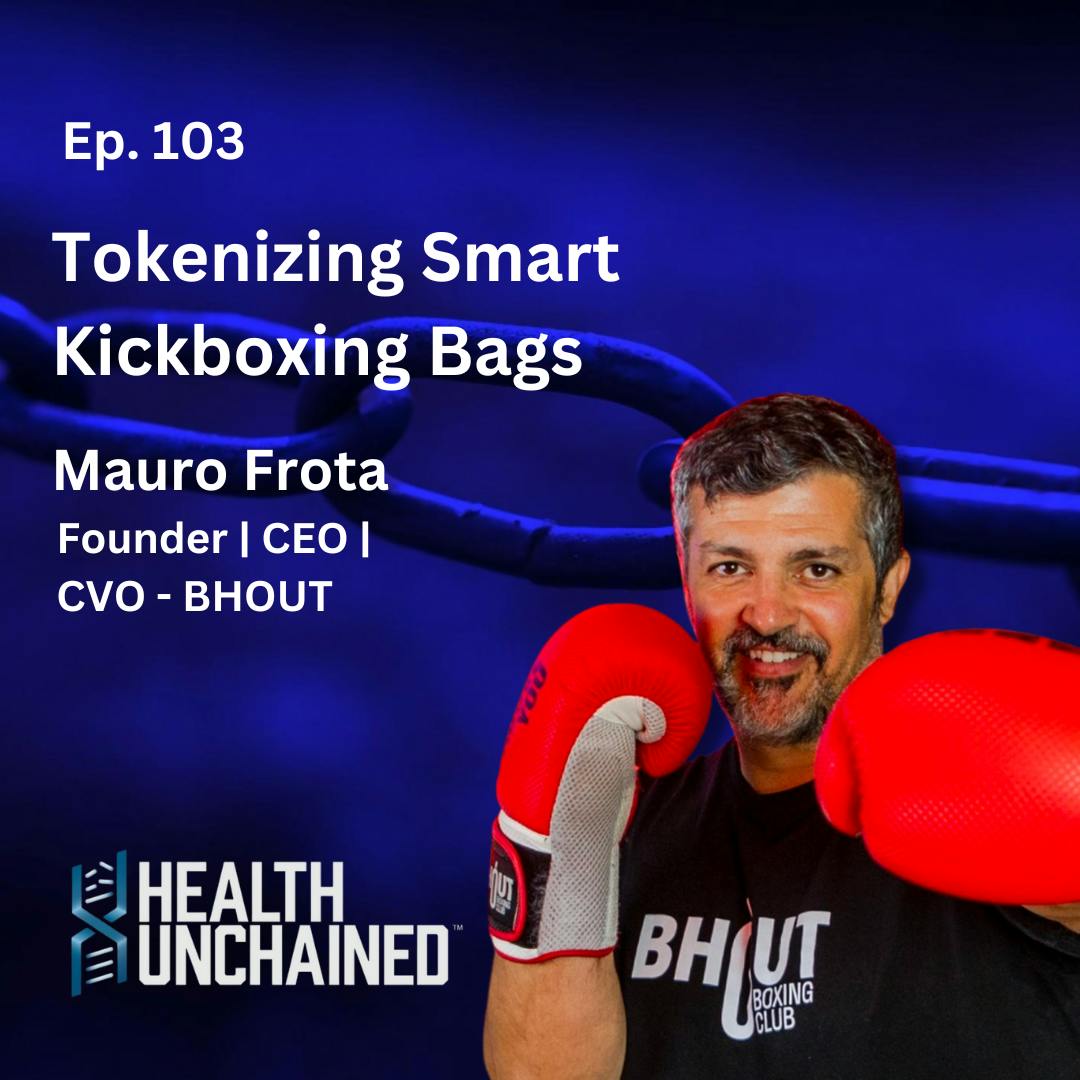
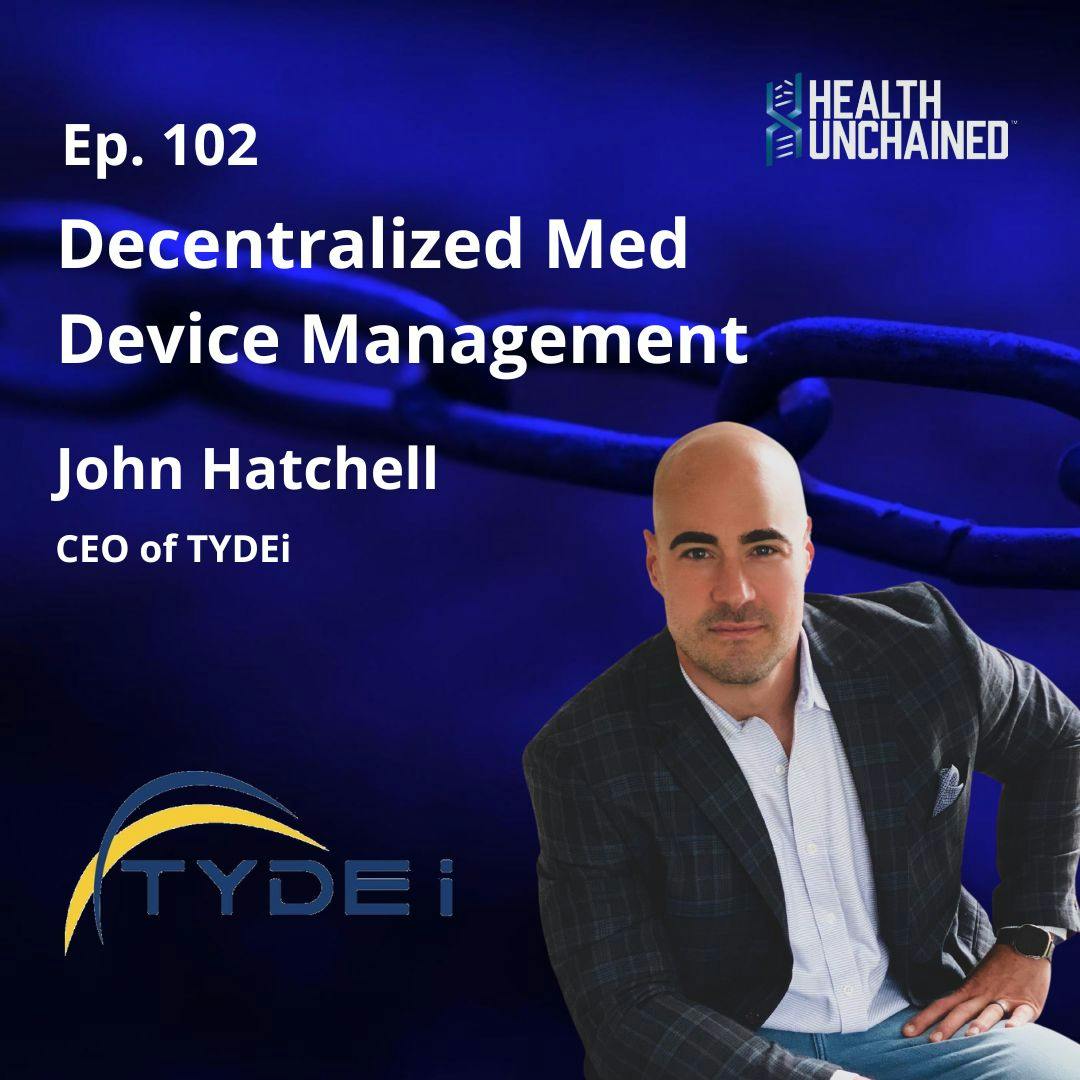
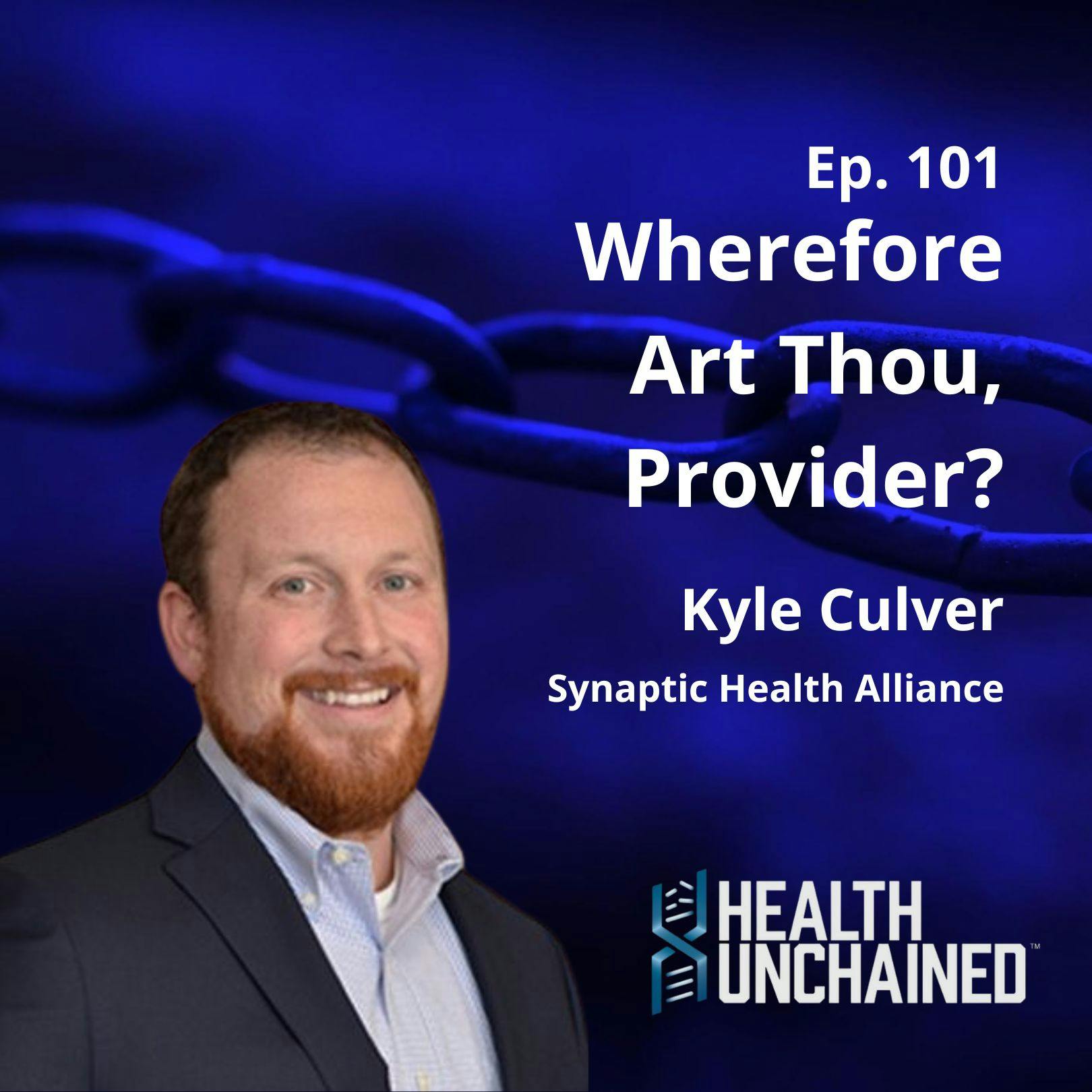
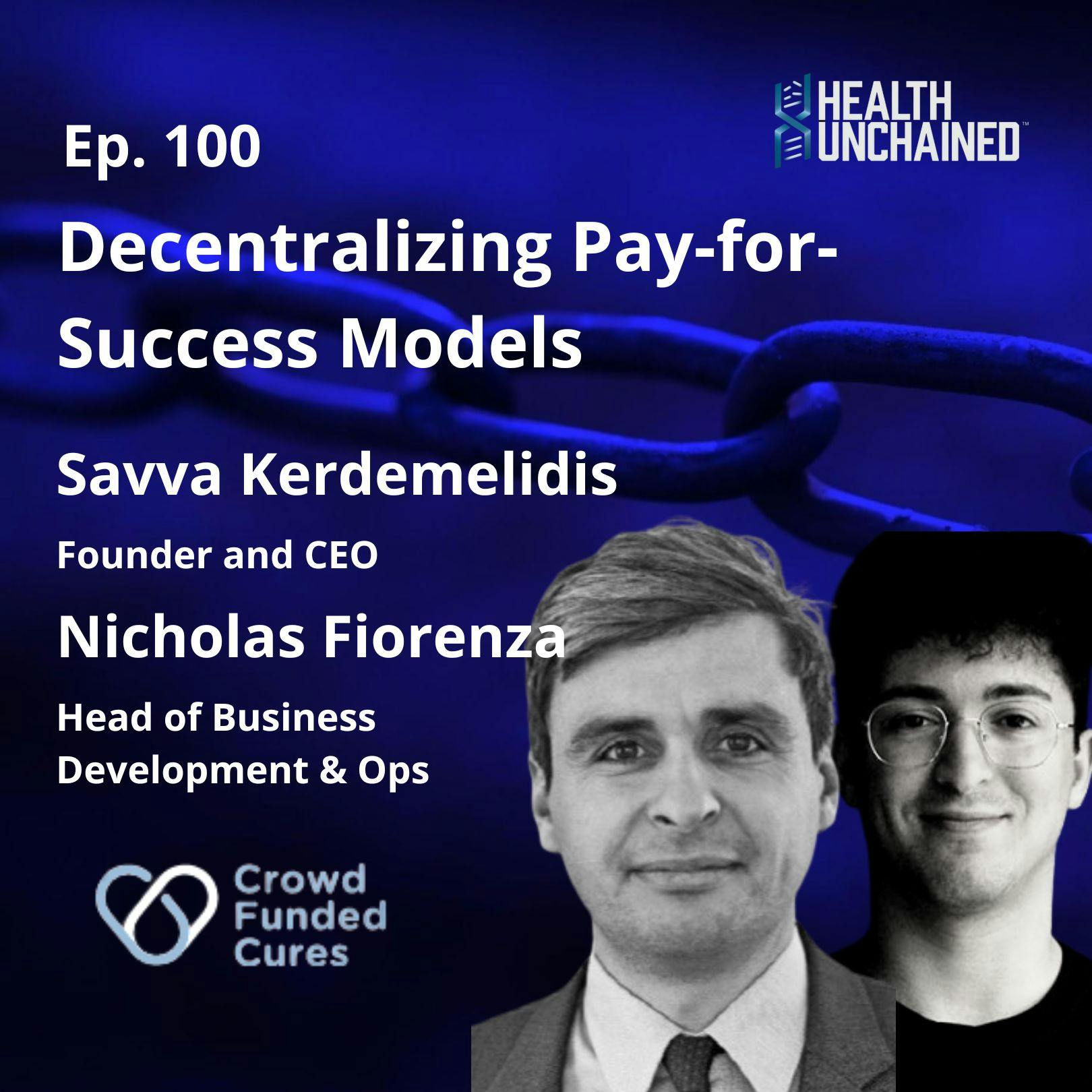
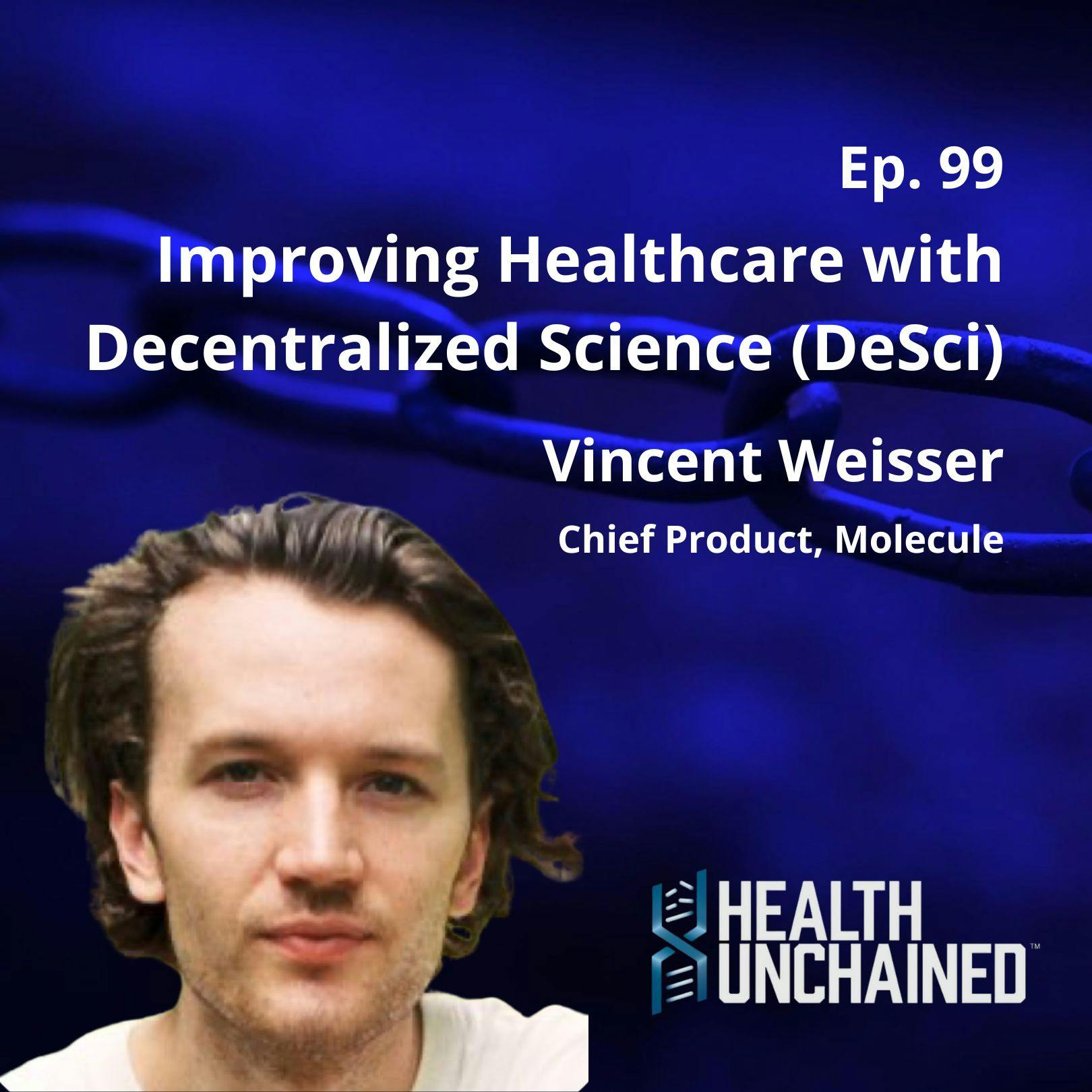
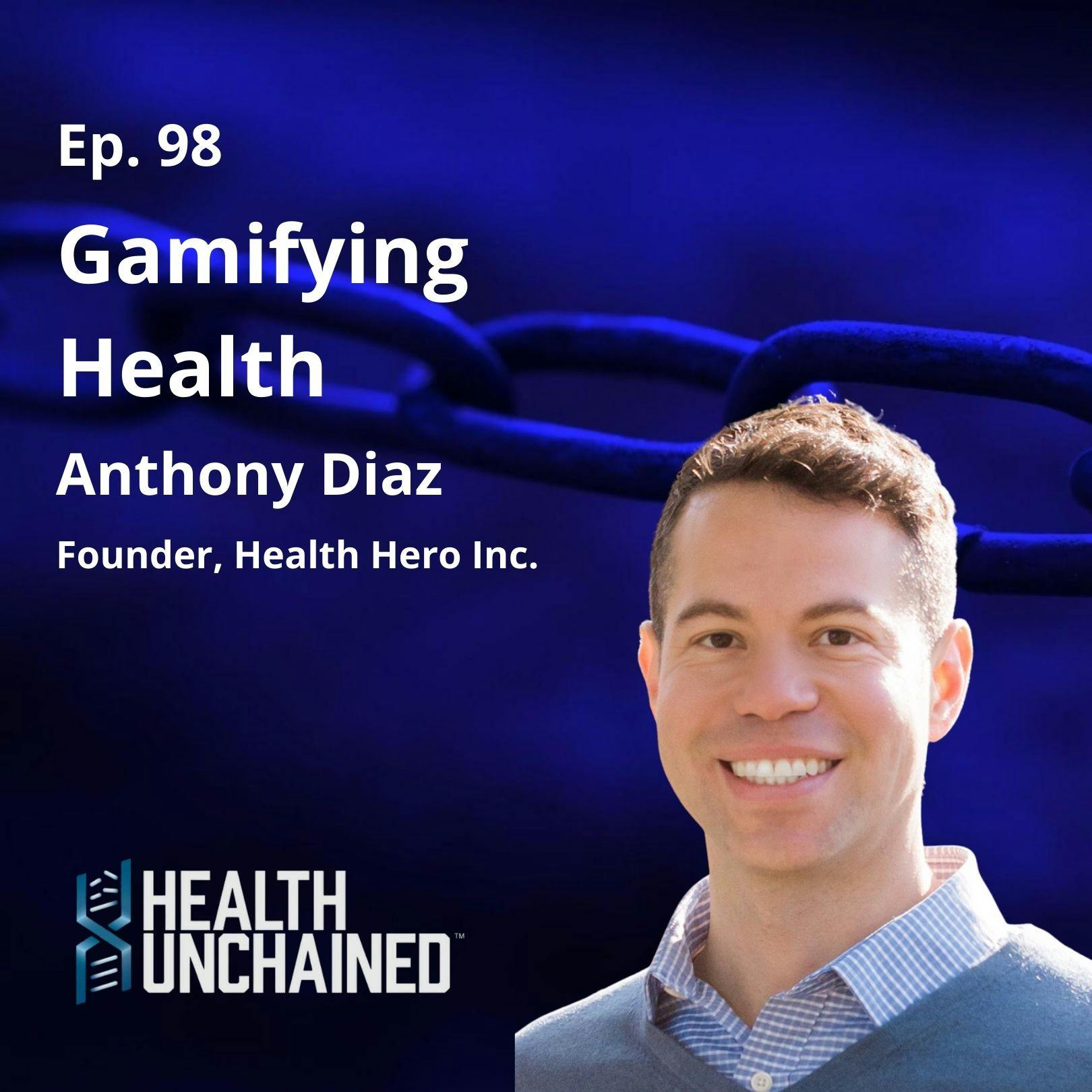
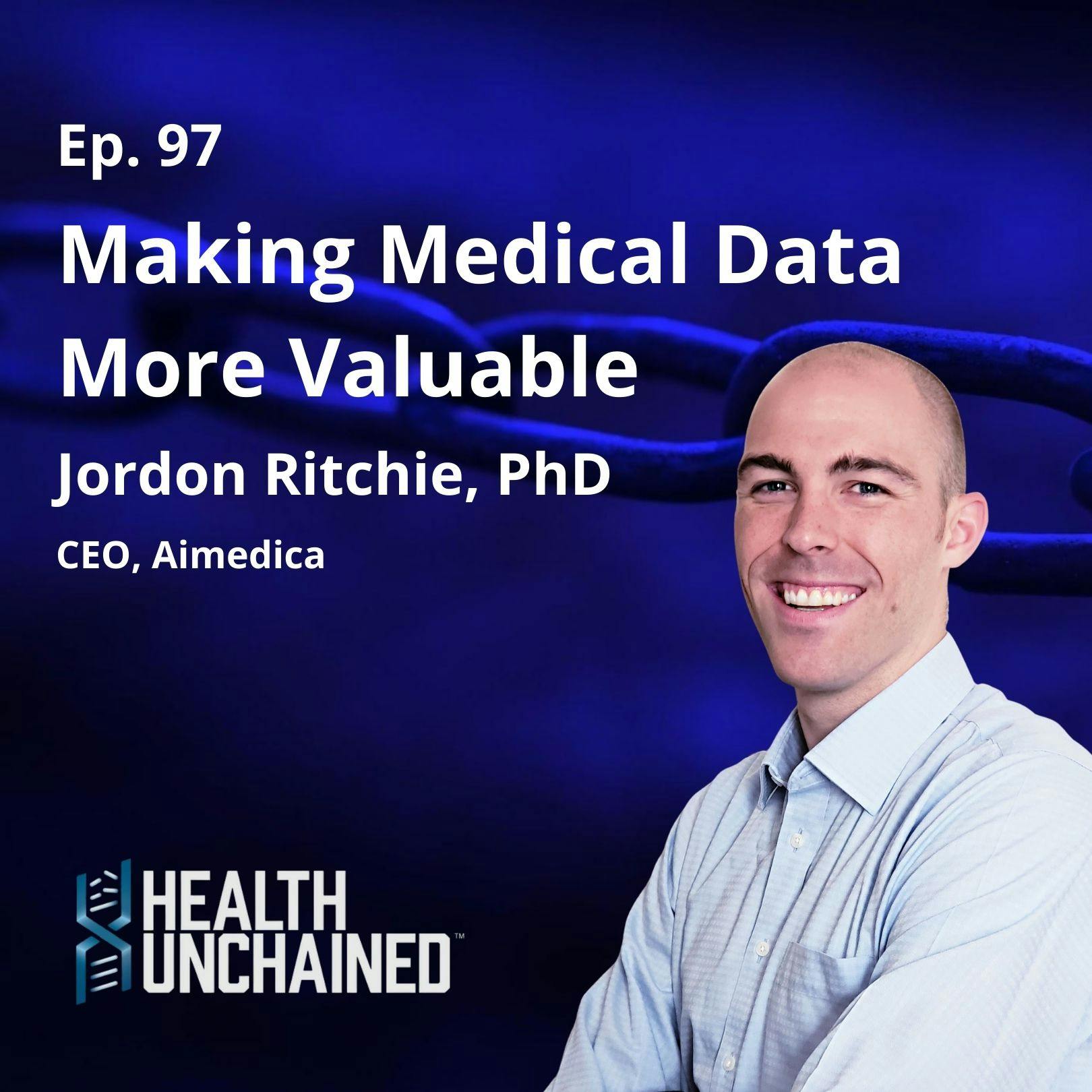
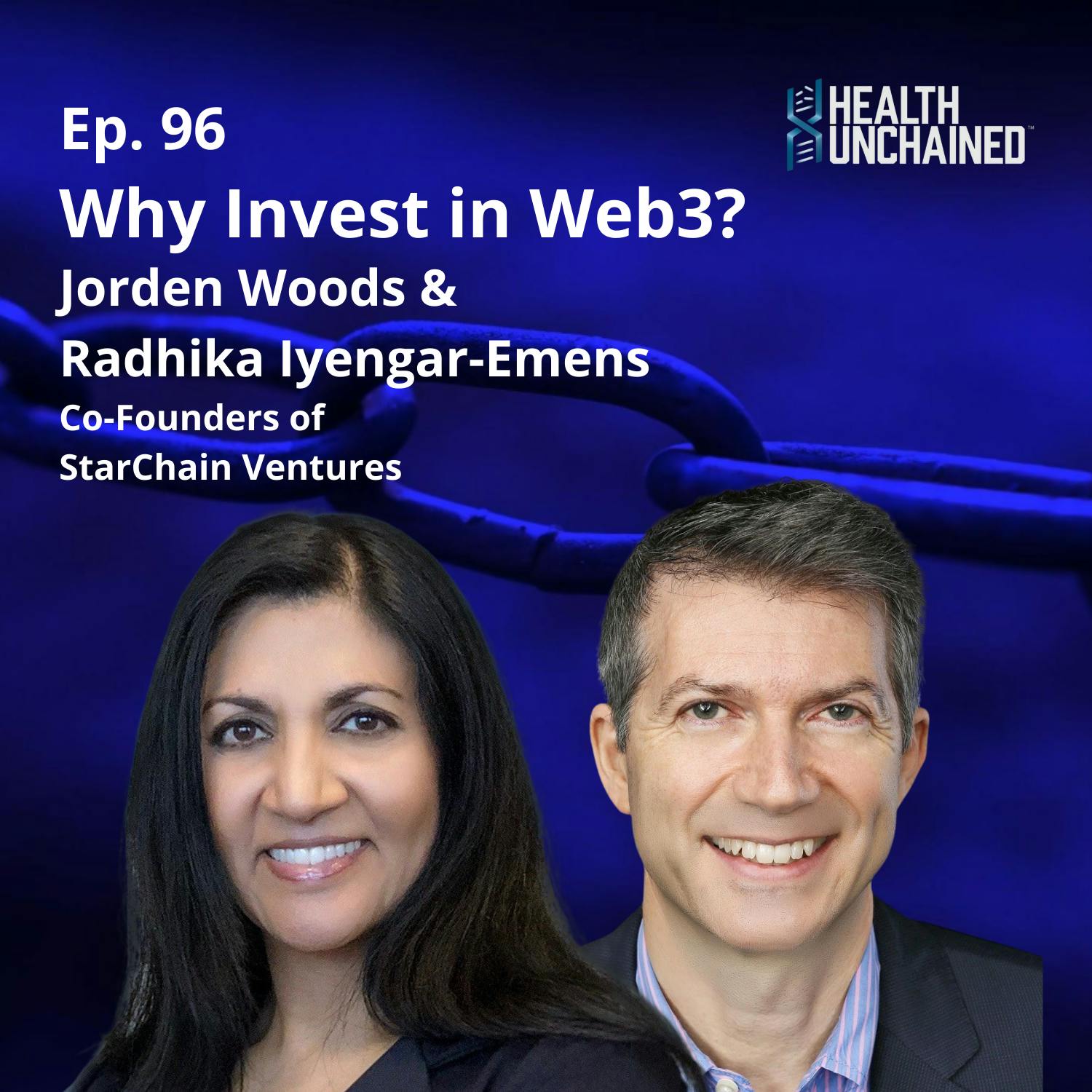
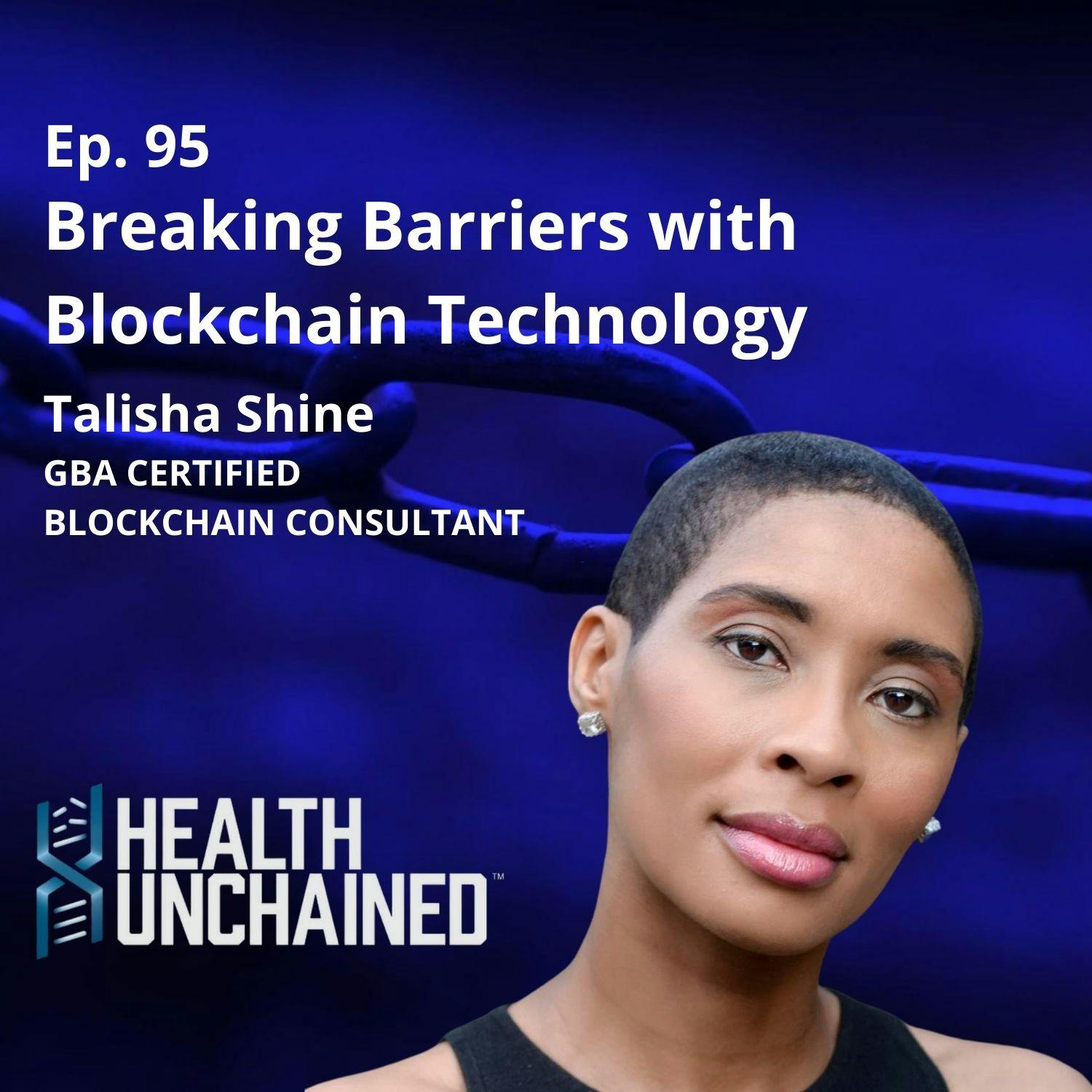
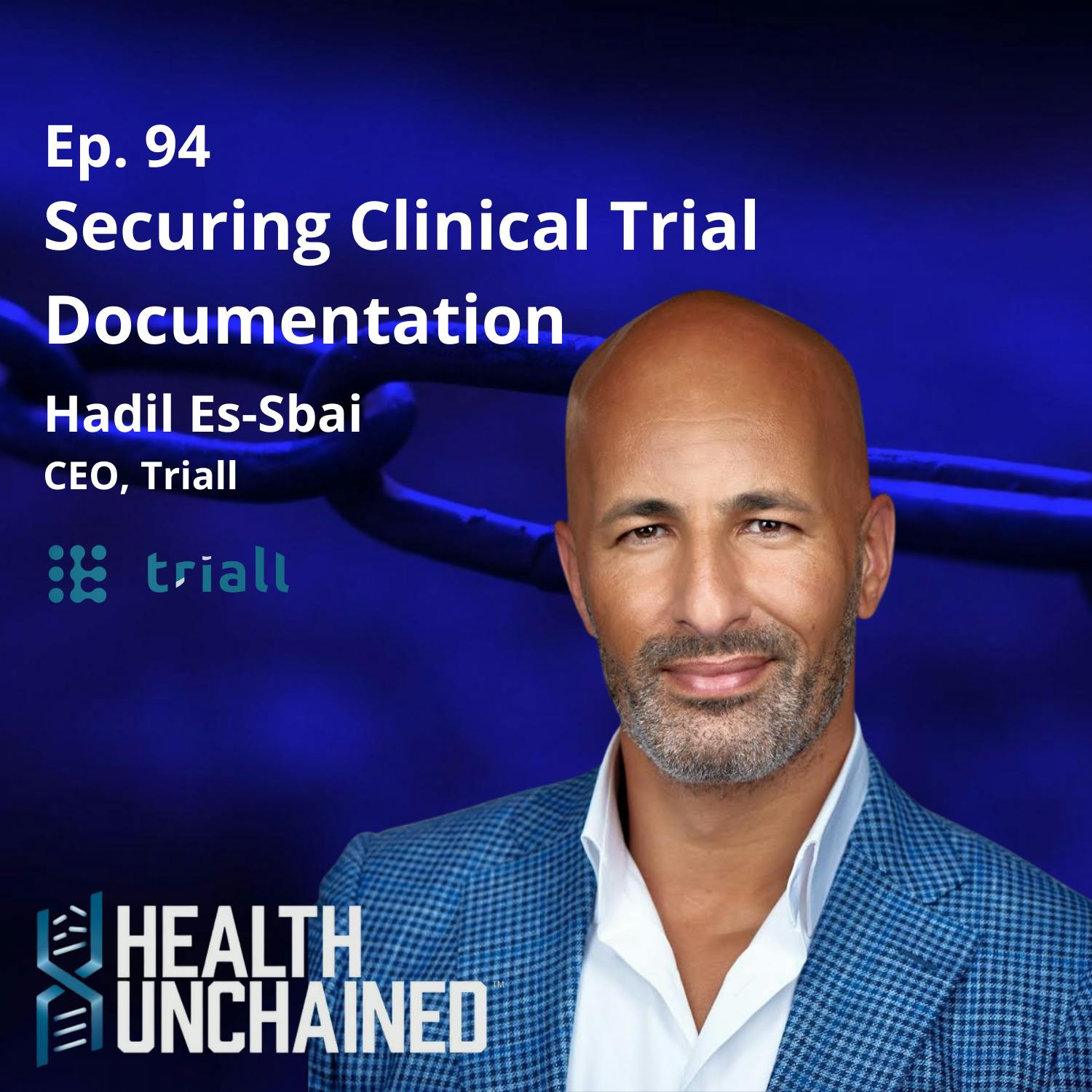
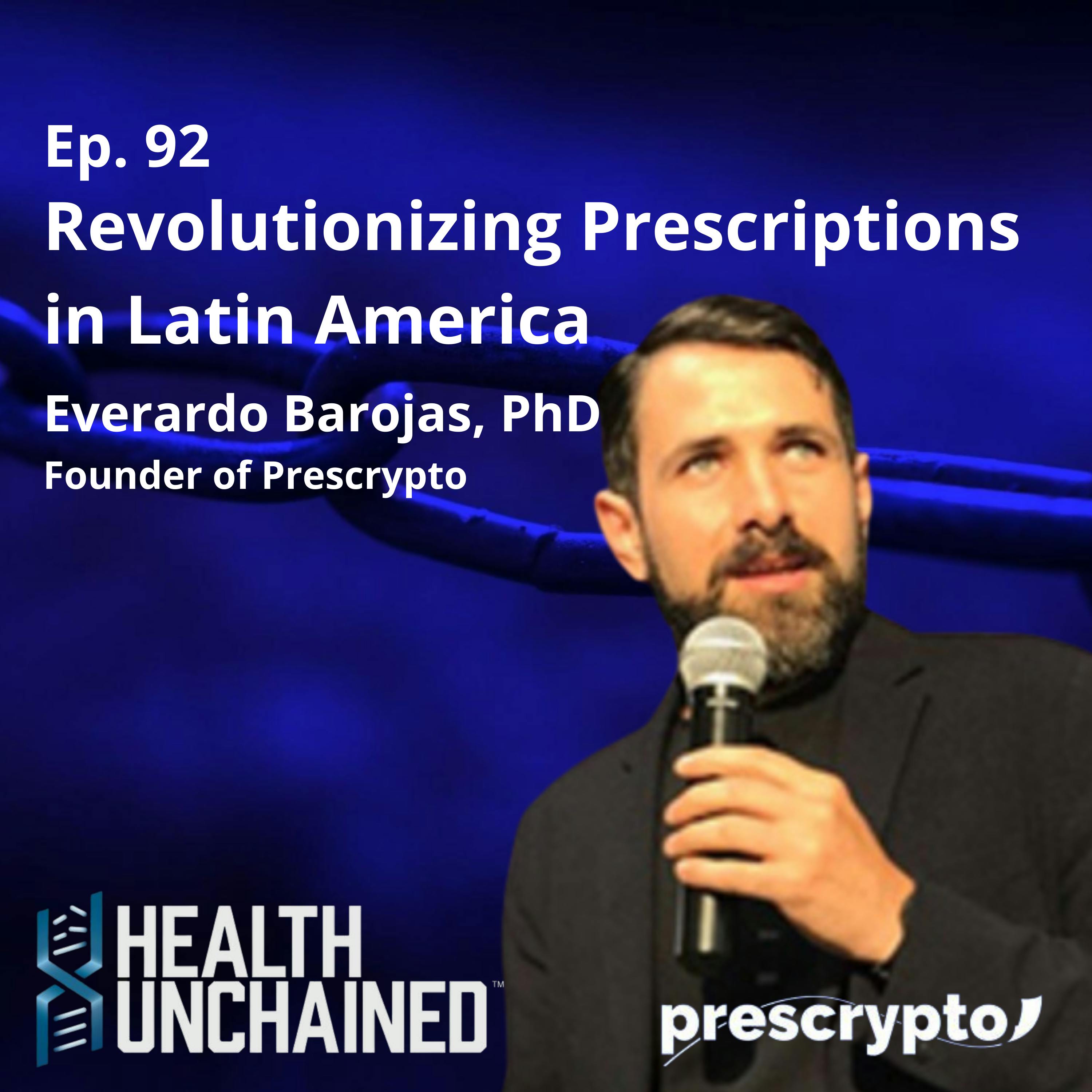
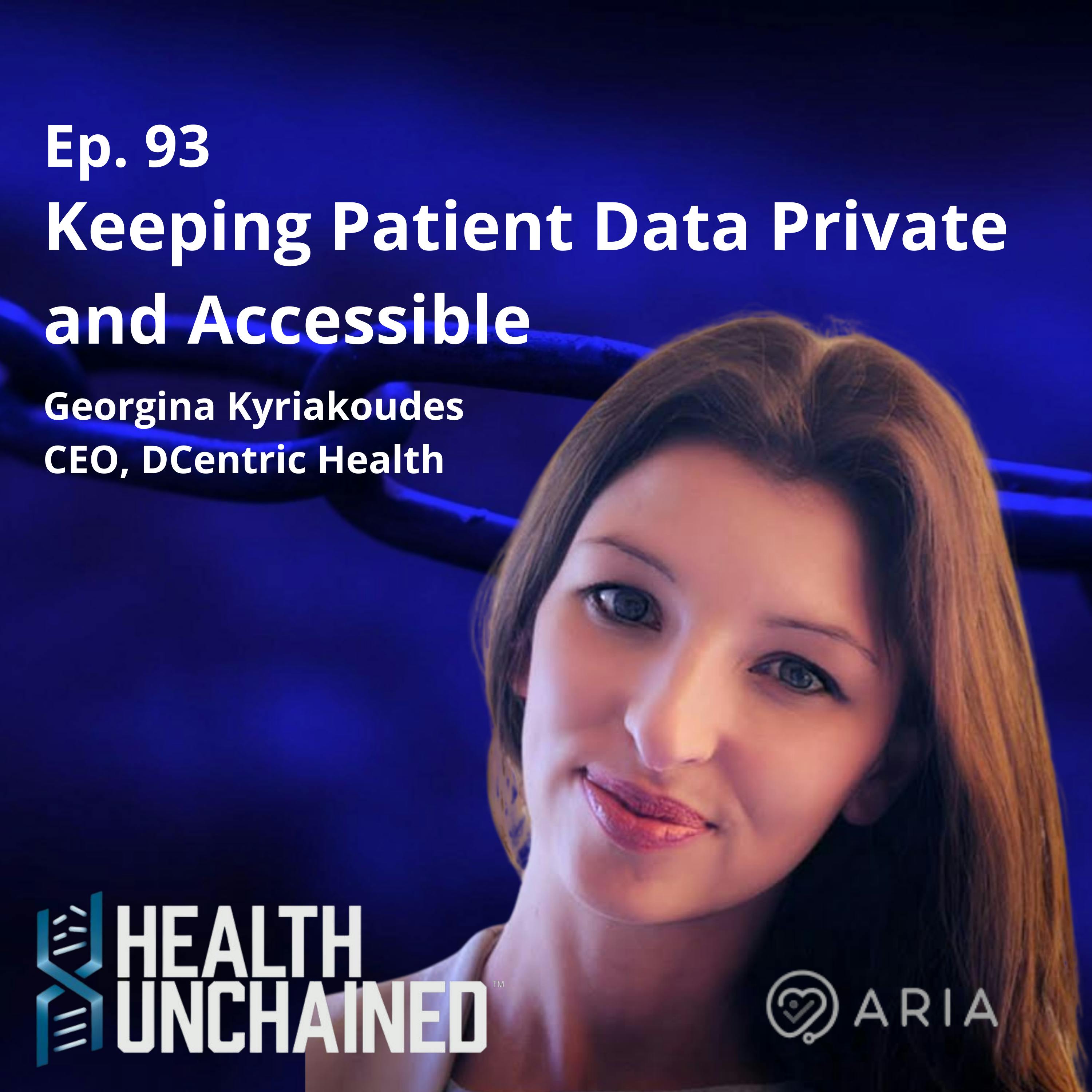
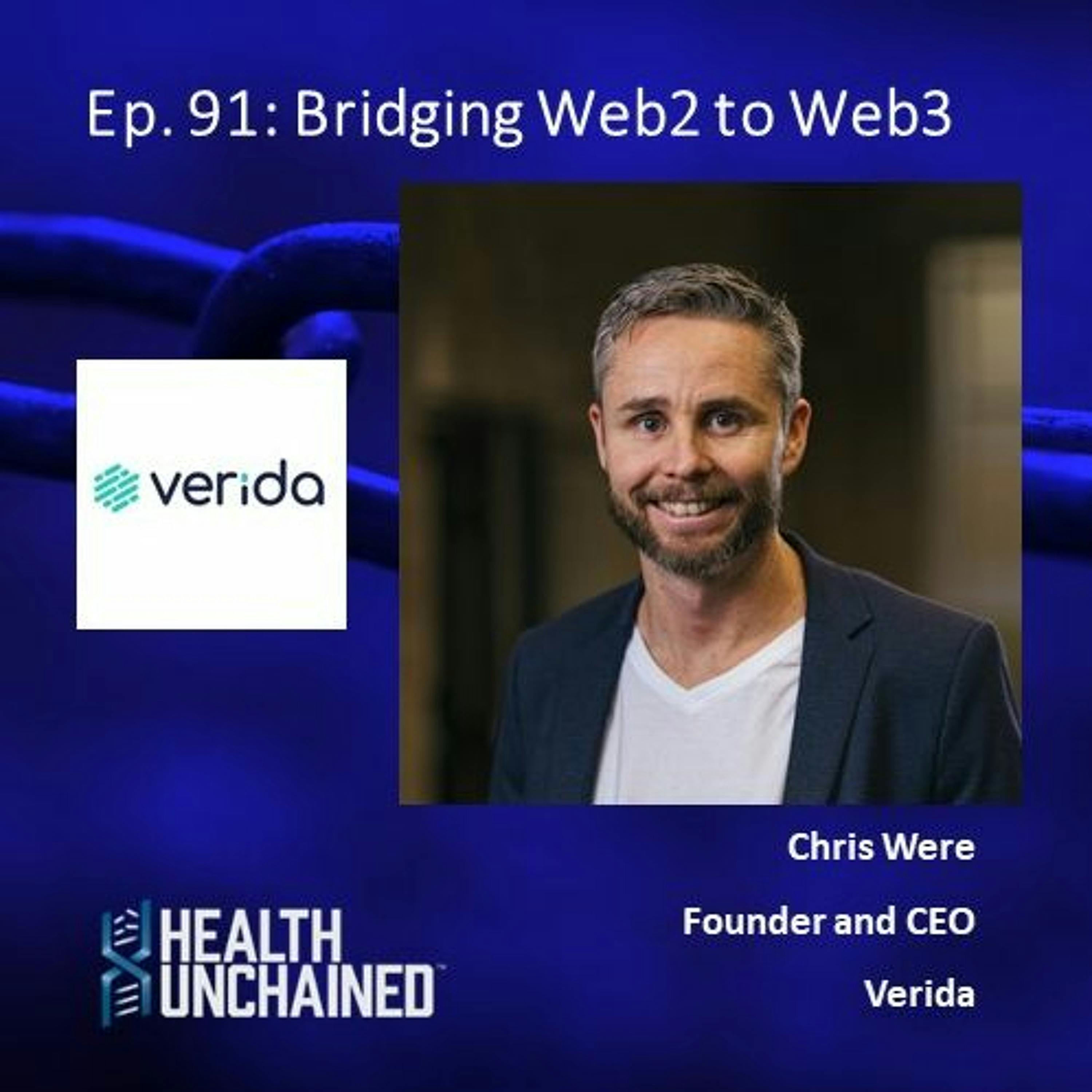
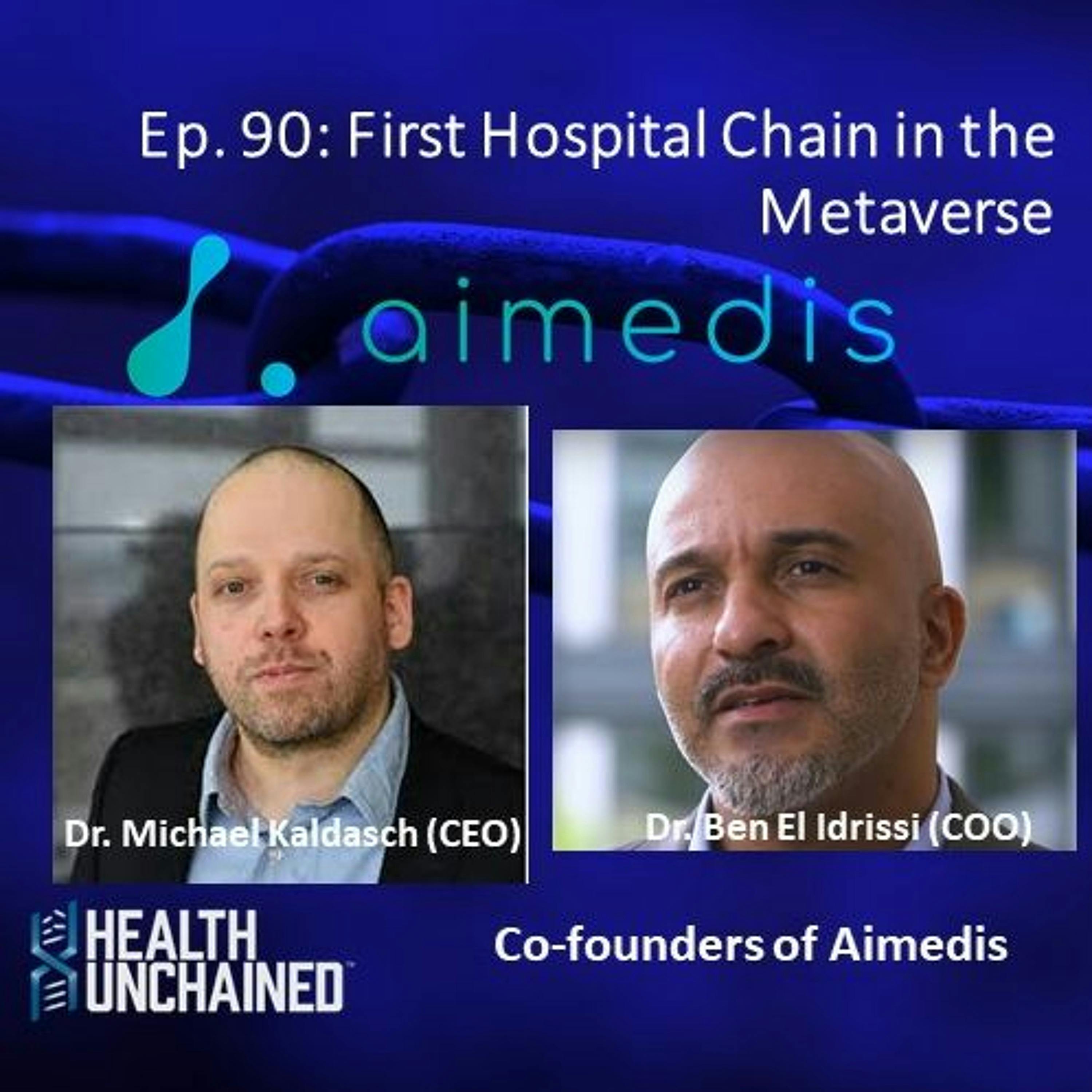
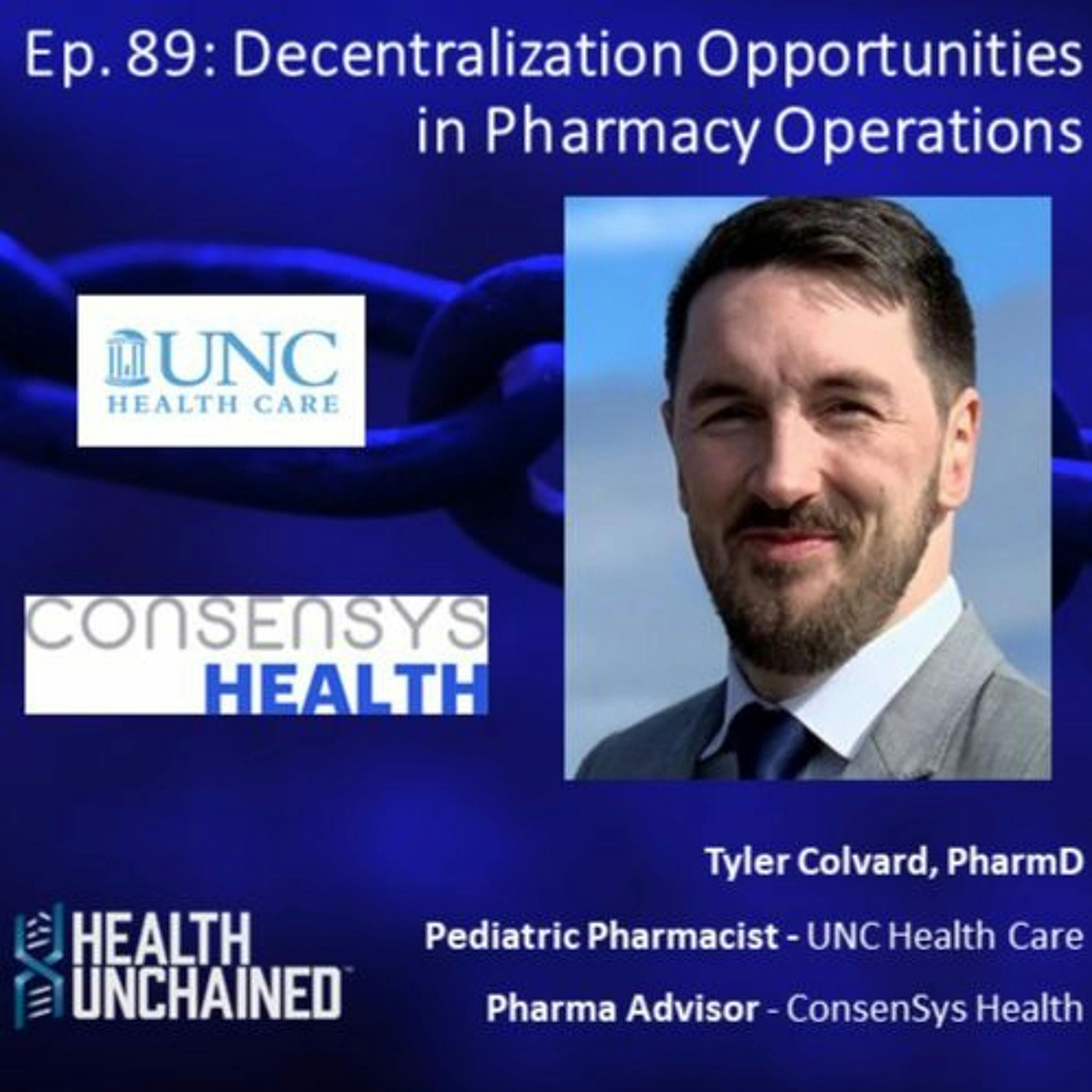
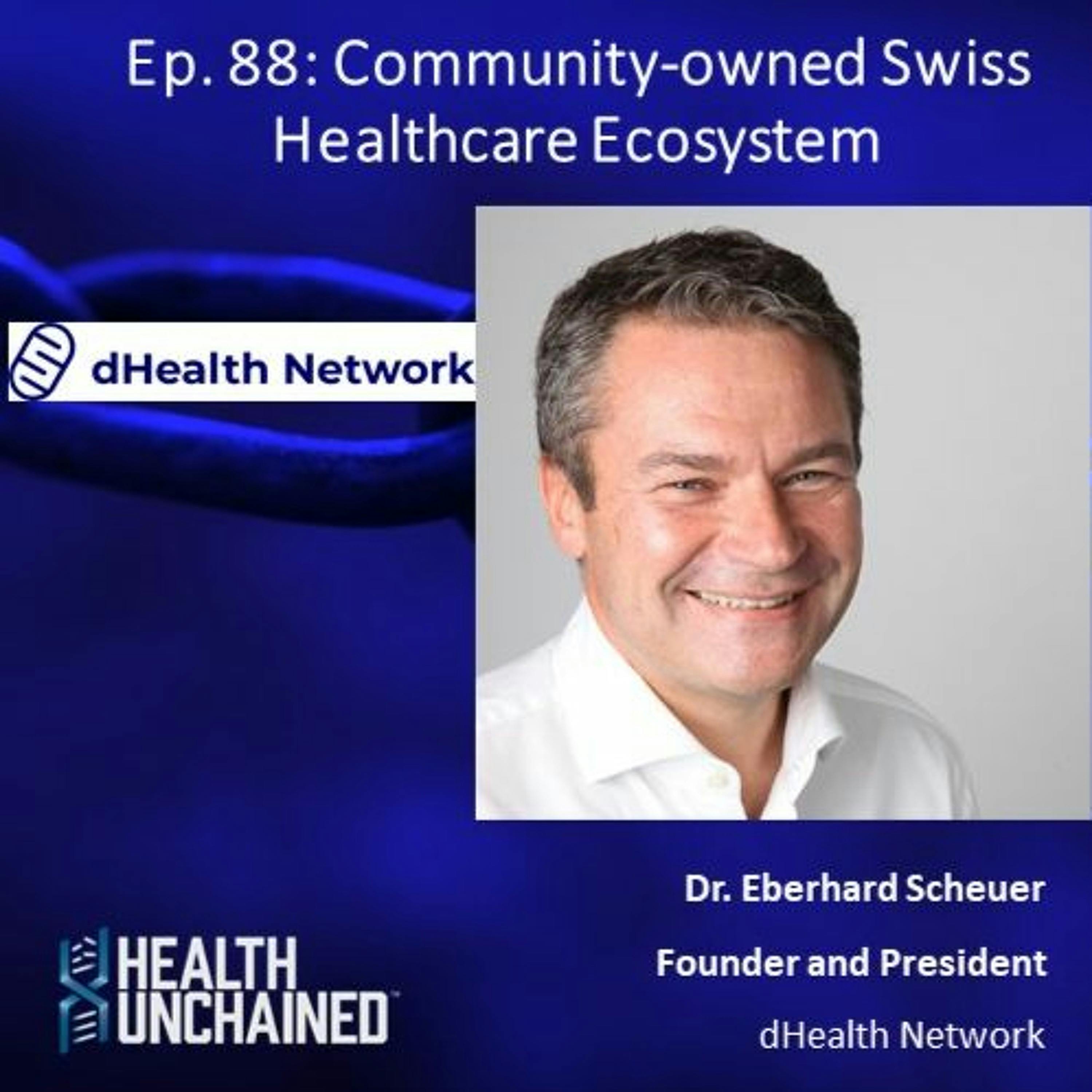
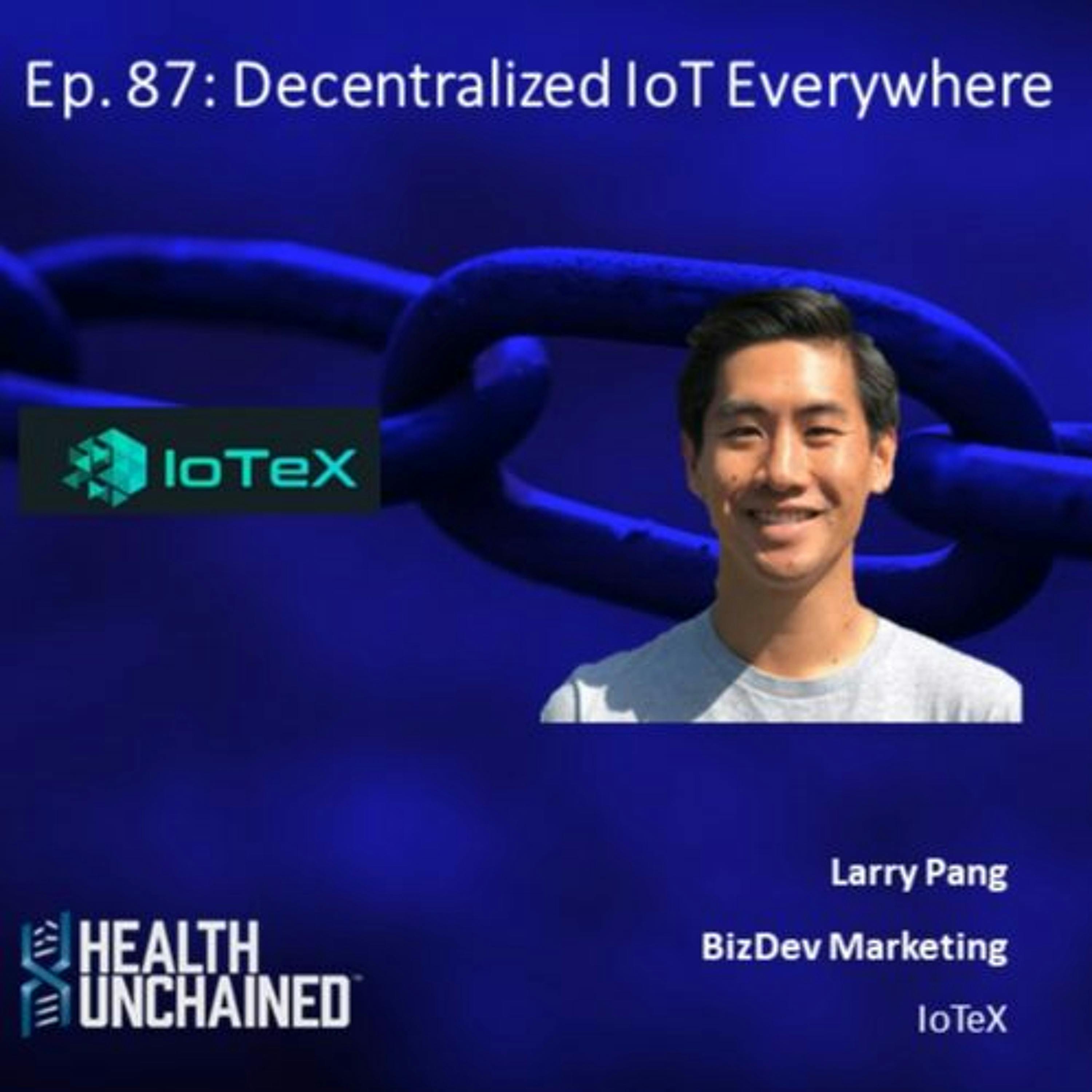
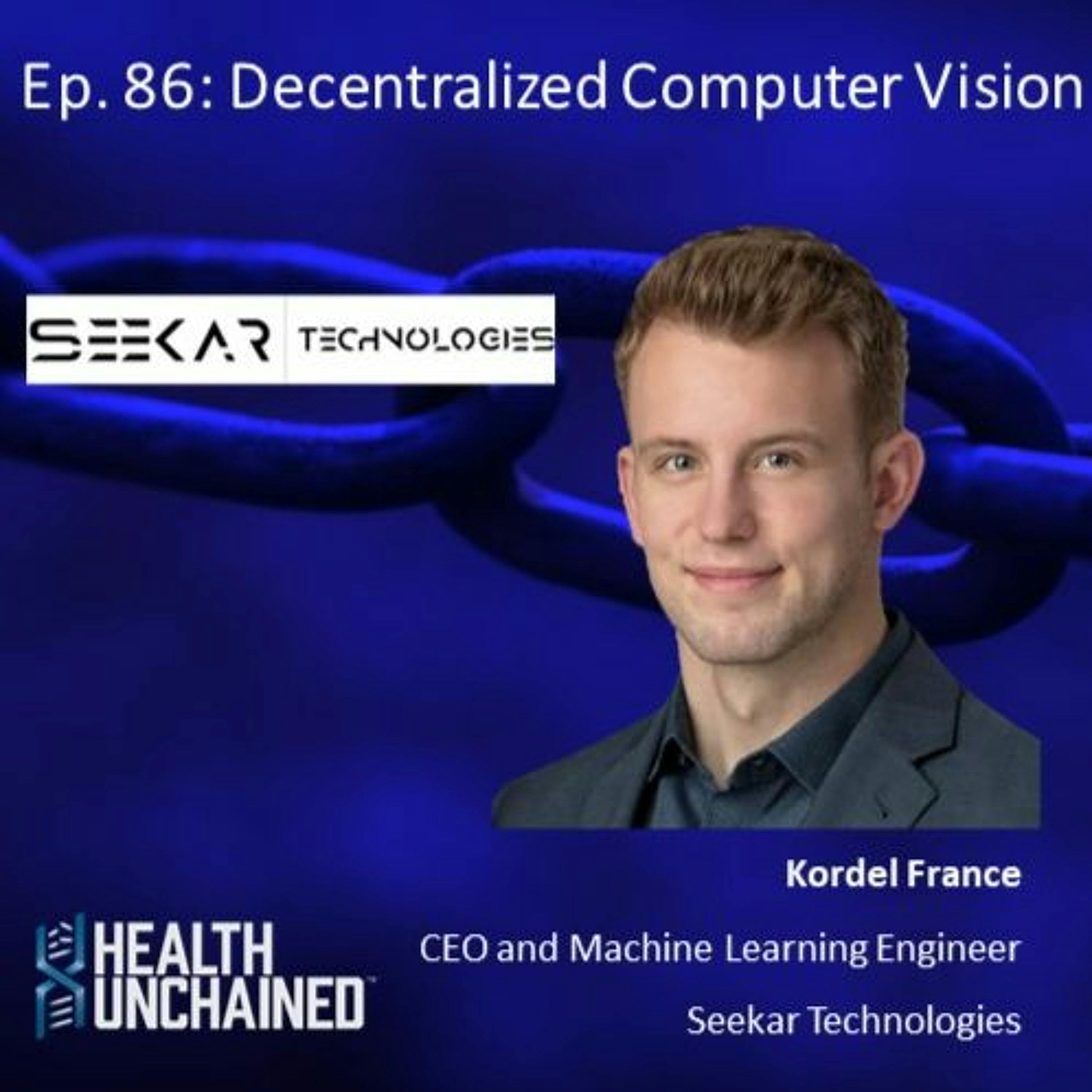
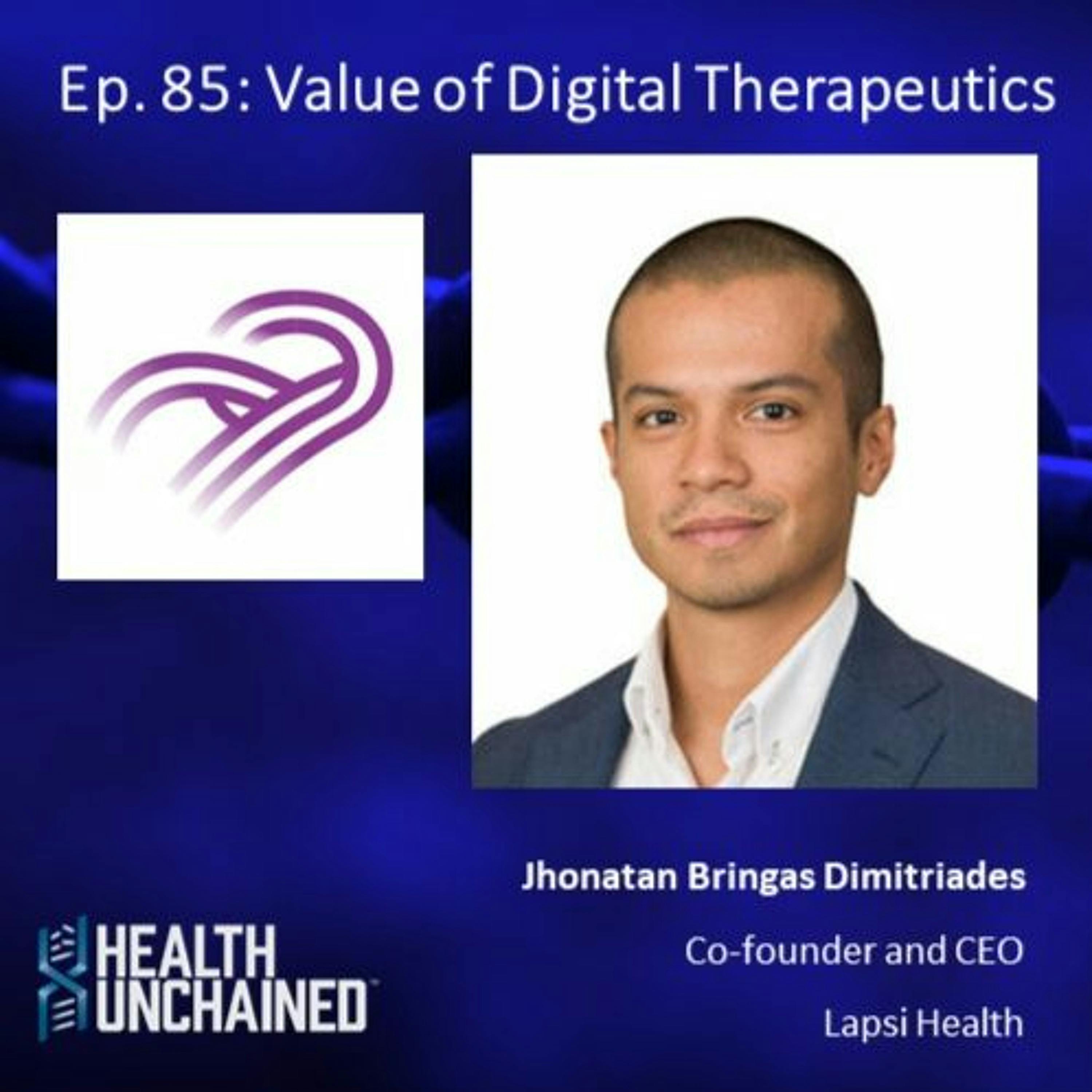
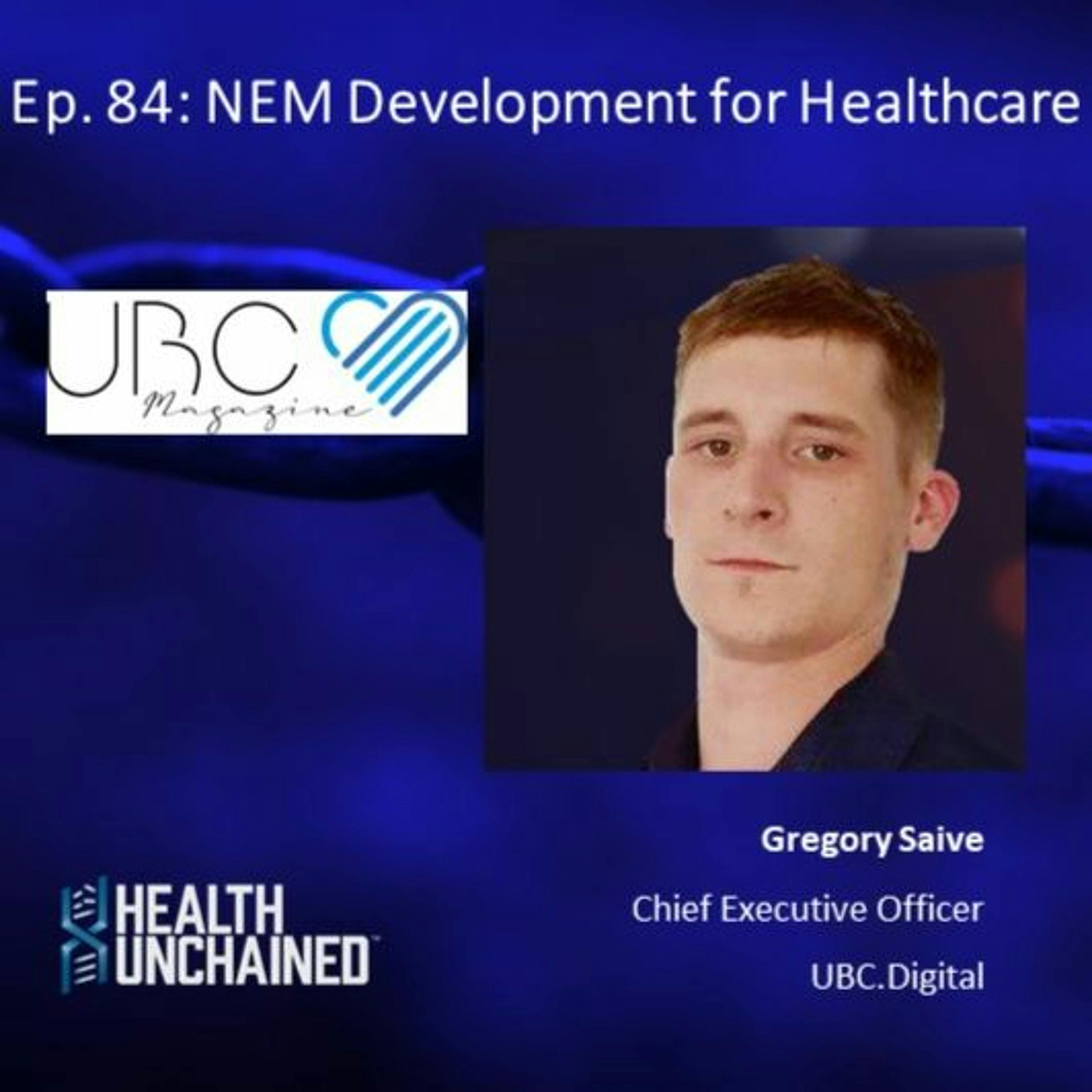
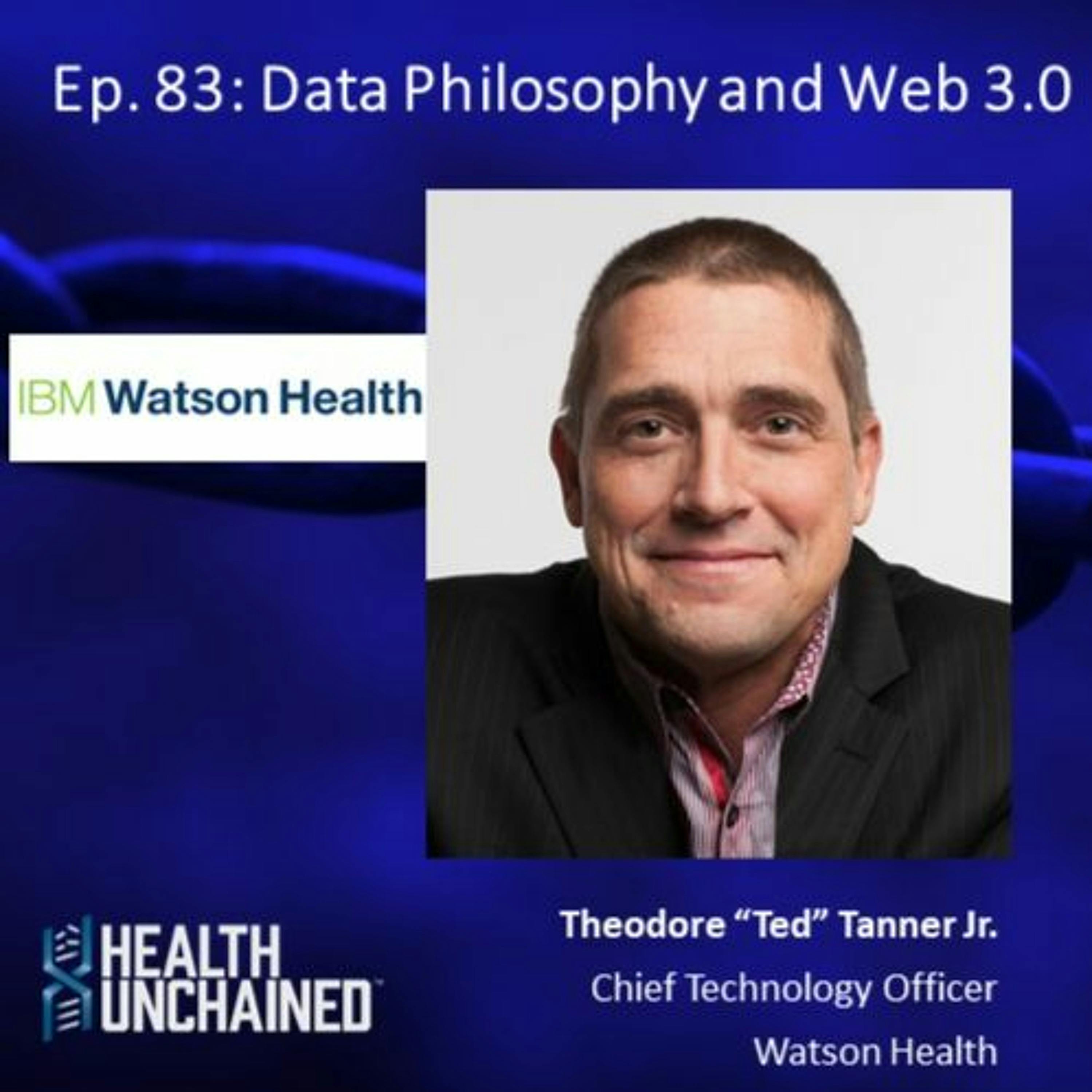
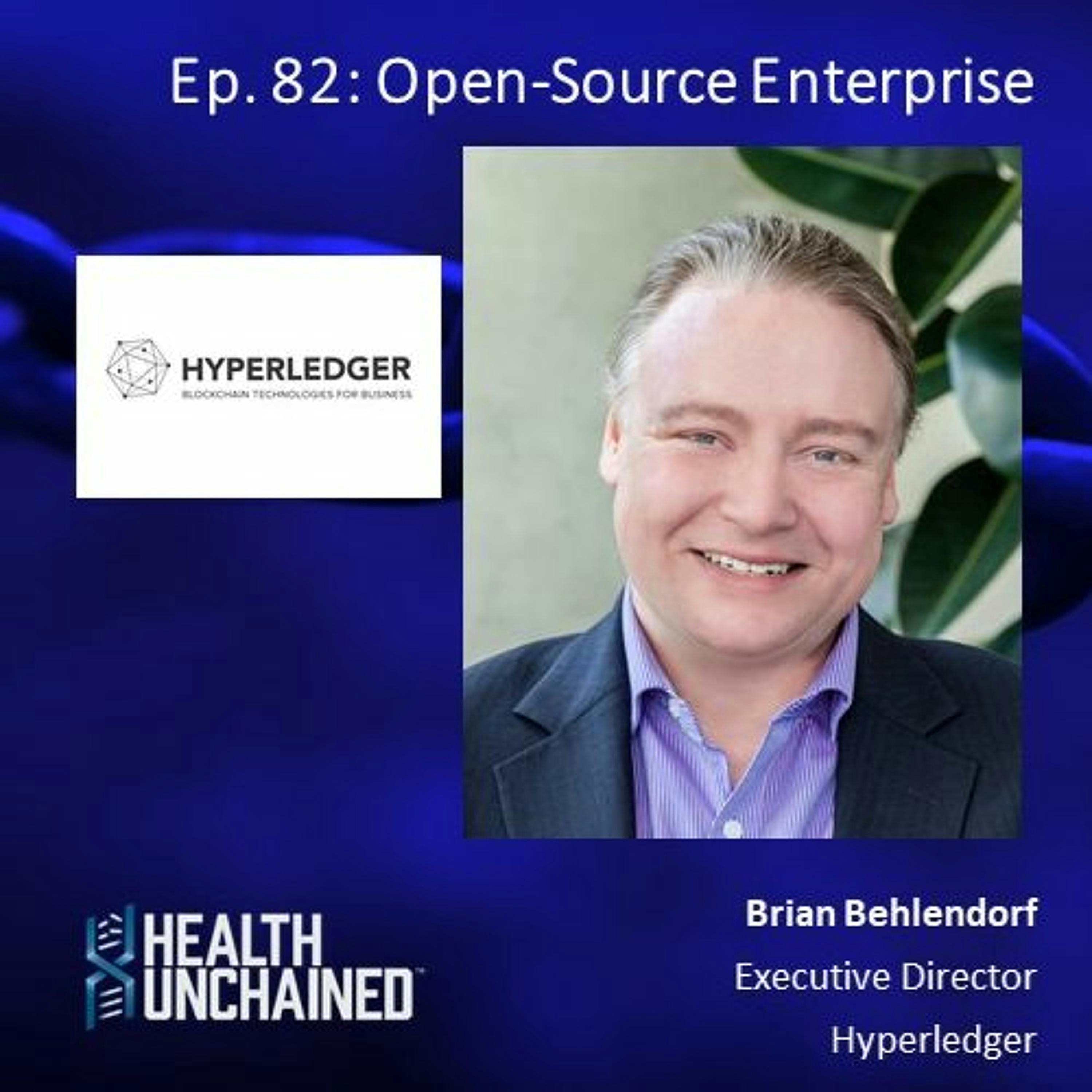
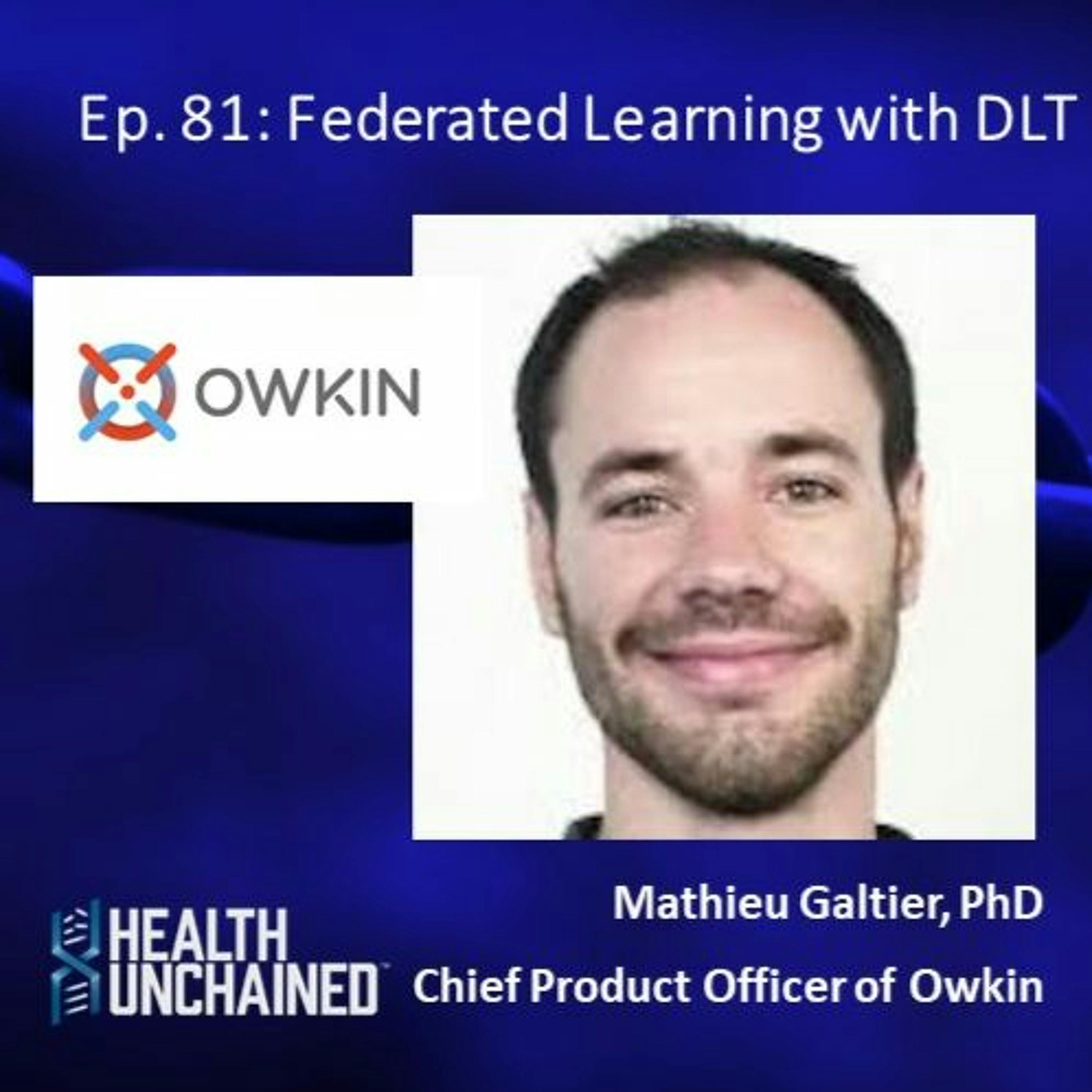
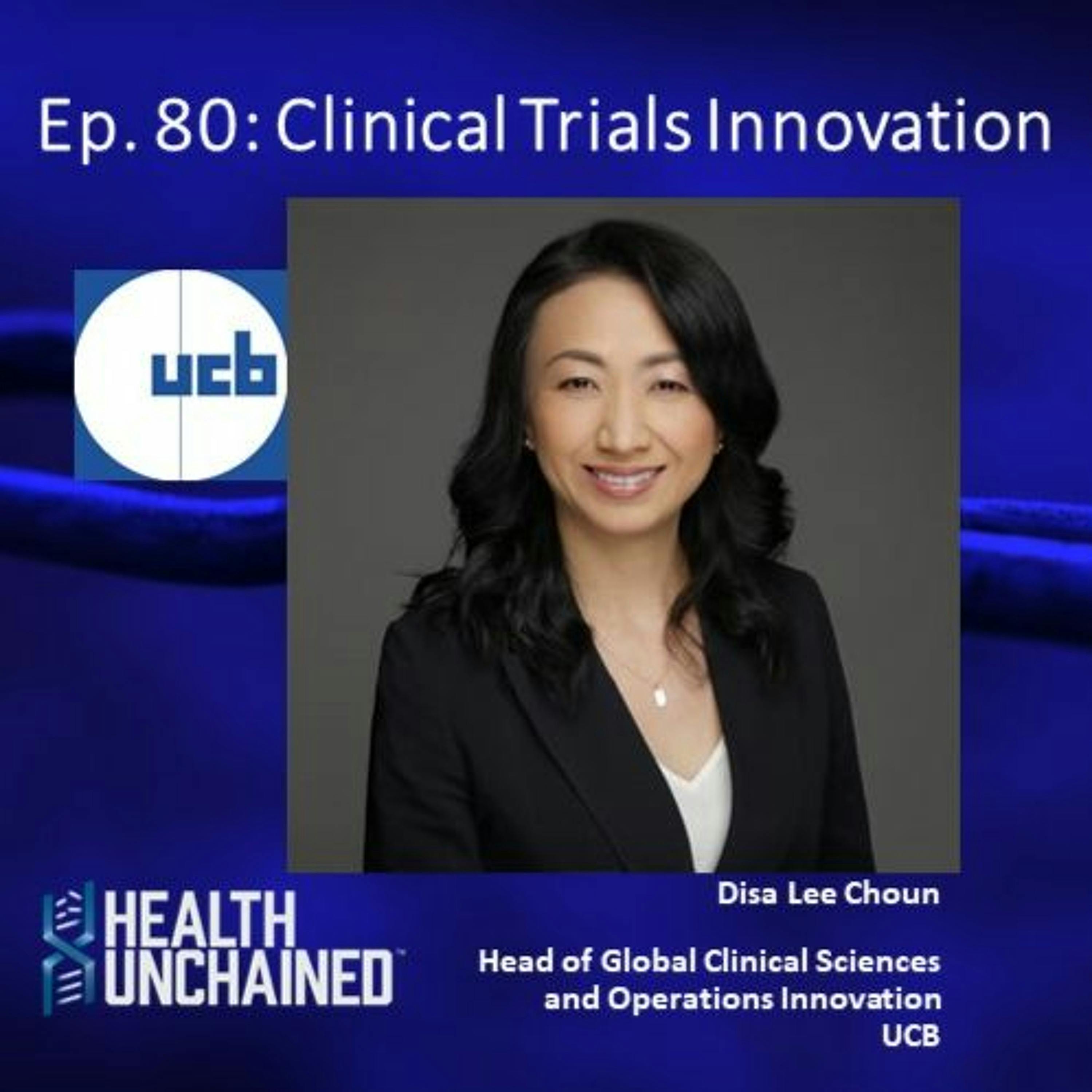
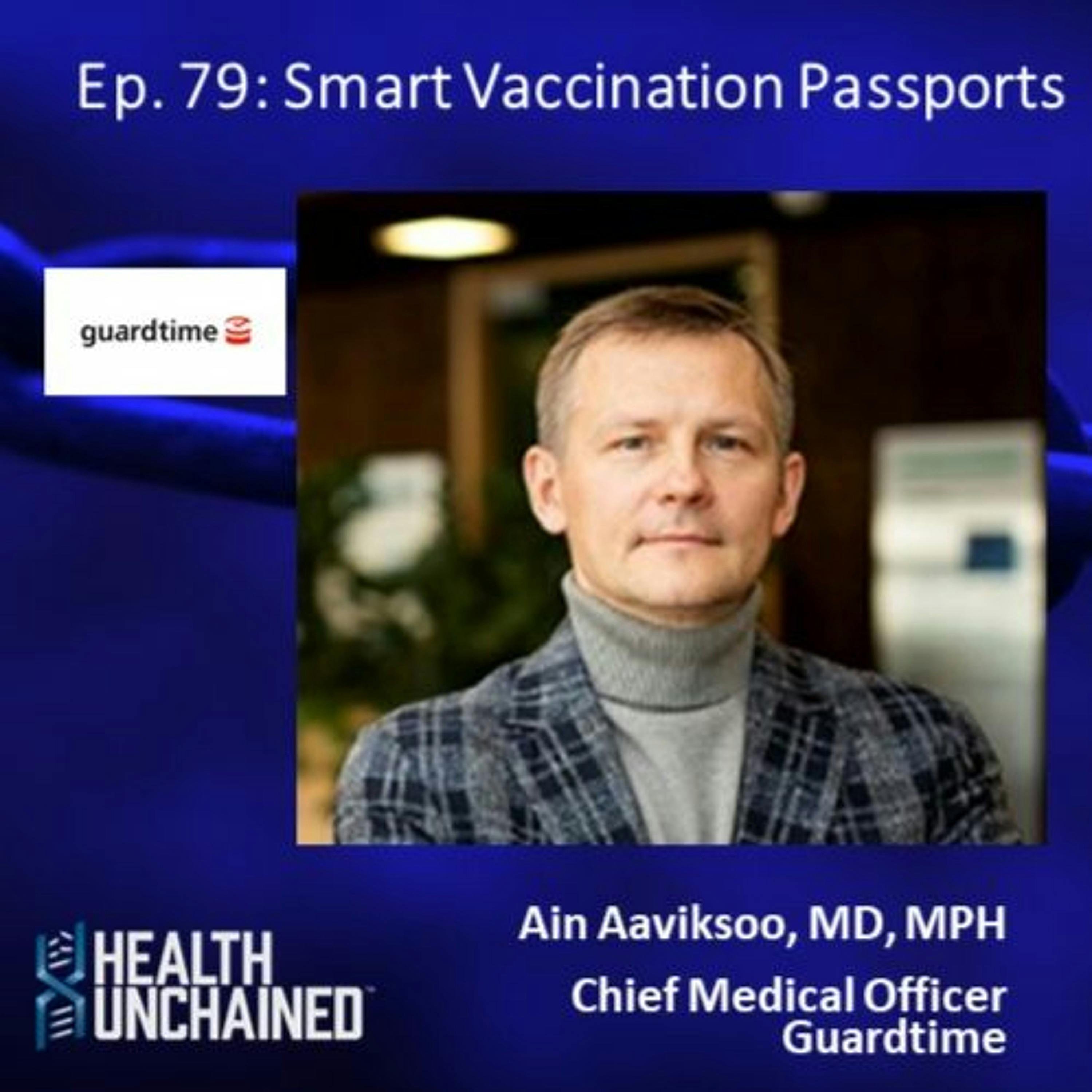
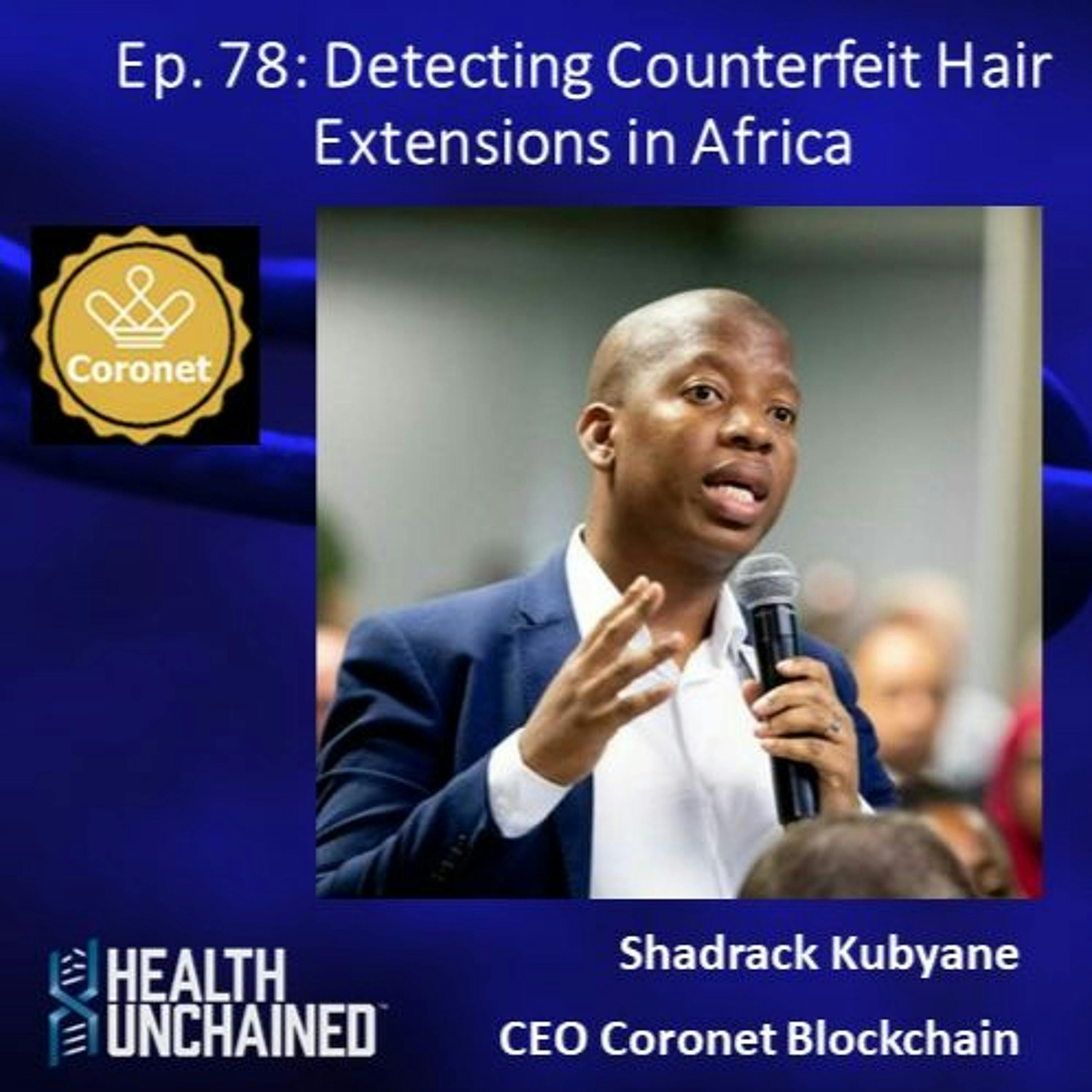
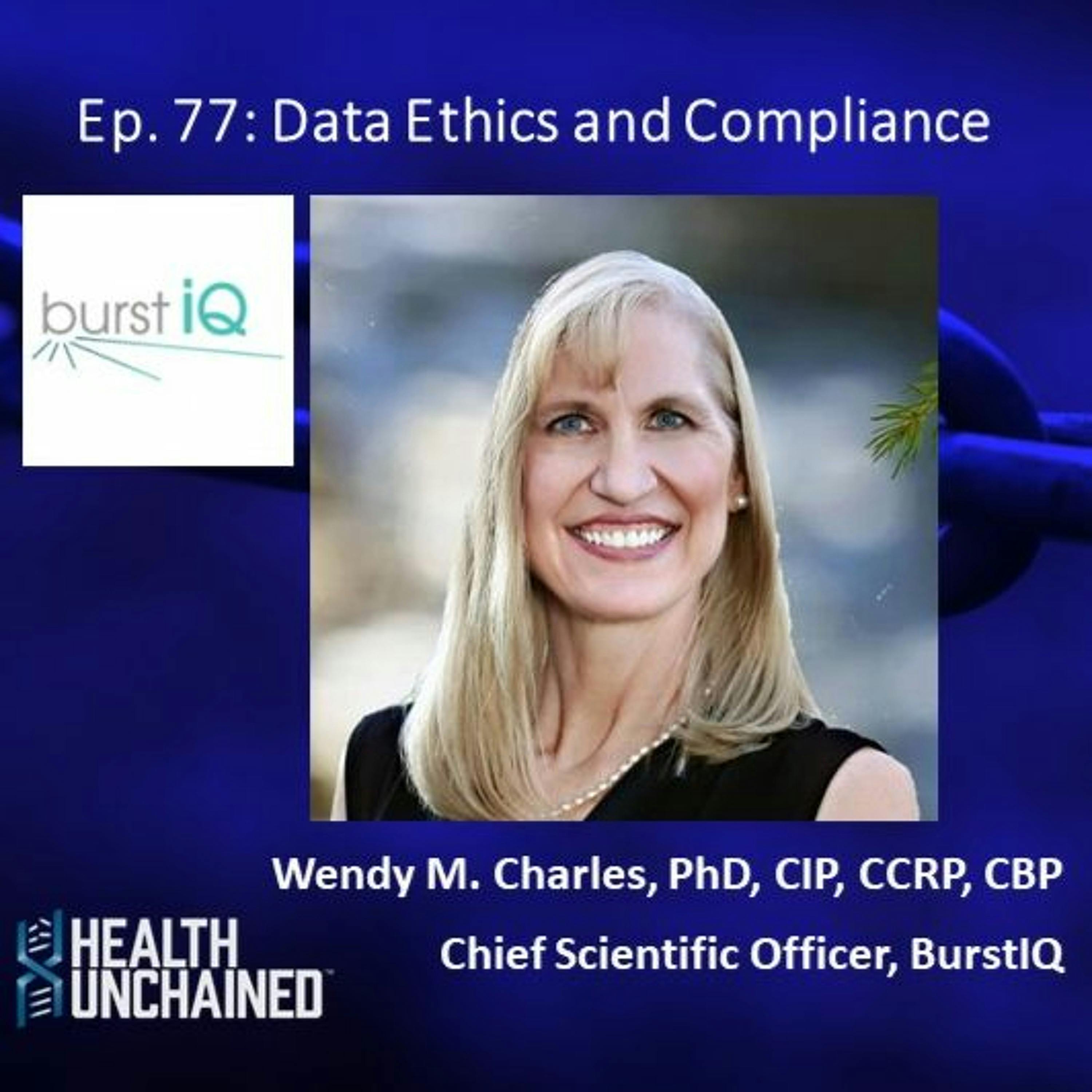
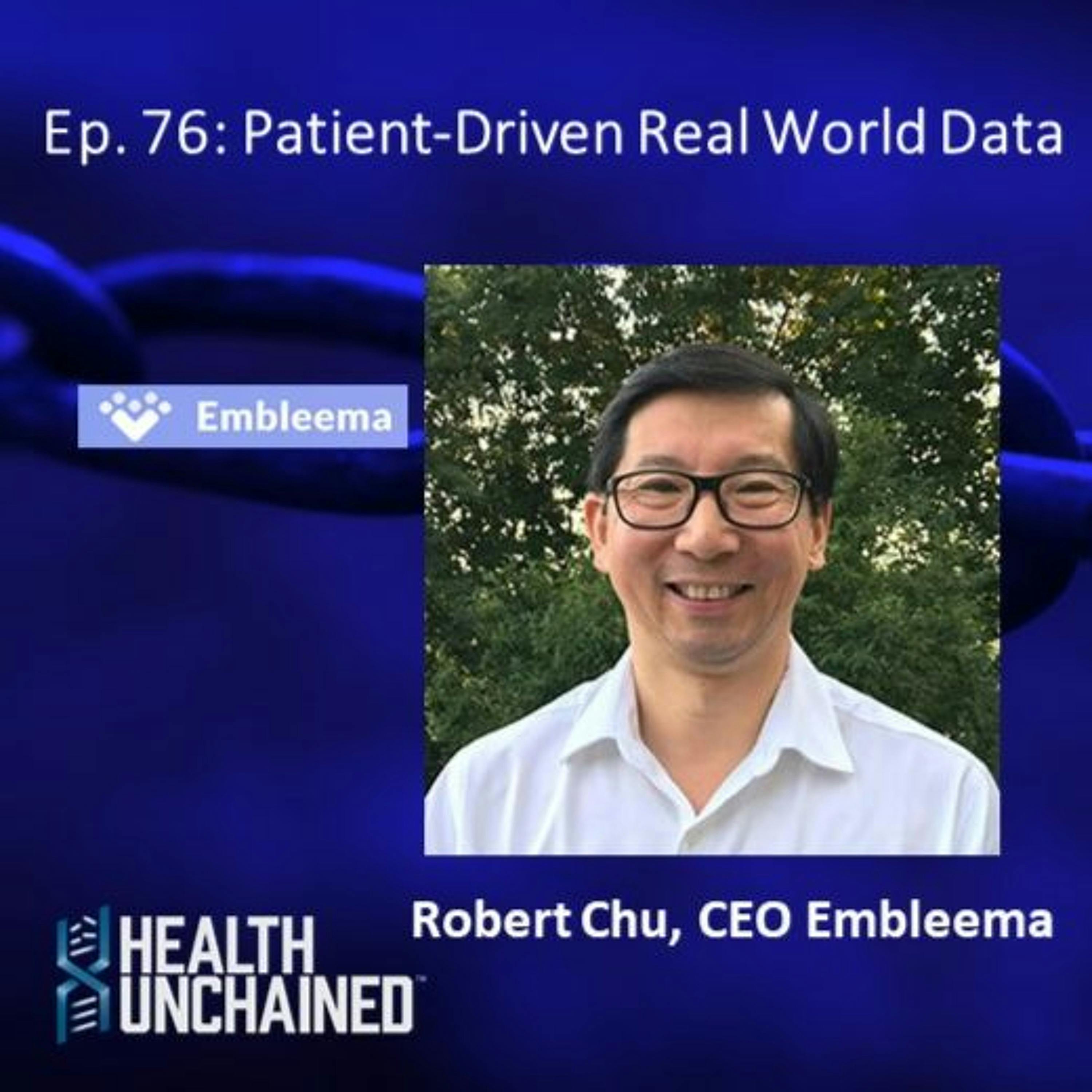
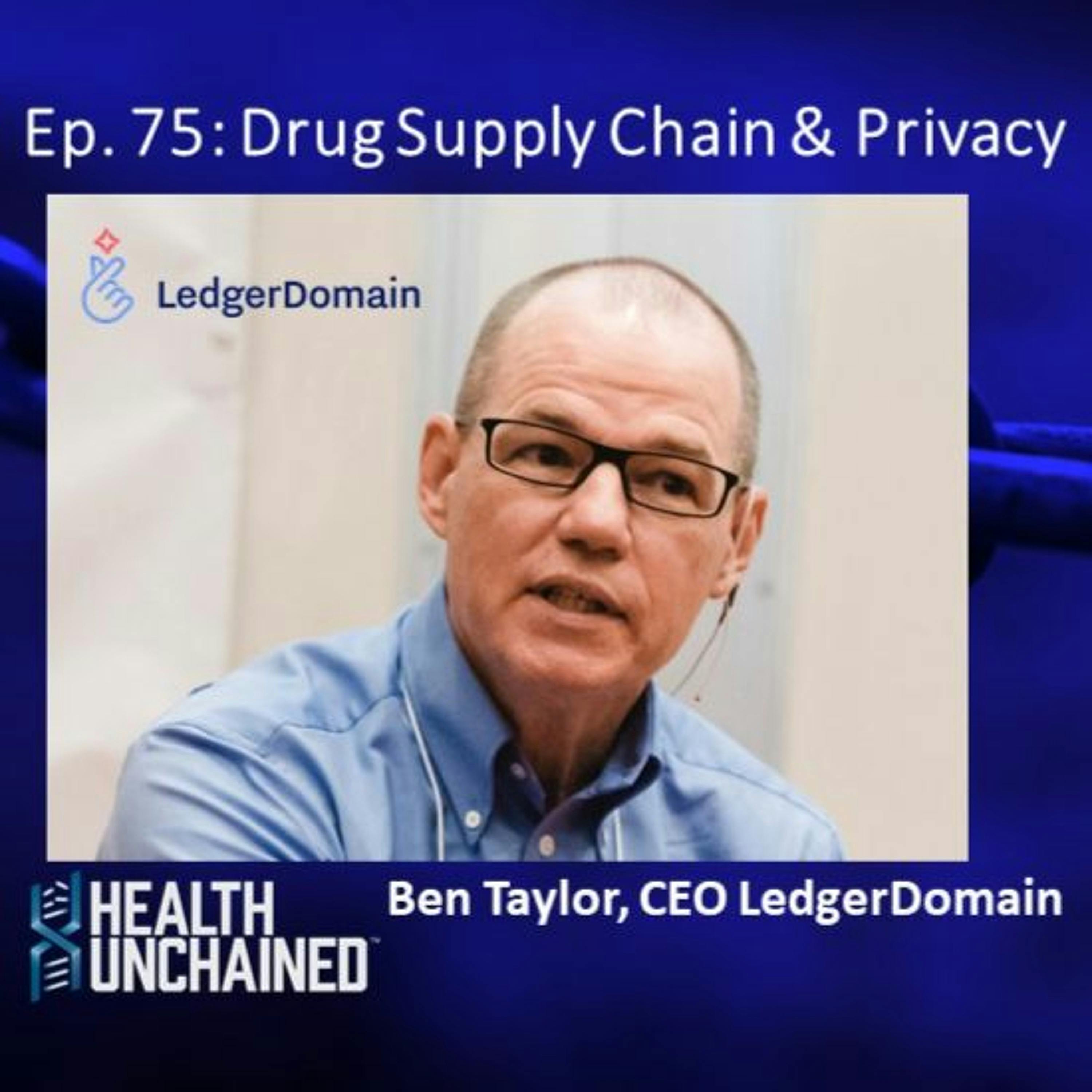
![[IEEE Blockchain Series #1] – Q&A with John Greaves (Technology Standards)](https://megaphone.imgix.net/podcasts/2bf52ebc-924b-11ec-b0e5-4f0c2a41d4da/image/artworks-Sc1QBaG54rYffYVX-0eZGOw-t3000x3000.jpg?ixlib=rails-2.1.2&max-w=3000&max-h=3000&fit=crop&auto=format,compress)
